
LUISTER NAAR DE JOODSE STEMMEN OVER
DE ISRAELISCHE MEGA-MISDRIJVEN TEGEN
HET INTERNATIONAAL HUMANITAIR RECHT
JEGENS DE PALESTIJNEN !
THE JEWISH VOICE FOR PEACE - JVP
LEES "THE WIRE" !
BERICHTEN NA 30-11-2024 STAAN HIER
OSPACA NIEUWSDIENST 13.
31 december 2024
DEEL I
DE BEER IS LOS !!
- Palestine Chronicle October 11, 2024: ‘Unprecedented’ – Rights Group Files Case against 1,000 Israeli Soldiers for War Crimes in Gaza
The “meticulously collected evidence demonstrates the extent of their participation in violations of international law”
A Belgium-based rights group, the HindRajab Foundation, has filed “an unprecedented and historical complaint” with the International Criminal Court (ICC) against 1,000 Israeli soldiers for war crimes, crimes against humanity, and genocide in the Gaza Strip. “These individuals, all of whom have been identified by name, are accused of participating in systematic attacks against civilians during the ongoing genocide”, the organization, affiliated with the March 30 Movement, said in a statement this week.
The HindRalabfoundation just filed a complaint against 1,000 Israeli soldiers, supported by over 8,000 pieces of evidence, this case is a game changer in the efforts for ending Israeli impunity and achieving JusticeforGaza. hindrajabfoundation.org/perpetrators/. “This complaint, supported by over 8000 pieces of verifiable evidence – including video's, audio recordings, forensic reports, and social media documentation – demonstrates the soldiers’ direct involvement in these atrocities”, the organization explained. “All the named soldiers were located in Gaza during the genocidal assault, and the evidence reveals of international law”, it added. The foundation is named after the six-year-old Hind Rajab who was killed, along with six of her family members and two paramedics, by Israeli forces in Gaza. The meticulously collected evidence demonstrates the extent of this participations in violations of international law. Among the targeted soldiers, who have all been “identified individually” are high-ranking officers and commanders responsible for planning and executing military operations in Gaza. In addition, numerous individuals with dual citizenship, including 12 from France, 12 from the United States, 4 from Canada, 3 from the United Kingdom, and 2 from the Netherlands, as well as several soldiers “who have openly boasted about their war crimes on social media, sharing photos and videos of their participation in the destruction and occupation of Palestinian homes and properties.” “By meticulously identifying the perpetrators and detailing their crimes, we are establishing a historical record that will ensure the individuals responsible are remembered ans held accountable”, the organization stated.
Call for Arrest, Prosecution
“The submission of this complaint represents a significant moment in the fight for justice. We honor the memory of Hind Rajab and the countless victims who have perished in the ongoing genocide”, the group emphasized. “Their stories will not be forgotten, and their voices will be heard through our persistent legal action. The organization called on every country linked to the dual nationals named in the complaint “to immediately arrest and prosecute these individuals for their involvement in war crimes, genocide, and crimes against humanity”.
“We call on the international community to not only support this complaint but to actively pursue the prosecution and arrest of the accused, upholding the principles of international law and justice”, the rights group said.
- Palestine Cronicle January 6, 2025: ‘War Crimes in Gaza – Around 50 Cases Filed against Israeli Soldiers Worldwide
The “Israeli newspaper Haaretz said cases have been filed in South Africa, Sri Lanka, Belgium, France, and Brazil against Israeli soldiers”
Pro-Palestinian organizations have filed 50 complaints in courts around the world against Israeli soldiers for committing war crimes in the Gaza Strip, according to Israel´s public broadcaster KAN. “About 50 complaints have been filed against reserve soldiers, 10 of which have been investigated without any arrests recorded so far, KAN, cited by the Anadolu News Agency, reported. KAN did not name these countries. However, the Israeli newspaper Haaretz said cases have been filed in South Africa, Sri Lanka, Belgium, France and Brazil against Israeli soldiers. “No official instructions have been issued to ban travel to specific countries, but special cases are being dealt with cautiously”, KAN reportedly added.
‘High Risk Trips’
According to the channel, Israeli security authorities have recommended re-evaluating “high-risk” trips. “Assessing legal risks has become an essential part of the decision-making process, with directives issued to reduce on social networks”, it added. Haaretz reported that active-duty soldiers “must have their travel destinations approved by senior commanders. However, the report added, “the Military Advocate General´s Corps has expressed concern over the lack of oversight for reservists.” Citing the army´s information security department, KAN said Israeli soldiers publish nearly one million posts every day on social media platforms that document their involvement in war crimes in Gaza, according to Anadolu.
Soldier Flees Brazil
On Sunday, an Israeli soldier under investigation for alleged war crimes committed in Gaza, reportedly fled Brazil to avoid arrest. The incident follows a federal court ruling Brazil to avoid arrest. The incident follows a federal court ruling in Brazil ordering the investigation of the soldier, based on charges brought by the Belgian-based human rights organization, the Hind Rajab Foundation (HRF).
Israeli Soldier Flees Brazil amid War Crimes investigation
This Israeli soldier facing war crimes charges related to the Gaza genocide has fled Brazil to avoid arrest, highlighting the growing possibility of international legal action against Israeli personal involved. The soldier who was on vacation in Brazil, is accused of participating in massive demolitions of civilian homes in Gaza “during a systematic campaign of destruction”. “These acts are part of a broader effort to impose unbearable living conditions on Palestinian civilians, constituting genocide and crimes against humanity under international law”, the HRF said in a statement on Friday. The evidence presented includes video footage, geolocation data, and photographs showing the suspect ‘personally planting explosives and participating in the destruction of entire neighborhoods”. These materials prove beyond doubt the suspect´s direct involvement in these heinous acts’, said the organization.
Government Involvement
The HRF said on Sunday that the Israeli army radio confirmed that the Israeli Ministry of Foreign Affairs “has facilitated Yuval Vagdani´s escape from Brazil.” Citing a post from the army radio, the HRF said the intervention was “obstructing justice and undermining accountability for war crimes.” “Brazil and the global community must take a firm stand against this blatant evasion. Justice cannot be selective or optional. War criminals must be held accountable”, stressed the organization.
According to Israeli newspaper Haaretz, “a joint task force of the Military Advocate General´s Corps, the Foreign Ministry, the National Security Council and the Shin Bet is now analyzing risks tot soldiers in various countries and monitoring potential investigations, like the one launched in Brazil.”
‘Unprecedented Complaint’
Last October, the HRF filed “an unprecedented and historical complaint” with the International Criminal Court (ICC) against 1,000 Israeli soldiers for war crimes, crimes against humanity, and genocide in the Gaza Strip. “This complaint, supported by over 8,000 pieces of verifiable evidence – including videos, audio recordings, forensic reports and social media documentation – demonstrates the soldiers’ direct involvement in the these atrocities”, the organization explained. “All of the named soldiers were located in Gaza during the genocidal assault, and the evidence reveals their participation in violations of international law”, it added.


31 december 2024
Humanitarian Situation Update #251
Gaza Strip

UN staff and local medical workers preparing to evacuate critically ill patients from the Indonesian Hospital of North Gaza, which is no longer functional. Photo by OCHA, 29 December 2024
Key Highlights
- Heavy rains and cold weather further deteriorate the survival conditions of displaced families, with tents flooded and damaged, and at least five newborns having reportedly died of hypothermia.
- Israeli forces raided and rendered Kamal Awan Hospital out of service, and the World Health Organization urges support to ensure that hospitals in North Gaza can become functional again.
- Recent water quality surveillance reveals alarming rates of microbiological contamination and a UN mission to displacement sites in Gaza city finds abysmal water, sanitation, and hygiene conditions.
- Gaza’s fishing sector, which once supported 110,000 people, has incurred US$84 million in losses, as 72 per cent of fishing assets have been damaged.
Humanitarian Developments
- Israeli bombardment from the air, land and sea continues to be reported across the Gaza Strip, resulting in further civilian casualties, displacement, and destruction of civilian infrastructure. Rocket fire by Palestinian armed groups towards Israel has also been reported. In the North Gaza governorate, the Israeli military has imposed a tightened siege on Beit Lahiya, Beit Hanoun and parts of Jabalya since 6 October 2024. Visiting Jabalya on 29 December, OCHA OPT Acting Head of Office stated that the basics of human survival are being destroyed in Gaza. He noted that all attempts by humanitarians to reach besieged people in North Gaza over the past two months have been denied, except for a handful of missions that went ahead despite impediments. People in Jabalya continue to face appalling conditions, with continued airstrikes, hospitals being hit, health workers being killed, insufficient water and food, accumulation of solid waste, and sewage overflow. Between 6 October and 30 December 2024, the UN attempted to reach besieged areas in North Gaza 164 times; of these, 148 attempts received outright denials by the Israeli authorities and 16 were impeded.
- Between the afternoons of 24 and 30 December, according to the Ministry of Health (MoH) in Gaza, 203 Palestinians were killed and 574 were injured. Between 7 October 2023 and 30 December 2024, at least 45,541 Palestinians were killed and 108,338 were injured, according to MoH in Gaza. Casualty figures covering until the afternoon of 31 December are not available as of the time of reporting.
- Between the afternoons of 24 and 31 December, four Israeli soldiers were killed in Gaza, according to the Israeli military. Between 7 October 2023 and 31 December 2024, according to the Israeli military and official Israeli sources cited in the media, more than 1,593 Israelis and foreign nationals were killed, the majority on 7 October 2023 and its immediate aftermath. The figure includes 393 soldiers killed in Gaza or along the border in Israel since the beginning of the ground operation in October 2023. In addition, 2,521 Israeli soldiers were reported injured since the beginning of the ground operation. As of 31 December, it is estimated that 100 Israelis and foreign nationals remain captive in Gaza, including hostages who have been declared dead and whose bodies are withheld in Gaza.
- The following are some of the deadliest incidents reported between 24 and 29 December:
- On 24 December, at about 18:00, nine Palestinians, including three women, were reportedly killed and others were injured when a four-storey residential building was hit in Jabalya, North Gaza.
- On 24 December, three Palestinians, including two Civil Defense personnel and a fire truck driver were reportedly killed when a Civil Defense centre was hit near Al Sidra intersection in Ad Daraj neighbourhood, in central Gaza city.
- On 25 December, at about 1:30, six Palestinians, including a boy, were reportedly killed and others injured when tents for internally displaced persons (IDPs) were hit inside a school in Ash Sheikh Radwan neighbourhood, in northern Gaza city.
- On 26 December, at about 6:45, eight Palestinians from a single family, including three females, were reportedly killed and others injured when a house was hit in As Sabra neighbourhood, southeast of Gaza city.
- On 26 December, at about 13:45, six Palestinian, including a woman and her daughter, were reportedly killed and others injured when three houses were hit in Ad Daraj neighbourhood, northeast of Gaza city.
- On 26 December, a day before Israeli forces raided and rendered Kamal Adwan Hospital out of service (see below), the hospital director reported that airstrikes on a building opposite Kamal Adwan had killed about 50 people, including five health care workers. The Israeli military, as cited by the media, has denied the reported airstrikes near Kamal Adwan on 26 December.
- On 26 December, at about 19:30, 15 Palestinians were reportedly killed and others injured when a house was hit in Ash Sheikh Radwan neighbourhood, in northern Gaza city.
- On 26 December, five Palestinian journalists and media workers were reportedly killed when a press van belonging to Al Quds Today TV was hit in front of Al Awda Hospital in An Nuseirat refugee camp in Deir al Balah. The UN Human Right Office condemned the airstrike on the “unarmed and clearly identified” press members, adding that, although “the Israeli military has claimed they were affiliated with Palestinian armed groups ... affiliation alone would not remove their protection as civilians.” The Committee to Protect Journalists stated that with this incident “at least nine Gazan journalists have been killed in less than two weeks.” According to the Palestinian Journalists Syndicate, over 190 journalists and media workers have been killed in Gaza since October 2023.
- On 28 December, during morning hours, ten Palestinians were reportedly killed and others injured when a house was hit in Beit Hanoun, in North Gaza.
- On 28 December, at about 4:40, nine Palestinians, including a girl and two women, were reportedly killed and others injured when a house was hit in Al Musaddar area, south of Al Maghazi, Deir al Balah.
- On 29 December, the Israeli forces reportedly struck the upper floor of Al Wafa Rehabilitation Hospital in central Gaza city, resulting in seven people killed and others injured, according to Palestinian Civil Defense (PCD).
- On 29 December, at about 14:00, seven Palestinians were reportedly killed and others injured when a house was hit in Beit Hanoun, North Gaza.
- On 29 December, at about 15:30, at least eight Palestinians, including three females, were reportedly killed and others injured when several houses were hit south of An Nuseirat New Camp, Deir al Balah.

- On 29 and 30 December, the Palestinian Prisoner’s Society announced the death of five detainees from Gaza while in Israeli custody: a 51-year-old father-of-four who was arrested by Israeli forces on 20 November 2023 and announced dead by the General Authority of Civil Affairs on 29 December 2024; a 44-year-old father of ten who was arrested on 15 November 2023 during his displacement from North Gaza and was announced dead on 29 December 2024; a 57-year-old father of eight who was arrested on 18 November 2024 during his displacement from North Gaza and reportedly died on 27 November 2024; a 52-year-old patient who was arrested from Kamal Adwan Hospital on 25 October 2024 and reportedly died on 3 November 2024; and a 58-year-old man who was detained while working in Israel on 7 October 2023 and reportedly died on 18 October 2023. According to the society, the number of identified detainees from Gaza who have died in Israeli custody has increased to 35. Separately, about 45 Palestinian detainees were reportedly released via the Kerem Shalom crossing on 27 and 29 December and were transferred to the European Gaza Hospital in Khan Younis for medical care. As of December 2024, according to data provided by the Israel Prison Service (IPS) to Hamoked, an Israeli human rights NGO, there are 10,154 Palestinians in Israeli custody, including 2,003 sentenced prisoners, 2,951 remand detainees, 3,428 administrative detainees held without trial, and 1,772 people held as “unlawful combatants.” These figures do not include Palestinians from Gaza who have been detained by the Israeli military since 7 October 2023 and their number remains unknown.
- Between 1 and 30 December, out of 569 planned aid movements requiring coordination with Israeli authorities across the Gaza Strip, 33 per cent (189) were facilitated, 39 per cent (224) were denied, 18 per cent (103) were interfered with or initially agreed to but then faced impediments, and nine per cent (53) were cancelled by the organizers due to logistical and security challenges. Movements facing impediments were accomplished either partially or not at all. Of the coordinated movements, 127 needed to cross from southern Gaza through the Israeli military-controlled checkpoints on Al Rashid or Salah ad Din roads to areas north of Wadi Gaza (including both North Gaza and Gaza governorates); of these, only 28 per cent (36) were facilitated, 34 per cent (43) were denied, 24 per cent (31) faced impediments, and 13 per cent (17) were cancelled. These include 60 attempts to reach the besieged area in North Gaza, of which 55 were denied and only five were allowed to proceed but faced impediments. Coordinated aid missions to areas in the Rafah governorate, where there has been an ongoing Israeli military operation since early May, have faced similar challenges. Thirty-six out of 38 planned movements submitted to the Israeli authorities to access Rafah governorate between 1 and 30 December were denied, one was facilitated, and one was initially agreed to, but faced impediments. This excludes 67 coordinated movements to Kerem Shalom crossing, of which 58 per cent (39) were facilitated, 31 per cent (21) were impeded, three per cent (2) were denied, and seven per cent (5) were cancelled.
- On 27 December, following escalating restrictions on access and repeated attacks on or near Kamal Adwan Hospital in North Gaza over 12 weeks, Israeli forces raided the hospital, with initial reports received by WHO suggesting that some areas of the hospital were burned and severely damaged during the raid, including the laboratory, surgical unit, engineering and maintenance department, operations theatre, and the medical store. Some patients, caregivers and health-care workers were reportedly transferred by Israeli forces to the destroyed and non-functional Indonesian Hospital, which had been evacuated by Israeli forces on 24 December. The majority of the staff, stable patients and companions were moved from Kamal Adwan “to a nearby location” and “some people were reportedly stripped and forced to walk toward southern Gaza,” WHO reported. As of 28 December, Kamal Adwan – the last major health facility in North Gaza – was completely empty and out of service, stressed WHO. On the same day, the Israeli military stated that its forces had arrested over 240 combatants using the facility and its surroundings. WHO reported that the Kamal Adwan Hospital’s director was detained, and his whereabouts were unknown, calling for his immediate release. On 29 December, a joint mission comprising OCHA, WHO, WFP, UNDSS and the Palestine Red Crescent Society (PRCS) reached the Indonesian Hospital, delivered basic medical and hygiene supplies, food and water to the facility, and evacuated ten patients. Four patients, including one in critical condition, were arrested by Israeli forces at a checkpoint during the transfer and only six reached Al Shifa Hospital in Gaza city. Presently, seven patients along with 15 caregivers and healthcare workers remain at the severely damaged Indonesian Hospital, which has no ability to provide medical care and no water, electricity or sanitation.

- Since early October 2024, WHO has verified at least 50 attacks on health on or near Kamal Adwan Hospital in North Gaza. Moreover, according to a 28 December statement by the director of Al Awda Health and Community Association, Al Awda Hospital in North Gaza is reportedly experiencing daily attacks near or on its premises, due to ongoing hostilities, which have resulted in the injury of seven medical staff, including the hospital’s director. The statement highlighted that the hospital is facing severe shortages of medical supplies and fuel and urgently requires food, water, blood units, and medical gases to continue providing essential services, noting that the shutdown and destruction of Kamal Adwan Hospital has “eliminated the last source of medical gas production” and severely affected vital services such as intensive care and neonatal incubators. “With Kamal Adwan and Indonesian hospitals entirely out of service, and Al-Awda Hospital barely able to function, and severely damaged due to recent airstrikes, the health-care lifeline for those in North Gaza is reaching a breaking point,” warned WHO, calling for urgent support to ensure that hospitals in North Gaza can become functional again.
- Between 28 and 29 December, the Israeli military issued two evacuation orders for all of North Gaza governorate and parts of Gaza city. Several evacuation orders had already been issued for the designated areas. The first order covered approximately 54 square kilometres in Beit Hanoun, Beit Lahiya and Jabalya in North Gaza and Sheikh Radwan neighbourhood in Gaza city, while the second order covered approximately 5.1 square kilometres in areas of Beit Lahiya and Jabalya that were not covered by the first order, in addition to Al Awdah neighbourhood in Gaza city. While thousands of families are estimated to have been affected by the orders, aid partners have tracked the displacement of 350 families from North Gaza to Gaza city between 26 and 29 December. Since October 2023, the North Gaza governorate has been placed under five major evacuation orders, with dozens of other orders issued for different parts of the governorate.
- As temperatures continue to plummet in Gaza, at least five newborns aged between three days and one month reportedly died of hypothermia in IDP tents in central and southern Gaza between 24 and 29 December, according to the MoH. Among them are a 20-day-old baby who succumbed to the cold in his tent in Deir al Balah on the night of 28 December, and whose twin brother remains in intensive care at the Al Aqsa Hospital according to media sources, and three babies who died due to the extreme cold between 24 and 26 December in their tents in Al Mawasi, in eastern Khan Younis, to which the Israeli military has instructed Palestinians to go. On 27 December, MoH also reported that an adult medical worker had died due to the extreme cold in the same location. Referring to the death of children due to cold and lack of adequate shelter, the UNICEF Regional Director for the Middle East and North Africa Edouard Beigbeder stated: “These preventable deaths lay bare the desperate and deteriorating conditions facing families and children across Gaza. With temperatures expected to drop further in the coming days, it is tragically foreseeable that more children's lives will be lost to the inhumane conditions they are enduring.”
- Only a trickle of tents and other shelter assistance continues to reach the Gaza Strip. Between 1 and 26 December, just 24 trucks carrying shelter items were able to enter central and southern Gaza, while 136 trucks entered northern Gaza, according to preliminary data by the Shelter Cluster. “Humanitarians are put in a situation where, because not enough aid is being facilitated into the Gaza Strip, we are having to prioritize food over shelter…[as] just last week there were women crushed at a bakery waiting for a piece of bread,” reported UNRWA Senior Emergency Officer Louise Wateridge on 20 December. Meanwhile, heavy rainfall continues to further deteriorate the survival conditions of displaced families. On 30 December, the Palestinian Civil Defense reported that it received hundreds of distressed calls from displaced people whose shelters had been flooded with rainwater in the previous two days, appealing for urgent support especially for families living in displacement sites in Gaza city, the Al Mawasi area of Khan Younis, western Deir al Balah and Rafah.
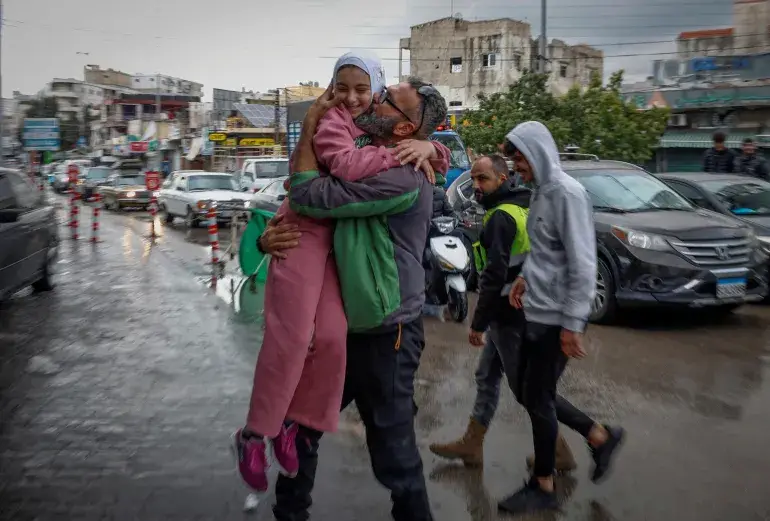
- Approximately 7,700 newborns lack access to life-saving care, warns UNICEF, as neonatal care capacity continues to shrink across the Gaza Strip, particularly in northern Gaza, which prior to October 2023 accounted for nearly 60 per cent of total neonatal hospital beds. In the North Gaza governorate, all neonatal care bed capacity in MoH hospitals has now been lost, while in the Gaza governorate, only two non-MoH hospitals continue providing newborn care amid major constraints –the Patients Friends Association Hospital and the Al Sahaba Medical Complex – with merely five neonatal beds available in each. Both facilities face dire shortages of incubators, high frequency ventilators, essential medications and supplies, and rely on a single oxygen plant in Gaza city, which lacks spare parts and is insufficient to meet rising needs. On 29 December, the Paediatric Director at the Patients Friends Association Hospital appealed for the urgent provision of more oxygen, warning that the facility is only receiving an average of 10 cylinders of oxygen a day, which places the lives of newborns at risk. With neonatal ICUs available only at these two hospitals, many families have been seeking urgent support in other facilities with inadequate resources, leading to preventable neonatal deaths. The situation is equally dire in central and southern Gaza; while 64 neonatal hospital beds are present cumulatively at the Nasser Medical Complex and at the European and Al Aqsa hospitals in Khan Younis and Deir al Balah, these facilities consistently operate far above capacity, with neonatal bed occupancy exceeding 100 per cent. There are also dire shortages of ventilators, equipment for phototherapy and continuous positive airway pressure, and life-saving supplies such as antibiotics, intravenous immunoglobulin, total parenteral nutrition, and surfactants for neonatal care. Due to overburdened wards and compromised infection control practices, newborns are far more exposed to the risk of hospital-acquired infections, reports UNICEF, a situation exacerbated by the lack of neonatologists and the presence of only a few paediatricians with limited expertise in neonatal care.
- On 20 December, the UN conducted an inter-agency assessment mission aimed at identifying and addressing needs at four displacement sites hosting over 1,900 families in Gaza city, including three makeshift camps set up in December 2024 and a pre-existing UNRWA school-turned-shelter that received a new large influx of IDPs in recent weeks. Most households had been displaced from the North Gaza governorate over the past two months, fleeing on foot without any personal belongings and now struggling to meet even their most basic needs. Below are the key assessment findings:
- Across all sites, there is a dire lack of latrines and hygiene supplies, growing sewage and solid waste accumulation, and open defecation was observed at two locations. At one makeshift site, people are forced to walk several hundred metres to another heavily congested IDP site to use a latrine. Due to insecurity and the lack of lighting, women and girls are forced to use containers inside their tents at night.
- Access to drinking and domestic water is extremely limited. At one site, there is no domestic water supply and, across all sites, the shortage of jerrycans prevents IDPs from storing the scant quantities received from aid agencies. At three sites, the lack of generators and fuel is hampering the ability to operate water wells.
- Only one site has received food assistance, while the other three have not received any type of food or nutrition assistance since their establishment in December 2024. Meanwhile, hot meals distributed at nearby community kitchens could only a reach a fraction of households and they rely on nylon and plastic as an energy source in the absence of cooking gas and firewood.
- Three sites have no access to nearby medical points or basic medications, particularly affecting the health of babies, pregnant and breastfeeding women, and people in need of emergency services.
- There are no temporary learning sites serving the large number of school-aged children, including separated and unaccompanied ones, at the four sites, but there is a community-led initiative ongoing at one site.
- At the four sites, there is an urgent need for dignity kits, diapers for babies and the elderly, and infant formula.
- People with disabilities, many of whom lost limbs or were otherwise injured in hostilities, reported severe mobility challenges due to the lack of infrastructure and assistive devices.

- Access to basic water, sanitation and hygiene (WASH) services continues to rapidly deteriorate in northern Gaza, warns the WASH Cluster. As of early October 2024, at least 75 per cent of WASH infrastructure in areas north of Wadi Gaza, with an estimated population of 450,000 Palestinians, were estimated to be damaged, and only 20 per cent of municipal wells were assessed to be partially operational, supplying just 10 per cent of the water produced prior to the escalation of hostilities in October 2023. Over the past few months, the entry of fuel supplies for the operation of key WASH facilities across Gaza has significantly decreased, reaching the lowest levels between 14 and 20 December when only 3,668 litres of fuel were received by WASH Cluster partners daily, representing five per cent of the 70,000 litres required daily at a minimum to meet critical WASH and public health needs, including water production and distribution, critical repair works and essential sewage and solid waste management operations. No fuel reached areas north of Wadi Gaza in the same period (14-20 December). Moreover, since the latest offensive launched by Israeli forces in North Gaza on 6 October, access to re-supply water production points in the North Gaza governorate and areas in eastern Gaza governorate, has been consistently denied by the Israeli authorities, according to the WASH Cluster, severely curtailing the ability of partners to support water pumping and distribution. As a result, residents, particularly thousands in the besieged areas of Jabalya, Beit Lahiya, and Beit Hanoun, have been entirely dependent on dilapidated private wells powered by solar panels, which produce limited and often unsafe water. In parallel, wastewater and solid waste management has increasingly collapsed in northern Gaza, due to the lack of fuel and equipment while critical infrastructure, such as sewage treatment plants, have either become non-functional or inaccessible, heightening contamination and disease transmission risks. In an urgent appeal for support issued on 30 December, the Gaza city Municipality stressed that 175,000 metres of sewage networks, 15,000 metres of stormwater drainage systems and all sewage pumps and stations have been destroyed across Gaza city, rendering drainage operations for stormwater and sewage nearly impossible at present. The risk of flooding remains high at the Sheikh Radwan storm basin, which urgently needs maintenance, fuel, and pipeline repairs.
- Emergency water quality surveillance recently conducted by the WASH Cluster reveals alarming rates of microbiological contamination. Between 1 and 23 December, out of 306 water samples collected from desalination units, water filling points, IDP sites, houses and health-care facilities in all governorates except North Gaza, 79 per cent lacked adequate quantities of chlorine and 19 per cent showed contamination by faecal coliforms, with this rate rising to over 21 per cent in healthcare facilities. Overall, nearly 73 per cent of drinking water and over 97 per cent of domestic water samples were not compliant with the minimum national or international standards for water chlorination, according to the WASH Cluster, because of limited access to water testing equipment, shortages of disinfecting consumables, and the overall disruption of the water quality control system. These challenges compound the already limited access to water across the Gaza Strip, where over one million people are estimated to lack access to the minimum 15 litres of water per person per day required for drinking, cooking and basic hygiene, according to humanitarian standards. Between 21 and 27 December, the Palestinian Water Authority and Coastal Municipalities Water Utility reported that, on average, 102,000 cubic metres of water were being produced daily, representing less than a quarter of the supply available prior to October 2023, but only a limited portion of this reduced amount in fact reaches people across Gaza, owing to an estimated 70-percent rate of water losses through the damaged distribution network and insufficient water trucking given the limited availability of trucks, insufficient and inconsistent quantities of fuel and access constraints.
- Demolition and detonation of residential buildings and blocks continue to be reported across the Gaza strip. On 26 December, the Palestinian Center for Human Rights (PCHR) reported that in recent weeks there has been a significant escalation in the widespread destruction of residential neighbourhoods and civilian infrastructure, including hospitals, roads, and electricity, water and sewage networks. “Entire neighbourhoods … have been rendered uninhabitable, reduced to mere rubble, compelling most residents to evacuate,” threatening the future, stability and survival of Gaza’s residents, according to PCHR. Destruction in northern Gaza and Rafah in particular has reached “unprecedented levels,” PCHR stressed, whereby Israeli forces have deployed “advanced weaponry, including explosive-laden robots to level entire neighbourhoods into rubble.”
- The Gaza fishing sector has incurred devastating impacts and catastrophic damage due to the ongoing escalation of hostilities. “In Gaza’s fishing areas now lie broken boats, torn nets, and ruined infrastructure, standing in stark contrast to the once-vibrant industry that supported thousands of fishers for generations,” said the Deputy Director-General of the UN Food and Agriculture Organization (FAO), Beth Bechdol. According to a recent assessment by FAO, 72 per cent of fishing assets, including boats, aquaculture farms and fishing infrastructure including the Gaza city port, have been damaged, leading to losses estimated at $84.04 million and leaving fishers unable to catch high-value fish. While some fishers continue to work within less than one nautical mile from the shore using non-motorized boats, since October 2023, the Israeli authorities have banned sailing off Gaza's shore. Currently, only eight per cent of the workforce remains active, and over 67 fishermen have been reportedly killed. Additionally, the destruction of Gaza's two main aquaculture farms, along with the hatchery facility, has left the sector unable to produce alternative aquatic foods through aquaculture. This collapse has worsened food insecurity, depriving people of essential nutrients and posing long-term risks to Gaza's livelihood and sustainable food sources. Before the escalation, over 6,000 people in Gaza, including 4,200 registered fishers and boat owners, relied on fishing as their main source of income, and the sector supported a total of about 110,000 people.
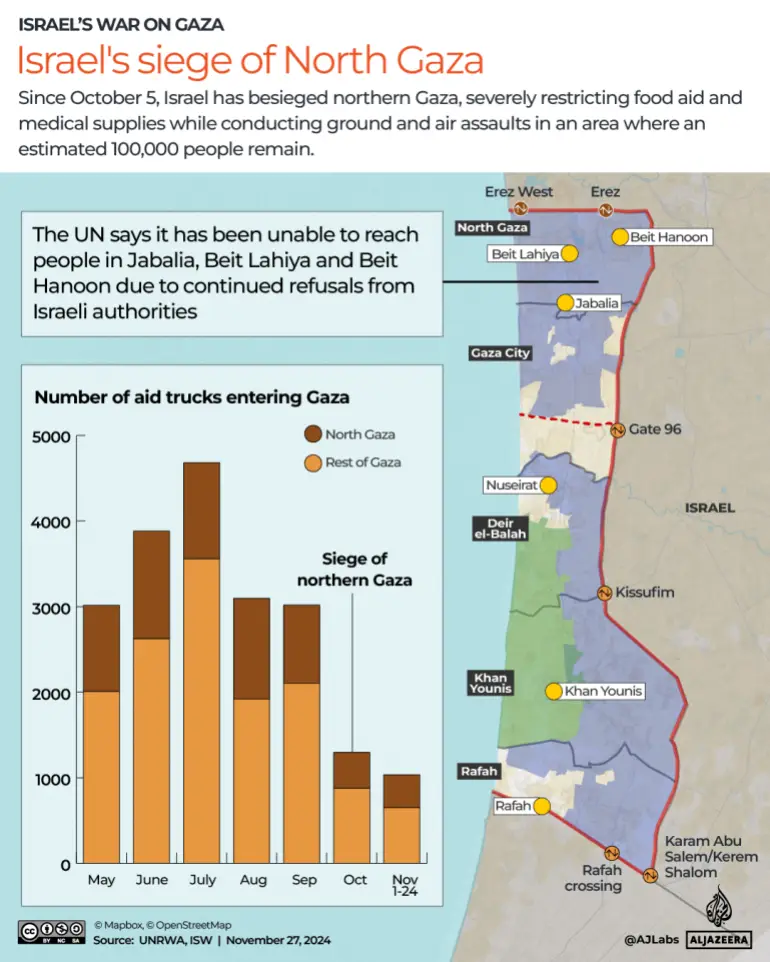
Funding
- As of 31 December, Member States have disbursed approximately $2.53 billion out of the $3.42 billion (74 per cent) requested to meet the most critical needs of 2.3 million* people in Gaza and 800,000 people in the West Bank, including East Jerusalem, between January and December 2024. For funding analysis, please see the Flash Appeal Financial Tracking dashboard. (*2.3 million reflects the projected population of the Gaza Strip upon issuance of the Flash Appeal in April 2024. As of July 2024, the UN estimates that approximately 2.1 million people remain in the Gaza Strip, and this updated number is now used for programmatic purposes.)
- On 11 December 2024, the UN and humanitarian partners launched a Flash Appeal for nearly $4.07 billion to address the humanitarian needs of three million out of 3.3 million people identified as requiring assistance in Gaza and the West Bank, including East Jerusalem, in 2025. Nearly 90 per cent of those funds are for the humanitarian response in Gaza, with just over 10 per cent for the West Bank. The $4.07 billion ask is much less than what is actually needed to mount a full-scale humanitarian response, which would require $6.6 billion. However, the Flash Appeal reflects the expectation that aid organizations will continue to face unacceptable constraints on their operations in 2025. This will severely limit the amount of assistance that humanitarians are able to provide, which in turn will only increase the suffering that Palestinians are enduring. The appeal stresses that, to be able to implement the full scale of what is urgently needed, Israel must take immediate and effective measures to ensure the essential needs of civilians are met. This includes lifting all impediments to aid and fully facilitating humanitarian operations, including the distribution of essential goods to Palestinians in need.
- During November, the oPt Humanitarian Fund (oPt HF) managed 124 ongoing projects, totalling $91.7 million. These projects aimed to address urgent needs in the Gaza Strip (89 per cent) and the West Bank (11 per cent) and are strategically focused on education, food security, health, protection, emergency shelter and non-food items, water, sanitation and hygiene (WASH), coordination and support services, multi-purpose cash assistance and nutrition. Of these projects, 70 are being implemented by international non-governmental organizations (INGOs), 40 by national NGOs and 14 by UN agencies. Notably, 50 out of the 84 projects conducted by INGOs or the UN are being implemented in collaboration with national NGOs. Monthly updates, annual reports, and a list of all funded projects per year, are available on the oPt Humanitarian Fund webpage, under the financing section.
908.


31 december 2024
Gaza has not raised the white flag, and neither will we!
As the world enters a new year, many hope for a brighter and more prosperous future, free from political crises, natural disasters, epidemics, and wars. While people across the globe celebrate the New Year, the Palestinian people—particularly those in the Gaza Strip—mark the beginning of 2025 by enduring the 15th month of a brutal genocide waged by Israel. This ongoing atrocity has claimed the lives of tens of thousands, the majority of whom are women and children.
The fascist government in Israel continues to demonstrate a blatant disregard for human and moral values. Recently, Israel targeted and destroyed Kamal Adwan Hospital in the northern Gaza Strip, burning it to the ground. It has shown no hesitation in killing hundreds of patients—most of them women and children—along with doctors and paramedics. Tragically, many victims are buried beneath the rubble of their destroyed homes. And with the wholesale destruction of Gaza’s health sector, the wounded have no hospitals to go to for treatment.
Israel could not commit these war crimes without the blind and unconditional support of the United States. The Biden administration, including President Biden himself, bears direct responsibility as a partner in the ongoing genocide in Gaza. Unfortunately, the incoming Trump administration has signaled its intent to provide even greater support for Israel to continue its crimes. This heightens our responsibility as Americans to refuse to let such shameful actions be carried out in our name.
Since Israel began its genocide in the Gaza Strip, we have mobilized every effort to end American complicity. We have taken to the streets across the country, pressured decision-makers in the administration and Congress, and helped pass dozens of ceasefire resolutions in cities and towns nationwide. If the Palestinian people in Gaza—who have endured siege, hunger, massacres, and destruction—have not raised the white flag, neither will we. We will continue working to end the injustice against them and refuse to be complicit through silence in the atrocities committed in our name and funded by our tax dollars.
AMP is prepared to expand on this work in 2025 and beyond. Let us make this new year an opportunity to build greater strength and influence—not only to end the current aggression against Palestinians but also to prevent future atrocities. Together, we must be part of the movement to dismantle the Israeli regime of occupation, apartheid, and fascism in Palestine.
Sincerely,
Dr. Osama Abuirshaid
907.


31 december 2024
Please read this important message from Craig Mokhiber, International human rights lawyer and activist. Craig became a Mondoweiss contributor after leaving his position at the UN for their inaction to stop the genocide in Gaza.
Mainstream media is complicit. In 2025, Mondoweiss’s role will be critical. Sofia Farah, Mondoweiss
I have spent four decades in the international human rights movement as an international lawyer and activist. Before October of 2023, my platform was the United Nations, where I had served across causes and across continents for 32 years.
I left because I saw the UN increasingly practicing a kind of self-censorship, driven by fear of Western powers and of Israel lobby smears. When there was an attempt to extend that censorship to me, I knew it was time to leave. Because those who live in an age of genocide have a duty to bear witness.
But how can this be done, when the same powers engaged in the slaughter of innocents are also dedicated to the destruction of the truth? Israel, the U.S., the UK, Germany, and other states allied in the cause of genocide have drawn a curtain of propaganda and genocide denial around the horrors in Palestine.
Western media corporations (both print and broadcast) have dedicated themselves to running cover for the genocide, and social media companies are using their algorithms of deception to suppress the truth and amplify Israeli propaganda. Those speaking out through public protest in the West are silenced with police violence, smears of “antisemite” or “supporter of terrorism”, expulsion from universities, or fired from their jobs.
Without independent media, living in a perpetrator state is to live in moral silence and darkness. Our eyes are covered by the captured hands of Western governments, and our ears are covered by the complicit hands of Western media.
Only independent media can light the way. And when it comes to events in Palestine and Israel and the role of the U.S. and the broader West in those events, there is no better source than Mondoweiss in the Western hemisphere.
906.

31 december 2024
Additional reading and viewing suggestions
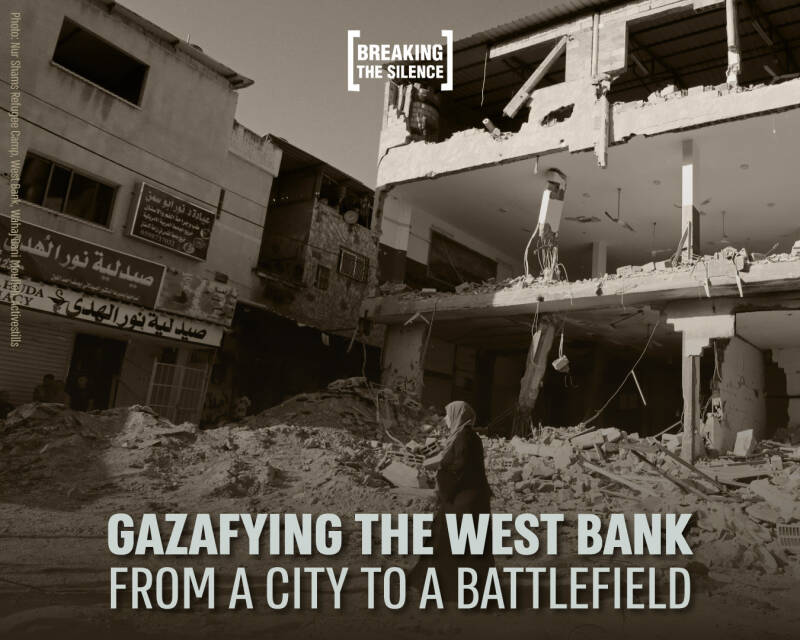


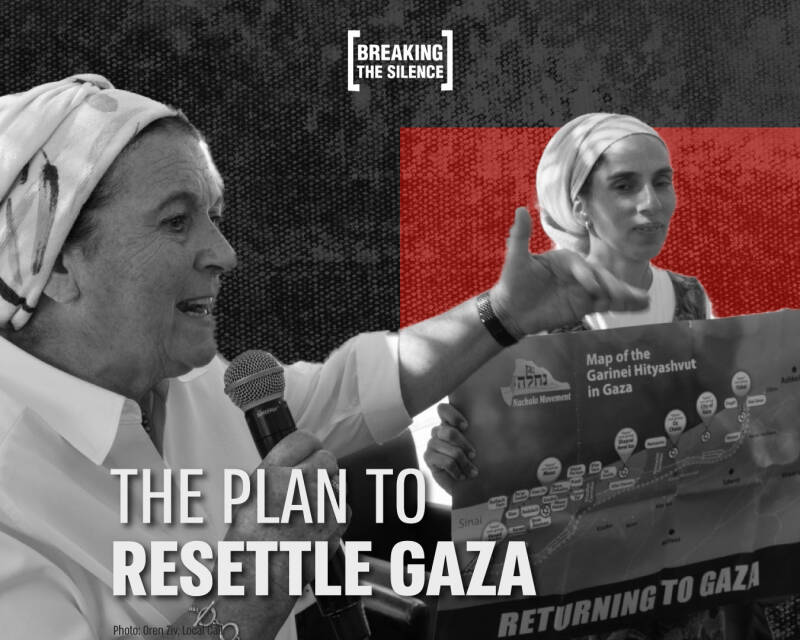
How we fought in Gaza
Many soldiers have given us their testimonies on previous Israeli military campaigns they took part in, in the Gaza Strip. Looking back can help understand the reality we see unfolding and the choices we face today.
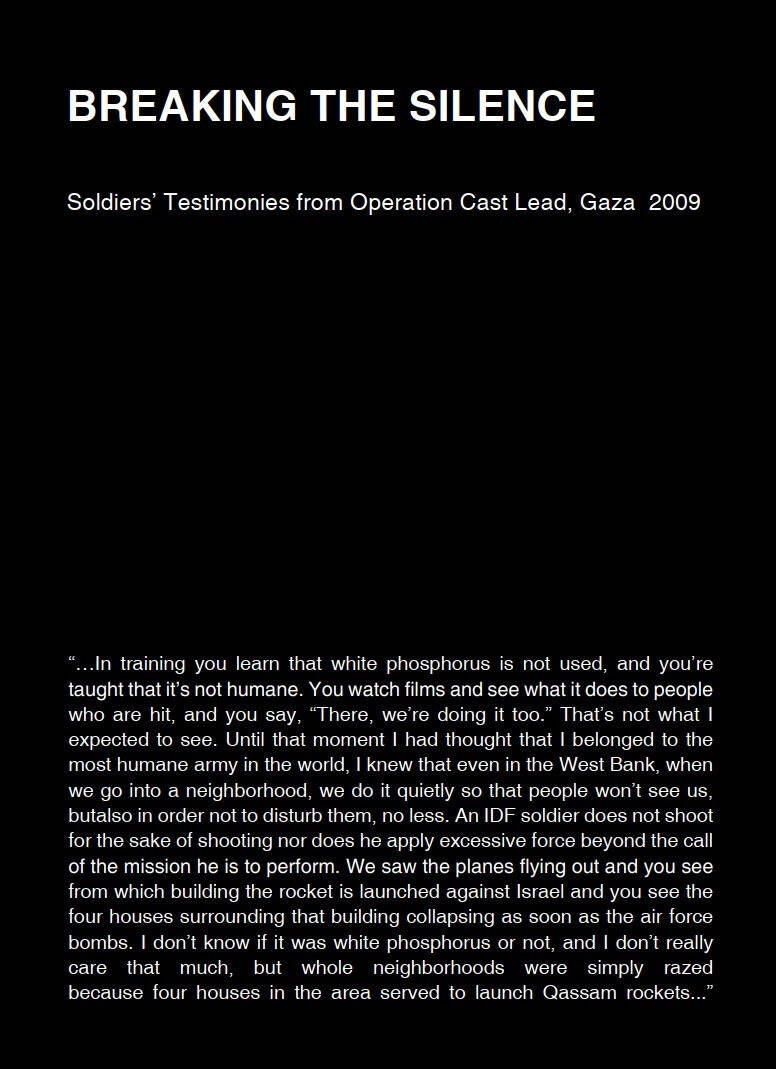
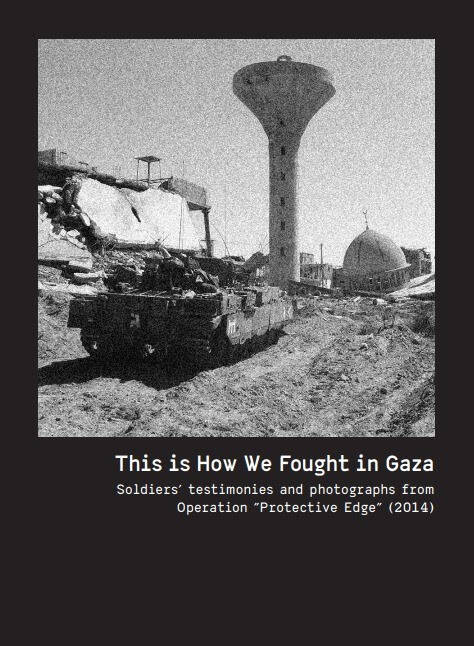
905.

31 december 2024
Today's headlines
My family’s dreams for the new year amid the Gaza genocide
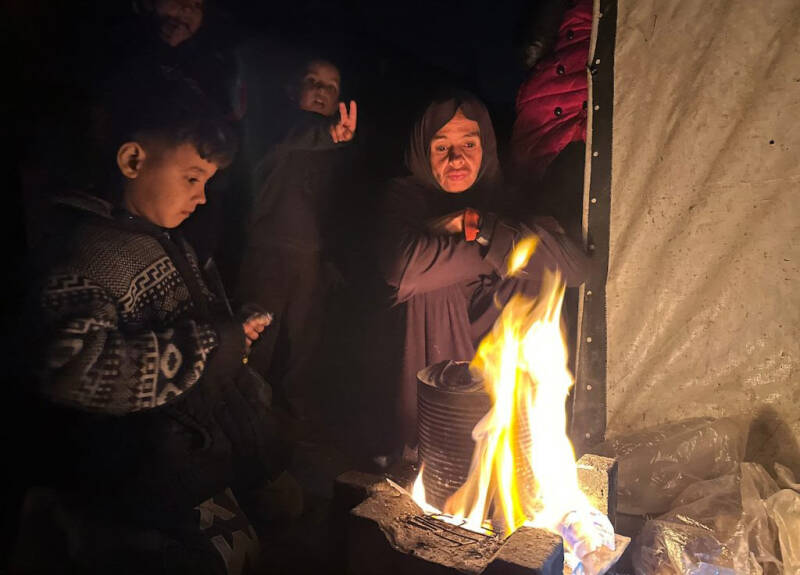
As my family huddled around a fire to protect ourselves from Gaza's bitter cold we each shared our hopes for the new year. While we each had our own special wish one thing is clear: none of us can endure another year like this one.
When Democrats and liberals smeared Jimmy Carter for criticizing Israel

Jimmy Carter, who died on Sunday at the age of 100, was attacked for telling the truth about Israel. Many Democrats joined the smear campaign.
904.


31 december 2024

Israel just destroyed Kamal Adwan Hospital—the last major medical facility in northern Gaza. Doctors kidnapped. Patients murdered. Medics burned alive.
Arabic media is reporting these atrocities. But U.S. mainstream media? Almost complete silence.
The truth is that Israel gets away with attacking hospitals like this because the media decides to ignore it. This silence enables genocide. But we can break it.

MAKE MEDIA COVER GAZA HOSPITALS
Your emails and calls matter more than you know. When CNN and NBC get flooded with emails about the same story, they're forced to pay attention.
350 Palestinians, including patients and medical staff, have been forced out of Kamal Adwan. The hospital director Dr. Hussam Abu Safiya and staff have been abducted. This is a war crime happening in real time.
The media won't cover this on their own. They need to hear from us. After you email, call up media outlets next.
Onward to liberation,
AHMAD ABUZNAID
903.


30 december 2024
Donald Trump has vowed to “set the Palestine movement back 30 years.” Now, as he gets ready to enter the White House, he appears poised to follow through on that promise.
This threat will be multi-pronged. It will include attacks on Palestine activists, restrictions on freedom of speech, penalties against pro-Palestinian organizations, and, of course, overwhelming support for Israel’s efforts to erase Palestinians once and for all.
Trump is taking aim at all those who stand up for Palestine - which includes us here at Mondoweiss. With your support, we are ready to take on the challenge head-on.
902.


30 december 2024
We want to take a moment to express our heartfelt thanks to all of you who have supported our work in the various ways you have.
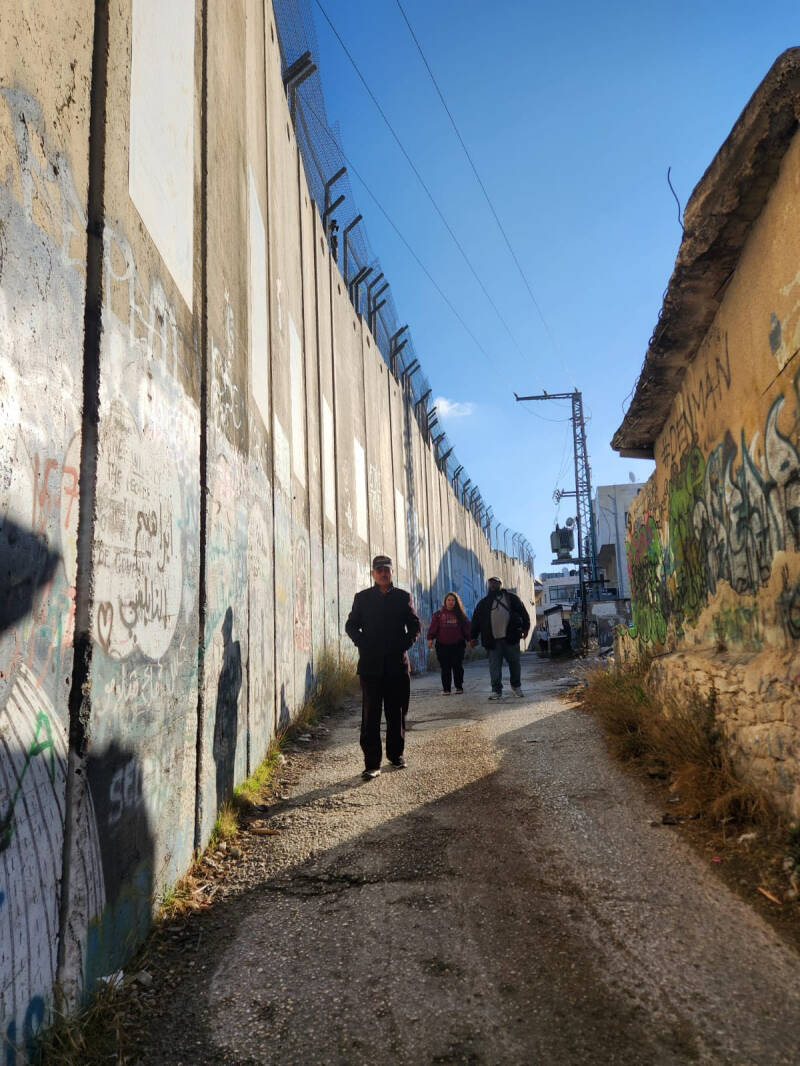
Pictured above: Dec 2024 - Our tour guide Said Rabea, Larry McCullough, and Sophia Dancel walking alongside the apartheid wall in Bethlehem.

Pictured above: Dec 2024 - D74 delegates with EP staff in the Jordan Valley
In solidarity and toward a liberated Palestine,
Executive Director
Eyewitness Palestine
Email: nancy@eyewitnesspalestine.org
901.


30 december 2024
We have reached the end of the year and it is time to plan for the future of our work in Hebron. But first, we want to give you a brief overview of what last year looked like—our successes and hope for the future!
For our volunteers on the ground, this year has meant new challenges. They had to keep up their human rights work while also looking out for their own survival. Yet we continued our work for human rights and justice for all.
Here is a brief overview of the successes and setbacks for our work. Despite the challenges, we managed to carry out the projects on the ground and advocacy work that we had planned for.
Helping 600 struggling families
Friends of Hebron provided aid to around 600 struggling families during a time of need. The genocidal war in Gaza resulted in severe economic devastation in Hebron, and families were going hungry. We fundraised to provide families with essential aid and our volunteers carried the boxes through the checkpoints directly to the families' doors.

Media Outreach
Our team has been a main reference point for international media for stories on the West Bank, settler violence, Israeli repression and of course Hebron specifically. We have stayed in touch with journalists, connected them with families on the ground, and taken them to visit Hebron for reportage. Since October 2023, our volunteers and executive director Issa Amro have been featured in numerous articles and montages of the New York Times, CNN, BBC, ABC, NPR, The Associated Press, Al Jazeera, The Guardian, Last Week Tonight, and many more.
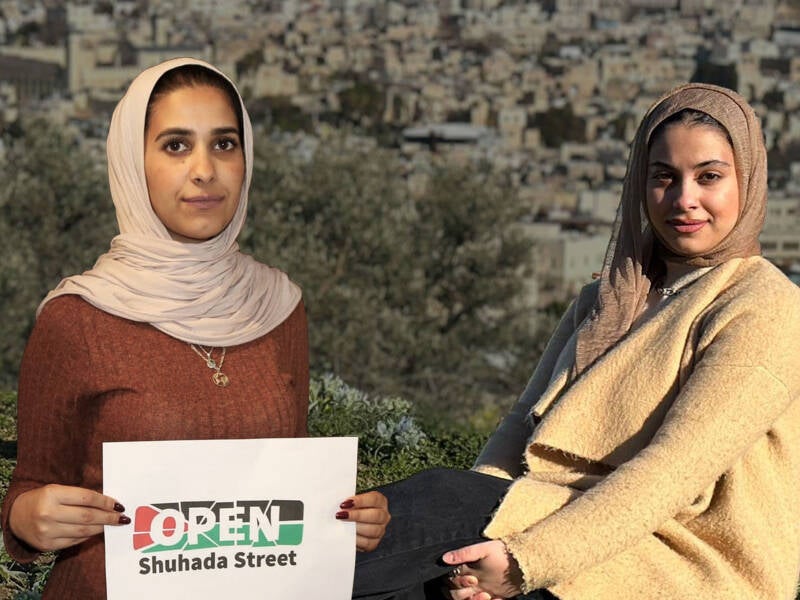
Speaking Tours and Women Empowerment
We have sent volunteers abroad to tell their stories. This includes the sisters Sundus and Aysha Azza who toured Belgium to tell their stories of growing up right next to fanatic Israeli settlers in Hebron and their work with Youth Against Settlements. They presented the 'Om project – a book about women in Hebron telling their own stories.

Olive Harvest For Peace
We supported local families with our annual Olive Harvest campaign to support the ancient practice of the olive harvest. Our volunteers – Palestinian and international – showed up to protect families and help them harvest their olives, as well as harvest the olives for families living outside the restricted area, who were prevented by Israeli forces from entering their own land.
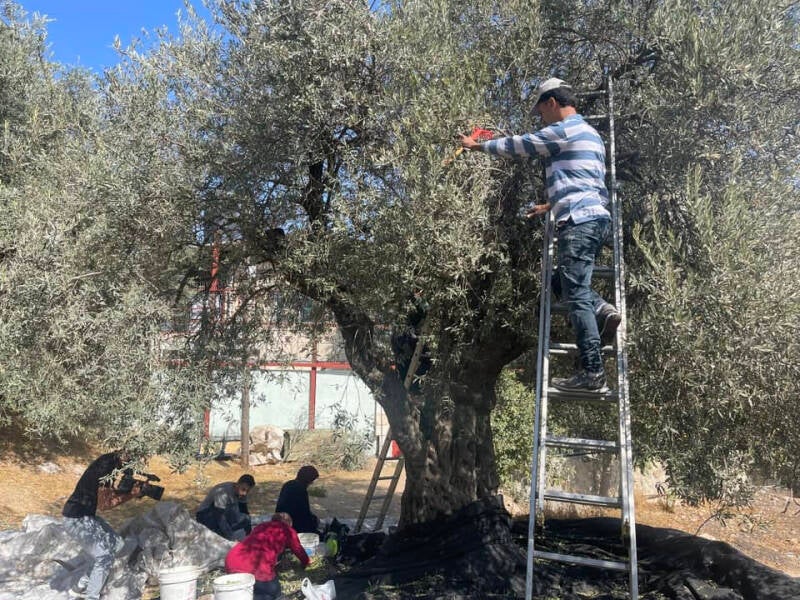
Winning The Right Livelihood Award
On December 4th, our Executive Director Issa Amro traveled to Stockholm, Sweden to accept the "alternative Nobel Prize" awarded to him and Youth Against Settlements, which is supported by Friends of Hebron as a sister organization. Meanwhile, Israeli settlers used Issa's absence to attack his house in Hebron, which was thankfully being watched by one of our other brave volunteers who could protect the house from being taken over.

"Generations have lived and died without ever knowing freedom!"
Watch Issa's full speech at the Right Livelihood Award ceremony here!
Receiving the Franco-German Human Rights Prize – Stopped at Checkpoint
On December 10th, representatives from the French and German government presented Issa Amro with the Franco-German Prize for Human Rights Prize and Rule of Law. The Israeli military refused to let the German and French officials enter and reach Issa's home, and they were forced to give the award outside the checkpoint instead. International recognition helps ensure the protection of activists like Issa and others like him.
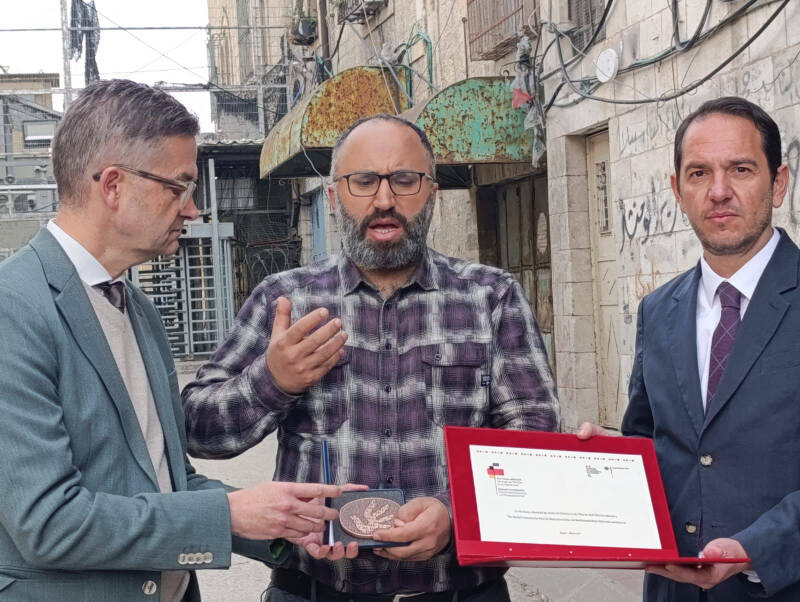
Until next time
We wish you all a Happy New Year from our team on the ground in Hebron and our team internationally. We are in this together for the struggle for freedom, justice and equality for all. At the beginning of next year, we will send you an overview of our plans for our future work. Until then, we hope that you will make a New Year's resolution for peace and human rights and sign up to support our work in Hebron!
With peace,
Friends of Hebron
Working for Peace and Justice
www.hebronfriends.org
900.


30 december 2024
Today's headlines
One year since South Africa v. Israel at the ICJ. What have we learned?
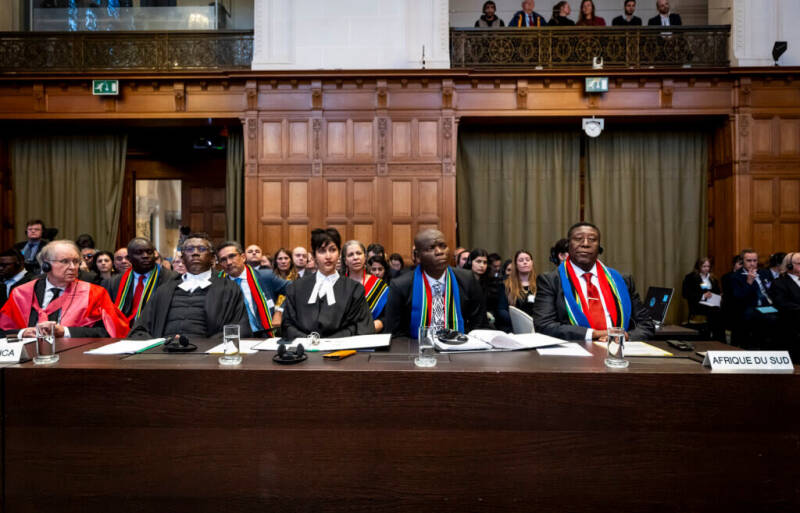
Today marks one year since South Africa filed the landmark case against Israel at the World Court, charging Israel with the crime of genocide.. But as the slaughter in Gaza continues, the question remains: what did the case can achieve?
Demand the reinstatement of Dr. Rupa Marya at UC San Francisco
Alice Rothchild
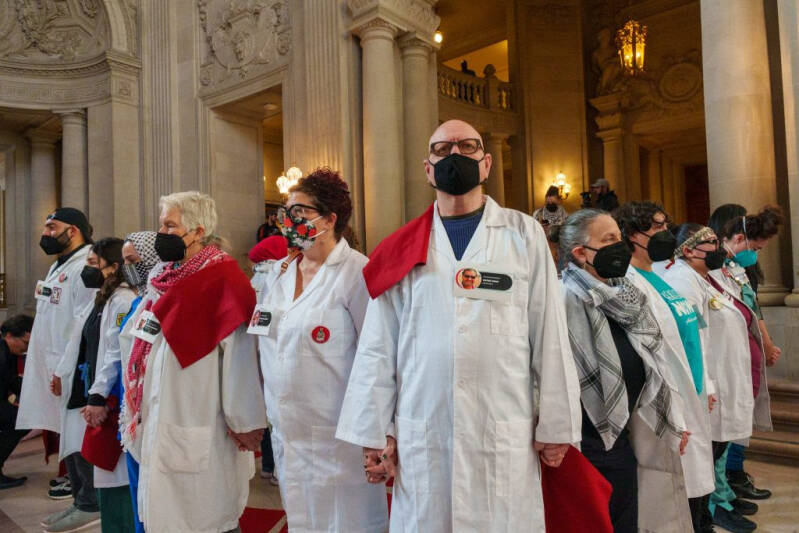
UCSF placed Dr. Rupa Marya on leave and threatened her medical license after she questioned admitting students who served in the Israeli military.
899.


30 december 2024
Attorney Michael Sfard, Co-Founder and Legal Advisor for Yesh Din:
Stop Ben-Gvir and Smotrich – Join the Struggle Against Settler Violence
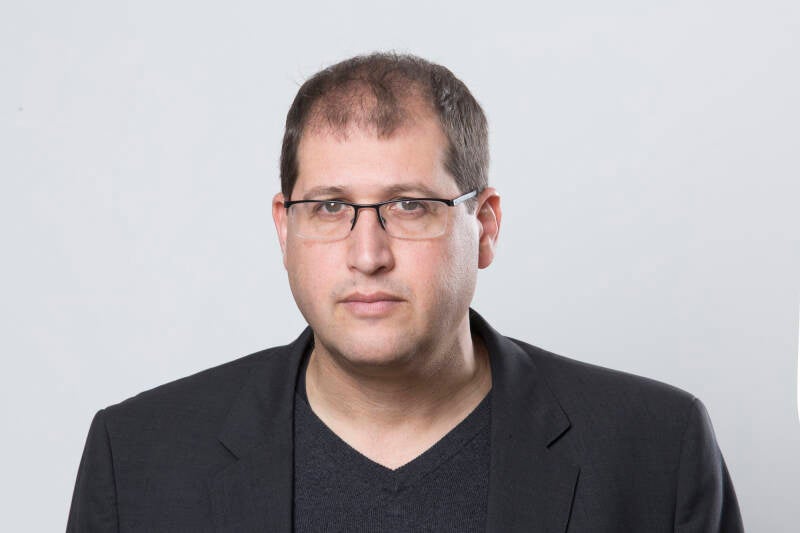
Photo: Yanai Yechiel
For nearly three decades, I have been representing Palestinians who are victims of settler violence. The situation has never been good, but the recent period is undoubtedly the worst we’ve seen. Emboldened Jewish supremacy has reared its ugly head with unprecedented brutality. A wave of settler violence is devastating entire communities, stripping them of their sense of security, and leaving destruction and fear in its wake. This violence is not spontaneous—it is part of a coordinated and organized effort aimed at exerting pressure, displacing populations, and denying Palestinians their basic human rights.
Standing up against this phenomenon are the members of Yesh Din, who are on the ground daily—documenting events, filing police complaints, submitting petitions to the courts, publishing reports and data, and leading a relentless and ongoing public and legal battle. This work, critical for the protection of human rights and reducing violence, requires your support.
The current government, led by Ben-Gvir and Smotrich, not only fails to act to prevent this violence but often denies its very existence or even supports it. Instead of condemning the offending settlers and taking firm action to prevent violence, the government chooses to back preferential laws for settlers and intensify settlement activity in the West Bank. This policy encourages violence, and enables it to spread and to escalate. We cannot stand idly by in the face of a policy that exacerbates the pain and suffering of Palestinian communities.
As someone who co-founded Yesh Din and has supported it from its inception to this day, I know how essential it is to continue this work. We cannot fight this battle alone. Every contribution you make to Yesh Din will enable us to deepen our legal efforts, enhance monitoring and reporting, and ensure that violence does not go unanswered.
Join us in the struggle for justice and human rights

Yesh Din is required by law to make the following statement:
Yesh Din is mostly funded by foreign governmental entities - through grants devoted to the provision of humanitarian assistance and the promotion of human rights. A list of our donors is available on the Israeli Associations Register's website and on Yesh Din's website. Yesh Din is proud to be funded by States that are committed to the rule of law, that believe the occupation is not an internal Israeli matter, and that support the defense of international humanitarian law and human rights.
898.


30 december 2024
Hopes for a ceasefire while Israel ethnically cleanses northern Gaza
Reports suggest that negotiations over a ceasefire in Gaza may have gained momentum this week. But are these efforts genuine, or merely a smokescreen enabling Israel to continue its genocidal assault? Meanwhile, Israeli attacks have escalated, targeting what remains of Palestinian civil society in northern Gaza.
Our correspondent, Tareq Hajjaj, has filed several harrowing reports detailing the Israeli military’s siege of Kamal Adwan Hospital in Beit Lahia. He wrote:
For 75 days, the hospital has been under siege by the Israeli army, which has banned the entry of food, medicine, and water, while periodically cutting off communications inside the hospital, preventing doctors and patients from communicating with the outside world.
Since publishing that report on December 25, the Israeli army has seized the hospital, expelling patients and detaining staff. Some staff members were reportedly killed. The hospital is no longer operating.
This horror is part of a devastating 15-month campaign, during which the U.S. government has consistently shielded Israel as the Israeli army carries out ethnic cleansing in plain sight of the global community. While incoming U.S. President Donald Trump has expressed a desire for a ceasefire before his January 20 inauguration, expectations for his second term remain grim for Palestinians. His son-in-law, Jared Kushner, has even speculated about the lucrative real estate opportunities on Gaza’s Mediterranean coast once Palestinians are displaced.
As 2024 draws to a close, it is staggering that this violence has been allowed to continue unchecked. It feels as though we are sleepwalking into the collapse of what little remains of international order. Now, more than ever, civil society worldwide must resist the complicity of governments enabling this catastrophe as we prepare to enter 2025.
Mondoweiss remains steadfast in our mission to deliver critical, independent reporting. Over the past few weeks, you’ve likely seen our flurry of fundraising emails. We know you may be receiving similar appeals from other essential organizations, and we thank you for sticking with us.
The reality is we still need to raise about $130,000 by year-end to sustain and expand our work. The demand for our coverage continues to grow, as do the threats to independent media like ours. We are working diligently to prepare for these challenges, but it requires resources.
If you haven’t donated yet, please make a contribution today. If you’ve already given, thank you so much. And if you can spare a little more, we deeply appreciate it. Your support keeps us independent and ensures we can continue reporting on Palestine with a focus on justice and grassroots movements.
Thank you for standing with us.
David Reed, Publisher
How to envision the future of Gaza
= As hopes for a ceasefire draw closer, plans for the “day after” in Gaza are coming closer
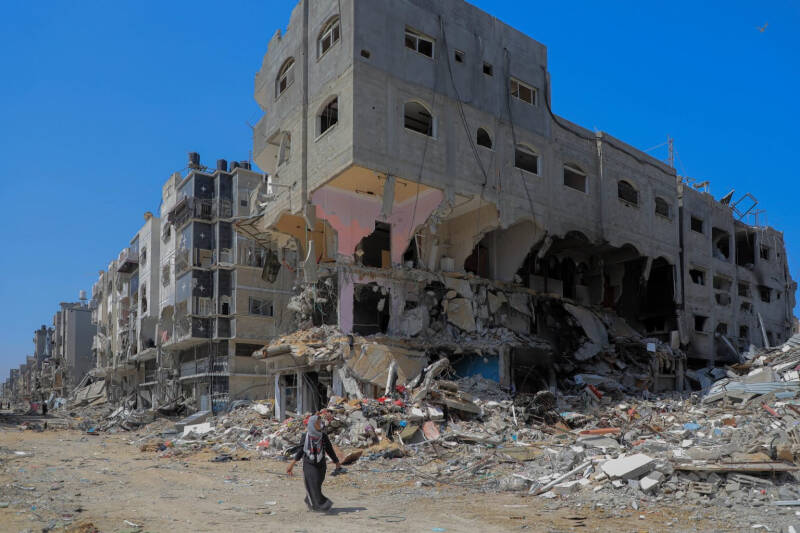
Catch-up
= The Israeli army raided the Kamal Adwan Hospital in northern Gaza, with more than 350 people inside at the time of the attack. Female staff told journalists that they were forced to strip off their clothes by soldiers and were beaten if they refused. Tareq also wrote about children in Gaza dying of hypothermia during the winter.
= On December 12, the Biden administration released its National Strategy to Counter Islamophobia and Anti-Arab Hate. But as Biden speaks of “countering hate,” he continues to expedite the shipment of weapons that are being used to kill Palestinians.
= A new report by Israeli news outlet Ynet reveals a disturbing picture: as Palestinians in north Gaza face starvation and extermination, a nearby ‘resort’ has been established for Israeli soldiers to relax and unwind in between their deployment.
897.


29 december 2024
Today's headlines
Mapping the genocide in Gaza
Forensic Architecture’s latest report documents the extent and intent of Israel’s assault on the Gaza Strip, strengthening South Africa’s case in the ICJ charging Israel with the crime of genocide.
Coalition of labor, community, and faith groups wins victory for the BDS movement in California
Organizers in Alameda County, CA, scored a BDS victory in December when the Board of Supervisors voted to develop an ethical investment policy that could divest tens of millions of dollars from companies profiting off Israeli genocide and apartheid.
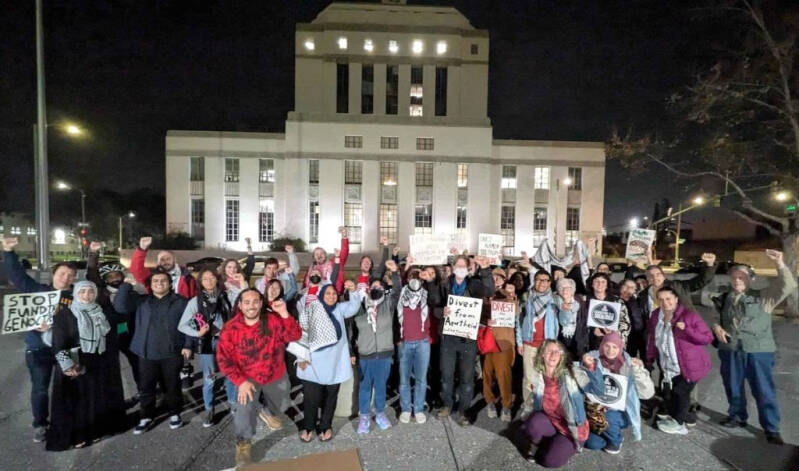
896.


29 december 2024
We really need you to read this message from our Founder and Senior Editor, Phil Weiss.
The threat to your right to protest, and our right to publish critical news about Palestine is urgent.
The political climate in America is deeply dispiriting. Leaders are set to destroy your civil right to protest. They say that Zionism, an ideology you hold in disregard because of its real impact on a subject population, is the same as Jewish identity so you must hate Jews.
At Mondoweiss, we have been writing about the manipulation of Judaism for 18 years–pro-Israel hacks are hollowing out a religion in the service of a brutal regime of persecution. We can't stop now.
We have keenly felt the limits of our own understanding and actions in the last year. Everything that we believed should unfold in Israel and Palestine didn’t. Nonviolent resistance, BDS, a single democratic state – these dreams seem as distant as they have ever been, buried under the rubble of yet another genocidal attack.
But still, we have power. We would not be doing this work if we did not feel that we have power. The overwhelming truth of the last year is that Israel cannot convince anyone outside its privileged circle of its right to discriminate against non-Jews so it must try to erase any resistance, of arms or thought. Its answer is genocide.
Our moral imperative is to continue reporting. Time is running out for us.
Phil Weiss, Founder & Senior Editor
895.


28 december 2024
Today's headlines
All contact lost with Kamal Adwan Hospital staff and patients as Israel raids north Gaza hospital
Tareq S. Hajjaj
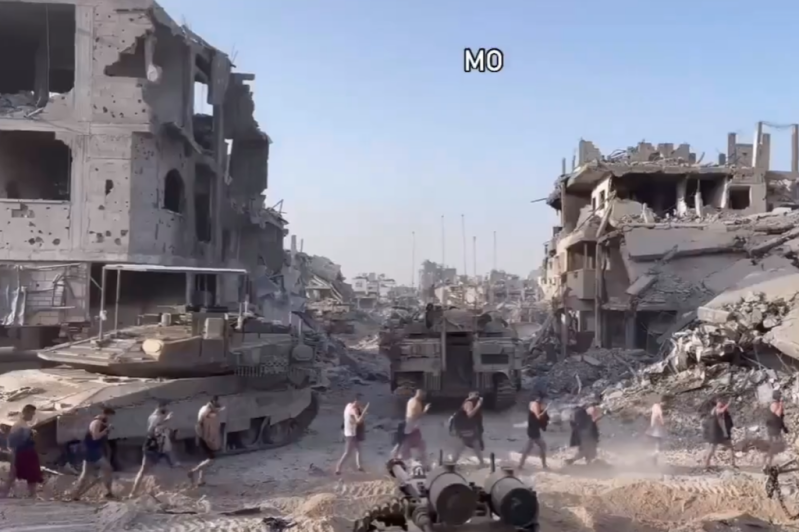
The Israeli army raided the Kamal Adwan Hospital in northern Gaza, with more than 350 people inside at the time of the attack. Female staff told journalists that they were forced to strip off their clothes by soldiers and were beaten if they refused.
Read more
Children are freezing to death in Gaza
Tareq S. Hajjaj
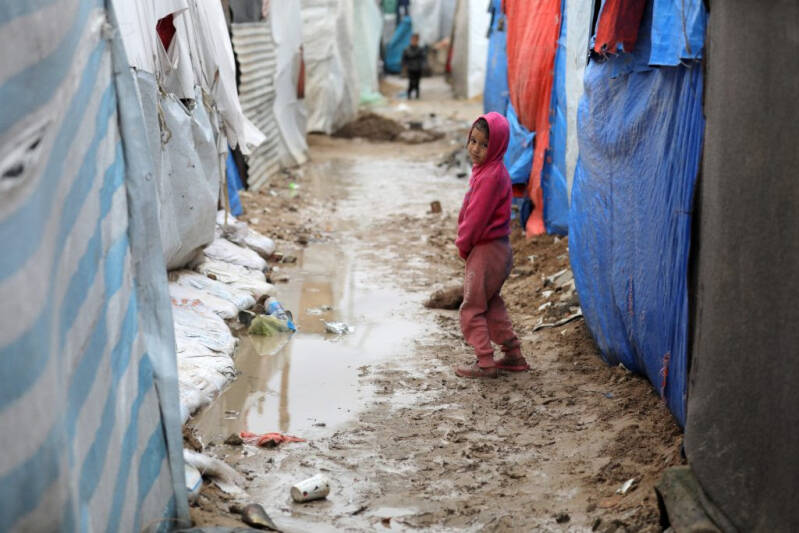
On December 26, Gaza's health ministry confirmed the fourth case of an infant freezing to death in 72 hours. A day later, a 28-year-old doctor also died due to hypothermia. There was one common denominator in each death: they were living in tents.
Read more
Educators sound alarm over ADL presence in schools

The Drop the ADL from Schools campaign seeks to challenge the role the Anti-Defamation League plays in promoting anti-Palestinian racism in K-12 schools across the U.S.
Read more
Israel kills 5 journalists, 5 hospital staff in 24 hours in Gaza
Tareq S. Hajjaj

The Israeli army targeted a press van in an airstrike outside a hospital, killing an entire crew from the Al-Quds TV network. One of the journalists was awaiting news from his wife inside the hospital, who was giving birth to their first child.
Read more
894.


27 december 2024
Help us continue the fight for justice and dignity for Palestinians in the year ahead
As we approach a new year, we reflect on both the challenges and the resilience of 2024. This year marked unimaginable suffering for Palestinians, particularly in Gaza, where families endured the horrors of genocide, and advocates across the country fought tirelessly against our government's genocidal policies. Through it all, your support made it possible for American Muslims for Palestine (AMP) to rise to the occasion.
Thanks to your exertions in 2024, together, we turned obstacles into opportunities for change and laid the groundwork for impactful advocacy and education.
But the fight is far from over.
In 2025, we must confront even greater challenges. The misinformation machine is only growing, and efforts to stifle Palestinian advocacy continue to expand. Yet with your help, we can meet these challenges head-on!
Mohamad HabehhDevelopment Director
894A.


27 december 2024
Back in August, I joined a march and action alongside other St. Louis community members commemorating 10 years since Michael Brown was shot and killed by police in Ferguson.
During the action, I found myself reflecting on how far we’ve come together—how movements have grown, how connections have deepened, and how we continue to fight for justice across struggles.
For Adalah Justice Project, Ferguson is a reminder that all fights for liberation—whether in Palestine, Ferguson, Atlanta, or Appalachia—are always interconnected.
As we head into Trump’s second term and an increase in repression, I’m reminded how our protection lies in and with each other.
At Adalah Justice Project, we believe everyday people are the drivers of change and that we each stand on legacies of resistance that demand we press forward—not only for ourselves but for the generations that will come after us.
Defeat is a privilege we cannot afford, and hope is the fuel that carries us forward.
Freedom for Palestine is freedom for us all
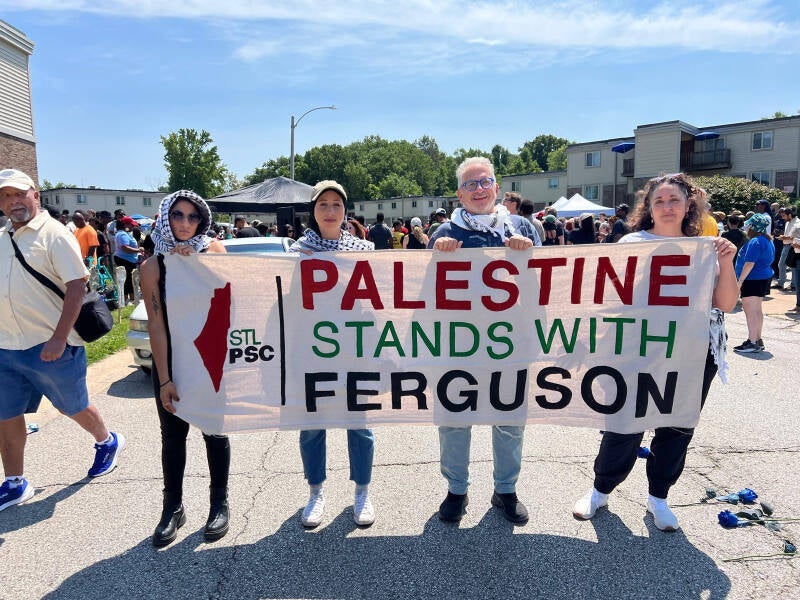
Adalah Justice Project marching in Ferguson, MO to mark 10 years since Michael Brown's killing by Ferguson police.
Our strength lies in our people and the transformative relationships we’ve built across movements.
These past 14 months of genocide in Gaza have been a testament to how important our relationships are. Together alongside other marginalized communities, we have shown the power of our joint struggle.
This is not transactional work. It’s not about checking boxes. It’s about dismantling every cage and breaking every shackle.
It’s about fighting together, across sectors and borders, because our collective liberation depends on it.
We’re building the power needed to fight fascism, militarization, and oppression—here and abroad.
Whether resisting cop cities, standing with immigrant communities, or fighting for Palestine, our belief is clear: when Palestine is free, we are all free.
In solidarity,
Sandra Tamari
Adalah Justice Project
893.


27 december 2024
Zojuist is per abuis een nieuwsbrief met een foutieve titel verstuurd. Bij deze ontvangt u alsnog de juiste versie.
Afgelopen dagen werd uitvoerig stilgestaan bij de geboorte van een kind in Palestina, ruim tweeduizend jaar geleden. Cynisch genoeg bereikten ons tegelijkertijd berichten over kinderen in Gaza die door onderkoeling om het leven kwamen.
En juist vanmorgen berichtte Al-Jazeera dat Israëlische troepen het laatste nog functionerende ziekenhuis – Kamal Adwan – in Bayt Lahiya in Noord-Gaza hebben ontruimd. Op foto’s is te zien dat het ziekenhuis in brand staat. Naar verluidt zijn 350 personen, onder wie alle patienten en medische staf, op straat gezet.
Op video’s zijn lange rijen Palestijnse burgers te zien die in hun ondergoed, de handen omhoog, worden gedwongen zuidwaarts te lopen. De in het gebied aanwezige Amerikaanse arts Mimi Syed sprak van het ‘einde van de menselijkheid’.
Het zijn deze gruwelijke berichten die ons duidelijk maken dat we ons werk voor rechtvaardigheid in Palestina-Israël met onverminderde inzet moeten voortzetten. Het goede nieuws is dat in de samenleving een duidelijke kentering zichtbaar is. Steeds minder mensen accepteren de decennia durende onderdrukking van de Palestijnen, en de medeplichtige rol die Nederland daarin speelt.
Daarin zullen wij voorop blijven gaan. Dat kunnen wij dankzij uw steun.

Graffiti op de Israëlische afscheidingsmuur in Bethlehem, op de bezette Westelijke Jordaanoever. De tekst leest: 'Vrolijk Kerstfeest aan de wereld, vanuit Bethlehem ghetto'.
Genocide? EU geeft Israël 238 miljoen euro voor onderzoek en innovatie
Sinds 2007 ontvingen Israëlische instellingen bijna 2,9 miljard euro aan Europese subsidies, gemiddeld ruim 160 miljoen per jaar. Dat blijkt uit onderzoek van Al-Jazeera. Daarvan werd 238 miljoen euro verstrekt in de periode sinds 7 oktober 2023 – de dag van de aanval van Hamas, en de start van Israëls genocide op de Palestijnse bevolking van Gaza; die duurt nu bijna 450 dagen, met ruim 45 duizend doden als gevolg. Des te schrijnender is dat het geld grotendeels terecht komt bij instellingen die vervlochten zijn met Israëls militair-industriële complex.

Tot de Israëlische instellingen die het meeste profijt hebben van de subsidies behoren acht universiteiten. Die maken van oudsher deel uit van het Israëlische regime van bezetting en kolonisering, zoals uitvoerig gedocumenteerd in het boek Towers of Ivory and Steel van de Israëlische onderzoekster Maya Wind. Eerder beschreven wij de rol van de Israëlische universiteiten bij het verspreiden van de propaganda die de weg plaveide voor Israëls genocide in Gaza.
Ook wapen- en techfabrikant Israel Aerospace Industries (IAI) profiteert van EU-subsidies. Dat staatsbedrijf produceert onder meer gevechtsvliegtuigen, drones, raketten en militaire technologie, en is een belangrijke leverancier van het Israëlische leger. Ook een andere beruchte wapenfabrikant, Elbit Systems, blijkt van Europese subsidies te hebben geprofiteerd.
Lees het hele artikel op onze site !
892.


27 december 2024
Today's headlines
Bloodstained hypocrisy: Biden’s bombs are louder than his words on Islamophobia

On December 12, the Biden administration released its National Strategy to Counter Islamophobia and Anti-Arab Hate. But as Biden speaks of “countering hate,” he continues to expedite the shipment of weapons that are being used to kill Palestinians.
891.


26 december 2024
Humanitarian Situation Update #250
West Bank
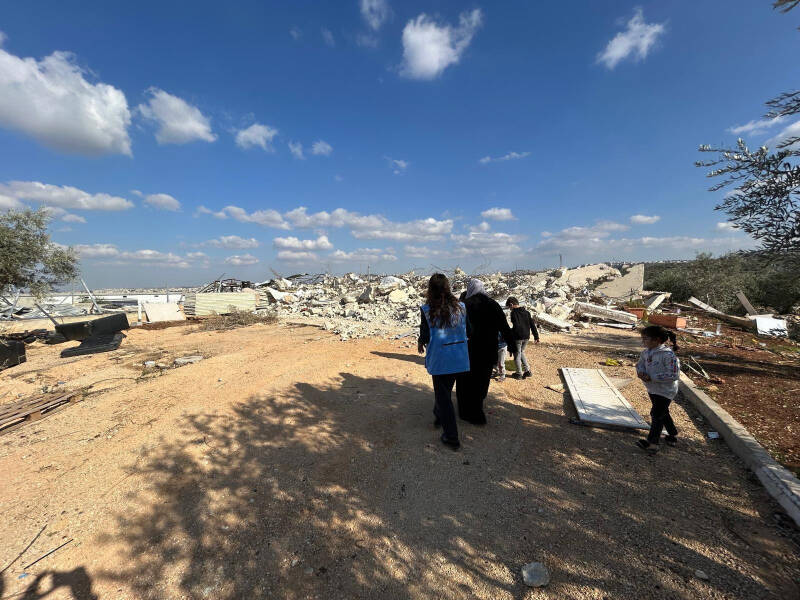
A Palestinian family from Deir Ballut, Salfit, shows an aid worker the three agricultural structures demolished by the Israeli Civil Administration, 17 December 2024. Photo by OCHA
Key Highlights
- Israeli forces killed 20 Palestinians in the West Bank, including at least 12 in airstrikes, in the last 10 days (17-26 December), and caused extensive infrastructural damage in Tulkarm’s refugee camps.
- Since the beginning of the operation by Palestinian forces in Jenin refugee camp on 5 December, eight Palestinians were killed, including four unarmed Palestinians, three members of Palestinian forces and one armed Palestinian. For the past 20 days, access to basic services, including education, water and health, has been severely disrupted.
- Israeli forces killed three Palestinians attempting to cross through informal openings in the West Bank Barrier, reportedly to access workplaces in Israel, out of a total of ten killed in similar circumstances since 7 October 2023, amid rising unemployment in the West Bank.
Latest Developments (after 23 December)
- On 24 and 25 December, initial reports indicate that Israeli forces killed eight Palestinians, including two women, during a 40-hour operation in Tulkarm and Nur Shams refugee camps. The operation involved drone strikes and bulldozing roads, resulting in extensive infrastructural damage, including to water, sewage, and electricity networks.
- On 25 December, initial reports indicate that Israeli forces targeted a house in Qaffin town (Tulkarm) with a shoulder-fired explosive projectile, killing one Palestinian.
- On 25 December, initial reports indicate that a Palestinian child died of wounds sustained the night before by an Israeli airstrike on Tammun town (Tubas).
- Initial reports indicate that, on 24 December, one unarmed Palestinian was killed by Palestinian forces in Jenin refugee camp and, on 25 December, one member of Palestinian forces died of wounds sustained on 22 December while dismantling an improvised explosive device (IED) in the camp.
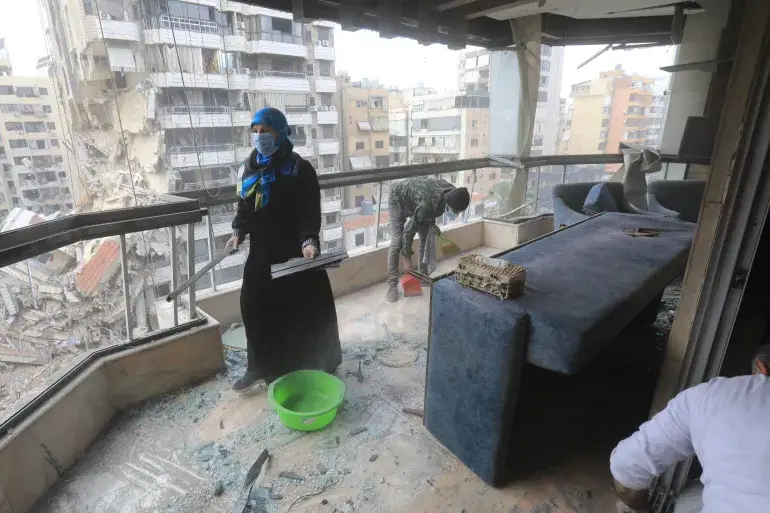
Humanitarian Developments (17-23 December)
- During the reporting period, Israeli forces killed ten Palestinians, including one woman, and injured 36 others, including ten children and one woman, across the West Bank. Three Palestinians, including a child and two members of the Palestinian forces, were killed in Jenin refugee camp within the context of the ongoing operation by Palestinian forces. For more information on casualties and further breakdowns of data, please see the monthly West Bank Snapshot. All the incidents resulting in fatalities and other key incidents are as follows:
- On 18 December, a Palestinian man died of wounds sustained the previous day during an Israeli operation in Qusra village (Nablus). According to local sources, during the operation, Palestinians threw stones at Israeli forces who opened fire as well as fired sound grenades and tear gas canisters. The man, who was reportedly standing on the roof of his house, was injured with live ammunition and three children were also injured: a two-month-old baby girl and a two-year-old baby boy suffered from tear gas inhalation that required medical intervention, and a 15-year-old boy sustained bruises after he was physically assaulted by Israeli forces.
- On 19 December, Israeli forces shot and killed two Palestinians and injured at least four others in Balata refugee camp. Fatalities included a man who was shot in the head while walking in front of his house, as shown in CCTV footage and reported by human rights organizations, and an 80-year-old woman with a hearing disability. Israeli undercover units initially entered the camp in a civilian vehicle and, when their presence was known, they and Palestinians exchanged fire, with the latter reportedly using explosive devices. UNRWA field office staff and over 3,000 pupils in four schools were trapped on the premises for approximately three hours.
- On 19 December, an Israeli airstrike hit a vehicle in Tulkarm refugee camp, killing four Palestinians and injuring three children by shrapnel. Following the airstrike, Israeli forces raided Tulkarm city and camp and bulldozed sections of the main road, causing damage to water and sewage networks.
- On 21 December, a six-year-old Palestinian child was killed by unexploded ordinance near Arab Ar Rashiyda Al Barriya in Bethlehem, in an area that had been declared a ‘firing zone’ for military training by Israeli forces. The boy was accompanying his father while herding sheep at the time of the incident.
- In two incidents, Israeli forces shot and killed three Palestinian men for attempting to cross through informal openings in the West Bank Barrier, reportedly to reach workplaces in Israel. Two of them were killed on 17 December, east of Qalqilya city, and Israeli forces handed over their bodies to the Palestine Red Crescent Society (PRCS) at Zufim Checkpoint. The third was killed on 21 December, when Israeli forces opened fire toward a group of Palestinian workers near the Barrier, close to Faqqu’a village (Jenin); the man later handed over to the PRCS by Israeli forces.
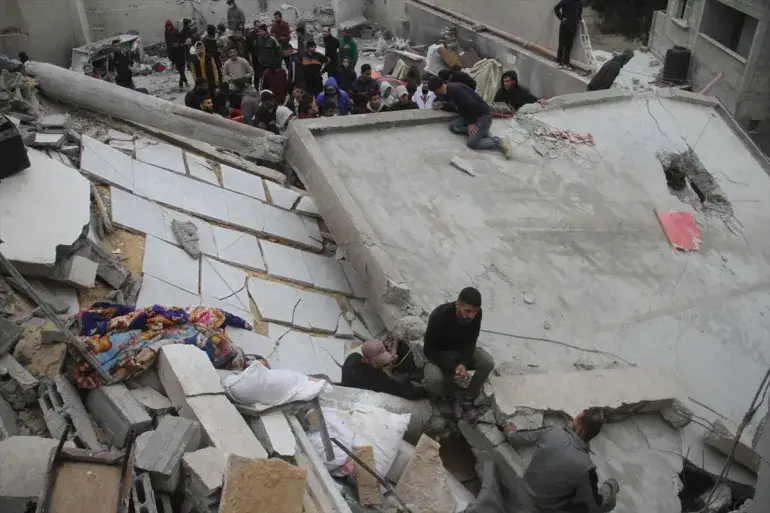
-
- On 22 December, a member of Palestinian forces was killed while dismantling an IED in Jenin refugee camp. Another member of Palestinian forces, who was injured in the same incident, succumbed to his wounds on 25 December (see latest developments above). On 23 December, a member of Palestinian forces was killed by live ammunition fired by armed Palestinians in the camp, and, on the same day, a 16-year Palestinian boy was shot and killed in unclear circumstances and where it remains unknown whether he was killed by armed Palestinians or Palestinian forces.
- Since 5 December, Palestinian forces have been carrying out an operation in Jenin refugee camp, during which they have arrested at least 60 Palestinians, exchanged fire with armed Palestinians, and closed off the camp’s entrances. In total, eight Palestinians were killed: four unarmed Palestinians including two children, of whom three were killed by Palestinian forces and one by either armed Palestinians or Palestinian forces; three members of Palestinian forces were killed, including two while dismantling an IED and one by armed Palestinians; and one-armed Palestinian was killed by Palestinian forces. For 20 days, UNRWA has been suspending its services in the camp, including at four schools serving about 1,700 students. On 20 December, UNRWA called for respect for the inviolability of its facilities, protected under international law, after becoming aware that armed Palestinians were occupying its health centre in the camp. According to UNRWA, it has been unable to access the camp due to the security situation and has no control over the health centre or its use. On 23 December, armed Palestinian reportedly vacated the health centre after five days. Jenin city and its camp have reportedly been on a general strike, and about 12,000 residents in the camp have had limited access to water and electricity. The rehabilitation of water networks, which were significantly damaged by previous Israeli military operations, has been on hold, affecting access to water for over 60 per cent of the camp's population while several generators have reportedly been hit, causing intermittent electricity and communication outages in multiple neighbourhoods inside the camp.
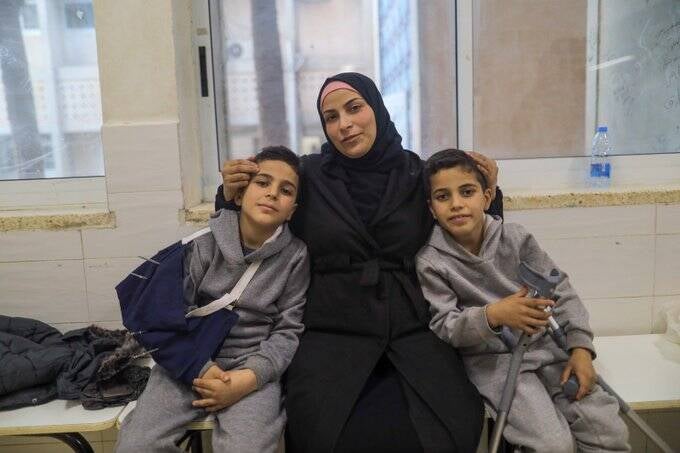
- Since 7 October 2023, a total of ten Palestinians, including three during the reporting period (see above), were killed and 78 were injured while trying to cross through informal openings in the West Bank Barrier, amid rising unemployment in the West Bank as highlighted by UNCTAD and ILO. In comparison, 15 Palestinians were injured within this context in the first nine months of 2023 and there were no fatalities. In September 2024, the United Nations Conference on Trade and Development (UNCTAD), highlighted a "rapid and alarming economic decline" in the West Bank since October 2023. Key drivers include the expansion of Israeli settlements, land confiscations, demolition of Palestinian structures, and increased settler violence. These factors have severely disrupted economic activities, displaced communities, and undermined critical sectors such as commerce, tourism, and transportation across the West Bank, including East Jerusalem. The International Labour Organization (ILO), in its October brief, similarly noted that “the labour market has borne the brunt of the war, with the unemployment rate in the OPT surging to 51.1 per cent, reaching 34.9 per cent in the West Bank and 79.7 per cent in the Gaza Strip.” Compounding this economic distress, since October 2023, Israeli authorities have revoked or suspended most permits previously issued to Palestinians for work in Israel and its settlements, including over 800 permits for nationally recruited humanitarian workers.
- During the reporting period, OCHA documented ten incidents perpetrated by Israeli settlers that led to damage of Palestinian property. These include three incidents of stone throwing at Palestinian vehicles travelling on roads 60 and 578 in Ramallah, Nablus and Tubas governorates, causing damage to at least four vehicles. On three occasions, Palestinians threw stones at Israeli settler vehicles travelling on roads 437 and 446 in Jerusalem and Ramallah governorates, causing damage to at least two vehicles. Key incidents during the reporting period include:
- On 20 December, three armed and masked Israeli settlers, believed to be from Tappuah settlement, broke into a mosque in Marda village, north of Salfit city, threw flammable materials inside, and wrote racist graffiti on the walls. Residents found the mosque on fire when they went to perform dawn prayers and began putting out the fire. This is the third mosque to be attacked by Israeli settlers in the West Bank in 2024; in January and February 2024, Israeli settlers opened fire toward mosques in Jalud and Naqura villages (Nablus), causing injury to one Palestinian and damage.
- 20 December 2024, a group of armed Israeli settlers raided Palestinian land in Area C in Adh Dhahiriya (Hebron) and vandalized a residential structure that was in its final stages of construction and was provided by an international NGO in response to a previous demolition carried out by the Israeli Civil Administration on 6 June 2024. The settlers damaged windows, external walls, and three water tanks.
- On 21 December 2024, Israeli settlers attacked the outskirts of Burqa village (Ramallah), destroying a residential unit and an agricultural tent. During the attack, Israeli settlers attempted to take over a livestock tent and a scuffle ensued with Palestinian residents. Israeli settlers subsequently vandalized a Palestinian house located near a new settlement outpost in the area, reportedly established on 16 December, damaging windows, a kitchen, a bathroom, and furniture.
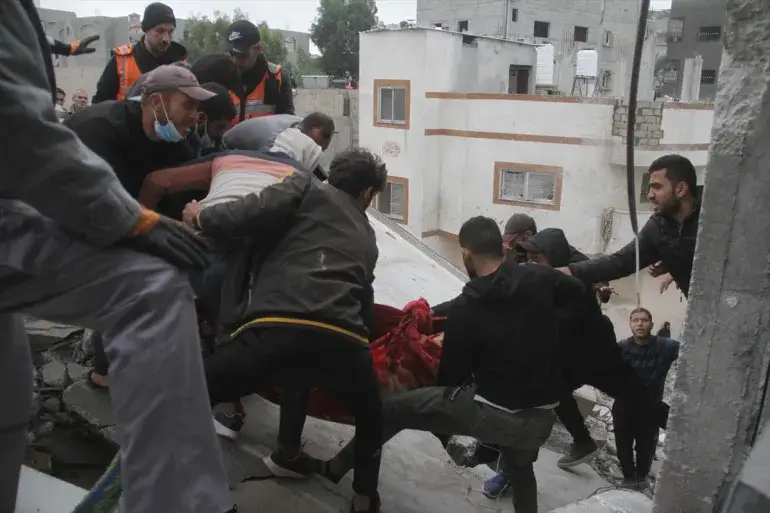
- During the reporting period, OCHA documented the demolition of 15 Palestinian-owned structures across the West Bank, including five in East Jerusalem and 10 in Area C, due to the lack of Israeli-issued building permits, which are nearly impossible for Palestinians to obtain. As a result, 22 people, including six children, were displaced and over 500 people were otherwise affected. Moreover, not reported previously, on 16 December, the Israeli authorities demolished seven commercial structures, including six shops and one big commercial centre comprising 26 shops, in Area C of Adh Dhahiriya town (Hebron) for lacking Israeli-issued building permits, affecting the livelihoods of 25 families comprising 178 people, including 101 children. Demolished structures included a wide range of shops and businesses, such as restaurants, vegetables and fruit shops, bakeries, a coffee shop, and a carpenter workshop, among others. Moreover, several water tanks were destroyed and some of the goods and equipment in the shops were damaged.
890.

26 december 2024
Today's headlines
‘We will leave when the last Palestinian leaves’: The defiant last stand of the doctors of Kamal Adwan Hospital
Tareq S. Hajjaj

For 75 days, doctors in this north Gaza hospital have withstood the Israeli army's attempts to forcibly evacuate them and their patients. In the face of death, the doctors are still refusing to leave, even as the army steps up its attacks.
Popcorn, cotton-candy and massages. Inside Israel’s new army ‘resort’ in northern Gaza
A new report by Israeli news outlet Ynet reveals a disturbing picture: as Palestinians in north Gaza face starvation and extermination, a nearby 'resort' has been established for Israeli soldiers to relax and unwind in between their deployment.
889.


26 december 2024
We are in the midst of an unprecedented refuser wave, with hundreds of soldiers refusing to carry out war crimes in Gaza. .
In a militarized society like Israel, built on mandatory service, refusal has always been a powerful way to force the government to change its actions. There can be no occupation with no soldiers.
As an academic researcher and lecturer, I study social movements that have brought wars to a halt. I know that historically, Israeli refusal movements were at the cente of putting a stop to Israeli atrocities. This has happened at least twice: in 1982, helping to end the Israel-Lebanon war and in 2002-3, helping to force Israel’s pullout from Gaza in response to the Second Intifada. Reservists are the backbone of the Israeli military, from ensuring the army’s day-to-day functioning to flying Israel’s warplanes in order to bomb the Strip. The army cannot carry on with its daily operations without them, which is why refusal is such an effective form of resistance that we must support at all costs.
The most powerful kind of support that our global supporters can offer us right now is long-term, for the years and decades to come. Even small monthly plans are what helps the Israeli refuser movement work towards the long-term, not to just end this war but to put a stop to all future wars and the occupation itself. This is our goal and we will, eventually, achieve it.
In solidarity,
Shimri Zameret
Chairman of the Board
Refuser Solidarity Network
888.


25 december 2024
Settler Violence is Real - Listen to the Victims, Donate Today
For nearly two decades, Yesh Din has been documenting settler violence in the West Bank against Palestinians and providing legal representation to victims. Now, more than ever, we need your support to fight this injustice.
On August 6, 2024, a large group of armed settlers entered the West Bank Palestinian village of Yatma in the West Bank. Two residents shared with us the harrowing events they experienced:
A’s Testimony:
"I saw a large group of masked settlers armed with guns and rods. It wasn’t completely dark yet, so I could see them clearly. They moved between the houses, throwing stones, and I also heard gunfire. Some of the settlers threw stones at my house, and a few entered my yard and set a fire near the front door.
There were tables and chairs there, and they poured flammable liquid on them and started a fire. After that, they left the yard and went to my uncle’s car lot, where they set vehicles on fire. [..] We were not physically harmed, but my wife, children, and parents were terrified."
K’s Testimony:
"I was on the roof of the house. My wife and daughters were inside. I saw a large group of settlers approaching my neighborhood [...]. Before long, the settlers reached my house and began throwing stones at it. There were more than 40 settlers, all masked and armed with weapons and iron rods. They threw stones at the balcony and shattered the windows. Some of them climbed the stairs to the second-floor balcony, poured flammable liquid through the broken windows, and set it on fire. They also tried to break down the front door to enter the house, but I managed to lock it from the inside, and they couldn’t get in. We hid in one of the rooms and waited.
The attacks lasted about 10-15 minutes until residents of the village arrived in the neighborhood and drove the settlers away. When I felt it was safe, I came out of the room. The fire had already started spreading into the living room, and I ran to extinguish it with a fire extinguisher. Neighbors came to help, and together we managed to extinguish the fire. We were not physically harmed, but my wife and daughters were overcome with terrible fear."
Don’t Let Them Deny it - Stop Settler Violence and its Enablers! Support Yesh Din Today.
Yesh Din is required by law to make the following statement:
Yesh Din is mostly funded by foreign governmental entities - through grants devoted to the provision of humanitarian assistance and the promotion of human rights. A list of our donors is available on the Israeli Associations Register's website and on Yesh Din's website. Yesh Din is proud to be funded by States that are committed to the rule of law, that believe the occupation is not an internal Israeli matter, and that support the defense of international humanitarian law and human rights.
887.


25 december 2024
Today's headlines
The PA Campagne contra the resistance in Jenin; Abbas, and the hellscape of Gaza

The PA's campaign contra the resistance in Jenin is breaking long-standing taboos against spilling Palestinian blood. It is also raising profound questions over the future of resistance in the face of the Gaza genocide.
Pope Francis condemns Israel’s bombing in Gaza—again
Pope Frances condemned the Israeli bombing in Gaza in his annual Christmas address, telling Cardinals and other senior leaders in the Vatican, “This is cruelty, not war."
886.


25 december 2024

Baking hope in Gaza: Making Christmas cookies in a displacement tent
A baker tries to bring a little joy into a displacement camp as everyone prays for an end to Israel's brutal war.

Inside the Gaza encampment at Columbia University
In April, pro-Palestine activists were arrested as universities began cracking down on Gaza solidarity movements on college campuses.
885.


24 december 2024
Humanitarian Situation Update #249
Gaza Strip
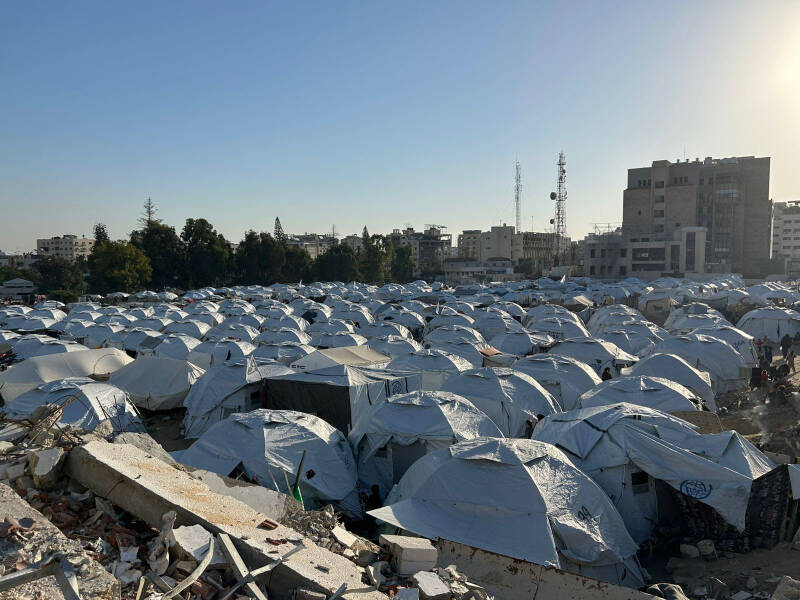
Closely packed tents in Gaza city hosting displaced people from North Gaza. Source: OCHA
Key Highlights
- North Gaza remains under a near-total siege. Since 1 December, Israeli authorities have denied 48 of 52 UN attempts to coordinate humanitarian access, while four approved movements all faced impediments.
- Attacks near or on Al Awda and Kamal Adwan hospitals in North Gaza have continued to be reported, amid an urgent need for food and water provision.
- Some 1.7 million people in central and southern Gaza face shortages of flour and other supplies, exorbitant costs, and scant opportunities to resume even small-scale farming.
- Only three ventilators for infants who need intensive care remain available in Gaza city, warns UNICEF, while doctors tell UNRWA that premature babies and patients with treatable illnesses are dying amid depleted medical supplies and lack of life-saving equipment.
Humanitarian Developments
- Israeli bombardment from the air, land and sea continues to be reported across the Gaza Strip, resulting in further civilian casualties, displacement, and destruction of civilian infrastructure. In the North Gaza governorate, the Israeli military has been carrying out a ground offensive since 6 October 2024, with fighting reported between Israeli forces and Palestinian armed groups. Israeli forces have continued to impose a tightened siege on Beit Lahiya, Beit Hanoun and parts of Jabalya and humanitarian assistance has been largely denied for more than 11 weeks (see data below). Rocket fire by Palestinian armed groups towards Israel was reported.
- On his first visit to the Middle East as Under-Secretary-General for Humanitarian Affairs and Emergency Relief Coordinator, Tom Fletcher highlighted the humanitarian needs throughout the Gaza Strip and the challenges facing humanitarian workers who are committed to stay and deliver against mounting odds: “[I]t has become almost impossible to deliver even a fraction of the aid that is so urgently required,” he said in a statement. “The Israeli authorities continue to deny us meaningful access – over 100 requests to access North Gaza denied since 6 October. We are also now seeing the breakdown of law and order and the systematic armed looting of our supplies by local gangs.”
- Between the afternoons of 17 and 24 December, according to the Ministry of Health (MoH) in Gaza, 279 Palestinians were killed and 723 were injured. Between 7 October 2023 and 24 December 2024, at least 45,338 Palestinians were killed and 107,764 were injured, according to MoH in Gaza.
- Between the afternoons of 17 and 24 December, three Israeli soldiers were killed in Gaza, according to the Israeli military. Between 7 October 2023 and 24 December 2024, according to the Israeli military and official Israeli sources cited in the media, more than 1,589 Israelis and foreign nationals were killed, the majority on 7 October 2023 and its immediate aftermath. The figure includes 389 soldiers killed in Gaza or along the border in Israel since the beginning of the ground operation. In addition, 2,494 Israeli soldiers were reported injured since the beginning of the ground operation. As of 24 December, it is estimated that 100 Israelis and foreign nationals remain captive in Gaza, including hostages who have been declared dead and whose bodies are withheld in Gaza.
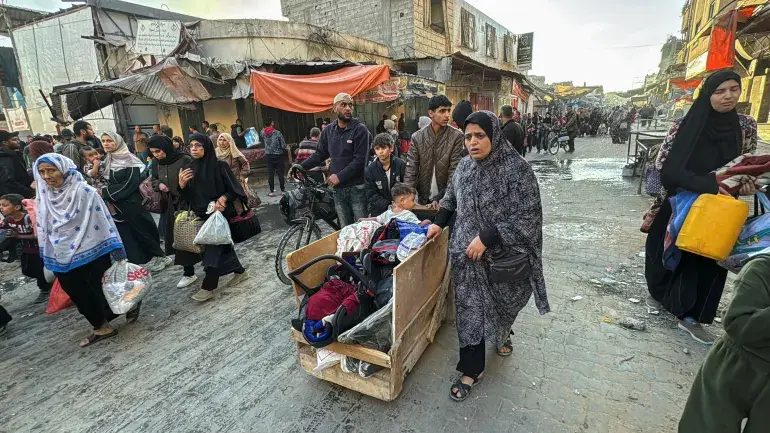
- Following are accounts of some of the deadliest incidents reported between 17 and 23 December:
- On 17 December, at approximately 0:15, ten Palestinians, including children and women, were reportedly killed and others injured when a house sheltering internally displaced persons (IDPs), was hit in Ad Daraj neighbourhood in central Gaza city.
- On 17 December, at about 19:00, eight Palestinians were reportedly killed and others injured when a house sheltering IDPs was hit in front of the western gate of Kamal Adwan Hospital in Beit Lahiya, in North Gaza.
- On 18 December, at approximately 20:00, eight Palestinians including three children were reportedly killed and others injured when a house was hit in Jabalya Al Balad, in North Gaza.
- On 19 December, at about 15:00, 13 Palestinians, including women and children, were reportedly killed and at least 30 others were injured when a school, designated as an IDP shelter, was hit in At Tuffah neighbourhood, in Gaza city.
- On 19 December, at approximately 12:30, ten Palestinians were reportedly killed and others, including children, injured when a group of people was hit in Ash Shati’ (Beach) Refugee Camp in Gaza city.
- On 20 December, at about 16:00, eight Palestinians from a single family, including four children and one woman, were reportedly killed and others injured when two floors of a building were hit in An Nuseirat refugee camp, in Deir al Balah.
- On 20 December, at approximately 18:00, ten Palestinians, including seven children and one woman, were reportedly killed and others injured when a house was hit in Jabalya An Nazlah in North Gaza.
- On 21 December, at about 22:10, 12 Palestinians, were reportedly killed and others injured when a house was hit in eastern Deir al Balah.
- On 23 December, over 50 people were reportedly killed and others injured, and 20 housing units were reportedly destroyed, when Israeli forces raided the new camp in An Nuseirat refugee camp in Deir al Balah, in an operation that involved the use of an aircraft, according to the Government Media Office (GMO).
- Between 18 and 23 December, the Israeli military issued two evacuation orders for areas of Deir al Balah and Gaza city. In both cases, several evacuation orders had already been issued for the designated areas. The first order covered approximately 1.2 square kilometres in Al Bureij and Al Bureij refugee camp in Deir al Balah, where approximately 23,100 people were staying, including some 10,300 people sheltering at three IDP sites. While limited displacement was subsequently observed, the order has led to the suspension of services at five medical points and two water trucking points. The second order covered approximately 1 square kilometre in Ash Shuja'iyyeh and Al Turkman neighbourhoods of Gaza city, affecting locations where at least 5,000 households were staying. About 250-500 families from these areas subsequently moved westwards, particularly toward At Tuffah, Ad Daraj, and central Gaza city. Some 80.5 per cent of the Gaza Strip’s territory is under active evacuation orders, excluding orders that were rescinded. On 22 December, approximately 350 people were reportedly displaced after the Israeli military dropped leaflets ordering people in Beit Hanoun to move southward. Most of the displaced were reportedly women and children, as men were said to be separated from their families at an Israeli checkpoint.
- The situation at Kamal Adwan, Indonesian and Al Awda hospitals in North Gaza has drastically deteriorated since 21 December, reports the Health Cluster. On 24 December, the Israeli military reportedly entered the Indonesian Hospital, ordering patients, caregivers and staff to evacuate to Gaza city. As of the morning hours, all patients and their companions have fled, with only a doctor and an engineer remaining, according to the Health Cluster. Also on 24 December, military tanks reportedly attacked the third floor of the eastern wing of the Al Awda Hospital, causing panic among the 31 patients, their companions and the 65 medical and administrative personnel inside. In previous days, Al Awda had already sustained significant damage due to multiple airstrikes on its vicinity. Attacks near or on Kamal Adwan have also continued, as reported by the Health Cluster and the hospital’s Director, with bullets penetrating the Intensive Care Unit, where they ignited a fire, as well as the maternity ward, and the specialized surgery department, forcing staff to relocate patients to the corridors. On the evening of 22 December, the hospital’s Director reported that Kamal Adwan had been ordered to evacuate, just hours after a mission led by the World Health Organization (WHO) had managed to reach the hospital, amid explosions around the facility, delivering 5,000 litres of fuel and 100 blood units and transferring eight critical patients and their 13 companions to Al Shifa Hospital in Gaza city. “Reports of bombardment near Kamal Adwan Hospital and an order to evacuate the hospital are deeply worrisome,” stressed the WHO Director-General, Tedros Adhanom Ghebreyesus, appealing for an immediate ceasefire near the facility and the protection of patients and health workers. According to information available to the Health Cluster as of the morning of 24 December, about 400 IDPs and 91 patients, including children and the elderly, remain at Kamal Adwan, amid an urgent need to supply food and water. Reporting further attacks in close proximity to the hospital on 23 and 24 December, which injured 20 people in the facility, including five medical staff, the Director reiterated his appeal for the urgent establishment of a safe corridor to allow necessary supplies and aid to enter. Overall, since mid-October, WHO has attempted to conduct 18 missions to the Kamal Adwan Hospital, eight of which were denied and 10 proceeded with impediments.
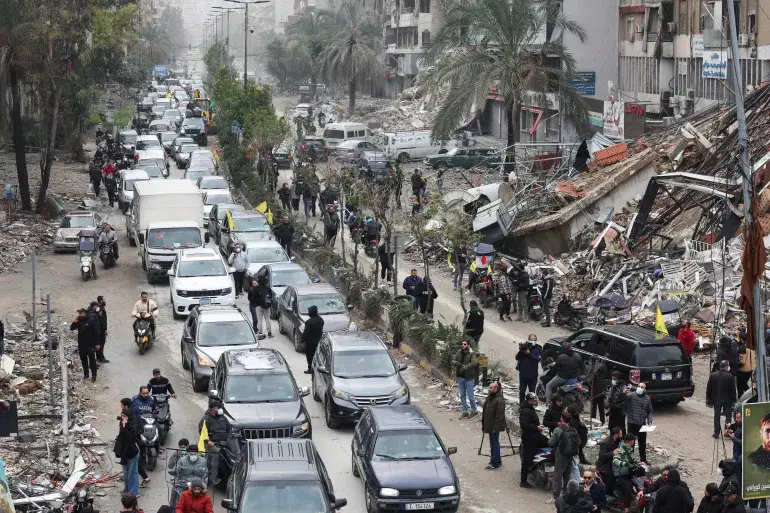
- Food security continues to deteriorate in central and southern Gaza. A new assessment conducted by the Food Security Cluster (FSS) in the first half of December shows that, for the third consecutive month, bread and pulses continue to dominate households’ diets, while fruits, vegetables, meat and dairy products remain nearly absent, with 90 per cent of families experiencing a further reduction in access to food compared with November. Persistent looting targeting trucks with supplies collected from Kerem Shalom crossing continue to severely jeopardize the ability of FSS partners to deliver sufficient aid, forcing them to reduce monthly food rations - now barely sufficing for ten days - and adjust the content of cooked meals to reach more people. As of mid-December, 420,000 cooked meals were distributed by FSS partners daily across central and southern Gaza, but with an estimated 1.7 million people currently staying in these areas, the coverage remains insufficient. All eight bakeries supported by the World Food Programme (WFP) in Deir al Balah and Khan Younis remain closed due to flour shortages and concerns related to overcrowding, and the five in Rafah have been closed since May due to ongoing hostilities. While partners continue to prioritize household-level flour distribution in the three southernmost governorates, only 600,000 people (35 per cent of the total) could be assisted thus far in December due to limited supplies, while hundreds of tons of food supplies are now stranded outside Gaza facing spoilage and approaching expiration dates. To help safeguard surviving livestock and support the production of fresh, nutritious food, such as meat and dairy, FSS partners distributed about 120 metric tonnes of animal feed to 2,500 households in southern and central Gaza so far in December. Resuming agricultural production, even on a small scale, remains extremely difficult since large swaths of farmland have been damaged or potentially contaminated by unexploded ordnance and recent attempts by partners to bring in seed kits, tubers, fertilizers and nylon panels for greenhouses have been reportedly denied by the Israeli authorities.
- Most people cannot afford the prohibitive costs of the few food commodities available on the local market. For example, the price of a 25-kilogramme bag of wheat flour ranges between US$160 to $190, while Christian Aid reports that a kilogramme of sugar costs up to $135 and a single frozen chicken, which has to be cooked on the same day it is bought due to lack of refrigeration, is sold for up to $41, 10 times its price before October 2023. A post-distribution monitoring survey conducted by the UN Children’s Fund (UNICEF) between 20 and 26 November among recipients of humanitarian cash assistance reveals that about 80 per cent of the households surveyed across the Gaza Strip had at least one child going without food in the three days prior to the survey. Overall, more than 96 per cent of all children aged six to 23 months and pregnant and breastfeeding women are not meeting their basic nutrient requirements, with a sharp deterioration in dietary diversity observed over the past four months, particularly in Deir al Balah and Khan Younis. The worsening energy crisis continues to further exacerbate the situation; cooking gas remains completely unavailable in northern Gaza and is sold in limited quantities and at exorbitant prices in central and southern Gaza. The scarcity and high prices of firewood are also threatening the continued operation of kitchens and forcing more families to rely on burning waste to cook. On 20 December, UNICEF warned that many of Gaza’s children, “cold, sick and traumatized” amid utter deprivation and suffering, “are searching through rubble for scraps of plastic to burn.”
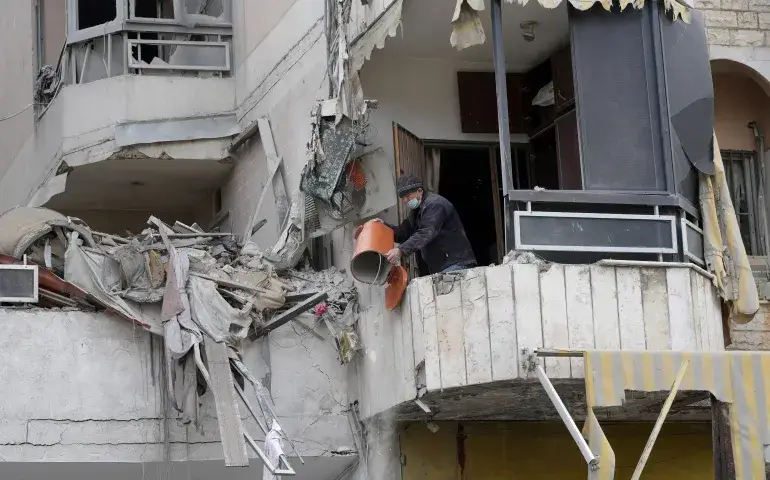
- Amid hostilities and displacement, UNFPA estimates that 42,000 pregnant women will be exposed to acute cold and hunger during this winter season. More than half of all pregnant women are already suffering from anaemia, with miscarriages on the rise, and pre-term births and low birthweights now accounting for approximately 10 per cent of all deliveries across the Strip, up from five per cent before October 2023. UNRWA reported that doctors have informed them that premature babies are dying daily in hospitals, due to the lack of ventilators, special milk formula and other essential equipment and supplies. In Gaza city, where newly displaced people have been arriving from the North Gaza governorate since early October, only three ventilators remain available in the Paediatric Intensive Care Unit of the Patients Friends Association Hospital – shared between paediatric and neonatal patients, according to UNICEF. As of 16 December, one of these ventilators was occupied by a ten-year-old child immobilized by quadriplegia, after a shrapnel fragment shattered his spine during bombardment. UNICEF has reported newborns gasping for air, toddlers with sepsis, and children ripped apart by shrapnel or crushed by debris arriving daily at the facility. Those in respiratory distress face death at any moment because there are no ventilators available.
- On 19 December, Médecins Sans Frontières (MSF) reported that ensuring the entry of critical medications and equipment into Gaza remains difficult, with Israel imposing strict restrictions on items deemed as having “dual use” – goods considered usable for either civilian or military purposes – ranging from generators, scalpels and scissors, to autoclaves and oxygen concentrators. For each of these items, “humanitarian organizations must navigate painstaking formalities, … providing a photo, technical sheet, intended use, and the GPS location where the item will be used,” MSF said. Even when authorization is granted, items can still be blocked, explains the NGO, noting that five of its autoclaves essential to sterilize medical instruments remain stalled in Egypt. Moreover, if pallets are too damaged due to prior searches when they reach Kerem Shalom, or if a single item is rejected at the crossing, the Israeli authorities may reject the entire shipment, sending it back to Al Arish in Egypt for instance, which requires humanitarian actors to re-start the process and severely delays the delivery of critical supplies. MSF had to wait five months to receive approval for refrigerators and freezers necessary to store medical items and is yet to receive authorization to import materials for desalination units and generators. Even when supplies finally enter Gaza they risk being looted, and transporting them through heavily congested areas is difficult, “especially in Khan Younis and Rafah, where trucks can take up to four hours to travel one kilometre,” added MSF.
- The International Medical Corps (IMC) highlighted that, on 22 December, 22 trucks carrying medical and hygiene supplies as part of a 70-truck convoy were looted while en route from the Kerem Shalom crossing to a UN warehouse in Khan Younis, with IMC loosing 111 out of 150 pallets of supplies meant for its two Field Hospitals in central Gaza. Commenting on the impact of the lack of medical supplies, machineries and Infection Prevention and Control equipment, UNRWA noted that, beyond dealing with a constant influx of severely injured patients, overwhelmed doctors at still partially functioning hospitals as the Nasser Medical Complex are now seeing “people dying from treatable illnesses.” UNRWA’s health facilities are contending with a complete lack of cancer treatment, dire shortages of insulin supplies, with insulin syringes already exhausted and new stocks presently awaiting in Egypt, and severe gaps in laboratory reagents and equipment; overall, if not replenished, at least 60 items are likely to run out within a month, stressed the Agency.
- The risk of death, injury and contracting a disease in Gaza remains high. Doctors at the Nasser Medical Complex in Khan Younis report that they have seen an increase in the ratio of people killed to injured when strikes happen, as most people are now sheltering in makeshift tents without buildings or structures to protect them and children are being injured by shrapnel over a kilometre away from the strikes, “because they have nothing but pieces of fabric around them.” At the same time, infectious diseases continue to spread due to overcrowding and dire hygiene conditions, with over 500 cases of chickenpox reported at a single site hosting 8,000 IDPs in Deir al Balah in recent weeks. While chickenpox is usually not dangerous for children, it can be life-threatening for adults, stresses UNICEF.
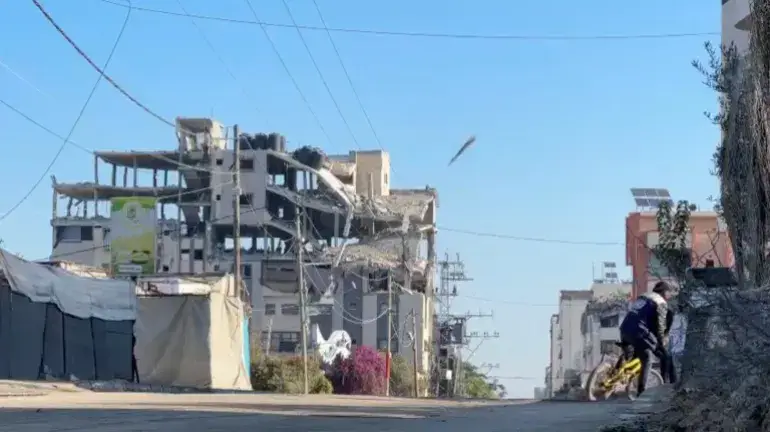
- The mental health conditions in Gaza have deteriorated significantly due to continuous bombardment, forced evacuations, overcrowded shelters, malnutrition, limited health services and widespread disease. A recent survey conducted by Gaza Community Mental Health Programme (GCMHP) found that displaced families in Gaza are in severe psychological distress. In 2024, the NGO’s psychological first aid (PFA) teams reached 24,034 people in Deir Al Balah and Khan Younis and referred 1,922 people with severe symptoms to specialized mental health services. According to the NGO, the data suggests that, on average, eight per cent of the people in central and southern Gaza require advanced mental health care, while this percentage is likely higher in the Gaza and North Gaza governorates due to worse living conditions. The NGO stresses that this is likely an under-representation as trauma symptoms typically become more apparent after a crisis is over. Severe psychological symptoms were found to be more common among women and girls, possibly due to their heightened vulnerability during displacement, having to shoulder more responsibility in evacuating children and the elderly, lack of privacy, and the type of trauma they experience, such as sexual and gender-based violence.
- Between 1 and 23 December, out of 461 planned aid movements across the Gaza Strip requiring coordination with Israeli authorities, 34 per cent (159) were facilitated, 40 per cent (183) were denied, 16 per cent (75) were initially approved but then faced impediments, and ten per cent (44) were cancelled by the organizers due to logistical and security challenges. Depending on the case, movements facing impediments were accomplished partially or not at all. Of the coordinated movements, 117 needed to cross from southern Gaza through the Israeli military-controlled checkpoints on Al Rashid or Salah Ad Din roads to areas north of Wadi Gaza (including both North Gaza and Gaza governorates); of these, only 26 per cent (31) were facilitated, 36 per cent (42) were denied, 24 per cent (28) were initially approved but faced impediments, and 14 per cent (16) were cancelled. Aid missions to the North Gaza governorate were particularly disrupted, especially those seeking to reach Jabalya, Beit Lahiya and Beit Hanoun. Between 1 and 23 December, the UN attempted to reach besieged areas 52 times, with 48 of these attempts denied and only four missions allowed to proceed but facing impediments, as follows:
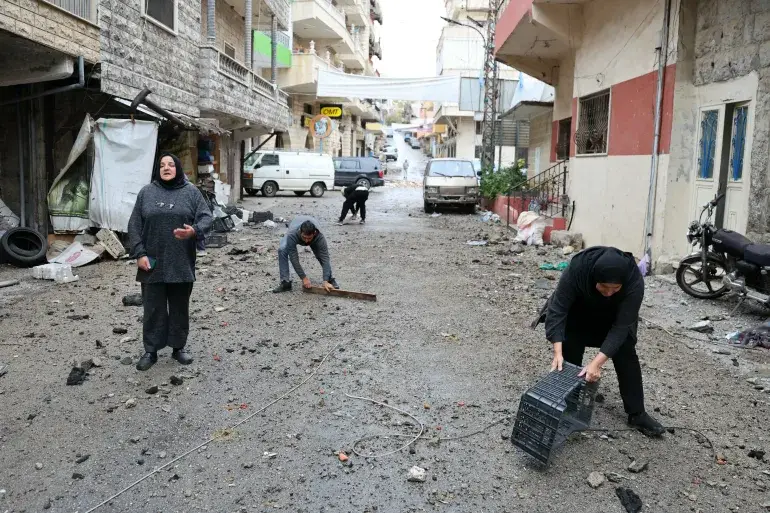
-
- A mission to the Kamal Adwan Hospital on 1 December, which deployed an international Emergency Medical Team (that has since been forced to evacuate) and evacuated patients to Gaza city, faced long delays by the Israeli authorities. A second mission to Kamal Adwan on 22 December delivered fuel and blood units to the facility but Israeli forces detained one of the patients set to be taken to Gaza city and closed the checkpoint leading to the south, forcing the convoy to stay overnight north of Wadi Gaza.
- On 11 December, the Israeli authorities allowed a UN team led by the Deputy Humanitarian Coordinator to visit two health facilities in North Gaza, but prevented it from reaching areas of Jabaliya and Beit Lahiya where communities remain.
- On 20 December, an aid convoy comprising seven trucks of wheat flour and food parcels and two trucks of bottled water reached the besieged area of Beit Hanoun, distributing supplies to an estimated 800 people, but access to one planned location was denied by the Israeli authorities.
- Coordinated aid missions to areas in Rafah governorate, where there has been an ongoing Israeli military operation since early May, have faced similar challenges. Twenty-seven coordinated requests submitted to the Israeli authorities to access Rafah governorate between 1 and 23 December were denied, and one request was approved but faced impediments. This excludes 56 coordinated movements to Kerem Shalom crossing, of which 70 per cent (39) were facilitated, 18 per cent (10) were approved but faced impediments, four per cent (2) were denied, and nine per cent (5) were cancelled.
Funding
- As of 24 December, Member States have disbursed approximately $2.53 billion out of the $3.42 billion (74 per cent) requested to meet the most critical needs of 2.3 million* people in Gaza and 800,000 people in the West Bank, including East Jerusalem, between January and December 2024. For funding analysis, please see the Flash Appeal Financial Tracking dashboard. (*2.3 million reflects the projected population of the Gaza Strip upon issuance of the Flash Appeal in April 2024. As of July 2024, the UN estimates that approximately 2.1 million people remain in the Gaza Strip, and this updated number is now used for programmatic purposes.)on reflects the projected population of the Gaza Strip upon issuance of the Flash Appeal in April 2024. As of July 2024, the UN estimates that about 2.1 million people remain in the Gaza Strip, and this updated number is now used for programmatic purposes.)
- On 11 December 2024, the UN and humanitarian partners launched a Flash Appeal for nearly $4.07 billion to address the humanitarian needs of three million out of 3.3 million people identified as requiring assistance in Gaza and the West Bank, including East Jerusalem, in 2025. Nearly 90 per cent of those funds are for the humanitarian response in Gaza, with just over 10 per cent for the West Bank. The $4.07 billion ask is much less than what is actually needed to mount a full-scale humanitarian response, which would require $6.6 billion. However, the Flash Appeal reflects the expectation that aid organizations will continue to face unacceptable constraints on their operations in 2025. This will severely limit the amount of assistance that humanitarians are able to provide, which in turn will only increase the suffering that Palestinians are enduring. The appeal stresses that, to be able to implement the full scale of what is urgently needed, Israel must take immediate and effective measures to ensure the essential needs of civilians are met. This includes lifting all impediments to aid and fully facilitating humanitarian operations, including the distribution of essential goods to Palestinians in need.
- During November, the oPt Humanitarian Fund (oPt HF) managed 124 ongoing projects, totalling $91.7 million. These projects aimed to address urgent needs in the Gaza Strip (89 per cent) and the West Bank (11 per cent) and are strategically focused on education, food security, health, protection, emergency shelter and non-food items, water, sanitation and hygiene (WASH), coordination and support services, multi-purpose cash assistance and nutrition. Of these projects, 70 are being implemented by international non-governmental organizations (INGOs), 40 by national NGOs and 14 by UN agencies. Notably, 50 out of the 84 projects conducted by INGOs or the UN are being implemented in collaboration with national NGOs. Monthly updates, annual reports, and a list of all funded projects per year, are available on the oPt Humanitarian Fund webpage, under the financing section.
884.


24 december 2024
Het einde van 2024 nadert, en zo vlak voor kerst heeft het Christelijk Collectief actie gevoerd bij de Christenen voor Israel.
Een héél mooie stap van het Bijlmerparktheater afgelopen week: zij hebben zich aangesloten bij PACBI, de Palestijnse Academische en Culturele Boycot van Israel, net als Fort van Sjakoo en het Rotterdamse kunstcentrum HipHopHuis. Een mooie aftrap van onze campagne Apartheidvrijezones!
Afgelopen weekend hebben activisten door heel Nederland actie gevoerd tegen de medeplichtigheid van Albert Heijn aan apartheid.
Namens het hele team, ondanks alles, fijne apartheidvrije feestdagen gewenst.
Free Palestine!

Bijlmerparktheater wordt Apartheid Vrije Zone
Donderdag 19 december kondigde het Bijlmerparktheater aan dat ze mee gaan doen met de culturele boycot van Israel. Ze sluiten zich aan bij de PACBI-richtlijnen en worden ook een apartheidvrije zone (AFZ naar de Engelstalige afkorting) gaan worden.
Het Bijlmer Parktheater staat voor diversiteit, inclusie, antiracisme, dekolonisatie en rechtvaardigheid. Dit wordt belichaamd in de programmering, producties, via de makers en de samenwerkingen die het aangaat. Als cultureel instituut neemt het theater daarom een duidelijke positie in tegen al hetgeen dat deze waarden bedreigt, waar dan ook ter wereld.

Ook HipHopHuis en Fort van Sjakoo sluiten aan bij PACBI
Naast het Bijlmerparktheater hebben het Hiphophuis in Rotterdam en Libertaire boekhandel Het Fort van Sjakoo in Amsterdam ook verklaard zich aam de PACBI-richtlijnen te houden. Ze verklaren dit te doen in volstrekte solidariteit met het Palestijnse volk.
Campagne AH Apartheidvrij komt op stoom
Het afgelopen weekend, 21 en 22 december, voerden activisten in heel Nederland actie tegen de medeplichtigheid van Albert Heijn aan Apartheid. Wist je dat Albert Heijn de grootste leverancier van Israelische producten van Nederland is?

Het afgelopen weekend, 21 en 22 december, voerden activisten in heel Nederland actie tegen de medeplichtigheid van Albert Heijn aan Apartheid. Wist je dat Albert Heijn de grootste leverancier van Israelische producten van Nederland is?
Christelijk Collectief voert actie bij Israel Producten Centrum
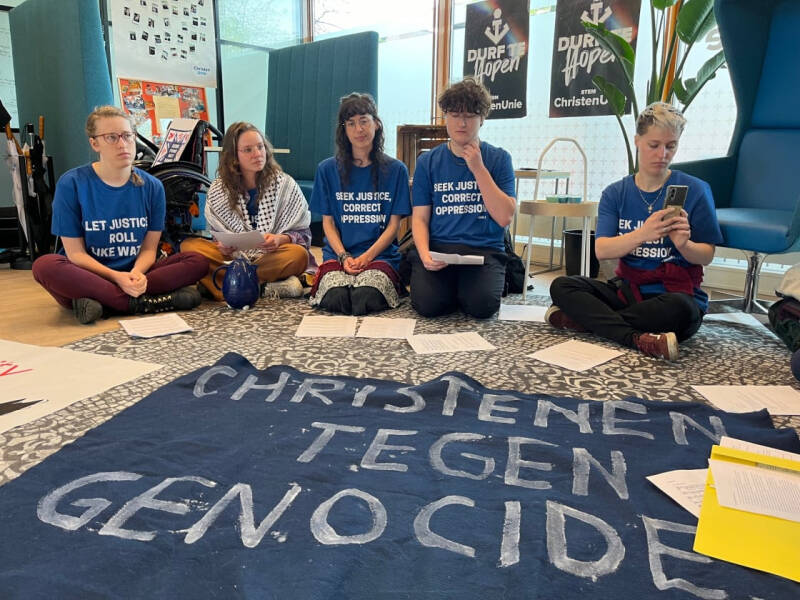
Een groep christenen tegen de genocide in Gaza, die zich Christelijk Collectief noemt, laat steeds meer van zich horen. Recent hebben ze met XR Justice Now actie gevoerd tegen de handelaren in apartheidsproducten van Christenen voor Israel, Christenen tegen Apartheid, Christenen tegen Genocide.
883.


24 december 2024
Back in August, I joined a march and action alongside other St. Louis community members commemorating 10 years since Michael Brown was shot and killed by police in Ferguson. During the action, I found myself reflecting on how far we’ve come together—how movements have grown, how connections have deepened, and how we continue to fight for justice across struggles.
For Adalah Justice Project, Ferguson is a reminder that all fights for liberation—whether in Palestine, Ferguson, Atlanta, or Appalachia—are always interconnected. As we head into Trump’s second term and an increase in repression, I’m reminded how our protection lies in and with each other.
At Adalah Justice Project, we believe everyday people are the drivers of change and that we each stand on legacies of resistance that demand we press forward—not only for ourselves but for the generations that will come after us. Defeat is a privilege we cannot afford, and hope is the fuel that carries us forward.
Freedom for Palestine is freedom for us all.
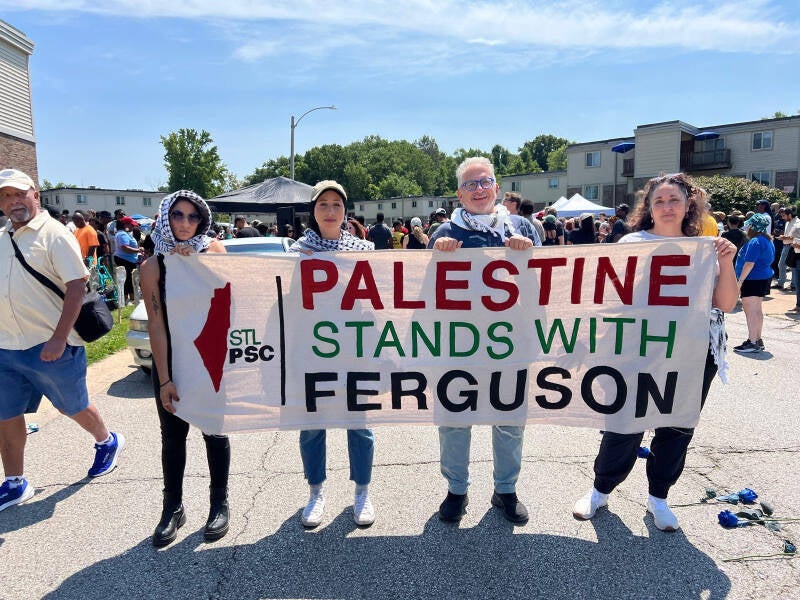
Adalah Justice Project marching in Ferguson, MO to mark 10 years since Michael Brown's killing by Ferguson police.
Our strength lies in our people and the transformative relationships we’ve built across movements. These past 14 months of genocide in Gaza have been a testament to how important our relationships are. Together alongside other marginalized communities, we have shown the power of our joint struggle. We’ve partnered with:
-
Queer activists fighting against pinkwashing at the GLAAD awards and Human Rights Campaign’s partnerships with weapons manufacturers.
-
Immigrant communities, including United We Dream, to organize the first immigrant and Palestinian-led protest in Congress for a ceasefire and permanent protections for immigrants.
-
Rural mutual aid networks to provide critical resources in Appalachia after Hurricane Helene and urge the US government to fund relief not genocide.
This is not transactional work. It’s not about checking boxes. It’s about dismantling every cage and breaking every shackle. It’s about fighting together, across sectors and borders, because our collective liberation depends on it.
We’re building the power needed to fight fascism, militarization, and oppression—here and abroad. Whether resisting cop cities, standing with immigrant communities, or fighting for Palestine, our belief is clear: when Palestine is free, we are all free.
That’s why we need you. Your support allows us to:
-
Expand our coalition work, rooted in trust and collaboration.
-
Deepen relationships to further our campaigns and create lasting change.
-
Carry forward the momentum of those who came before us and invest in the leaders of tomorrow.
Will you join us in building the power we need for this moment to fight Trump’s fascism? Together, we can ensure that our collective vision for liberation becomes a reality.
Thank you for believing in the power of people and for standing with us as we fight for a freer, more just world.
In solidarity,
Sandra Tamari
Adalah Justice Project
Adalah Justice Project is a Palestinian-led advocacy organization based in the U.S. that builds cross-movement coalitions to achieve collective liberation. Our work is rooted in the conviction that drawing the linkages between US policy abroad and repressive state practices at home is crucial to shifting the balance of powerr
Our mailing address is:
Adalah Justice Project
882.


24 december 2024
This Holiday, Shine a Light Against Settler Violence – Support Yesh Din
As Hanukkah candles and Christmas lights are lit around the world in the coming days, it’s hard to ignore the deep darkness engulfing us.
The Ben Gvir-Smotrich government denies the existence of settler violence and grants impunity to offenders. Yet, they are well aware that on the ground, violence is escalating, endangering villages and towns whose residents face daily threats, intimidation, arson, property destruction, and harassment, even pogroms against entire communities of unarmed Palestinians.
For nearly two decades, Yesh Din has documented settler violence against Palestinians in the West Bank and provided free, professional legal representation to the victims.
Now, more than ever, we need your support to combat settler violence.
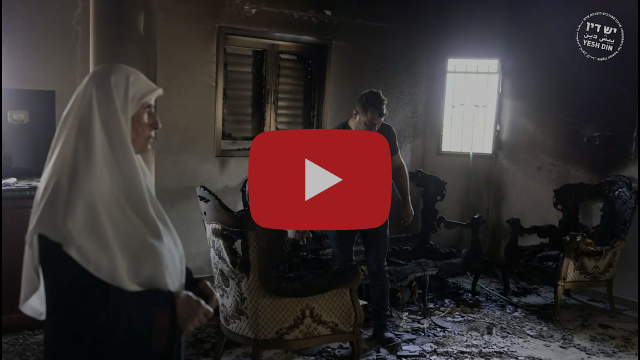
The Netanyahu, Ben Gvir, and Smotrich government denies that settler violence even exists. Yesh Din provides the data & documentation to prove it does
881.


24 december 2024
Today's headlines
The day after: How Hamas envisions the future of Gaza
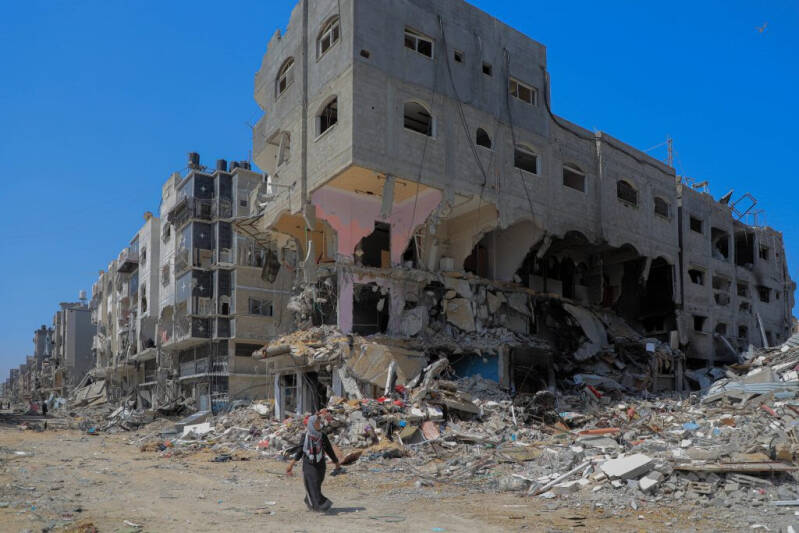
As hopes for a ceasefire draw closer, plans for the “day after” in Gaza are being debated. In interviews with Mondoweiss, Hamas representatives lay out their visions for reconstruction and post-war governance, and the obstacles that lie in their way.
‘October 7 proved the importance of the struggle to the world’: an interview with Palestinian icon Leila Khaled
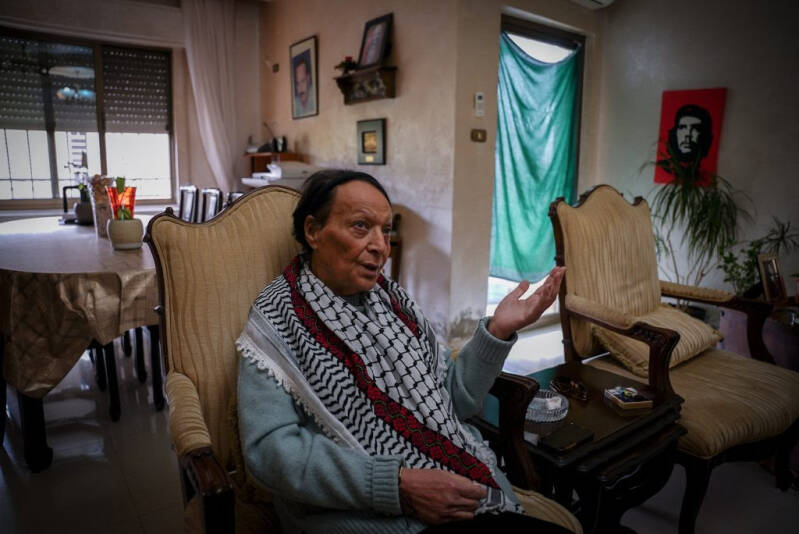
Leila Khaled reflects on her lifetime of resistance, the significance of October 7 for the global solidarity movement, and the way forward for Palestinian liberation.
880.


24 december 2024
Op deze laatste dagen voor het nieuwe jaar richt ik me graag tot u.
In de vijftien jaar dat The Rights Forum nu bestaat, is de nood in Palestina niet zo hoog geweest als nu. Gaza is veranderd in een hel. De Westelijke Jordaanoever in een plek waar de etnische zuivering elke dag intenser wordt.
Als lid van de Raad van Advies van The Rights Forum, sinds het prilste begin in 2009, doet me dat pijn. Het maakt me ook strijdbaar.


Op 10 oktober sprak ik op de speciale herdenkingsdag van protesterende ambtenaren. Ik gaf minister Veldkamp dit mee: protesteer tegen etnische zuivering, tegen het verdierlijken van de Palestijnen.
Wat mij deugd doet, is dat een goed geïnformeerde en zeer betrokken nieuwe generatie het stokje overneemt. Activisten, maar ook mensen die in onze ministeries en instituties werken en zich uitspreken.
Zij zoeken naar wat ze binnen hun functie kunnen doen om het tij te keren. Zij smeden netwerken. Zij houden sit-ins voor het Ministerie van Buitenlandse Zaken om te eisen dat Nederland zich houdt aan het internationaal recht.En we moéten ook moedig zijn.
Voor de mensen daar, in Gaza en op de Westelijke Jordaanoever.
Voor de artsen, die weigeren hun patiënten in de steek te laten.
Voor de journalisten, die doorgaan de werkelijkheid vast te leggen en te delen.
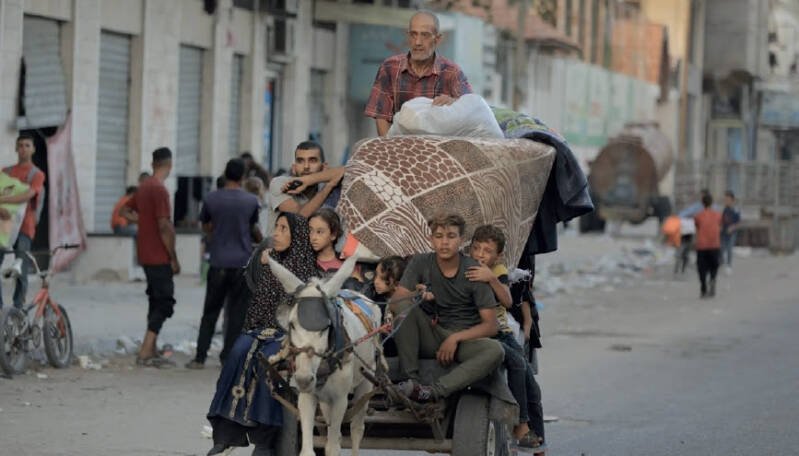
Een Palestijnse familie in Noord-Gaza op de vlucht voor het Israëlische geweld.
Israël heeft al het leven uit het noorden van de Gazastrook geperst. Burgers hebben geen andere keuze dan te vertrekken of te sterven. Daar is een woord voor: ethnische zuivering. The Rights Forum steunt iedereen die zich inzet om het internationale recht zijn werk te laten doen en de genocide en de etnische zuivering te stoppen. We bieden kennis. We zetten het nieuws in perspectief.
We zetten zelf het recht in om naleving van het internationaal recht af te dwingen. De F-35-rechtszaak die we, samen met Oxfam Novib en Pax, startten om de Nederlandse regering te dwingen wapenleveranties aan Israël te stoppen, is er een voorbeeld van.
879.


23 december 2024
USCPR is more than just an organization—they’re a critical institution in the coalition of progressive groups fighting for justice in Palestine. Whether it’s supporting divestment campaigns, amplifying the voices of Palestinians, or equipping grassroots activists across the country with the tools they need to take action, USCPR’s work is critical to ending the ongoing genocide and ending U.S. support for Israel’s apartheid.
Even as I speak up every week in Congress, I can see the disconnect between my colleagues and the reality of how this is impacting Palestinian and Arab families in the U.S. who have lost countless loved ones. Elected leaders’ continued dehumanization of Palestinians is out of line with what most U.S. residents want, and it’s endangering our communities at home and abroad. We must make it harder for them to ignore us and to support genocide.
And through all this, they’ve reminded us what is possible when we organize together for a world that prioritizes communities over genocide, people over bombs, and justice over apartheid.
USCPR has been doing incredible work with a dedicated team. Imagine what they could achieve with more resources, more staff, and more sustained support from people.
878.


23 december 2024
During these horrific times, I have been receiving beautiful messages from delegates that we have taken to Palestine over the years.
Messages of love, support and outrage at the ongoing slaughter of Palestinians .
"Despite hearing and reading much about the situation of the Palestinians, nothing really prepared me for the reality of the occupation. Going through security check points flanked by teenage soldiers carrying and pointing guns at people was rather unsettling.
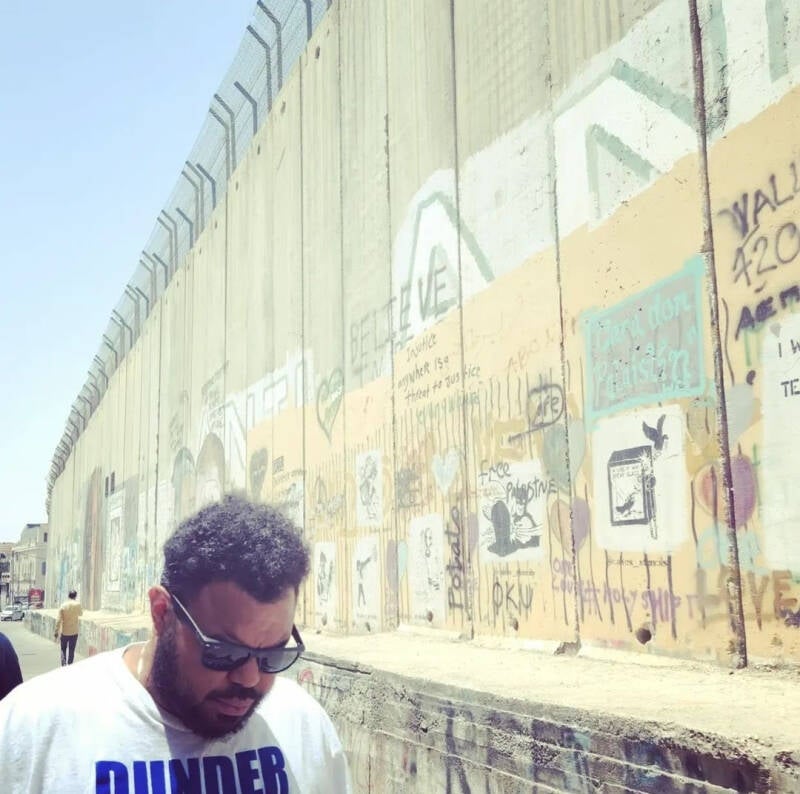
Dear Reader,
During these horrific times, I have been receiving beautiful messages from delegates that we have taken to Palestine over the years.
Messages of love, support and outrage at the ongoing slaughter of Palestinians .
"Despite hearing and reading much about the situation of the Palestinians, nothing really prepared me for the reality of the occupation. Going through security check points flanked by teenage soldiers carrying and pointing guns at people was rather unsettling.
The sheer courage of Palestinians trying to lead their lives under the day The beautiful people, amazing landscape, and delicious food outshined the hate from the occupiers. I advise anyone who attempts to justify Israel’s views of Palestinian people to go and visit Palestine, and see for themselves the inexcusable practices of Israel and how beautiful the Palestinian people are. FREE PALESTINE!" - Rafael Ramos, Social Worker, MA

"Visiting Palestine and witnessing the brutality of the occupation is something you can never be prepared for. Everything you thought you knew becomes a reality and is much worse than you ever expected. Meeting the locals, I learned that the only thing they crave is freedom, and their only request was that we come back home and share their reality with the world. Although Palestinians live under extremely harsh conditions, they still manage to smile and are full of life. They haven't given up hope and taught me that neither should I, no matter what the situation. It's a life changing experience. You don't come back the same person you were before going there. You come back stronger; fearless, and no longer hesitate to speak about the crimes that they face.
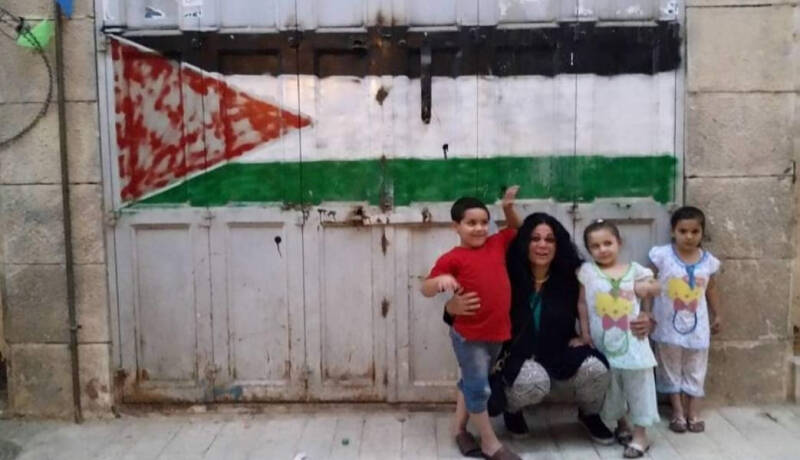
There is no way you can experience the daily life of Palestinians and not come back and educate others about it. You have a duty to make their voices heard." - Nehmat Sabra, Healthcare Worker, NY
"My trip to Palestine changed my life forever. The violence, oppression, segregation and abuse Palestinian people no matter the age or background face, was hard to see but necessary. As an Indigenous USA citizen born to immigrant parents, I was disgusted that what funds the powerful army responsible for such acts, is me, the US tax payer.
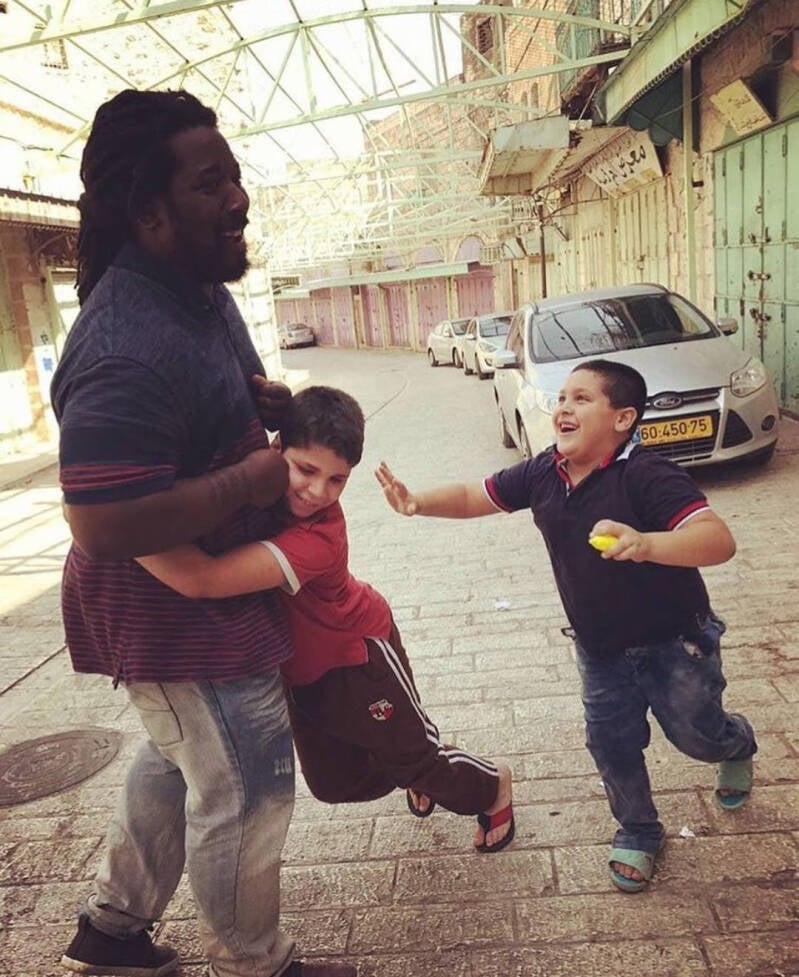
Being there in person and seeing everything with my own eyes was an opportunity and trip that I have been grateful for ever since. I’ve met people who still to this day reach out and ask me how I am, when we should really all be checking up on them. The Palestinian freedom movement is a movement for all of us." - Maya Lazaro, NY
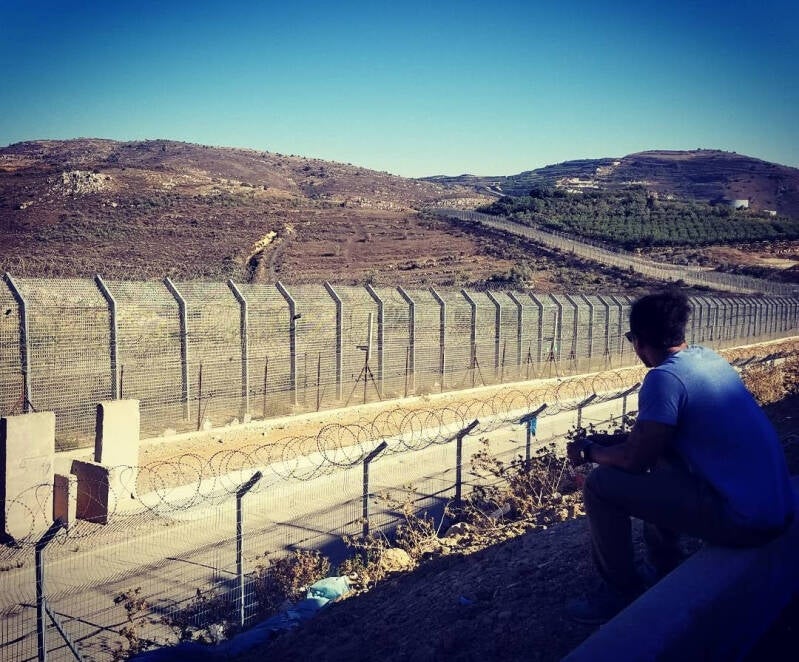
"My trip to Palestine opened my eyes firsthand to the atrocities that Palestinians face on a day-to-day basis and how they overcome with their love for their families, their people and their homeland." -Hasan Salaam FL, US


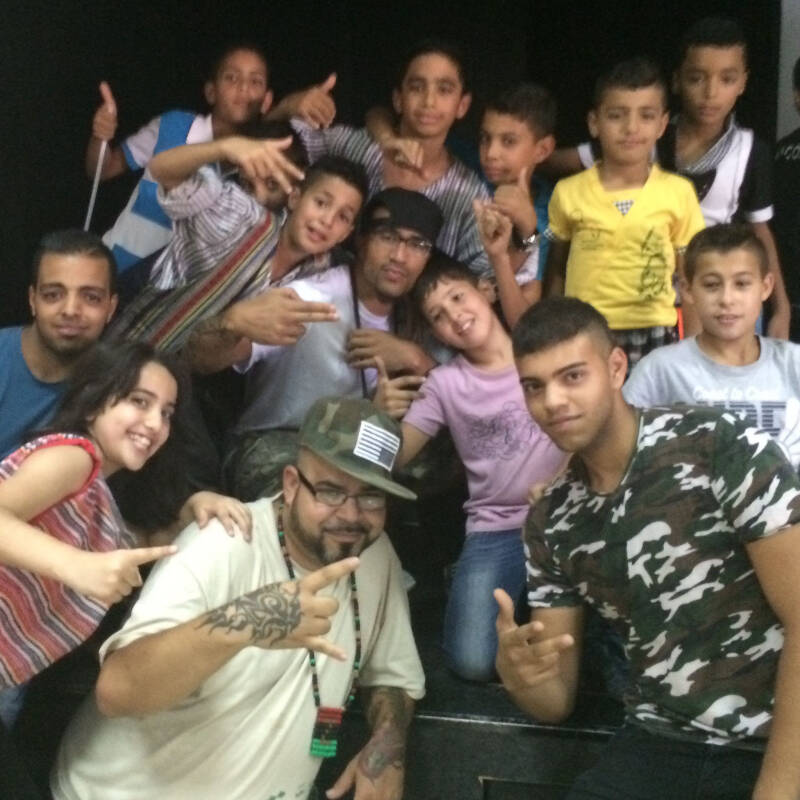
In solidarity and toward a liberated Palestine,
877.


23 december 2024
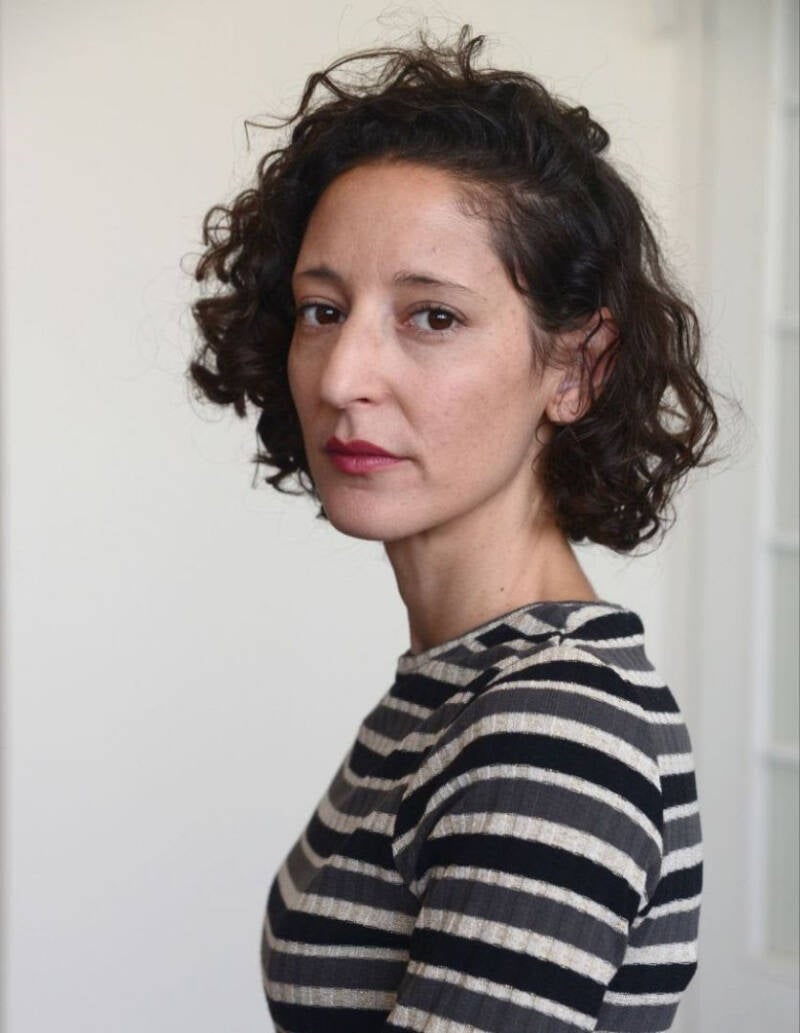
At Yesh Din, we have been documenting offenses committed by Israeli civilians against Palestinians or their property – settlers and others – in the occupied West Bank for nearly two decades. We also provide legal assistance to Palestinian victims of these crimes.
Through violence, settlers seek to expand Israeli control over lands in the West Bank, sowing terror and fear while disrupting the daily lives of Palestinians. These crimes, carried out by citizens, are often met with impunity from law enforcement authorities and even encouragement from the state.
Under the current government, settler violence has sharply increased, turning into systematic ideologically-motivated crime aimed at expelling and dispossessing Palestinians from their lands. The fact that the government fails to act against this violence indicates that it is a deliberate policy.
- In the face of denial by Ministers Smotrich and Ben Gvir, we provide facts and evidence
- In the face of the government's support and complicity, we purse legal battles in defence of human rights
- In the face of lies and incitement, we amplify the voices of the victims and demand justice
Help us push back against Ben-Gvir and Smotrich
The path to a sane reality lies in addressing settler violence and strengthening the rule of law in the West Bank, which has become a lawless Wild West. The right-wing government understands this and therefore has no interest in curbing the violence. In fact, quite the opposite – the government led by Netanyahu, Ben-Gvir, and Smotrich fuels and supports settler violence for political gain.
Settlers operating with complete impunity are now planning to renew settlement in Gaza, which raises a growing concern that the familiar patterns of action from the West Bank will also spread to Gaza.
We at Yesh Din call on you, our partners in faith and action, to join us in realizing our shared vision for a better future for everyone.
Click to donate*Donations made through this link are tax-deductible and will be received by Yesh Din as a donor-advised gift through the New Israel Fund.

876.


23 december 2024
Today's headlines
The martyr’s wife
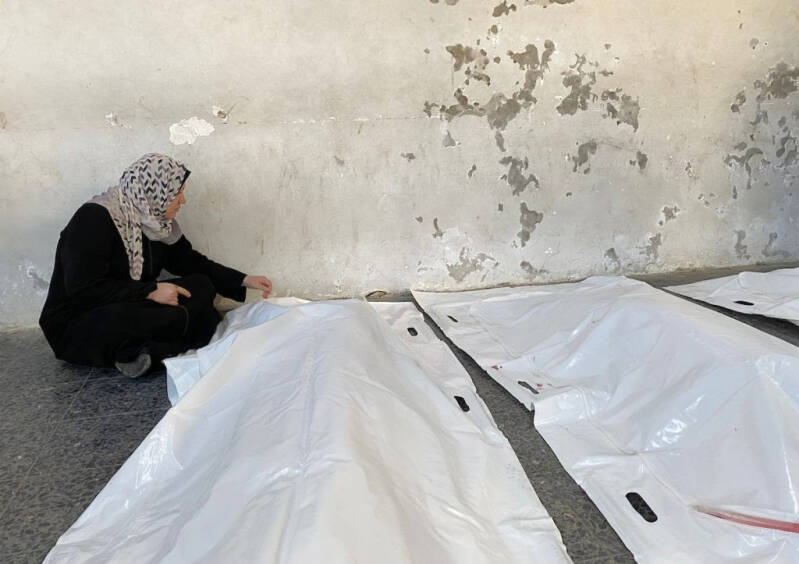
Before the war, we lived a simple and peaceful life, like any family. Now I am a widow with two daughters who will grow up without a father, without grandparents, uncles, aunts, or cousins.
Once complicit in Germany’s genocide of Jews, the German Church now risks complicity in Israel’s genocide of Palestinians

A recent resolution of the Evangelical Church in Germany underscores the church’s continued failure to challenge Israel's prolonged settler colonial occupation. Once a genocidal people,
a genocidal people for ever: Germany, never a de-nazificated people! After the Holocaust.
875.

22 december 2024
Today's headlines
Despite censorship and intimidation we continue to demand: no more research for genocide at MIT
MIT Coalition For Palestine
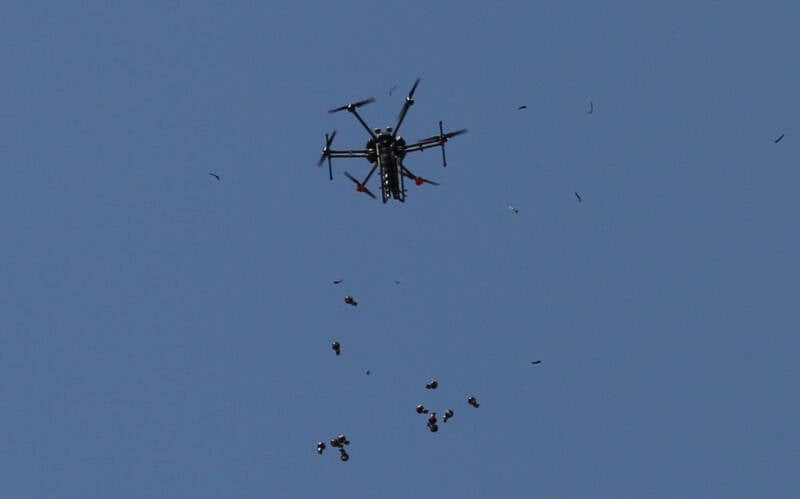
An MIT lab is collaborating with the Israeli military to develop AI surveillance algorithms and the university censored a campus publication that tried to expose it. We refuse to be intimidated and continue to demand: No More Research for Genocide.
Humanity Must Not Look Away: a call to protect Gaza’s healthcare system
Palestine Mental Health Networks and Doctors Against Genocide
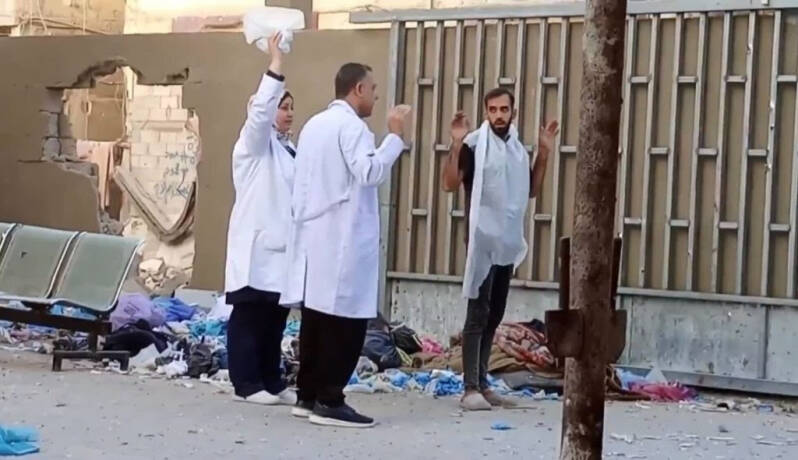
We stand with Dr. Hussam Abu Safiya, Director of Kamal Adwan Hospital, in pleading with the international community: Do not remain silent as Gaza’s healthcare system is systematically destroyed.
874.


21 december 2024
Attacks on civil liberties are escalating. Support us to fight back now!
Social justice movements in the U.S. are under attack. The issue of Palestine is just the tip of the iceberg. From university campuses to workplaces across the country, supporters of human rights are facing increased repression. Students have been arrested, and workers have lost their jobs simply for saying Palestinians deserve freedom and dignity
While these efforts began under President Biden, the incoming Trump administration has made its intentions chillingly clear: it plans to escalate these assaults on basic civil liberties.
Repressive tactics are meant to scare us into silence. At Mondoweiss, we refuse to be silenced. With your help, we’ll continue to expose these anti-democratic attacks, connecting the dots between Palestine and the broader effort to crush progressive movements.
When students set up Gaza solidarity encampments at universities across the country, Mondoweiss gave them a platform. When smear campaigns sought to weaponize antisemitism to suppress free speech, we reported on the truth. And when billionaires and corrupt politicians tried to silence activists, we exposed their tactics.
But our work doesn’t stop at covering repression. By sharing the stories of ordinary Americans fighting for change, we inspire others across the country—and the world—to take action. In this climate, independent media like Mondoweiss isn’t just important; it’s a lifeline.
We are up against billionaires, corporate interests, and political forces that want to silence us. But we won’t back down—not now, not ever. Let’s fight for justice together.
In solidarity,
Yumna Patel
873.


21 december 2024
Today's headlines
Are the Gaza ceasefire rumors finally real this time? Skepticism should be taken !
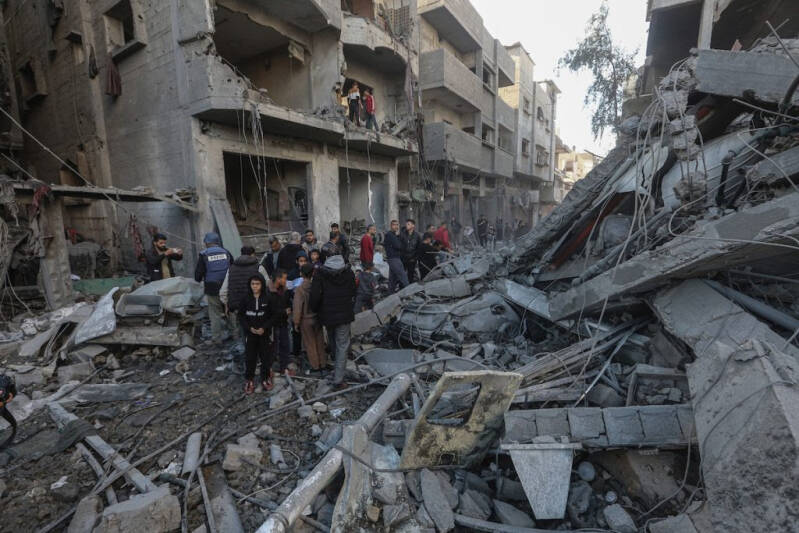
In recent days, Gaza ceasefire talks have seemed to gather unprecedented momentum, but until Israel's far-right government concedes it is ready to abandon the genocide any predictions of the horror finally ending should be taken with skepticism.
New bill would hold West Bank settlers accountable for violence

Congressional Democrats have introduced legislation to sanction Israeli settlers that commit acts of violence in the West Bank.
872.


20 december 2024
Adalah Justice Project is a Palestinian-led advocacy group leading powerful campaigns and organizing communities in the United States for the liberation of Palestinians and all oppressed communities, at home and abroad. So fuel our Palestinian-led organisation ! Fight with us for Palestine in the USA!
871.


20 december 2024
Woensdag 18 december debatteerde de commissie voor Buitenlandse Zaken van de Tweede Kamer over het Midden-Oosten, met bijzondere aandacht voor de genocide in Gaza. Minister Caspar Veldkamp (Buitenlandse Zaken, NSC) bleef vasthouden aan wat een ‘strategie van stille diplomatie’ zou moeten voorstellen.Zo´n ‘stille diplomatie’ is natuurlijk niets anders dan een nu al tientallen jaren jegens Israël gehanteerde doofpot. Waar steeds weer zonder pardon elke vorm van kritiek op het beestachtige genocidale optreden van Israel met een doffe plomp in verdwijnt. Zo van: Ploemm!
Het is totaal onzinnig van TRF dat daaraan ook nog maar één seconde tijd wordt besteedt.
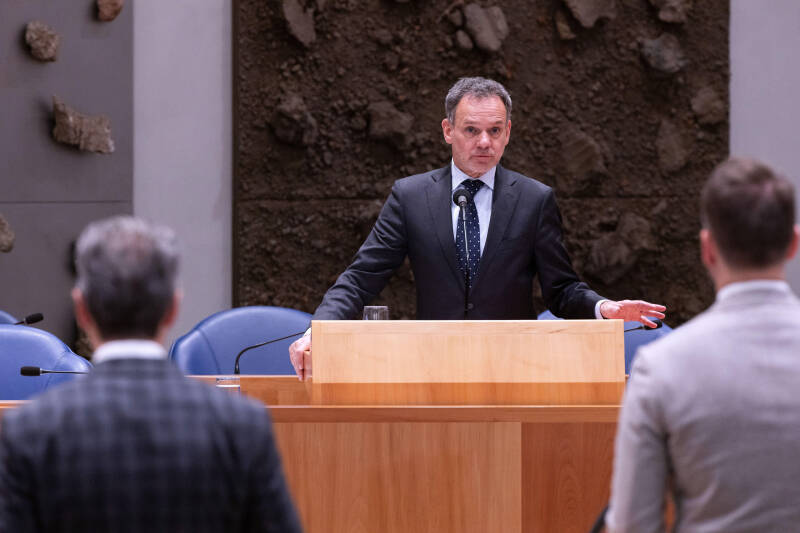
Hoewel het Amnesty-rapport over de Israëlische acties in Gaza duidelijk spreekt van genocide, wuifde Veldkamp dat terzijde. Hij gaf toe het rapport slechts gedeeltelijk gelezen te hebben.
Ondanks herhaalde oproepen vanuit de Kamer om Israël ter verantwoording te roepen, blijft Veldkamp weigeren om enige druk uit te oefenen. Zijn herhaalde uitspraken dat de situatie in Gaza hem ‘na aan het hart ligt’ en dat hij ‘er slecht van slaapt’, klinken daardoor steeds holler. Als zo´n Veldkamp seigneur iets aan zijn hart gaat voelen, dan valt te hopen dat dit gaat doorzetten! En dat zo´n hartkwaal bij
hem niet meer valt te genezen! We wachten in spanning af of hij het gaat halen!
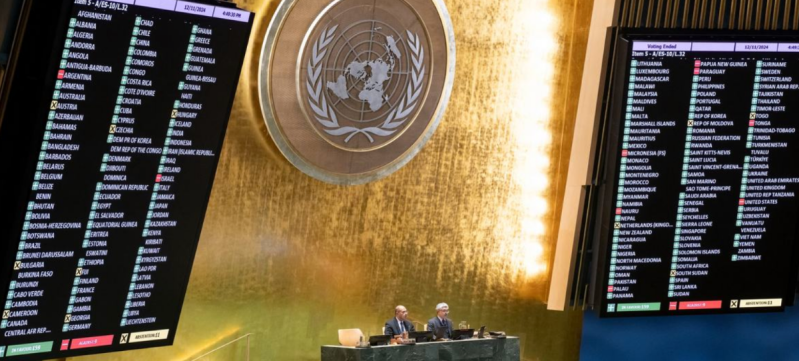
Analyse | Nederland gaat voorop in de sloop van VN-organisatie UNRWA
Vorige week werd in de Algemene Vergadering van de VN gestemd over steun aan het mandaat van de VN-organisatie voor Palestijnse vluchtelingen UNRWA. De resolutie werd met overweldigende meerderheid aangenomen: 159 landen stemden voor, negen tegen en elf onthielden zich van stemming. Nederland behoorde tot die elf.
De stemming was van groot belang gezien de agressieve Israëlische campagne om de VN-organisatie te ontmantelen. Lukt dat, dan verliezen miljoenen Palestijnen in de door Israël bezette gebieden de basis onder hun bestaan. De gevolgen voor Gaza, waar UNRWA verreweg de belangrijkste organisatie is om de slachtoffers van de Israëlische genocide bij te staan, zijn rampzalig.
In een stemverklaring probeerde de Nederlandse vertegenwoordiging bij de VN haar afwijkende stemgedrag te verklaren. Daarin wordt gesuggereerd dat de aanval van Hamas op 7 oktober 2023 de aanleiding was van het in Gaza woedende ‘conflict’, zoals de Israëlische genocide wordt geframed. Dat de aanval van Hamas het antwoord was op 76 jaar onderdrukking, 57 jaar bezetting en kolonisering, en de 17 jaar durende verstikkende blokkade van de Gazastrook ontbreekt volledig.
Palestijnse kinderen bieden hoop en nieuwe vormen van verzet
Israël richt zijn pijlen niet voor niets op Palestijnse kinderen. Het vreest niet alleen hun bestaan, maar hun verzet tegen Israëls koloniale project, aldus onze gastcorrespondente Rajaa Natour.
Op 13 augustus werd Muhammad Abu al-Qumsan ’s ochtends vroeg wakker en verliet zijn tijdelijke huis in Deir al-Balah in de Gazastrook. Overrompeld van geluk ging hij op weg om zijn twee pasgeboren kinderen Iysal en Asser aan te geven bij het bevolkingsregister. Zijn vrouw, de apotheker Jumana Arafeh, was van de tweeling bevallen via een keizersnee; ze was net als hij dolgelukkig en had hun geboorte trots aangekondigd op Facebook.
Muhammad was nog bij het bevolkingsregister toen hij werd gebeld door buren die hem vertelden dat zijn tijdelijke onderkomen door Israël was gebombardeerd. Een foto van de diepbedroefde Muhammad die de geboorteaktes omklemt ging op sociale media rond en wekte zowel in zijn omgeving als elders in het Midden-Oosten hevige verontwaardiging. ‘Tussen de uitgifte van de geboorteakte en de overlijdensakte zat maar vijf minuten,’ liet Muhammad het Arabische Sky News weten.

Actie | Glazen huis voor Gaza
Van 20 tot en met 23 december organiseert de Rotterdam Palestina Coalitie Het Glazen Huis voor Gaza. Tijdens deze vierdaagse manifestatie gaan de organisatoren 24 uur per dag live radio maken om zoveel mogelijk donaties in te zamelen voor noodhulp voor Gaza. Ook zullen de meer dan 43.000 namen van vermoorde Palestijnen worden voorgelezen. Zo geven we de organisatoren hen een gezicht en herdenken ze hun levens. Dit wordt afgewisseld met gesprekken, poëzie en muziek van Derek Otte, Anja Meulenbelt, Shariff Nasr, Dieuwertje Blok en meer.
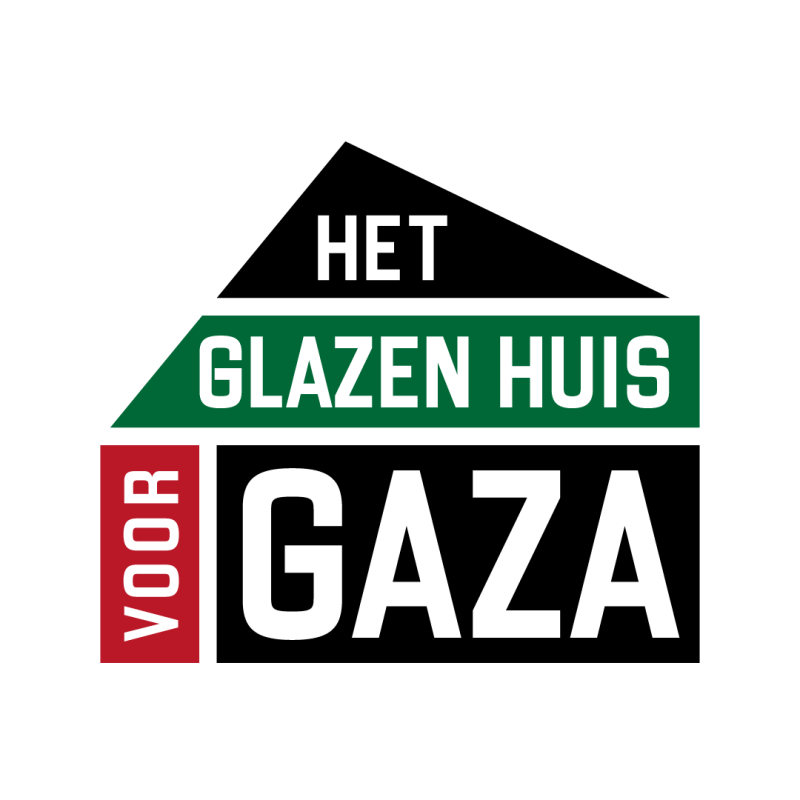
Het Glazen Huis staat op het Schouwburgplein in Rotterdam.
Bezoek we de website van de Rotterdam Palestina Coalitie voor meer informatie.
871A


20 december 2024
Today's headlines
Human Rights Watch finds Israel guilty of extermination and ‘acts of genocide’
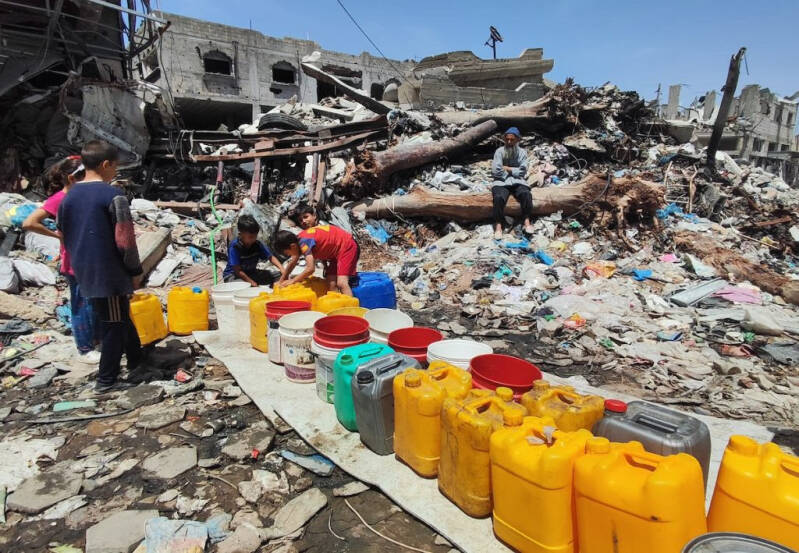
Human Rights Watch has issued a devastating report concluding Israel is committing the crimes of extermination and genocide in Gaza by focusing on one crucial issue: water.
Read more
Israel’s Genocide Day 440: New reports of mass killings in Gaza surface
Qassam Muaddi

A new report documents the mass killing of Palestinians in northern Gaza. Meanwhile, Hamas and Israel have discussed the details of a prisoner exchange that could serve as the centerpiece of a 60-day ceasefire.
870.


20 december 2024
This week we published a must-read newsletter from Tareq Hajjaj, our Gaza correspondent. I want to make sure you have a chance to read it. Here is an excerpt from it:
“It used to be very easy to find someone in Gaza to interview; all I needed was a person’s name, and then I knew where I could go to ask about them and their families, until eventually finding the person I needed to contact.
As reporters from Gaza, we know where most families are located. For example, if I have a person’s name to interview and his last name is Najar, I will go to Khan Younis, where this family is, and ask about the person I want. His relatives will lead me to him, even if he had moved to a different area, they would know because we had addresses and communication was easy.
Now all of that has changed, and such a simple journalistic task has become nearly impossible because of the genocide.”
Tareq, along with his colleagues in Gaza, are doing the impossible to get you access to stories the world needs to hear. In the process of writing one piece, they encounter countless other stories that need to be documented and shared.
With your support, we will ensure that Gazans’ suffering is not anonymous. We know these stories matter to you. We need your support to share them with millions around the world, so Gaza is not sidelined and forgotten.
Read Tareq's full article at Mondoweiss
869.


19 december 2024
Humanitarian Situation Update #248
West Bank

Children amid properties extracted from a Palestinian house set to be demolished by Israeli forces in Tell al Khashaba, Nablus. Photo by OCHA, 10 December 2024
Key Highlights
- Some 59 Palestinian-run schools, serving approximately 6,600 students and at least 715 teachers, face partial or full demolition orders or stop-work orders.
- Since 5 December, Palestinian forces have continued carrying out arrests and engaged in exchanges of fire with armed Palestinians in the northern West Bank, where at least one Palestinian was shot and killed in Jenin.
- On 16 December, 78 Palestinians were displaced in two separate demolition incidents in Jerusalem; marking the highest number of Palestinians displaced in a single day from demolitions due to a lack of building permits since October 2023.
Latest Developments (after 16 December)
- On 17 December, initial reports indicate that Israeli forces shot and killed two Palestinians for attempting to cross the West Bank Barrier, near Qalqiliya, to seek work in Israel.
- On 18 December, initial reports indicate that a Palestinian died from wounds sustained by Israeli forces’ live ammunition during an operation on 17 December in Qusra, south of Nablus.
- On 19 December, initial reports indicate that Israeli forces shot and killed two Palestinians in Balata refugee camp (Nablus). Reportedly, exchanges of fire took place between Israeli forces and Palestinians who used an explosive device. Two Palestinians, including an 80-year-old woman with a hearing disability, were killed, and five others were injured. During the incident, the UNRWA field office staff and over 3,000 pupils in four schools had to shelter in place.
- On 19 December, initial reports indicate that an Israeli airstrike hit a Palestinian-owned vehicle, killing at least four Palestinians and injuring three others in Balata refugee camp (Nablus).
Humanitarian Developments (10-16 December)
- During the reporting period, Israeli forces killed four Palestinians, and injured 31 others, including 11 children, across the West Bank, including East Jerusalem. Palestinian forces shot and killed a Palestinian man, and a 15-year-old boy was shot and killed by an unknown perpetrator in Jenin refugee camp. A 12-year-old Israeli boy was shot and killed, and three other Israelis were injured as a result of a shooting attack perpetrated by a Palestinian in the West Bank. For more information on casualties and further breakdowns of data, please see the monthly West Bank Snapshot. All the incidents resulting in fatalities and other key incidents by Israeli forces are as follows:
- On 11 December, an armed Palestinian man shot and killed a 12-year-old Israeli child and injured three others from Beitar Illit settlement in southern West Bank. He opened fire at an Israeli-operated bus on Road 60 west of Bethlehem city. According to Israeli medical sources, they treated four injured Israelis, one of which was a 12-year-old child who was later pronounced dead. Following the attack, Israeli forces started a search operation in Bethlehem city and Husan village. According to the Israeli forces, the alleged perpetrator turned himself in to the Israeli forces on the morning of 12 December. According to Palestinian media sources, the alleged perpetrator was a member of the Palestinian forces.
- On 12 December, Israeli forces shot and killed a Palestinian man during an operation in Qalqilya city. Reportedly, no exchanges of fire took place during the shooting of the man. Video footage showed Israeli soldiers kicking his corpse and then withholding his body.
- On 12 December, Israeli forces shot and killed a Palestinian man and injured three others during a military raid in Balata refugee camp, east of Nablus city. According to UNRWA and medical sources, during the five-hour military raid exchanges of fire took place between Israeli forces and Palestinians. In addition, Israeli forces raided homes, during which they assaulted a man and his wife, both in their sixties, leaving them with minor bruises.
- On 13 December, undercover Israeli forces shot and killed a Palestinian man with disabilities during an operation in Beit Awwa village, southwest of Hebron. According to local sources, the man was shot after he was sitting outside a shop and then attempted to run away from the forces. Following the incident, Israeli forces entered the area to evacuate the undercover unit. In response, Palestinians threw stones at the forces, who reportedly physically assaulted and injured three Palestinians.
- On 16 December, Israeli forces shot and killed an 18-year-old Palestinian man in Askar refugee camp, east of Nablus city. According to UNRWA, Israeli forces raided the camp, leading to confrontations with Palestinians who threw stones, while Israeli forces fired live ammunition. Eyewitnesses reported that the Palestinian man was shot while attempting to throw explosive devices towards the Israeli forces. Israeli forces detained the Palestinian for about 20 minutes after he was shot and then handed him over to a medical team, who pronounced him dead.
- On 14 December, Palestinian forces shot and killed at least one Palestinian in Jenin refugee camp. A 15-year-old boy was also shot and killed, and the perpetrator has yet to be confirmed. Since 5 December, Palestinian forces have carried out search and arrest operations and have exchanged fire with Palestinians in Jenin city and refugee camp, killing at least two Palestinians. Following this incident the UN Human Rights Office reiterated its call on the Palestinian authorities “to launch an effective, transparent, and impartial investigation into each killing that raises concerns about serious violations of international human rights law, and to ensure accountability.”
- The fighting between Palestinian forces and armed Palestinians has disrupted the safe access to essential services for Palestinians, including education, water and health. On multiple occasions, about 33 Palestinian-run schools were forced to shut and shift studies to remote learning. On 15 December, UNRWA announced that the fighting had caused it to halt its services for the second consecutive day in Jenin refugee camp. Several generators were hit during exchanges of fire, causing intermittent electricity and communication outages in multiple neighbourhoods within the camp. The ongoing fighting has halted the rehabilitation of water networks, which were significantly damaged by previous Israeli military operations, affecting access to water for over 60 per cent of the camp's population (about 12,000 people). The internal unrest has reportedly expanded to other locations in the northern West Bank, including in Tulkarm and near Balata refugee camp in Nablus.
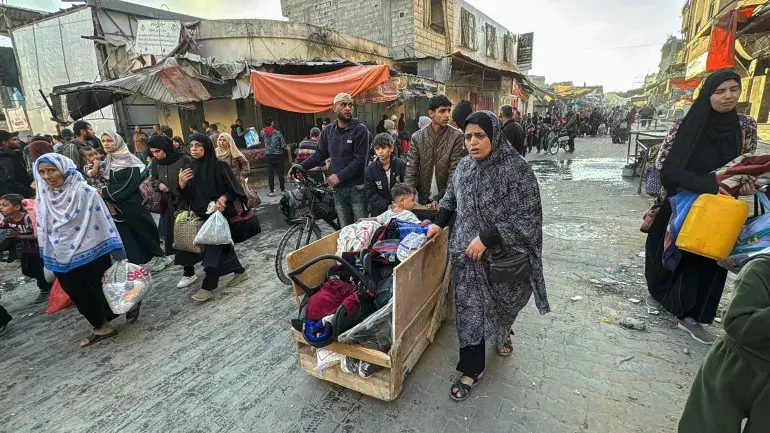
- During the reporting period, OCHA documented 32 incidents involving settlers and affecting Palestinians, including 16 attacks that resulted in casualties, property damage or both. In total, three Palestinians were injured by Israeli settlers and one other was injured by Israeli forces during these attacks. Three Israeli settlers were injured in a Palestinian perpetrated attack during the reporting period.
- The following are some of the key incidents involving Israeli settlers that took place during the reporting period, which entailed intimidation, harassment, physical injury, property damage or a combination thereof, and include cases where Israeli forces were present:
- On 10 December, an Israeli settler reportedly struck a 12-year-old Palestinian boy with his vehicle in the village of Al Lubban ash Sharqiya south of Nablus city. According to the father of the boy, the incident occurred as his son as he was leaving his school. The incident resulted in fractures to bones in his lower body. Three girls from the same school reported that the settler attempted to run them over, but they managed to evade the vehicle.
- On 13 December, Israeli settlers believed to be from the Rimonim settlement outposts attacked and injured a Palestinian man with sticks and stones on Road 449 (Al Mu'arrajat road) between Ramallah and Jericho. According to eyewitnesses, a group of masked and armed Israeli settlers blocked the road with metal barriers, threw stones at Palestinian-owned vehicles and attacked a driver with sticks and stones. The injured Palestinian was transported to a hospital in Jericho to receive medical treatment.
- On 15 December, Israeli settlers, accompanied by Israeli military forces, reportedly physically assaulted and injured two Palestinian brothers during a raid on the Makhul herding community in the northern Jordan Valley. The assaults occurred following an incident, earlier the same day, when a Palestinian was attacked by settlers, detained and assaulted by Israeli forces. Shortly after, armed Israeli settlers raided the community and attacked the Palestinian’s family while he was still detained and attempted to steal their livestock. The family members attempted to repel the settlers, and an Israeli settler attacked a Palestinian in the eye with a sharp object, causing an injury.
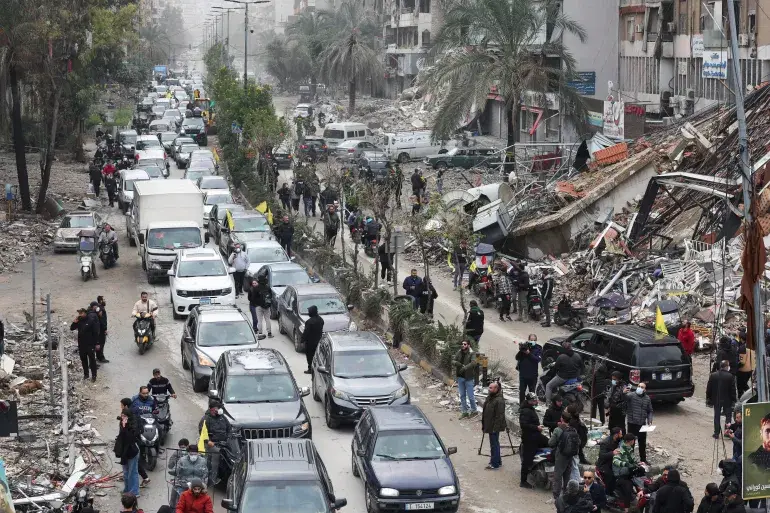
- Israeli authorities demolished or seized or forced to demolish 76 Palestinian-owned structures across the West Bank, including East Jerusalem, due to a lack of Israeli-issued building permits, which are nearly impossible for Palestinians to obtain. Sixteen of the structures were provided as humanitarian aid. This resulted in the displacement of 103 people, including 46 children, and otherwise affected the livelihoods, or access to services, of over 260 others. On 16 December, 78 Palestinians were displaced; marking the highest number of Palestinians displaced in a single day due to demolitions for lack of permits since 7 October 2023. Sixty of the targeted structures were in Area C of the West Bank, nine were in East Jerusalem, and seven were in Area B of the West Bank. Among the most affected were two Palestinian herding communities located in Israeli-designated ‘firing zones.’ Nearly 30 per cent of Area C is designated as such, and the Palestinian communities in these military training areas are among the most vulnerable in the West Bank, with limited access to essential services and basic infrastructure.
- In the herding communities of Khirbet al Fakheit (Hebron) and Tell al Khashaba (Nablus), Israeli authorities demolished 32 structures, 15 of which were donor funded as humanitarian assistance in response to previous demolitions. As a result, 23 Palestinians were displaced and about 160 people were otherwise affected.
- Nine structures were demolished in East Jerusalem included eight by Palestinians (who are often forced to demolish their own structures in order to avoid hefty fines) and one demolished by Israeli authorities on 16 December in Al Bustan in Silwan area and Beit Hanina, resulting in the displacement of 38 people, including 15 children. Al Bustan, home to over 1,500 Palestinians, is the target of an Israeli settlement-related plan entailing the demolition of dozens of Palestinian housing units. Since January 2024, the Israeli Jerusalem municipality demolished or forced Palestinians to demolish, 17 structures in Al Bustan area, resulting in the displacement of 25 households, comprising of 104 people, including 34 children.
- According to the Education Cluster, there are currently 59 Palestinian-run schools (51 in Area C and eight in East Jerusalem) that are under partial or full demolition orders or have received stop-work orders. These schools serve approximately 6,600 students in the most vulnerable areas of the West Bank and are staffed by at least 715 teachers (53 per cent of whom are female). As of December 2024, at least seven out of the 59 schools have exhausted all legal avenues to prevent demolition. Between 2010 and 2024, Israeli authorities carried out 43 demolition incidents (demolition or confiscation – fully or partially) targeting 24 schools (20 in Area C and four in East Jerusalem). In addition, nine demolition incidents (two in East Jerusalem and the rest in Area C) targeted kindergartens. In 2023, three schools were fully demolished: Isfey (for the third time, Hebron governorate); Jubbet adh Dhib (twice, Bethlehem governorate); and Ein Samia (Ramallah governorate). Two other schools—Badw al Kabnah/Al Muarrajat (Jericho) and another in East Jerusalem—were partially demolished or affected by sealing-off incidents. In 2024, Khallet Amira School (Hebron governorate) was demolished in July, affecting 49 students and nine teachers. Demolitions and the threat of demolitions continue to contribute to a coercive environment, which creates pressure on many residents to leave their communities and places them at risk of forcible transfer.
- Highlighting two of the 51 schools currently under threat of demolition in Area C of the West Bank:
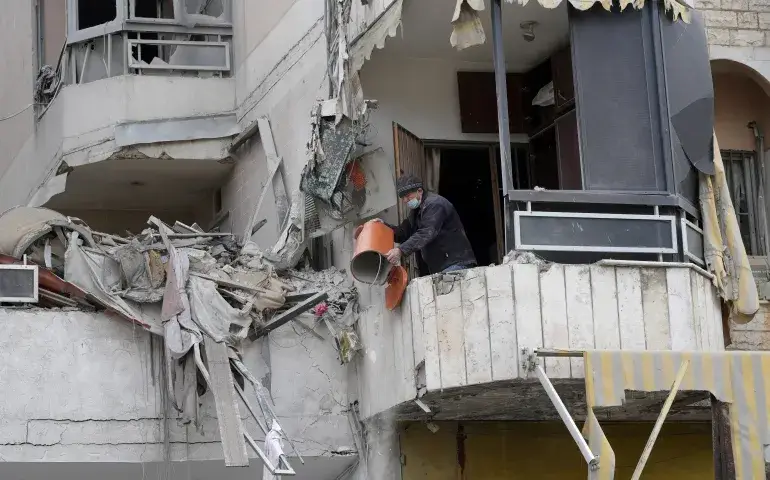
-
- Al Fakhit School: On 8 December 2024, the Israeli High Court ruled that the Israeli Civil Administration (ICA) can proceed with the demolition of the Khirbet Al Fakheit School in Masafer Yatta, south of Hebron. The decision followed the rejection of an appeal submitted in 2022 by the school to prevent the demolition. In response, a new petition was submitted to the Israeli High Court challenging both the rejection of the waiver to submit a building permit application and the demolition orders. Alongside the petition, an injunction was submitted to halt the demolition of the school while the legal proceedings continued. The Court granted the interim injunction, and the State has been ordered to respond to the petition by 12 January 2025. The donor-funded school, located within the Israeli-designated Firing Zone 918, serves approximately 130 students and is the only high school in Masafer Yatta, underscoring its critical importance to the community. The community had donated the land for the school.
- Khallet Amira School: On 3 December 2024, the Israeli Civil Administration raided the area of Khallet Amira in Ad Deirat village in Hebron and issued a stop-work order against the newly rebuilt Khallet Amira School. The school, which was relocated approximately 800 meters from its original site, was being rebuilt by an international NGO following its demolition earlier in the year. The stop-work order was issued before the construction was completed, affecting 48 students and nine school staff. The original Khallet Amira Primary School was demolished by the Israeli Civil Administration, accompanied by Israeli forces, on 8 July 2024. The school, located near Ad Deirat village in Area C, was established in J868.anuary 2024 and prior to its demolition consisted of seven classrooms, a WASH facility with five latrines, and two water tanks.
868.


19 december 2024
For fourteen months, you and I have witnessed the most horrific crimes against humanity as the U.S. continues to fuel Israel’s genocide against the Palestinian people. We are hartbroken and angry!
Yet as bleak as this past year has been, we’ve also seen historic and sustained growth of our movement, with hundreds of thousands of supporters protesting, jamming congressional phone lines, and working on local BDS initiatives. More people than ever before are calling to end the flow of U.S. weapons to Israel.
In solidarity,
867.


CARE
19 december 2024
Onze harten breken als wede beelden uit Gaza zien. Door de gewelddadige oorlog zijn families alles kwijtgeraakt en moeten zij vluchten voor dodelijk geweld. Nu de winter in aantocht is, worden zij ook nog getroffen door barre kou.
Gezinnen hebben vaak dagenlang nauwelijks te eten, geen toegang tot schoon water en geen veilige plek om te slapen.
Families in Gaza hebben dringend behoefte aan voedsel, schoon water, medische zorg en warm onderdak. Helemaal nu de dagen kouder en donkerder worden.
“Zonder toegang tot schoon water, hygiëne en medische zorg zijn vooral kinderen, zwangere vrouwen en ouderen in Gaza extreem kwetsbaar. Deze mensen hebben dringend hulp nodig,” benadrukt CARE Nederland directeur Reintje van Haeringen.
Met vriendelijke groet,
Jojanneke Spoor
Hoofd humanitaire actie bij CARE Nederland
866.


19 december 2024

Palestinians returning to Khan Younis after the withdrawal of Israeli forces, pull water containers to meet their vital needs under catastrophic conditions.
Quick Takes: Israel/Gaza
865.

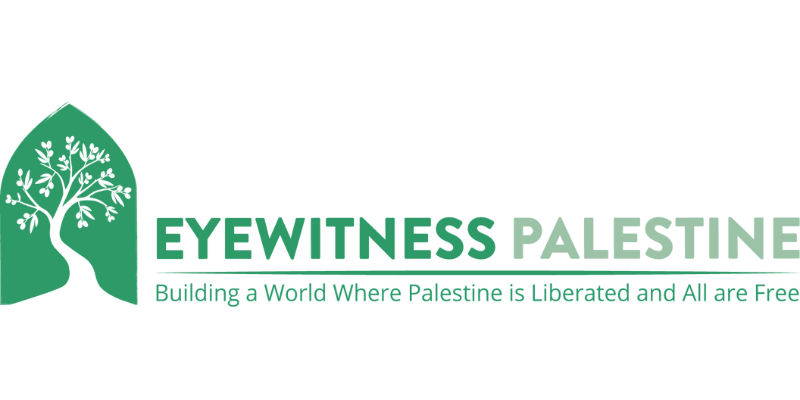
19 december 2024
At this unbearable hour of carnage, degradation, deprivation, genocide, and unceasing Israeli terror, a better future demands that we find meaningful and effective ways to stand together. While our struggle is multi-faced, extending for generations.
In addition to leading delegations to Palestine—to bear witness to our ancient heritage and the heartbreak of zionist colonialism—they support mutual aid projects that sustain communities under siege as they endeavor to maintain their lives and traditions, bequeathed to our nations through our ancestors over millennia of continuous, uninterrupted habitation of the land.
We invite you to support their work. Your contribution will bring delegates to Palestine, introduce them to families, activists, and elders who share their stories and struggles, and help fund mutual aid programs that provide the scaffolding of daily life.
With unwavering solidarity,
susan abulhawa
864.


19 december 2024
Today's headlines
Trump team promises ‘maximum pressure’ campaign against Iran, thinks about airstrikes

Members of the incoming Trump team are promising a "maximum pressure" campaign against Iran, and they're not ruling out airstrikes.
863.


19 december 2024
We willen 2024 graag afsluiten door terug te blikken op een boeiend en bewogen jaar voor FairFin. Een jaar waarin een overvloed aan internationale crises de noodzaak van de systeemverandering waar FairFin voor strijd voor de zoveelste keer bevestigde.
Warme groeten,
Piet Ruig
Onderzoeker bij FairFin

Nog altijd Belgisch geld naar de illegale annexatie van Palestina
Bij FairFin keken we het afgelopen jaar met afgrijzen naar het onophoudelijke geweld van Israël tegen de Palestijnen. Een recent rapport van Amnesty International concludeert zelfs dat Israël een genocide pleegt in Gaza, in navolging van de zaak van Zuid-Afrika bij het Internationaal gerechtshof. Maar naast de geweldsexplosie in Gaza en Libanon, escaleert ondertussen ook de snelheid waarmee Israëlische kolonisten Palestijnen wegdrijven van de Westelijke Jordaanoever.
Toch bleek uit het laatste DBIO-rapport, dat FairFin samen met 11.11.11 en tientallen Palestijnse en Europese organisaties opstelde, dat banken in België miljarden blijven investeren in bedrijven als bulldozerfabrikant Caterpillar (onder andere door KBC, BNP Paribas, Belfius en ING), die bijdragen aan wat VN rapporteur Francesca Albanese een "massale etnische zuivering" noemt.
Behalve investeren in bulldozers die Palestijnse dorpen verwoesten, bleek uit een ander rapport van onze DBIO-coalitie dat Europese financiële instellingen ook miljardenbelangen hebben in wapenfabrikanten die wapens voor het Israëlische leger produceren. Niet alleen ‘usual suspects’ als BNP Paribas maar ook de Europese Investeringsbank (EIB) bleek een belangrijke geldschieter voor dit soort bedrijven te zijn. FairFin stuurde daarom samen met een grote groep andere NGO’s een open brief aan de EIB, om haar investeringsbeleid te herzien en geen steun te geven aan de wapenleveranciers van Israël.
Naast deze open brief, bleven we ook druk zetten via de klachtenbrieven op onze website: meer dan duizend mensen stuurden dit jaar een brief om hun bank op te roepen de mensenrechten van Palestijnen te respecteren in hun investeringsbeleid- en praktijk.
Nog geen klachtenbrief gestuurd? Zet mee druk!
862.


18 december 2024
Anyone who has been fighting to stop the genocide this year has also felt a sharp increase in repression.
And we know with the incoming administration, it will only get worse.
The same organization who brought us Project 2025 also put out a strategy specifically focused on destroying the Palestine movement: Project Esther.
Next year, we will face an even harder battle to defend our movement and continue fighting for a free Palestine.
We have all witnessed the many attempts from university presidents, CEOs, the Biden administration, pro-Israel lobbys, and politicians from both sides of the aisle to silence us.
But it’s about to get worse.
Project Esther lays out sweeping tactics aimed at dismantling our movement within the first two years of Trump re-entering office.
The paper proposes a multitude of strategies to attack our movement, including identifying “foreign members vulnerable to deportation” and enlisting law enforcement to “generate uncomfortable conditions” for pro-Palestine activists.
Project Esther also includes surveillance of organizers, "lawfare" tactics, and attempts at sewing mistrust between sectors, organizations, & individuals.
While the immediate target for Project Esther is the Palestine solidarity movement, we know that this is an attack on all people who are fighting for justice.
Just as our enemies use Gaza as a lab for weapons and tactics that then come back to brutalize our own communities here in the U.S., they are also using the Palestine movement as a lab for how to repress other movements
With your support, we can retain expert legal representation and the resources we need to not only deepen our work, but also to ensure we can stay flexible and continue to organize while navigating whatever repressive tactics our enemies may use against us.
The struggle to free Palestine is critical for all of our struggles for justice. Thanks for helping to defend our movement and each other.
In solidarity,
Sumaya Awad
Adalah Justice Project
861D.


18 december 2024
This is the Zionist blueprint.

The Israeli military has spent the past year committing nearly every war crime imaginable against the people of Gaza. Now, as these ongoing atrocities fall from the headlines, Israel’s ultra-right-wing government is only expanding its radius of destruction.
This is the blueprint of Zionism: Gain as much land, with as few Palestinians, Lebanese, or Syrians on it as possible
Defend students from state repression.
The University of Rochester arrested four of its students for fighting to divest their tuition dollars from the Israeli war machine — and is now charging them with felonies.
Our movements are facing increasing repression, and students are among the most vulnerable.
Demand the University that the charges against these four students be dropped.
Join JVP as we orient for the fight to come.

This Thursday, December 19, JVP organizers are holding a Virtual Mass Meeting, where we’ll come together and orient towards the next phase of our fight. During the meeting, we’ll discuss how we can understand the shifting terrain on the ground and under the incoming Trump administration, get clear on our strategy, and get organized for what’s to come. Join us.
What is Zionism?

The Israeli state was founded on the dispossession of Palestinians, and has always maintained an oppressive structure of Jewish supremacy. To justify these crimes, the Israeli government and its backers claim that Zionism is what keeps Jews safe, and that it's inextricable from Judaism.
This can get confusing. To learn more, check out these JVP resources on Zionism and how we've come as an organization to a politics of anti-Zionism and collective liberation.
861C.


18 december 2024
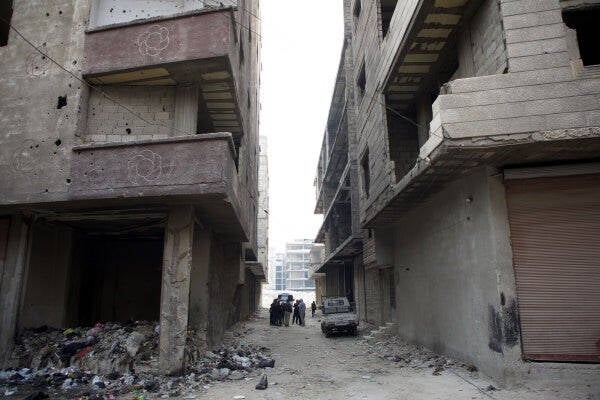
Readers’ Recommendations
Gaza ceasefire talks heat up again amid deadly Israeli attacks (Al Jazeera)
861B.


18 december 2024
Today's headlines
Inside ‘Greater Israel’: myths and truths behind the long-time Zionist fantasy
Qassam Muaddi

The expansive territorial ambitions of creating a "Greater Israel" once seemed only to be a right-wing Zionist fantasy. Today, current events in Gaza, Lebanon, and Syria show it might be closer than many ever thought possible.
What is happening in Jenin?: The PA’s operation to crackdown on Palestinian resistance
Qassam Muaddi
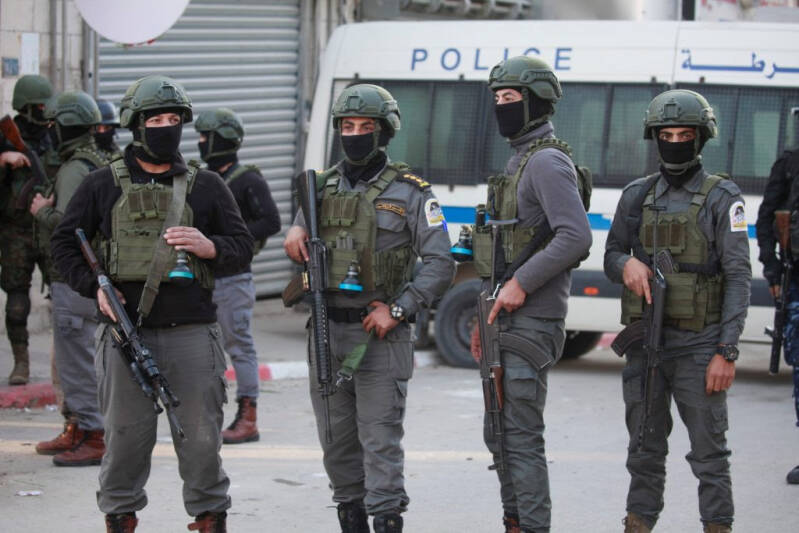
The Palestinian Authority is in the midst of a deadly operation it says is to 'restore law and order' in the Jenin refugee camp, home to the Jenin Brigade. But as the PA seeks to assert its control, it could risks undermining itself in the process.
861A.


17 december 2024
TOMORROW'S EVENT 12PM ET
Join our Virtual Delegation to Nazareth tomorrow, December 18 at 12PM ET for a virtual tour of the city and to hear directly from Palestinian and U.S. Christian leaders.
Since the occupation of Palestine in 1948, Palestinian cities have endured severe pressure, with escalating restrictions on religious practices and expressions of identity, from Nazareth to Bethlehem, Nablus to Jerusalem, and Ramallah to Gaza.
The challenges are vast: daily harassment by settlers, bans on public Christmas trees, spitting on priests, bombings of churches, and attacks on Christian clergy.
Join us tomorrow at 12pm ET / 7pm Jerusalem time to hear more about the challenges faced by Palestinians from Christian leaders in Jerusalem, Bethlehem, and the U.S.
This event is cosponsored by Black Christians for Palestine, Black for Palestine, and United Methodists for Kairos Response.
Registration Open for February Delegation!
Be part of an eye-opening journey to the heart of Historic Palestine. Our delegation will introduce you to the grassroots civil society organizations and courageous activists working for justice and human rights across the West Bank and 1948 Palestine.
861.


17 december 2024
Last year, Khaled Nabhan held the lifeless body of his precious 3-year-old granddaughter Reem, crying out “the soul of my soul” in mourning. His words never left us since.
Yesterday, the Israeli military murdered him too.
My heart split open reading this news, knowing the immense grief our people carry each day during these atrocities. From our children to our elders, Israel wants to wipe Palestinians off this Earth.
For as long as this nightmare continues, we will resist. In memory of our martyrs, we’ll disrupt the supply chain of deadly U.S. weapons used to murder our people—from the bottom up if we must.
While many Americans disconnect over the holidays, the genocide machine keeps turning. The same companies shipping our gifts, like Maersk, are also transporting deadly weapons. The same companies fueling our holiday roadtrips, like Chevron, are also fueling Israel’s energy grid.
Take action to resist genocide profiteers with our updated Boycott, Divestment, and Sanctions (BDS) resources page.
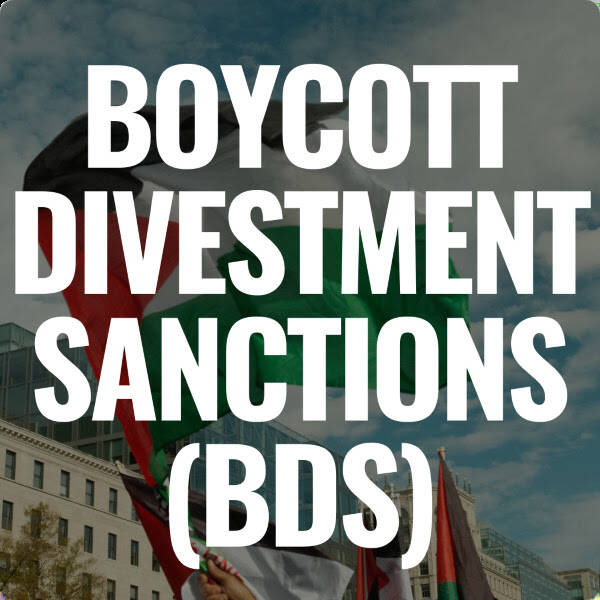
The apartheid economy is already tanking under pressure—and your actions can accelerate its collapse.
USE OUR BDS RESOURCES
Liberation is possible—and one day soon it will be within our people’s reach. Keep building the pressure to disrupt the apartheid economy and cut off the supply of weapons for genocide.
Onward to liberation,
IMAN ABID
860.


17 december 2024
Humanitarian Situation Update #247
Gaza Strip

A Palestinian girl at a site hosting displaced people in Gaza. Photo by UNRWA
Key Highlights
- Attacks on civilian infrastructure continue, particularly in North Gaza, where WHO reports appalling conditions at Kamal Adwan Hospital and where 61 out of 95 attacks on school buildings since 6 October 2024 took place.
- Humanitarian organizations are struggling to meet growing shelter needs amid recurrent displacement, limited entry of shelter supplies, and skyrocketing prices of winterization items on the local market.
- Women are being heavily affected by the scarcity of diagnostic tests and essential medical treatments, often facing delayed or inadequate care.
Humanitarian Developments
- Israeli bombardment from the air, land and sea continues to be reported across the Gaza Strip, resulting in further civilian casualties, displacement, and destruction of civilian infrastructure. In the North Gaza governorate, the Israeli military has been carrying out a ground offensive since 6 October 2024, with fighting reported between Israeli forces and Palestinian armed groups. Israeli forces have continued to impose a tightened siege on Beit Lahiya, Beit Hanoun and parts of Jabalya and humanitarian assistance has been largely denied for more than 10 weeks (see data below). Rocket firing by Palestinian armed groups towards Israel was reported.
- Between the afternoons of 10 and 17 December, according to the Ministry of Health (MoH) in Gaza, 273 Palestinians were killed and 853 were injured. Between 7 October 2023 and 17 December 2024, at least 45,059 Palestinians were killed and 107,041 were injured, according to MoH in Gaza.
- Between the afternoons of 10 and 17 December, two Israeli soldiers were killed in Gaza, according to the Israeli military. Between 7 October 2023 and 17 December 2024, according to the Israeli military and official Israeli sources cited in the media, more than 1,586 Israelis and foreign nationals were killed, the majority on 7 October 2023 and its immediate aftermath. The figure includes 386 soldiers killed in Gaza or along the border in Israel since the beginning of the ground operation. In addition, 2,488 Israeli soldiers were reported injured since the beginning of the ground operation. As of 17 December, it is estimated that 100 Israelis and foreign nationals remain captive in Gaza, including hostages who have been declared dead and whose bodies are withheld in Gaza.
- Attacks on schools sheltering internally displaced people (IDPs) in Gaza continue to be reported, with nine such incidents documented so far in December 2024 by the UN Human Rights Office (OHCHR). According to the Education Cluster, between 6 October and 15 December 2024, 95 incidents involving attacks on school buildings, mostly serving as IDP shelters, were documented, including 61 incidents in North Gaza governorate. On 14 and 15 December alone, four schools were hit, as follows:
- On 14 December, two schools-turned shelters were reportedly hit in Gaza city, resulting in the killing of seven Palestinians, including three children, and the injury of tens of others, according to Palestinian Civil Defense (PCD).
- On 15 December, Israeli troops reportedly surrounded and raided Khalil Owaidah School sheltering IDPs in 'Izbat Beit Hanun, in North Gaza, where it was reported that male IDPs were detained while women and children were forced to move southwards. Tens of people were reported killed, but the exact circumstances remain unclear. Citing IDP testimonies, PCD reported that fatalities included 10-15 people who were incinerated, and the school was destroyed.
- On 15 December, the third floor of an UNRWA school sheltering IDPs in Al Mawasi, in Khan Younis, was hit. Within minutes, the emergency department of the nearby Nasser Medical Complex was flooded with casualties, most of them women and children. Many were severely injured and died on site or en route to the hospital, reported international doctors from Medical Aid for Palestinians (MAP) operating in the facility as part of a joint Emergency Medical Team (EMT) with the International Rescue Committee. An internal medicine and emergency care consultant counted at least 18 people dying in the emergency department, including 12 children under the age of 12. The first patient arrived in the facility was “a three-year-old girl who had the left side of her forehead torn open by shrapnel fragments which had penetrated her skull,” and who, due to shortages of painkillers and anaesthetics, had to be treated “with very little access to medications,” added the consultant. A plastic surgeon also noted that his first patient was a 12 to 14-year-old boy whose face was entirely burnt, and who had open wounds on his chest and on both of his legs.
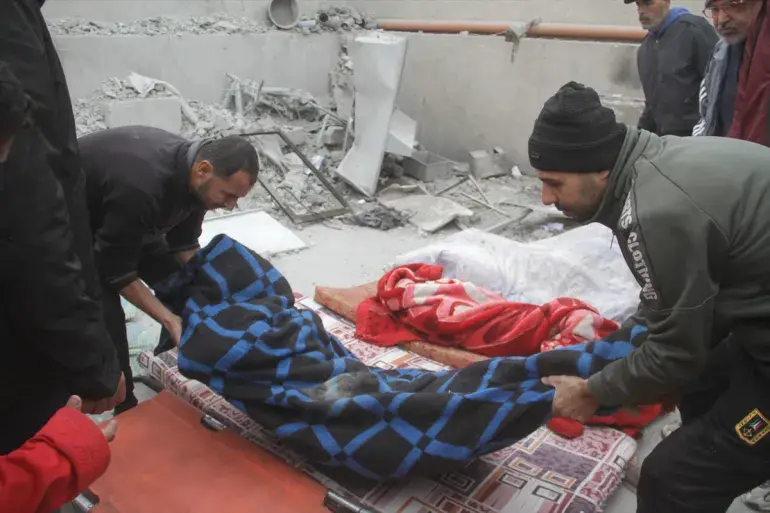
- Other deadly incidents reported between 10 and 15 December include:
- On 10 December, at about 23:00, 22 Palestinians were reportedly killed and others injured when a three-story building was hit near Kamal Adwan Hospital in Beit Lahiya in North Gaza.
- On 12 December, at about 00:30, seven Palestinians including children and women were reportedly killed and others injured when two apartments in a residential tower were hit in northwestern Gaza city.
- On 12 December, on two occasions at about 00:01 and 00:55, 22 Palestinians were reportedly killed and others injured when people were hit in Khan Younis and Rafah. According to the Government Media Office (GMO), fatalities included 15 people tasked with securing the movement of aid trucks, raising the number of people killed while securing aid trucks to 720 so far.
- On 12 December, at about 02:00, 15 Palestinians including at least one woman and seven children were reportedly killed, and several others injured, when a house sheltering IDPs was hit in western An Nuseirat refugee camp in northern Deir al Balah.
- On 12 December, at about 20:30, at least 34 Palestinians were reportedly killed and 40 others injured, when two residential buildings were hit in central An Nuseirat refugee camp, in Deir al Balah, according to PCD. According to the UN Children’s Fund (UNICEF), at least eight children were among the fatalities (see below). Extensive damage of the residential block was also reported.
- On 14 December, at about 13:45, 12 Palestinians, including at least two girls, one woman and the mayor, were reportedly killed and others injured when Deir al Balah Municipality in central Deir al Balah was hit.
- On 15 December, at about 21:05, at least ten Palestinians were reportedly killed and others injured when a house was hit in Ash Shuja’iyeh neighbourhood in eastern Gaza city.
- On 15 December, six people were reportedly killed and others injured when a PCD centre was hit in An Nuseirat refugee camp, in northern Deir al Balah. Fatalities reportedly included a cameraperson and four PCD staff and volunteers. The cameraman is among four journalists reported killed in Gaza between 11 and 15 December, according to the Committee to Protect Journalists (CPJ). As of 17 December, the Palestinian Journalists Syndicate reported that 188 journalists and media workers have been killed in Gaza.
- Between 11 and 17 December, the Director of Kamal Adwan Hospital in North Gaza reported near daily attacks on or very close to the facility, which currently hospitalizes 60 injured people, with debris and explosions shattering doors and windows, causing further damage to water tanks, the electricity generators and the oxygen supply network, and igniting a fire on the hospital’s third floor on one occasion. Due to ongoing insecurity and the lack of ambulances and equipment, medical staff have generally been unable to assist people trapped under the rubble in the surrounding areas or have themselves been hit. On 12 December, MoH announced that Dr. Saeed Judeh, the last orthopaedic doctor in North Gaza, was killed while en route from Kamal Adwan to the nearby Al Awda Hospital to treat patients. On the same day, according to the World Health Organization (WHO), a nurse was killed while travelling to Kamal Adwan. On 14 December, following four denied attempts by WHO to urgently deliver life-saving supplies to the hospital, the Organization and its partners reached Kamal Adwan, describing conditions in the health facility as “appalling”. The team delivered 5,000 litres of fuel, food and medicines, and transferred three critical patients and six companions to Al-Shifa Hospital in Gaza city. However, WHO’s request to re-deploy the Indonesian Emergency Medical Team (EMT) to the hospital continued to be denied, despite the need for immediate surgical interventions for injured patients. On 16 December, the facility’s Director informed that the intensive care department was targeted by snipers, with all windows hit, forcing medical staff to treat some of the injured in the corridors. As of 4 December 2024, WHO had recorded 591 health attacks across the Gaza Strip, including 23 since 20 November.
- On 11 December, the Humanitarian Coordinator (HC) for the Occupied Palestinian Territory, Muhannad Hadi, concluded a two-day visit to the Gaza Strip, where he met with displaced people and youth groups and witnessed first-hand the decimation of Gaza’s health sector. On 10 December, the HC visited a medical point operated by a network of local NGOs in An Nuseirat refugee camp, in Deir al Balah. Due to security concerns, the facility was temporarily evacuated five times, three of them in November 2024. It handles an average of 3,000 consultations per month, a quarter of which relate to infectious diseases. Urinary tract infections are prevalent among pregnant women due to the lack of clean water, amid shortages of microbiology tests to identify the types of bacteria. Other diagnostic procedures for women are completely unavailable, resulting in late diagnoses of cancer and invasive procedures as hysterectomies having to be performed instead of being able to treat conditions like uterine bleeding. The facility also suffers from severe shortages of medical supplies, including analgesics and Infection Prevention and Control (IPC) material, and medications are sufficient for only five per cent of the 80-100 patients visiting the medical point daily. The HC also visited the Nasser Medical Complex in Khan Younis, which had 655 admitted patients, with paediatric bed occupancy being at 250 per cent. All heart surgeries have been halted due to the lack of supplies for cardiac catheterization, and only other life-saving activities are being performed, while chemotherapy and other procedures have stopped. On 11 December, the HC visited the Al Aqsa Hospital in Deir al Balah, where he heard from hospital staff and management – as well as patients – about the struggles the heath system is facing. Speaking to journalists from Al Aqsa, the HC paid tribute to the medical teams who continue their work amid catastrophic conditions.
- More than 160 children, or an average of four children every day, have reportedly been killed in Gaza since the beginning of November 2024, stressed UNICEF’s Executive Director, Catherine RusselI, in a statement condemning the latest attack on An Nuseirat camp on 12 December (see above). Reiterating that there is no safe space in Gaza and that children lack everything, from food to safe water, medical supplies and warm clothes, the UN official added: “The world cannot look away when so many children are exposed to daily bloodshed, hunger, disease, and cold.” A recently released study based on data collected in June 2024 by the Community Training Centre for Crisis Management in Gaza, with support from the Dutch Relief Alliance and the War Child Alliance, reveals that 96 per cent of children in the surveyed households, where at least one child is injured, disabled, unaccompanied or separated from parents, felt that their death was imminent while 49 per cent expressed a desire to die. The study also found that 92 per cent of children were not accepting reality, 83 per cent experienced severe fear and 73 per cent exhibited aggressive behaviour, with many more showing signs of withdrawal and anxiety, alongside a pervasive sense of hopelessness.
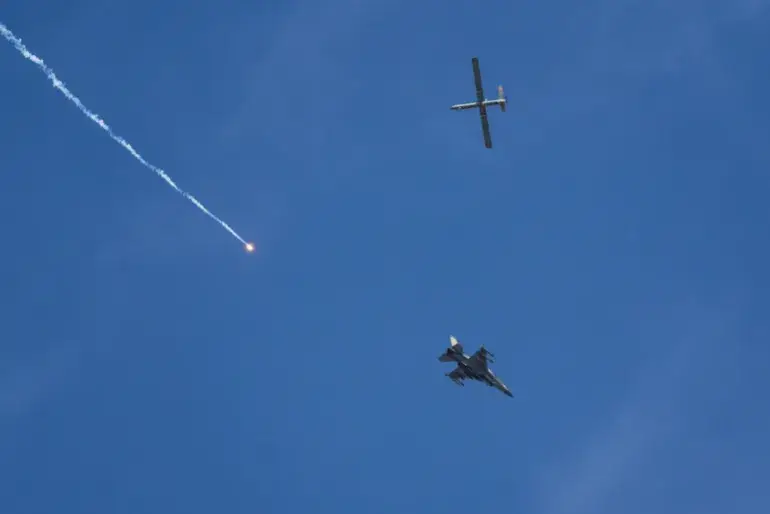
- Between 11 and 14 December, four evacuation orders were announced by the Israeli military, affecting at least 69,000 people in parts of Gaza city, North Gaza, Deir Al Balah and Khan Younis for which several evacuation orders had already been issued. The first order covered approximately 3.2 square kilometres in Deir al Balah and affected an estimated 10,000 people, including about 5,200 people residing across nine displacement sites. The second order covered about 1.8 square kilometres in Gaza city, affected at least 20,000 people, including IDPs in one UNRWA shelter, and resulted in the temporary closure of one UN-supported bakery and the suspension of water, sanitation and nutrition services. The area affected by this order includes the Patients Friends Association Hospital and three other health facilities. The first two orders triggered limited displacement according to reports by humanitarian partners. The third evacuation order covered about 5.5 square kilometres in both Gaza city and parts of North Gaza, including ten IDP sites, two health facilities, two distribution centres and 24 water trucking points, and affected an estimated 35,000 people. The displacement of about 250 families (~1,250 people) from this area southward, particularly toward As Sabra neighbourhood in Gaza city, was reported. The last evacuation order covered about 4.3 square kilometres in Deir al Balah and Khan Younis, affecting approximately 4,000 people, and resulting in the reported displacement of 450 families (~2,250 people). Since October 2023, about 80.5 per cent of the Gaza Strip’s territory has been placed under evacuation orders that remain active, excluding orders that were subsequently rescinded.
- On 8 December, OCHA conducted an assessment in East Khan Younis, visiting two of the neighbourhoods with the highest number of households - Ma’an, which hosts approximately 6,700 families (36,000 people), and parts of Bani Suhaila east of the Salah Al Din Road, where 9,200 families (45,000 people) are presently sheltering. The aim was to identify key needs in these communities after the multiple evacuation orders issued by the Israeli forces in East Khan Younis between May and October 2024 were revoked in parts of the area on 11 November, prompting the return of many families and the arrival of new IDPs from Rafah. The key findings are as follows:
- In both locations, people are residing in or near severely damaged or completely destroyed homes, with many having erected makeshift shelters on the ruins, which are precarious and at risk of collapse as the winter and rainy season begins.
- Access to domestic and drinking water is particularly scarce in Ma’an, with the community relying on low-pressure branches from the Mekorot supply line, which provide insufficient water to meet needs. Moreover, only a few private filling points, with small tanks of two to five cubic metres, are available.
- Sanitation and hygiene conditions are critical, with many in Ma’an relying on pit latrines. In Bani Suhaila, the sewage system has been destroyed, with sewage pools observed on the streets and the community highlighting the pressing need for rodent control.
- Due to the widespread destruction of infrastructure, people from both communities must travel two and a half kilometres to reach the closest market in Khan Younis city, and four kilometres to visit the nearest partially functional hospital, the Nasser Medical Complex, with access being challenging. Although medical points are available within closer reach, they only offer consultations and do not provide any medications.
- The lack of food assistance is one of the most critical concerns. In Ma’an, the community reported that no food aid distribution has occurred since they returned, nor have any malnutrition screenings been conducted or nutrition supplements provided. In Bani Suhaila, only a charity community kitchen provides hot meals twice a week, but quantities are scarce, and some individuals go entire days without eating.
- Information access is a key obstacle in Bani Suhaila, with internet coverage being scant and the radio being the primary means of information. The community reported not being aware of the eligibility criteria and registration system for flour distribution by the UN World Food Programme (WFP).
- In both communities, there is a pressing need for winterization assistance to protect makeshift shelters and tents from the harsh winter conditions, with women in Bani Suhaila also stressing the urgency to support children, prioritizing the provision of clothes, diapers, and baby milk.
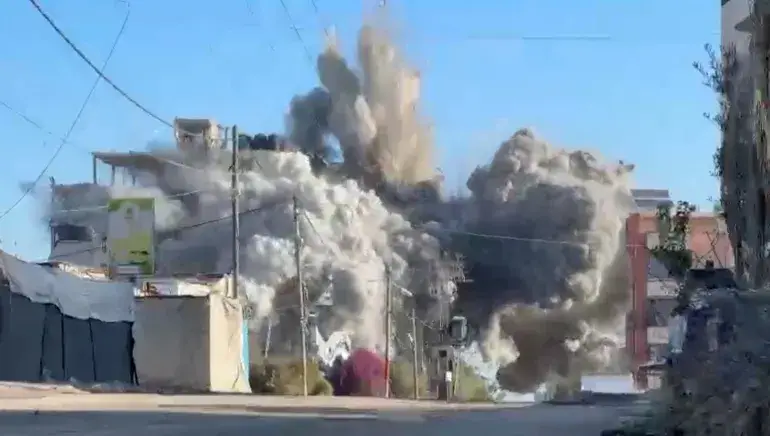
- Humanitarian organizations are struggling to meet growing shelter needs due to the recurrent displacement of Palestinians within Gaza, which itself is triggered by new evacuation orders issued by the Israeli military, flooding that has already caused shelter damage, and bombardment affecting collective displacement sites. Moreover, according to the Shelter Cluster, the limited entry of shelter materials into the Gaza Strip has meant that only 285,000 people could be assisted between September and late November 2024 while at least 945,000 others now require urgent winterization support to protect them from the rain and cold weather. Waiting outside Gaza are 58,000 sealing-off kits and over 36,000 tarpaulins that have already been procured to cover the needs of about 400,000 people, but these would need two months to be brought in at the current rate of 10 shelter trucks entering Gaza per week. Meanwhile, partners from the Site Management Working Group (SMWG) continue to support committees at 75 displacement sites with financial, technical and in-kind support for maintenance and repairs, but such assistance remains limited due to the prohibitively high prices of common winterization items, such as shovels, plastic ropes and cement bags, on the local market. There is also a lack of blankets and warm clothes, disproportionately affecting children in makeshift tents, many of which had been provided by aid agencies over the past year but have become unusable due to wear and tear. The lack of adequate shelter is compounding the already massive health needs, highlights WHO. While infectious diseases already spiked during the last winter season, as malnutrition rates continue to climb, such diseases are expected to have more severe consequences this winter, particularly for children. Between January and 17 November 2024, WHO recorded 1,210,306 cases of acute respiratory infections, 574,813 cases of acute watery diarrhoea and 114,367 cases of acute jaundice syndrome.
- Extreme insecurity in Gaza continues to negatively impact aid operations. On 11 December, a 70-truck convoy entering through the Kerem Shalom crossing was violently attacked by looters, leading to the loss of nearly all food and aid supplies. On the same day, a WFP convoy leaving the Kissufim crossing also came under fire, with four out of five trucks violently looted. “Attacks undermining humanitarian operations are unacceptable. They threaten the survival of those in desperate need of assistance,” noted the HC on 13 December. Emphasizing that “attacks on humanitarian operations can be avoided,” the HC reported that earlier in the week, “through an Israeli agreement for us to use the Philadelphi corridor, a joint UN convoy delivered urgently needed food, reaching nearly 200,000 people in southern and central Gaza.” In a statement on this important delivery, UNRWA highlighted that it “showcased how coordinated efforts can overcome logistical and operational barriers,” and added that the “the solidarity of the community was instrumental to the success of this mission, as members provided a more secure passage that allowed aid to reach families facing critical food shortages.”
- Between 1 and 16 December, out of 339 planned aid movements across the Gaza Strip requiring coordination with Israeli authorities, 30 per cent (102) were facilitated, 42 per cent (141) were denied, 18 per cent (62) were impeded, and ten per cent (34) were cancelled due to logistical and security challenges. These included 96 aid movements that needed to pass through the Israeli military-controlled checkpoints on Al Rashid or Salah Ad Din roads to reach areas north of Wadi Gaza (including both North Gaza and Gaza governorates), of which only 17 per cent (16) were facilitated by the Israeli authorities, 43 per cent (41) were denied, 26 per cent (25) were impeded, and 15 per cent (14) were cancelled. Aid missions to the North Gaza governorate were particularly disrupted, especially those seeking to reach Jabalya, Beit Lahiya and Beit Hanoun. Between 1 and 16 December, the UN attempted to reach these besieged areas 40 times, of which 38 attempts were denied and two were impeded. The first impeded mission took place on 1 December, deploying an EMT to the Kamal Adwan Hospital and evacuating patients following long delays. The second impeded mission took place on 11 December, when a UN team led by the Deputy Humanitarian Coordinator visited the Kamal Adwan and Indonesian hospitals but was not facilitated to reach areas in Jabaliya and Beit Lahiya where communities remain. Coordinated aid missions to areas in Rafah governorate, where there has been an ongoing Israeli military operation since early May, have faced similar challenges. All 20 coordinated requests submitted to the Israeli authorities to access Rafah governorate between 1 and 16 December were outright denied. This excludes 47 coordinated movements to Kerem Shalom crossing, of which 70 per cent (33) were facilitated, 19 per cent (nine) were impeded, four per cent (two) were denied, and six per cent (three) were cancelled.
- On 13 December, UNOSAT published an updated preliminary analysis of structural damage and destruction in the Gaza Strip, based on satellite imagery collected on 1 December 2024. The assessment shows that 170,812 structures, or 69 per cent of the total throughout the Strip, have either been damaged or destroyed, up from 66 per cent identified in the 6 September analysis. The governorates of North Gaza and Rafah have experienced the highest rise in damage, with 3,138 new structures damaged in North Gaza and 3,054 in Rafah. Within North Gaza, Jabalya municipality had the highest number of newly damaged structures (1,339 structures) and the fourth largest number of damaged structures (14,470) among all municipalities, following Gaza, Rafah and Khan Younis cities.
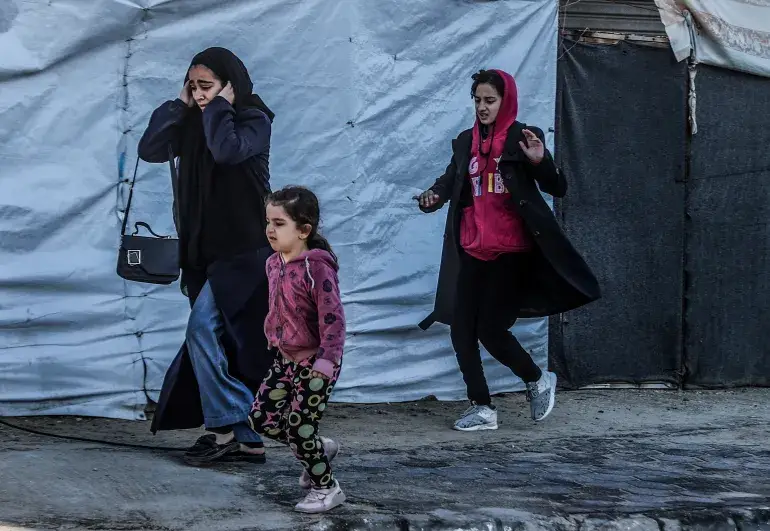
- According to a new assessment by the Education Cluster, which relies on satellite imagery collected on 1 December 2024, nearly 88 per cent of school buildings in the Gaza Strip (496 out of 564) have been directly hit or damaged and are currently estimated to require either full reconstruction or major rehabilitation work to be functional again. Fifty-five per cent of these schools (275) are government schools, a third (161) are UNRWA schools, and 12 per cent (57) are private schools. The increase is mainly attributed to an increase in the number of directly hit schools, particularly in North Gaza governorate where 11 out of 18 schools newly classified as “directly hit” over the past three months are located. Moreover, according to the assessment, most directly hit schools are in areas that were subject to evacuation orders by the Israeli military. Prior to the war, “direct hit” or “damaged” schools served about 542,959 students and had more than 20,320 teachers, which represented, respectively, about 88 and 87 per cent of the total student population and teaching staff in the Gaza Strip. In addition, 41 schools are now assessed as “likely damaged,” where at least one damaged site has been identified within 30 to 70 meters of school buildings, indicating the possibility that these school structures may have sustained moderate damage.
- Given the ubiquitous threat of unexploded ordnance hidden under the rubble, the Mine Action Area of Responsibility (AoR) under the Protection Cluster continues to raise awareness about the risks posed by explosive remnants of war. The Mine Advisory Group (MAG), jointly with Save Youth Future Society, has deployed 20 risk education teams across Gaza: five in Gaza city, eight in Deir al Balah and seven in Khan Younis. The teams deliver risk education sessions and emergency briefings in communities and on the streets, including interactive sessions tailored for children whose “natural curiosity puts them at higher risk of injury, as explosive items can often appear to be a tempting toy,” explains MAG. Furthermore, Mine Action AoR partners continue to conduct explosive hazard assessments at humanitarian sites, including schools and camps sheltering IDPs, health centres and UN facilities, with 36 such assessments conducted by the UN Mine Action Service (UNMAS) in November and 283 conducted in total since October 2023. In support of debris management efforts, assessments also target sites with extensive debris contamination, coupled with risk education sessions for construction workers, to ensure that future clearance efforts can be safely carried out.
859.


17 december 2024
The genocide and colonial expansion of the Israeli state are not powered on their own.
Israel’s military operations and colonial infrastructure heavily rely on imported crude oil and refined fuels, including jet fuel, gasoline, and diesel. In the past year alone, deliveries from the U.S., Russia, Azerbaijan, Greece, Italy, Brazil and more countries have supported these operations.
Israel’s electricity grid—powered by natural gas (70%), coal (17.5%), and renewable energy (10%)—supplies the settlements and settlers' infrastructure, particularly in the occupied West Bank and Syrian Golan.
A New Report by our partner SOMO released today is exposing those supply chains and the link to the Israeli energy sector’s use.
OUR CAMPAIGNING EFFORTS HAVE ALREADY LED TO COLOMBIA SUSPENDING ITS COAL EXPORTS TO ISRAEL. And our coalition efforts have also put the government of Turkey on notice for continuing to export oil despite its announced embargo. Our partners have forced Maersk to admit they are transporting weapons, and Spain has refused docking to boats of death. Our historic mobilization at COP29 has made us grow our movement to stop fueling the genocide.
Our movement is growing and further exposing these ties; evidence is essential to hold government and companies complicit accountable.
The arms and fuel that power Israel’s genocidal assault on the Palestinians, as well as its bombing and colonial expansion in Syria and Lebanon, are being challenged by workers, activists and political leaders.
All States must impose an energy embargo including by holding their Energy corporations accountable and we want you to continue fighting with us to make that happen.
Onwards,
Inès & Rula

858.


17 december 2024
Today's headlines
Decapitated and ‘shredded’ bodies: Survivors recount Israeli attacks on Gaza schools
Tareq S. Hajjaj
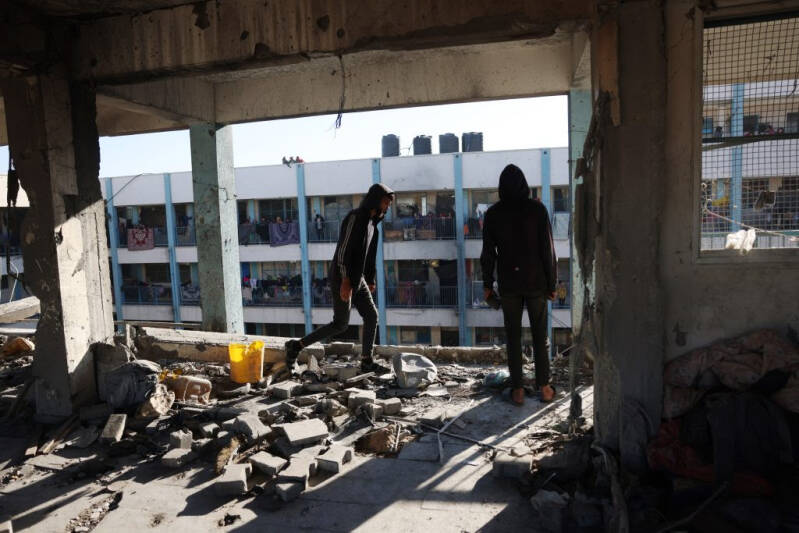
Israel bombed a number of schools and shelters for displaced Palestinians in Gaza over the weekend. Witnesses say that the Israeli attacks, which came without warning, caused the bodies of men, women and children to be burned and torn to shreds.
Amid ashes and blood, the Palestinian Authority carves its claim on Gaza
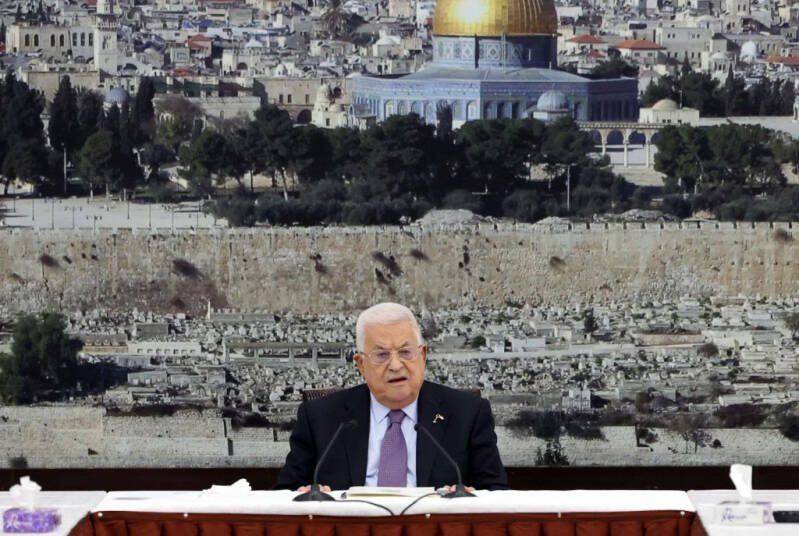
With the unprecedented destruction in Gaza, the Palestinian Authority sees an opportunity to position itself as central to the strip’s future — once again prioritizing its survival over the liberation of the Palestinian people.
Israel’s Genocide Day 437: Israel intensifies attacks on Gaza City
Qassam Muaddi
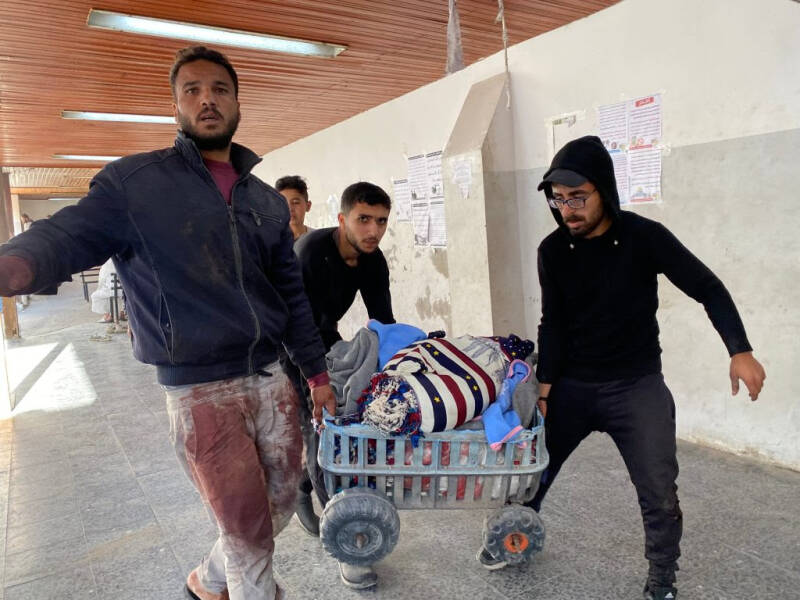
Residents of a number of Gaza City neighborhoods received evacuation orders from the Israeli military, fueling fears that Israel may be extending it's military operation, 'The General's Plan' from the northern areas of Gaza to Gaza City.
857.


17 december 2024
BDS Nederland start een campagne voor apartheidvrije zones, om de strijd tegen Israělische apartheid en genocide verder te intensiveren. Lees hieronder wat dat inhoudt en hoe je mee kunt doen.
Eind van het jaar is de gelegenheid van zorgverzekering te veranderen. Kies dan voor een verzekeraar die niet meehelpt Israel op de been te houden!
Computerfabrikant HP is ook onderwerp van een boycot. Wij vertellen je wat het probleem is met HP.
Een strijdbare groet van het docP team; blijf BDS-en!
Begin een apartheidvrije zone!

Begin een apartheidvrije zone!
De strijd tegen genocide en apartheid en voor een vrij Palestina is er een van lange adem. Daarom zet ook BDS Nederland nu vol in op het creëren van Apartheidvrije Zones: plaatsen en organisaties waar Israëlische producten geen plek hebben. Zodat gewetensvolle mensen weten waar ze terecht kunnen. Daarom: doe mee met het creěren van apartheidvrije zones en word deel van de gemeenschap!
Kies een genocidevrije zorgverzekering!

Schokkend nieuws: Volgens het rapport Don’t Buy Into Occupation investeren meerdere Nederlandse zorgverzekeraars fors in bedrijven die bijdragen aan de illegale Israëlische nederzettingeneconomie. Het gaat onder andere om de merken van Achmea en a.s.r.
Artsen voor Gaza is een campagne gestart om mensen te bewegen over te stappen naar een zorgverzekeraar die niet investeert in bedrijven die actief zijn in Israel.
Boycot HP

HP bedrijven spelen een belangrijke rol in Israëls onderdrukking van Palestijnen. Ze zijn medeplichtig aan Israëls bezetting, kolonialisme en apartheidsregime. Ze leveren computerhardware aan het Israëlische leger en onderhouden datacenters via hun servers voor de Israëlische politie. Ze leveren de Itanium-servers om het Aviv-systeem te bedienen, de geautomatiseerde database van de Israëlische bevolkings- en immigratieautoriteit.
Help ons het verschil te maken!
Het team achter de AFZ-campagne werkt onvermoeibaar om een duurzame gemeenschap van plaatsen en mensen met een geweten op te bouwen die zich inzetten om zich los te maken van elke directe of indirecte band met het Israëlische apartheidsregime en de bezetting. Om deze campagne te laten groeien en duurzaam te maken, stellen we uw steun op prijs.
856.


17 december 2024
We’re excited to announce a new, limited-edition poster on JVP’s online store.
The image is a striking black and white design emblazoned with the words “Until Palestine is free.”
It’s more than just artwork: Purchases directly support JVP’s work to build a Jewish movement fighting for Palestinian freedom.

In solidarity,
Jason Farbman
Digital Director, JVP
855.


16 december 2024
This year in Florida, our youth fellow Lydia made an unsettling discovery: her state had invested $700 million in Israel bonds. For many, that may have felt overwhelming and demotivating. But Lydia saw something else: the opportunity to build power. She organized community events, built a coalition of plaintiffs , and filed a precedent-setting lawsuit that´s now making headlines !!
In New Orleans, Adan used public records to expose weapons shipments moving through their port to Israel. Her meticulous research found that in May alone, the port exported over $51,000 in rocket launchers and $3 million in aircraft parts. She transformed these findings into a powerful campaign, with hundreds now joining port protests and community members regularly testifying at board meetings.
These young leaders aren't just responding to crises; they're following the money and building power to demand change.
854.


16 december 2024
Today's headlines
The willful and dangerous silence of the U.S. medical establishment on Gaza
Mansoor Malik, Ravi Chandra and Gary S. Belkin
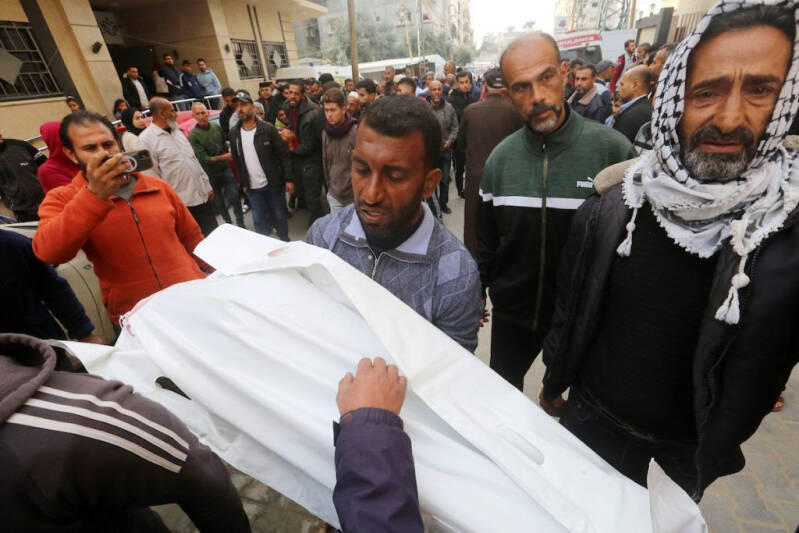
Despite overwhelming documentation of plausible genocide and medical war crimes in Gaza, major U.S. medical organizations, journals, and lobbies have neglected their duty to take a stand against these atrocities.
‘Do you value life, SJSU?’: longtime professor resigns over San Jose State University support for Gaza genocide
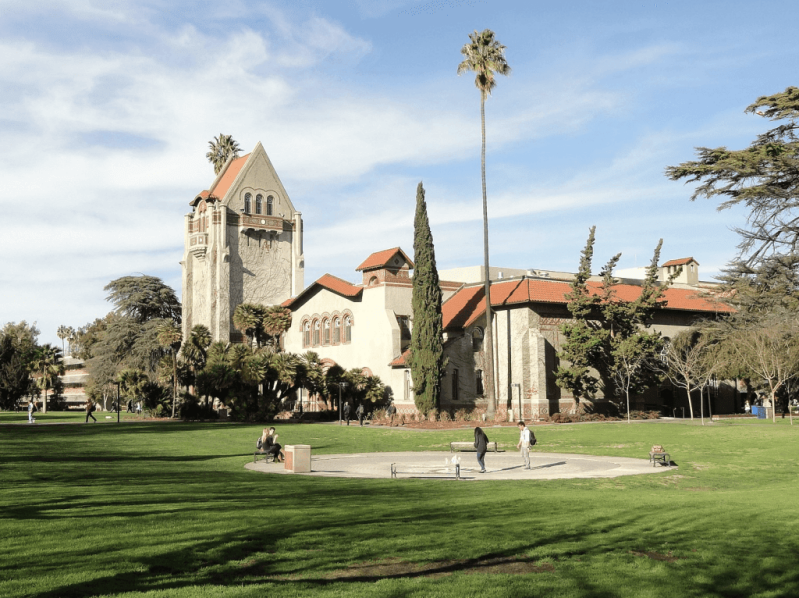
"I can no longer ethically or morally consent to use my labor in any way that supports an institution that is explicitly manufacturing consent for the unrestrained, illegal, 'apocalyptic' ongoing series of 'calculated' genocides to destroy Palestine."
853.


16 december 2024
Readers’ Recommendations
Israel strikes Syria as Netanyahu approves plan to expand Golan Heights settlement (The Guardian)
852.

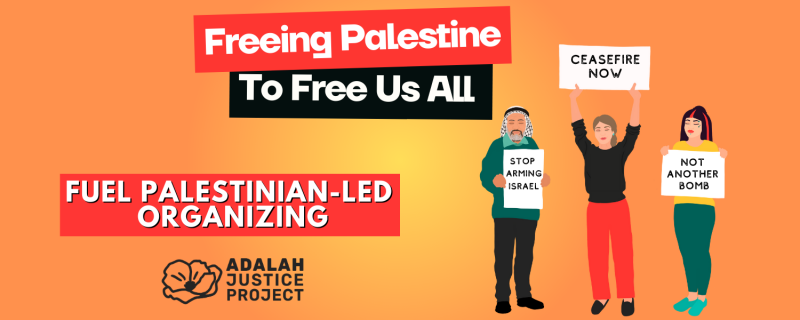
16 december 2024
Over the past year, as we’ve fought to stop the genocide in Gaza, we've witnessed seismic shifts in the political landscapes—both in the Middle East and here in the United States. Through it all, one thing has remained constant: our belief in the power of people-driven change.
Here at Adalah Justice Project, we've spent the last year asking: How can we dismantle the systems of oppression enabling genocide? As a Palestinian-led U.S. organization, where does our unique power lie in driving real change?
Together, we’ve achieved powerful milestones: making waves in D.C., gaining international press, reshaping the narrative, shifting public opinion, and demonstrating the strength of our movement. Now we need your help to turn that momentum into real power for Palestinians in Gaza.
As Israel’s economy falters, we see a critical opportunity to disrupt the economic foundations propping up colonial violence. Our current campaigns and research projects are connecting the dots, building our power, and chipping away at the foundations of Israeli apartheid.
The struggle to free Palestine is a struggle to free us all. In a world where Palestine is free, we are all free.
We owe it to the people of Gaza—and to ourselves—to stop this genocide. Let’s work together to dismantle the pillars of oppression until they fall.
For our collective liberation,
Adalah Justice Project
851.


15 december 2024
In Syria Israel sees an opportunity for expansion
The collapse of Syria’s central government has given Israel what it sees as a golden opportunity to solidify its hold on the Golan Heights—territory it annexed in 1981, though this move has never been internationally recognized. Now, with Damascus in disarray, Israel appears emboldened to push further, exploiting regional instability to advance its territorial ambitions. Israel’s actions in Syria reflect a dangerous pattern of leveraging chaos to expand its control, with little regard for legal or ethical boundaries. For Palestinians, these moves underscore the broader Israeli agenda of expansionism that disregards their rights and aspirations.
David Reed, Publisher
Wath ABOUT THE 'AXIS OF RESISTANCE'?
The October 7 Hamas attack unraveled truths across the region, reopening questions of the future that lay dormant for years. Now, with the fall of Assad, the power map is being redrawn, presenting new threats and possibilities.

A Syrian rebel fighter stands on a picture of Syrian President Bashar al-Assad, in the Old Town of Aleppo, on September 7, 2012. (Photo: Ahmed Deeb / APA Images)
Catch up
== Yechiel Leiter, a hardcore settler leader once involved in Meir Kahane’s fascist Jewish Defense League, will be Israel’s next ambassador to the U.S. He will use his role to advocate for one of his long-time goals: Israeli annexation of the West Bank.
== Four students at the University of Rochester are facing up to seven years in jail for putting up posters around campus accusing a small number of faculty members of enabling the genocide in Gaza.
== Since the fall of Bashar al-Assad, Israel has carried out an unprovoked invasion of Syria with the support of the U.S. The goals are clear: take strategic land, render Syria defenseless for the future, and redraw the political map of the Middle East.
== Israeli forces moved further into the Syrian Golan, forcing entire towns to evacuate. While Netanyahu celebrated what he says will be an “eternal” Israeli presence in Syria, U.S. officials insist Israel’s occupation of Syrian lands is “temporary.”
== With the fall of Syria’s Bashar al-Assad, the truce between Hezbollah and Israel, and reports of progress in Gaza ceasefire talks in Cairo, Palestinians in the Strip are hopeful their reality may soon change.
== At a recent convening at The Hague, state representatives to the ICC agonized over the disastrous implications for the international rules-based order should Benjamin Netanyahu and Yoav Gallant evade accountability for war crimes in Gaza.
== Columbia University staff are being suspended and terminated for participating in last Spring’s Gaza Solidarity Encampment, even if they were off the clock at the time. Similar cases are being seen across the country.
== Workers and members of Pittsburgh’s East End Food Co-op are calling for a referendum to boycott Israeli-sourced products in the store. They hope their campaign will become a model for co-ops across the country.
850A.


15 december 2024
Today's headlines
Meet the far-right settler Benjamin Netanyahu has tapped to be the next Israeli ambassador to the U.S.
Yechiel Leiter, a hardcore settler leader once involved in Meir Kahane's fascist Jewish Defense League, will be Israel's next ambassador to the U.S. He will use his role to advocate for one of his long-time goals: Israeli annexation of the West Bank.
University of Rochester students face 7 years in jail for displaying ‘Wanted’ posters on campus

Four students at the University of Rochester are facing up to seven years in jail for putting up posters around campus accusing a small number of faculty members of enabling the genocide in Gaza.
850.


14 december 2024

14 december 2024
Today's headlines
Inside Israel’s opportunistic invasion of Syria
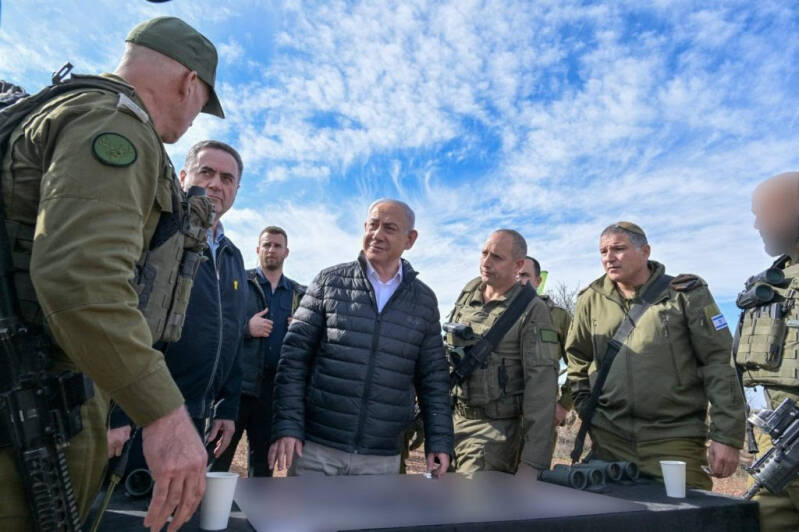
Since the fall of Bashar al-Assad, Israel has carried out an unprovoked invasion of Syria with the support of the U.S. The goals are clear: take strategic land, render Syria defenseless for the future, and redraw the political map of the Middle East.
849A.


Regimes can rise and fall within days. And yet, we’ve already seen the aggressive Israeli regime take advantage of this moment to advance its colonial expansionism, invading Syria and bombing it hundreds of times while continuing to massacre Palestinian families in Gaza.
Keep resisting genocide and colonial violence. Read the latest updates below.
Your Activist Scoop
OUR GOVERNMENT'S GUILT

- From Syria to Palestine, Israel is using our U.S. tax dollars to invade and attack with the goal of expanding its territory and stealing land.
- The International Criminal Court finally issued arrest warrants for Israeli war criminals Benjamin Netanyahu and Yoav Gallant. Nevertheless Gallant was welcomed at the White House this week.
- Amnesty International released a damning report thoroughly documenting what we’ve long known: Israel is committing genocide, and the U.S. must immediately stop arming it.
READ THE AMNESTY REPORT
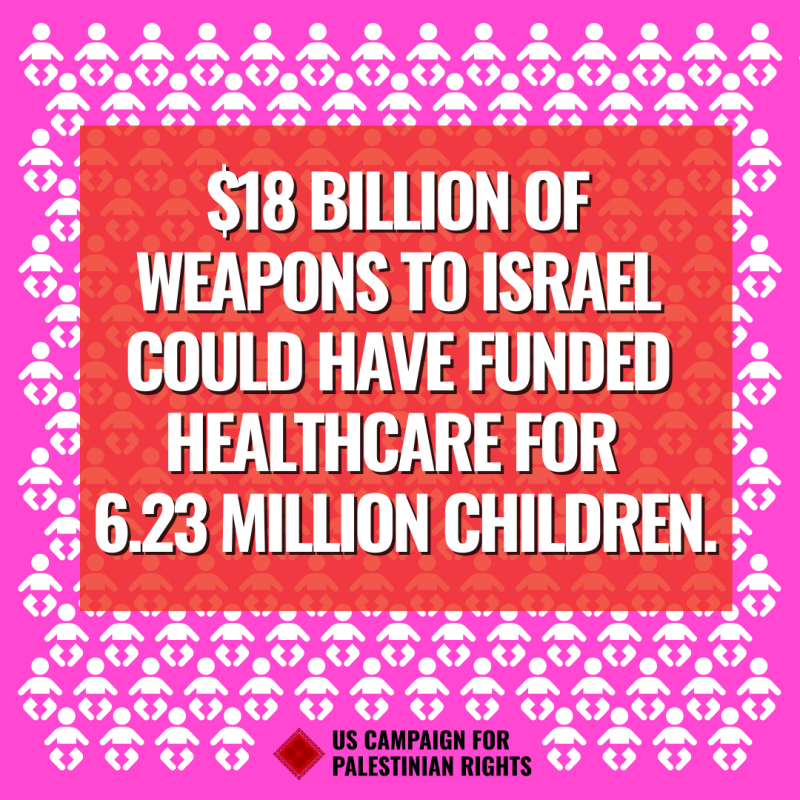
WHAT YOU CAN DO NEXT

- Tell your members of Congress to support the UNRWA Funding Emergency Restoration Act. They have a clear choice to make: Fund UNRWA humanitarian aid or starve Palestinian children.
FUND UNRWA
Onward to liberation,
849.


13 september 2024
Today's headlines
Israel occupies more Syrian land with U.S. approval
Qassam Muaddi
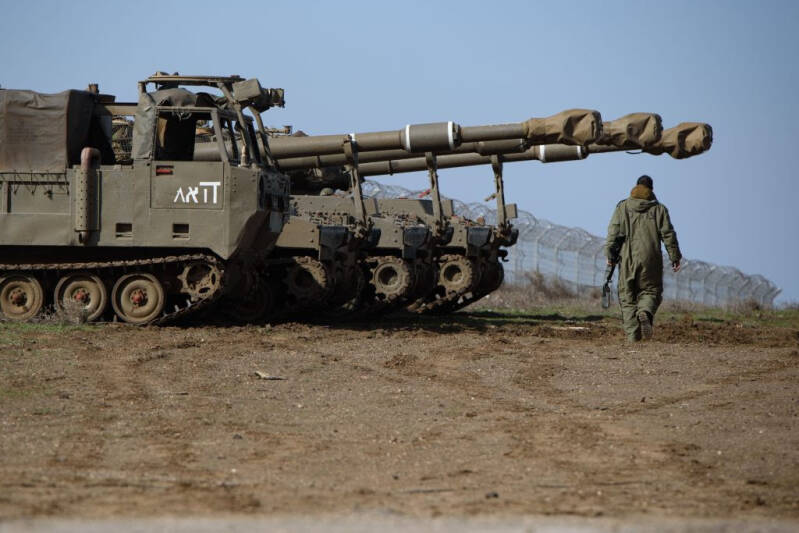
Israeli forces moved further into the Syrian Golan, forcing entire towns to evacuate. While Netanyahu celebrated what he says will be an "eternal" Israeli presence in Syria, U.S. officials insist Israel’s occupation of Syrian lands is "temporary."
Israel’s Genocide Day 433: U.S. national security advisor heads to Cairo, Doha for ceasefire talks
Qassam Muaddi
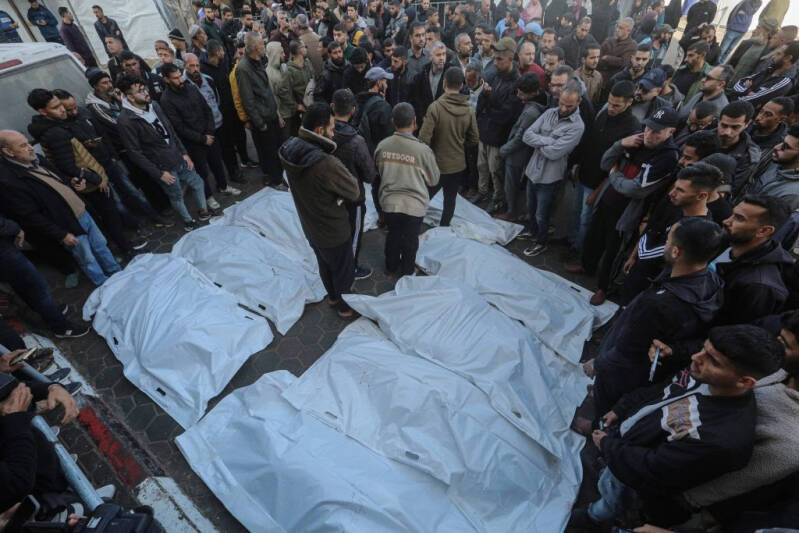
As a ceasefire deal appears to be inching closer in Gaza, Israel continues to carry out massacres in the Strip, killing at least 26 Palestinians in one attack. In the West Bank, Israeli settlers continue to attack Palestinian towns.
848.


13 december 2024
Met veel dankbaarheid verwelkomt The Rights Forum voormalig politica en presentatrice Sylvana Simons en historica Nadia Bouras in onze Raad van Advies (RvA). Als leden van de RvA zullen ze vanuit hun expertise het beleid van The Rights Forum verder verdiepen en verscherpen. De RvA komt enkele keren per jaar bijeen en voorziet de organisatie gevraagd en ongevraagd van advies

Over waarom Simons zich aan The Rights Forum wil verbinden zegt ze: 'De werkwijze van The Rights Forum is niet schreeuwerig, niet provocatief, maar zeker niet laf. En ik houd van moed, van moedige mensen en organisaties.'
Bouras stelt: 'In een tijd waarin het internationaal humanitair recht onder zware druk staat, is steun aan The Rights Forum onmisbaar. Het is mijn diepe overtuiging dat een rechtvaardige wereld de enige garantie biedt voor een veilige wereld voor ons allen.'
De komende tijd zullen Simons en Bouras hun motivatie om bij The Rights Forum te komen verder toelichten in video’s op onze social media en website.
Bekijk hiernaast alvast een eerste video met Sylvana Simons: 'dit is het moment om het goed te doen.'
Bouras stelt: 'In een tijd waarin het internationaal humanitair recht onder zware druk staat, is steun aan The Rights Forum onmisbaar. Het is mijn diepe overtuiging dat een rechtvaardige wereld de enige garantie biedt voor een veilige wereld voor ons allen.'
De komende tijd zullen Simons en Bouras hun motivatie om bij The Rights Forum te komen verder toelichten in video’s op onze social media en website.
Bekijk hiernaast alvast een eerste video met Sylvana Simons: 'dit is het moment om het goed te doen.'

Actieweek | NIET IN MIJN NAAM

Op 12 december startte Oxfam Novib een actieweek waarin van de regering een echte koerswijziging wordt geëist. Iedere dag vallen er doden door het Israëlische geweld. Ondertussen kijkt onze regering weg en weigert zich zelfs hard te maken voor een staakt-het-vuren. Niets doen is medeplichtigheid. 'Laat dit niet gebeuren in jouw naam,' luidt de oproep van Oxfam.
Er zijn verschillende manieren waarop je mee kunt doen. Om de grootst mogelijke impact te maken, heeft Oxfam een kant-en-klaar stappenplan gemaakt:
- Wil je meer weten over de actieweek? Bezoek dan de website van Oxfam.
Reis naar de illegaliteit | Geert Wilders bezoekt Israëlische oorlogsmisdadigers en kolonisten
Geert Wilders is terug van zijn reis naar Israël en de bezette Westelijke Jordaanoever, waar hij een reeks van oorlogsmisdadigers en kolonisten bezocht. Het is niet de eerste keer dat Wilders openlijk het coalitieakkoord schendt, waarin werd afgesproken dat de partijen het internationaal recht en de Grondwet respecteren. Wilders vindt zijn politieke zielsverwanten in de meest extremistische groepen van Israël, die net als hij een etnisch gezuiverde, pure etno-staat nastreven. Toch hield niemand hem tegen.
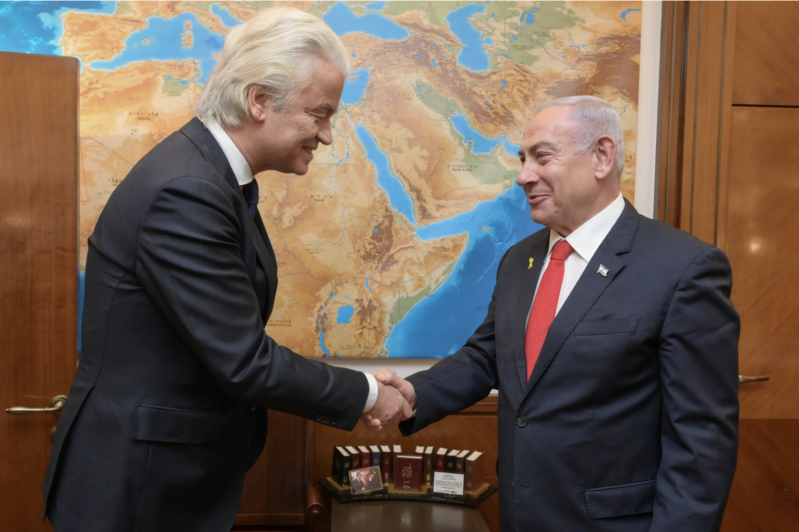
Partijen als de VVD en NSC zullen veel verder moeten gaan dan het ritueel uiten van onvrede, zoals minister van Buitenlandse Zaken Caspar Veldkamp (NSC) de afgelopen dagen deed. Als zij nog enige geloofwaardigheid willen overhouden dat zij de Grondwet en het internationaal recht beschermen, zullen ze de stekker uit dit kabinet moeten trekken.
Lees hier alles over Wilders' reis en zijn ontmoetingen met Israëlische kolonisten en oorlogsmisdadigers.

Tweede Kamer stemt voor het korten op de UNRWA-bijdrage
Dinsdag 10 december, de Dag van de Mensenrechten, stemde de Tweede Kamer over het destructieve voorstel van SGP en JA21 om de financiële bijdrage aan UNRWA af te bouwen. Zoals verwacht werd het voorstel met grote meerderheid aangenomen, met 88 stemmen voor en 49 tegen. Het 'afbouwpad' voorziet in een vermindering in de jaarlijkse steun aan de VN-organisatie, van €19 miljoen in 2024 naar slechts €1 miljoen in 2029.
Hypocriet en misdadig. Zo bestempelden wij het voorstel van de SGP en JA21 in een commentaar op onze website, voorafgaand aan de stemming. Voor het enthousiasme van de coalitiepartijen PVV, VVD, NSC en BBB om dat voorstel te steunen, geldt dezelfde kwalificatie.

UNRWA onmisbaar
UNRWA verleent sinds de oprichting in 1949 existentiële hulp aan inmiddels miljoenen Palestijnse vluchtelingen in Palestina en omringende landen. In het humanitaire spookhuis Gaza, waar het Israëlische leger al 14 maanden op een onbeschrijfelijke manier huishoudt, doen de UNRWA-medewerkers dat met gevaar voor eigen leven: meer dan 250 van hen zijn al door Israël gedood. Tweederde van de UNRWA-faciliteiten, waaronder scholen, medische posten en distributiecentra, zijn door Israël gebombardeerd.

Lees hier ons uitgebreide commentaar op het inmiddels aangenomen voorstel, waarin we onder meer de jarenlange Israëlische campagne tegen UNRWA uit de doeken doen.
Opinie | Israëls verbod op UNRWA. Beseffen we de verstrekkende gevolgen?
Voorafgaand aan de stemming over het voorstel om te korten op UNRWA, publiceerden wij een opiniestuk van Lex Takkenberg. Takkenberg werkte van 1989 tot 2019 voor UNRWA, waarbij hij als laatste de functie van eerste Chief Ethics Officer bekleedde, en is nu lid van de Raad van Advies van The Rights Forum.
Takkenberg schrijft dat 'de toekomst van UNRWA niet los kan worden gezien van de bredere problematiek van Palestijnse ontheemding. Als de VN relevant wil blijven in de Palestijnse kwestie en wil voorkomen dat Israël zijn koloniale plannen volledig realiseert, is het tijd voor een fundamentele heroriëntatie. Er is nu een uitgebreide, gezamenlijke benadering nodig: UNRWA en UNHCR moeten samen met de rest van het VN-systeem voor humanitaire hulp en mensenrechten de bescherming van de fundamentele rechten van vluchtelingen zoals hun identiteit, rechten en claims, centraal stellen. Dit is cruciaal, aangezien geen enkele andere organisatie deze verantwoordelijkheid kan overnemen.'
Lees het hele stuk >
847.


12 december 2024
Humanitarian Situation Update #246
West Bank

A 9-year-old girl who was displaced with her family from their home in Huwwara, Nablus, following an arson attack perpetrated by Israeli settlers. Photo: OCHA
Key Highlights
- Israeli settlers set fire to a Palestinian home in Huwwara town (Nablus), displacing a family of five.
- Since 5 December, Palestinian forces have carried out arrests and engaged in exchanges of fire with armed Palestinians in the northern West Bank. Palestinian forces shot and killed an unarmed 19-year-old Palestinian in Jenin.
- Israeli forces killed eight Palestinians in the West Bank, including four in airstrikes.
- The Israeli authorities demolished seven homes and displaced 20 people in An Nabi Samwil village, located in Area C on the East Jerusalem side of the Barrier.
- Assuming a constrained operating environment persists, the 2025 Flash Appeal for the Occupied Palestinian Territory calls for an initial US$4.07 billion out of at least $6.6 billion estimated by the UN and partners to be required to address the humanitarian needs of three million out of 3.3 million people identified as requiring assistance in Gaza and the West Bank.
Latest Developments (after 9 December)
- On 10 December, Israeli forces forcibly evicted a Palestinian family of ten, including six children, from their home in the Batn Al Hawa area of Silwan, East Jerusalem, following an Israeli Supreme Court ruling. The court ruled in favour of the settler organization Ateret Cohanim, based on claims of ownership of the land. The Palestinian family had resided in the property since 1979 and has engaged in a legal battle against eviction since 2015. This eviction is part of a wider pattern of displacement in East Jerusalem and comes shortly after the eviction of four households of the Shehadeh family from the same community in August. In total, 215 Palestinian households in East Jerusalem have eviction cases filed against them in Israeli courts, the majority by settler organizations, placing at least 948 people, including 408 children, at risk of displacement.
- On 11 December, initial reports indicate that a Palestinian shot and killed a 12-year-old Israeli boy and injured at least three other Israelis near the Tunnels Checkpoint, Bethlehem. According to the Israeli military, the Palestinian opened fire at an Israeli bus and then fled the scene. Israeli forces surrounded Bethlehem and Husan in search for the armed Palestinian, who reportedly turned himself in on 12 December.
- On 12 December, initial reports indicate that Israeli forces shot, killed and withheld the body of a Palestinian man in Qalqilya.
- On 12 December, initial reports indicate that Israeli forces shot and killed a Palestinian man and injured three others in an exchange of fire during a five-hour operation in Balata refugee camp (Nablus). Reportedly, Israeli forces conducted house raids and injured an elderly couple in their home.
Humanitarian Developments (3-9 December)
- During the reporting period, Israeli forces killed eight Palestinians, across the West Bank, including a child killed by settlement guards in East Jerusalem. During the same period, Israeli forces injured 39 others, including 14 children. One Palestinian was shot and killed by Palestinian forces in Jenin refugee camp. One Israeli soldier was injured in a ramming attack perpetrated by a Palestinian on Road 60, near al Fawwar Refugee Camp (Hebron). For more information on casualties and further data breakdowns, please see the latest West Bank Monthly Snapshot. The following list of key incidents includes all Palestinian fatalities during the reporting period:
- On 3 December, an Israeli airstrike hit a vehicle in Aqqaba village (Tubas), killing two Palestinians and injuring a third. The bodies and the injured person were transported to the Turkish Hospital in Tubas city. According to hospital sources, about 30 minutes after their arrival, Israeli forces raided the hospital, sealed all entrances, and opened fire inside, including in the emergency room; causing widespread panic and damage. During the raid, Israeli forces detained medical staff and interrogated the hospital director, demanding information about the bodies of the killed Palestinians and the whereabouts of the injured man. Israeli forces then released the detained medical personnel and withdrew from the hospital. According to the World Health Organization (WHO), between 7 October 2023 and 28 November 2024, over 650 attacks on health care have been documented in the West Bank, more than 60 per cent of which took place in Jenin, Nablus and Tulkarm governorates.
- On 3 December, Israeli settlement guards shot and killed a 15-year-old Palestinian boy near his home in Silwan neighbourhood, East Jerusalem. According to eyewitnesses, guards from an Israeli settlement drove through the Ein al Louzeh area, stopped near Israeli settler houses, and fired three live bullets toward Palestinian houses. Shortly after, Israeli forces arrived at the scene and arrested a boy who had been injured by the gunfire. According to the boy’s family, Israeli forces then raided their home and informed the family that the boy had sustained a minor leg injury. After withdrawing from the home, the forces summoned the boy’s father and informed him that his son had been killed, that his body will be withheld for investigations, and warned them against holding any funeral or condolence gatherings. Following the incident, Israeli forces fired teargas cannisters at Palestinians who gathered in the area, who threw stones at the forces.
- On 4 December, a 45-year-old Palestinian prisoner (from Tulkarm) was declared dead in an Israeli hospital. The man was detained on 28 November 2024 and was reportedly held by Israeli forces in Al Jalama detention centre before being transferred to Rambam Hospital in Haifa. The circumstances around his death remain unclear. This death is not counted in the total killed by Israeli forces during the reporting period.
- On 6 December, Israeli forces shot and killed a Palestinian man during an exchange of fire in Balata Refugee Camp (Nablus). According to UNRWA, undercover Israeli forces entered the camp, where they and Palestinians exchanged fire, resulting in the killing of one Palestinian. The Palestine Red Crescent Society (PRCS) reported that Israeli forces denied their access to the camp and the man was transported in a private vehicle to the hospital.
- On 7 December, Israeli forces shot and killed a Palestinian man at Qalandiya checkpoint (Jerusalem). According to eyewitnesses and video footage, the man launched fireworks into the sky in the vicinity checkpoint, after which Israeli soldiers shot the man and closed the checkpoint. The forces then shot teargas at Palestinian journalists and vehicles stuck at the checkpoint. PRCS was also denied access for about 30 minutes. Following the incident, Israeli forces raided the man’s home in Ar Ram town (Jerusalem), vandalized the house, and violently dispersed people who came to offer condolences.
- On 7 December, a Palestinian man injured one Israeli soldier in a ramming attack on Road 60 near the entrance of Al Fawwar refugee camp (Hebron). The driver fled the scene and Israeli forces carried out a search operation in the surrounding communities of the camp, during which Palestinians threw stones at the forces, who fired live ammunition. Israeli forces injured one Palestinian with shrapnel from live ammunition and physically assaulted and injured two others. All the entrances of Hebron city were closed by Israeli forces during the operation. According to Israeli media, an Israeli settler was injured by live ammunition shrapnel as Israeli forces attempted to shoot the Palestinian. Later, the Palestinian who perpetrated the ramming attack turned himself in to Israeli forces.
- On 9 December, an Israeli airstrike killed two Palestinians in Tubas. Undercover Israeli forces raided the city and a Palestinian money-exchange facility, reportedly seizing money. A couple of hours later, an Israeli drone targeted and killed two Palestinians in the northern part of the city. The five-hour operation took place in the morning hours, during which students of 13 schools were unable to leave.
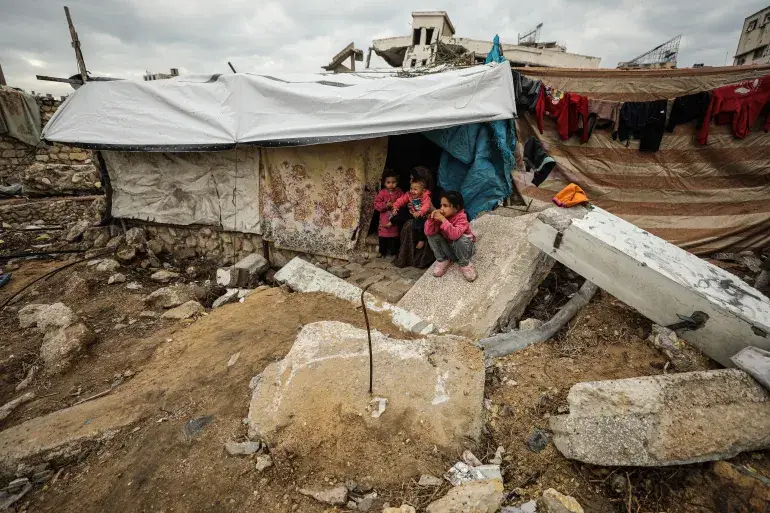
- On 9 December, Palestinian forces in Jenin refugee camp shot two unarmed Palestinians: a 19-year-old who was killed and a 15-year-old boy who was injured. Since 5 December, Palestinian forces have carried out arrests, including of an injured man who was taken from Ibn Sina Hospital and subsequently released, and engaged in exchanges of fire with armed Palestinians. In one instance, a fire broke out in the emergency department of Jenin Governmental Hospital as a result of fighting in the area. These developments have disrupted people’s access to essential services, especially in Jenin Refugee Camp, with all schools in Jenin city and camp still closed; affecting an estimated 69,000 people. The internal unrest has reportedly expanded to other locations in the northern West Bank, including reported shooting at the Tulkarm Governor’s Office building and tire burning near Balata refugee camp in Nablus. On 11 December, the UN Human Rights Office (OHCHR) called “on the Palestinian authorities in the Occupied West Bank to investigate the conduct of the Palestinian forces in Jenin Refugee Camp and hold to account those responsible for gross violations of international human rights law...Since 7 October 2023, the Palestinian forces have killed seven Palestinians including two boys in the occupied West Bank.”
- During the reporting period, OCHA documented 38 incidents involving settlers and affecting Palestinians, including 20 attacks that resulted in casualties, property damage or both, in addition to the displacement of a family of five including a nine-year-old girl after Israeli settlers attacked their home in Huwwara (Area B), south of Nablus, setting it ablaze (see details below). The most frequent type of incident reported this week involved the vandalism of trees, crops, and other agricultural property, resulting in damage to 65 trees and saplings, and cultivated crops in 2,000 dunums of planted lands; arson attacks and vandalism of Palestinian homes and vehicles, causing damage to five homes and eight vehicles; various forms of physical assault, most of which targeted farmers and herders; and vandalism of water networks and wells, affecting irrigation systems and water supply for agricultural lands. In total, five Palestinians were injured by Israeli settlers and three others were injured by Israeli forces during these attacks.
- The following are some of the key incidents involving settlers that took place during the reporting period, which entailed intimidation, harassment, physical injury, property damage or a combination thereof, and include cases where Israeli forces were present:
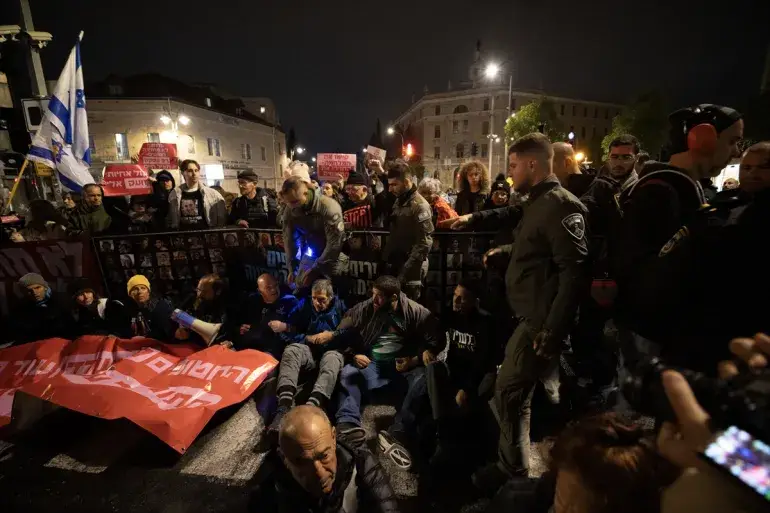
- On 4 December, Israeli settlers attacked and set fire to a home belonging to a Palestinian family of five in Area B of Huwwara town, south of Nablus. According to the family, the mother heard noises outside and approached the door where she found a group of settlers attempting to force their way in with an iron tool. The door was shoved into her face, causing a nosebleed, before she managed to close it again. Moments later, settlers threw Molotov cocktails into the house setting it ablaze. The family fled the house and were attacked in their yard. The father sustained injuries to his face and head after being struck with an iron tool, while four family members were physically assaulted. The family received medical treatment on the ground and the father was transferred to a hospital. As a result of the attack, the family was displaced as their home was destroyed along with two vehicles. Since 7 October 2023, some 300 Palestinian households comprising 1,762 people, including 856 children, have been displaced in Bedouin and mostly herding communities, primarily citing attacks by Israeli settlers and access restrictions.
- On 6 December, armed Israeli settlers believed to be from a newly established Pneii Hever settlement outpost broke into a Palestinian house in Masafer Bani Na’im in Hebron during the night while the family, including children, were inside. The trespassers threatened the family at gunpoint, demanding they leave the area, and vandalized some of their belongings. After exiting the house, the assailants slashed the covers of two residential tents with knives and destroyed a solar panel system.
- On 7 December, Israeli settlers believed to be from the Ofra settlement and surrounding outposts physically assaulted and injured two Palestinian men in At Tayba village (Ramallah). The injured Palestinians stated that while they were assessing some land plots in Area B to the west of the village, Israeli settlers driving quadbikes attacked them with sticks and stones, took over the land surveying device and hit one of the Palestinians, rendering him unconscious, and beat the other with a stick. Eventually, the Palestinians managed to flee to their village where the community transported them to a hospital.
- On 7 December, armed Israeli settlers believed to be from the newly established Maale Amos settlement outpost, raided Bariet Al Minya village in Bethlehem, broke into a Palestinian residential structure, destroyed two water tanks, rendering them unusable, and vandalized personal belongings. In addition, they then set fire to a storage tent used for animal fodder, resulting in the complete destruction of the tent and over three tons of fodder. Israeli forces arrived and dispersed the settlers from the area.
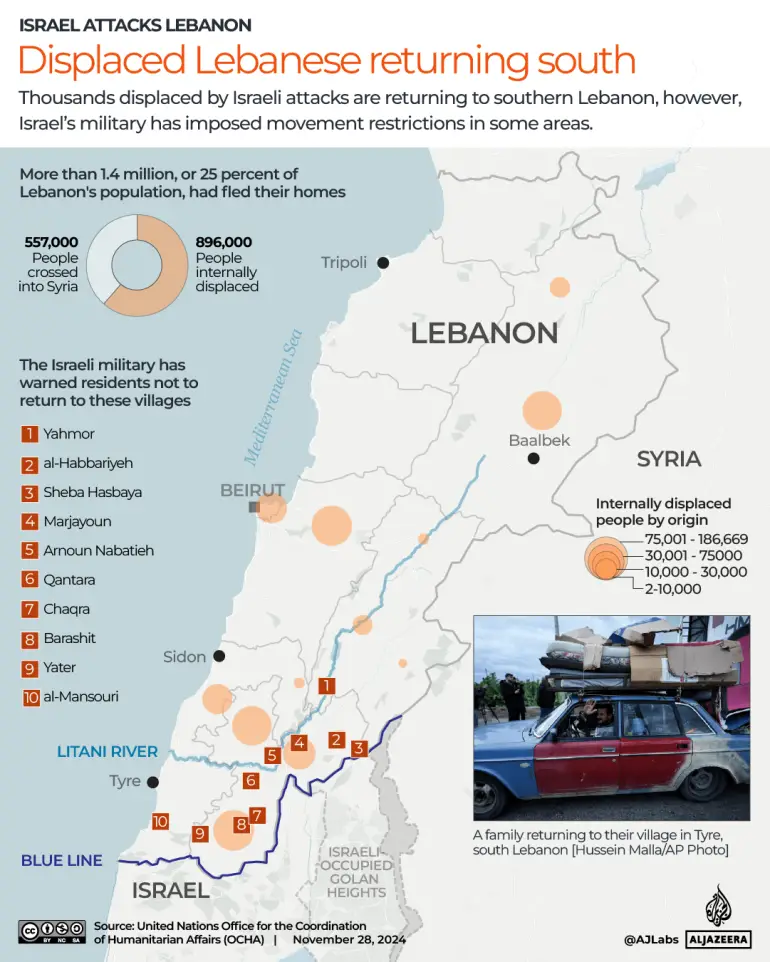
- Israeli authorities demolished or seized 31 Palestinian-owned structures across the West Bank, including East Jerusalem. This resulted in the displacement of 26 people, including 13 children, and otherwise affected the livelihoods, or access to services, of over 100 others. All targeted structures were in Area C of the West Bank and were demolished due to a lack of Israeli-issued building permits, which are nearly impossible for Palestinians to obtain.
- Nearly 80 per cent of the people displaced and about a third of the structures demolished between 3 and 9 December were reported in a single incident in An Nabi Samwil village, which is located in Area C on the East Jerusalem side of the Barrier and has been designated by the Israeli authorities as a national park area. According to the village council and the affected families, some of the structures had demolition orders issued years ago. The families had been pursuing the legal process to obtain permits. However, the demolitions were carried out without the issuance of final orders or proper notification to the families, resulting in the destruction of several personal belongings and furniture. On the day of the demolition, 3 December, the Israeli Civil Administration along with Israeli forces demolished seven Palestinian homes and three agricultural structures in An Nabi Samwil village, citing the lack of Israeli-issued building permits. As a result, four households, comprising 20 People, including nine children, were displaced from their homes and are at risk of being displaced from the community (see below). Additionally, two other households comprising 13 people, including eight children, were affected. Moreover, on the same day, the Israeli District Coordination Office (DCO) informed the village council of the revocation of Israeli-issued access permits through Al Jib checkpoint for five people whose homes were demolished. The community is dislocated from the West Bank by the Barrier route and checkpoints, as the residents hold West Bank IDs and therefore require a special Israeli-issued access permits to stay in their homes and commute between their village and essential services, such as health care, education and jobs, on the West Bank side of the Barrier.
846.


12 december 2024
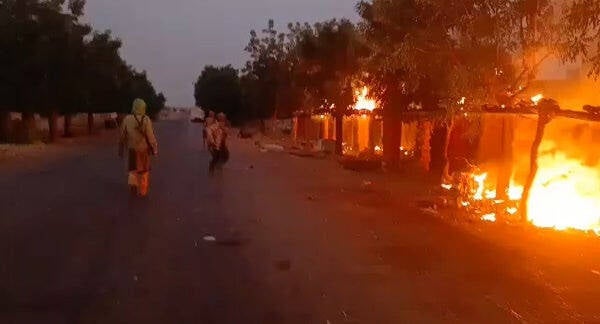
Readers’ Recommendations
- Death feels imminent for 96% of children in Gaza, study finds (The Guardian)
- Israeli forces responsible for a third of 54 journalists killed in 2024: Reporters Without Borders ( France 24)
846.


12 december 2024
West Bank Monthly Snapshot
Casualties, Property Damage and Displacement
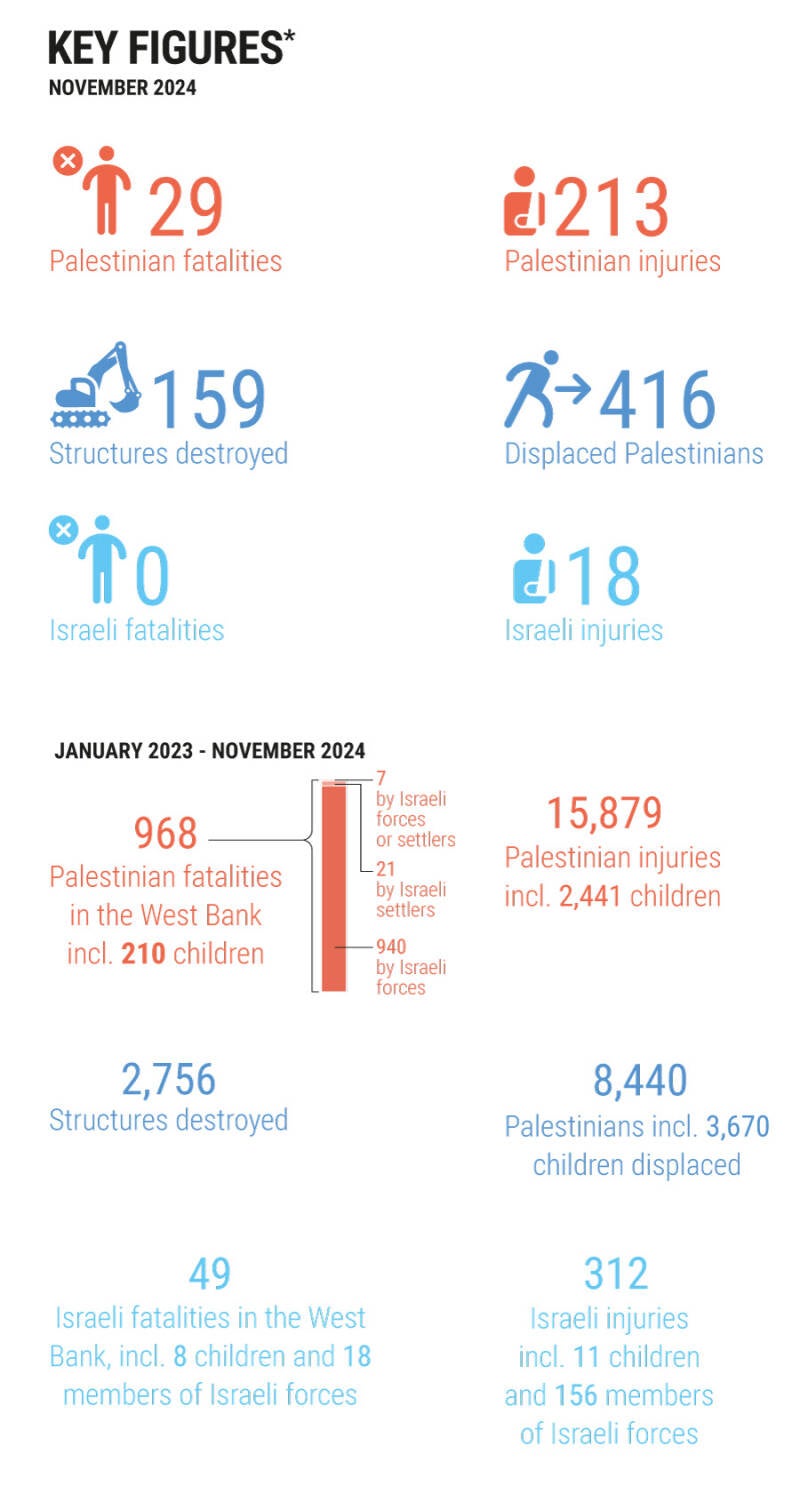

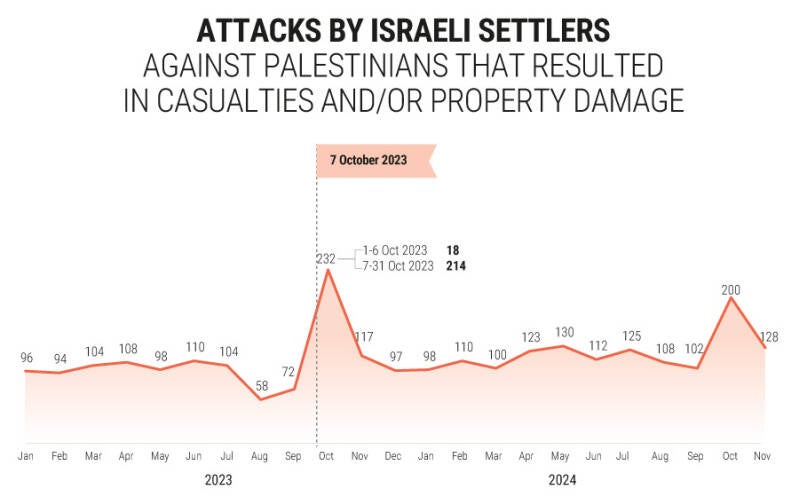
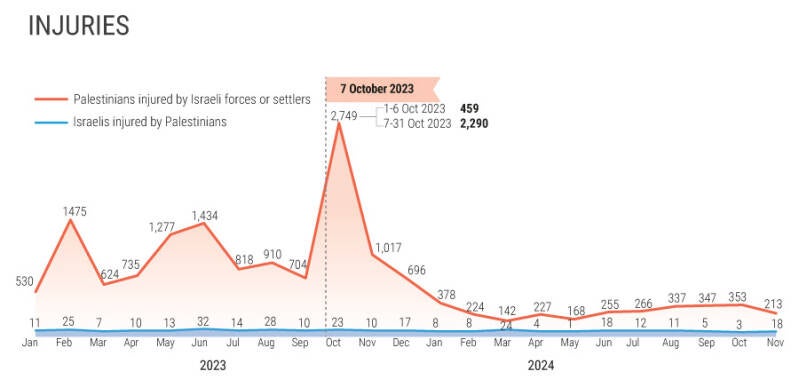

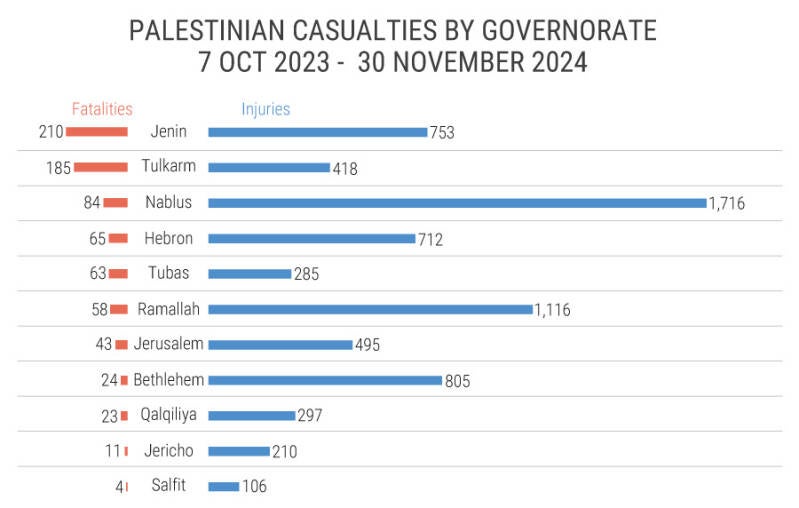

*Disclaimer:
- This report reflects information available as of the time of publication. The most updated data and more breakdowns are available at ochaopt.org/data.
- In Israel, 19 Israelis were killed by Palestinians from the West Bank in attacks that also resulted in the killing of 12 Palestinians between January 2023 and November 2024. These are counted separately, as this report covers incidents that took place in the West Bank.
- Palestinians or Israelis whose immediate cause of death or the perpetrator’s identity remain disputed, unclear, or unknown, are counted separately, so are casualties as a result of “friendly fire” and Palestinian prisoners from the West Bank who have died in Israeli custody. Figures also do not include UXOs, mishandling of weapons, hit-and-run incidents, and incidents where the perpetrator's nationality is disputed.
845.


12 december 2024
Did you see Ahmad’s email from earlier this week? As he said, we have a plan to hire four new full-time staff members, double down on divestment campaigns, and expand our fellowship program.
All our investments are meant to do one thing: build the durable, unyielding power our movement needs to stop arming Israel once and for all.
And while we still have much work to do toward our northstar goal of ending U.S. military funding to Israel, we have made huge strides this year:
We’ve shifted public opinion—over half of all Americans and 77%of Democratic voters support an end to weapons shipments. We’ve passed over 200 city resolutions calling for a ceasfire , showing the power of local organizing.
This email isn’t easy to write. In a year that has broken our hearts again and again, and with Palestinians in Gaza in dire need of support, it feels strange to write about our organizational fundraising goals.
But here's the truth: we have to transform how we work. We have to build something bigger. And we need to be honest with you about what that's going to take.
Every morning, our team at the US Campaign for Palestinian Rights gets to work knowing the weight of what's at stake. We hear directly from Palestinians and our partners on the ground. We're working hard, but we need to do more than just respond to crisis after crisis. We need to build power for the long haul.
Gratefully,
844.


11 december 2024
Syria, amidst hundreds of Israeli airstrikes.

Tell the Senate: Stop repressing our movements.
Power Half Hours for Gaza.

Every day at 3pm ET/12pm PT JVP hosts Power Half Hours for Gaza.
This Thursday December 12, we’ll be joined by longtime Palestinian organizer and Director of Adalah Justice Project, Sandra Tamari. Join us as we channel our grief and rage into collective action to end U.S. weapons sales to Israel.
843.


11 december 2024
No one had to tell us what happened on October 7, 2023. We were there, witnessing the rockets, the chaos, and the unimaginable stories unfolding in front of us. Since that day, we have been documenting the atrocities—the starvation, the bombings, the disappearances. Every hour in Gaza brings new victims, new horrors, and new stories of genocide.
The world may look away, but we refuse to. Mondoweiss exists to tell the story of the oppressed people under occupation, to deliver the life-changing stories behind every crime, and to demand accountability.
Over the past year, we’ve brought you unflinching accounts of the genocide in Gaza and its impact on Palestinians. Every story we tell is a testament to the resilience of those suffering and a challenge to the silence that enables their oppression. Our work ensures their voices are not forgotten. If we abandon this mission, who will tell the world what is happening in Gaza?
We have ambitious plans for the year ahead: Taking a deeper look at Gaza, uncovering the human stories behind the headlines, and countering disinformation..
-->Support Mondoweiss's work
Tareq Hajjaj,
Gaza Correspondent
842.


11 december 2024
Syria: Thousands amidst hundreds of Israeli airstrikes.
Last week, we argued that in the face of a rising far-Right, what we have is solidarity with each other. And true solidarity among the exploited and oppressed begins with the willingness to understand and bear witness to others' pain, recognizing it as inseparably linked to our own.
Tell the Senate: Stop repressing our movements.
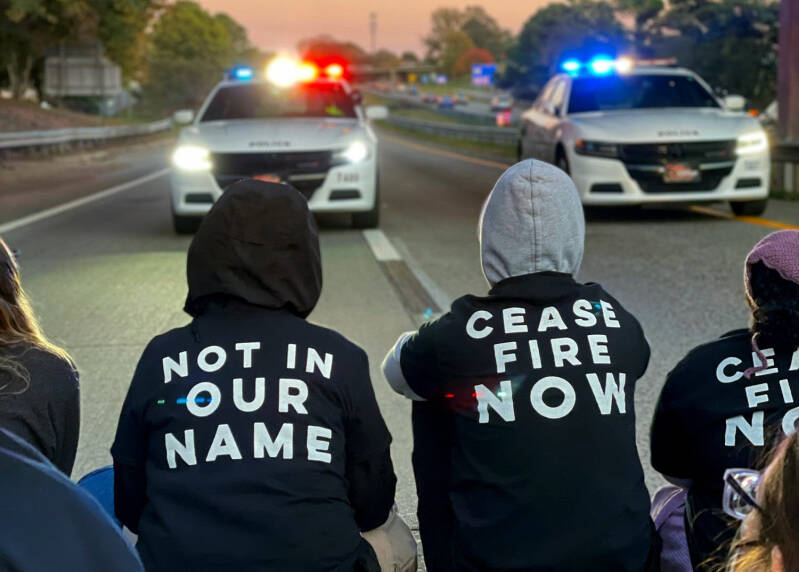
In just two weeks, we’ve sent demands that they oppose two incredibly dangerous pieces of legislation — part of the broader assault on the movement for Palestinian freedom and progressive causes writ large.
Power Half Hours for Gaza.
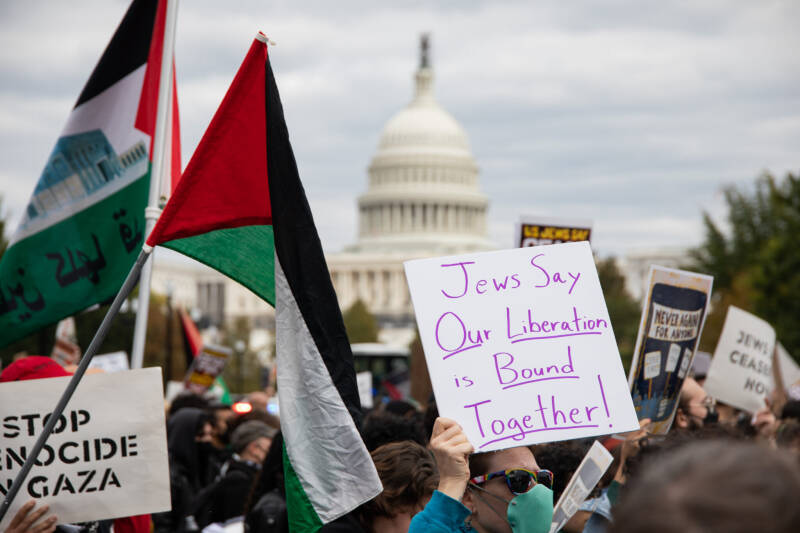
Every day at 3pm ET/12pm PT JVP hosts Power Half Hours for Gaza.
This Thursday December 12, we’ll be joined by longtime Palestinian organizer and Director of Adalah Justice Project, Sandra Tamari. Join us as we channel our grief and rage into collective action to end U.S. weapons sales to Israel.

Syrian journalist Rami Jarrah writes for Zeteo about the fall of Assad and what comes next.
841.


11 december 2024
I was born and raised in Palestine, living under the harsh realities of apartheid and occupation. From a young age, I dreamed of a different future—a future where my people could live freely, without the constant barriers of walls, checkpoints, and surveillance that restricted our movement, opportunities, and dreams. That vision of a liberated Palestine has shaped my journey and continues to inspire me every day.
I grew up in a village called Sinjel, about 5 miles from the city of Ramallah. One night when I was young, my family and I woke up by hearing a loud bang and screams of horror from next door. The Israeli military (IOF) had breached our neighbor’s house and took a 12-year-old boy named Ali. Ali was accused of throwing stones at an IOF military jeep passing through our town earlier in the day. The accusation came with no evidence and no witnesses, and the child was essentially tried and convicted without having a voice. These types of issues are an unfortunate daily way of life for Palestinians.
I had previously heard of these types of raids but never personally witnessed them. Since our family was so close to our neighbors, this incident was a turning point in my life. I realized that I had to do something to help my people that face these unjust situations.
At 18, I moved to the U.S., carrying with me the experiences and pain of occupation, but also hope for a better future. My transition to America was not just a move from one place to another, but a shift in understanding. I arrived in the U.S. expecting to find a world free of the restrictions I had known in Palestine. However, I soon discovered that the struggle for justice is not confined to one part of the world. I began to see how the fight for freedom, dignity, and equality was shared by many marginalized communities, especially Black and Brown people here in the United States.
This realization helped me connect the dots between the systemic oppression I had lived through in Palestine and the struggles of Black and Brown communities in America. I saw the same forces at work: the criminalization of entire communities, the militarization of police forces, and the brutal violence used to silence those demanding justice. The parallels were impossible to ignore. I began to understand that the fight for justice in Palestine is deeply connected to the fight for justice in America and across the world.
This realization deepened my commitment to the fight for freedom and justice and led me to join Eyewitness Palestine, where I could contribute to amplifying the voices of those often silenced. EP’s work—organizing delegations and webinars to help people learn firsthand about life under occupation in Palestine, including the heartbreaking arrest of children like my childhood neighbor—resonates deeply with my ongoing commitment to fighting for justice everywhere.

Reminder: Join our December Virtual Delegation to Nazareth on December 18, 12PM ET.

Do you want to be alerted about our 2025 delegations? Our first one will be taking place in February.
Eyewitness Palestine
PO BOX 73798
Washington, DC 20056
United States
840.

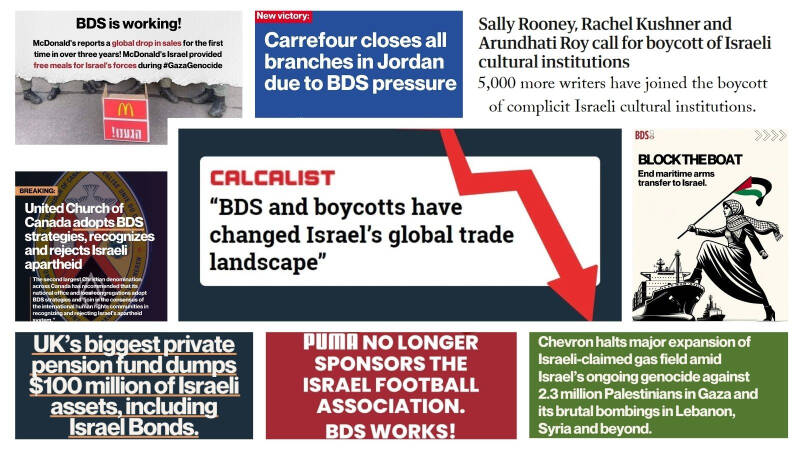
11 december 2024
Our website has been under unprecedented massive attacks, please be patient as every page will take longer to open, due to our heightened security measures to protect the website.
As painful and devastating as the ongoing massacres are, the failure of Israel’s live-streamed genocide to force Palestinians to surrender, compounded with its fast growing worldwide isolation, is a sign that its 76-year-old regime of settler-colonialism and apartheid is shaking, and we are closer to liberation. With miraculous steadfastness and determination, the Palestinian people continue to fight for justice, liberation, and our inalienable rights.
The impact of the BDS movement in fighting state, corporate and institutional complicity with apartheid Israel has grown greatly in these times of carnage. Below is just a brief sample of over 100 BDS impacts in the second half of 2024. With our collective agency, your solidarity, our intersectional coalitions, we CAN and shall rise again. We must end this. Let's end this!
BDS pressure to affect policy change – including by mainstreaming the analysis of Israel’s regime of settler-colonialism, apartheid and military occupation and the obligation to impose sanctions on it – has begun to show real impact:
- In July 2024, over 30 UN human rights experts called on states to respect the ICJ ruling that Israel’s occupation is illegal by imposing sanctions and a military embargo on Israel
- In September, the UN General Assembly overwhelmingly voted for imposing sanctions on Israel for the first time in 42 years
- In November, 52 states called for a military embargo on Israel, an initiative later adopted by the joint summit of the Organization of Islamic Cooperation (OIC) and the League of Arab States.
- Also in November, the Organization of Islamic Cooperation, South Africa, Belize, among others, called for the reconstitution of the UN Special Committee Against Apartheid which has been a demand of the BDS movement since 2020.
- In November, the African Commission on Human and People’s Rights responded to BDS calls and adopted the first resolution on Palestine in 24 years calling on African states to end complicity and ensure accountability.
In September, the Chairman of the Israeli Export Institute stated: “BDS and boycotts have changed Israel’s global trade landscape.” He added, “Economic boycotts and BDS organizations present major challenges, and in some countries, we are forced to operate under the radar.” Israel’s projected annual GDP growth rate for 2024 is 0%, according to leading credit rating agency S&P.
In response to Palestinian calls for the cessation of all energy transfers to Israel, the Colombian government in August issued a decree prohibiting the export of coal to Israel. Colombia was the largest exporter of coal to Israel.
The United Church of Canada, the second largest denomination across Canada, in November adopted BDS strategies in November, “rejecting Israel’s apartheid system.”
Complicit corporations are feeling the BDS heat more than ever, canceling or suspending projects that aid and benefit from apartheid Israel:
- Chevron, a priority target of the BDS movement, halted a $429 million expansion of an Israeli-claimed fossil gas field amid Israel’s ongoing genocide in Gaza and its brutal bombings in Lebanon, Syria and beyond.
- Global sales of McDonald’s, a prime BDS target, “fell by 1.5% between July and September, the biggest decline in four years, more than twice the size forecast by analysts. It followed a 1% drop in the April to June period.” “McDonald’s has faced boycotts and protests over its perceived pro-Israeli stance and alleged financial ties to the country.”
- Carrefour closed all branches in Jordan due to BDS pressure. Carrefour’s partner in most of the Arab World, the Majid Al Futtaim Group, reacted to BDS Jordan’s boycott pressure by ending all business with the French retailer in Jordan.
- Following relentless BDS campaigns worldwide, the German company PUMA was forced to end its complicity with Israel’s apartheid regime and in its #GazaGenocide.
USS, the UK’s biggest private pension fund, divested over $100 million of Israeli assets, including Israel Bonds, following sustained pressure from its members and the academic union, UCU.
Support our movement for freedom, justice and equality to grow even further.
The academic boycott has continued to grow at an inspiring rate:
- The American Association of University Professors reversed its long-held position against academic boycotts.
- The National Tertiary Education Union, representing 27K university workers in Australia, voted to support the boycott of complicit Israeli universities.
- Dozens of universities, academic associations and faculty unions took measures to end complicity in Israel’s Gaza genocide and underlying apartheid regime.
- The American Sociological Association agreed to divest from weapons manufacturers following a proposal by Sociologists for Palestine.
- The International Olympiad in Informatics voted by more than 67% not to recognize future Israeli delegations.
- The Italian Society for Middle East Studies voted by 96% to adopt the academic boycott.
Over 1,000 writers and publishing figures, including Sally Rooney, Rachel Kushner and Arundhati Roy, called in October for boycotting Israel’s complicit cultural institutions and pledged not to work with any publishers, festivals or publications “complicit in violating Palestinian rights.” A few weeks later, 5,000 more writers joined this cultural boycott initiative.
In August, the BDS movement discovered the MV Kathrin is traveling from Vietnam with 8 containers of explosives destined for use by Israel in its genocide against Palestinians. This #BlockTheBoat campaign, part of our global military embargo campaign, mobilized international solidarity groups from Malaysia to Slovenia and ensured significant delays for the shipment as for over two months the Kathrin was unable to dock anywhere. From Namibia and Angola to Montenegro and Malta, states refused to be complicit.
The Kathrin eventually had to abandon the Portuguese flag. The inspiring efforts of UN Special Rapporteur on the occupied Palestinian territories Francesca Albanese played an important role. This was just the beginning of a campaign that continues to target the maritime military and energy transfers to genocidal Israel.
These BDS impacts are just a snapshot of where we stand today. Thanks for continuing to stand in solidarity with our struggle against genocide, apartheid, settler colonialism and occupation and for the Palestinian people’s freedom, justice and equality!
The BDS movement media team
839.


11 december 2024
Quick Takes: Syria
Syria: New research by the Human Rights Data Analysis Group estimates 34,000 people were killed in custody (of all actors) in Syria from 2011 to 2023. It also estimates 80% of these were in Syrian state custody. Of course, such figures may evolve as more evidence now emerges.
Readers’ Recommendations
- Israeli warplanes pound Syria as troops reportedly advance deeper into the country (AP)
838.


11 december 2024
Gaza Humanitarian Response Update

Medical evacuation of patients out of the Gaza Strip. Photo by the World Health Organization.
Health
Response
- On 4 December, UNICEF delivered to the central cold room in Deir al Balah 20,000 doses of the seasonal influenza vaccine, comprising 6,200 single-dose vials and 1,380 vials of 10 doses, and 5,250 vials of 10 doses of the Tetanus Diphtheria (Td) vaccine.
- During the reporting period, the United Arab Emirates (UAE) donated 43 pallets of medicine and medical supplies to WHO for distribution and five ambulances to Nasser and European Gaza hospitals in Khan Younis and Al Awda, An Nuseirat and Al Aqsa hospitals in Deir al Balah.
- The Emergency Medical Team (EMT), which was deployed to Kamal Adwan Hospital in North Gaza on 1 December, was forced to relocate to the Public Aid Hospital in Gaza city on 6 December, as the hospital and its surroundings continue to be subject to strikes that have caused damage to all water, oxygen, and fuel tanks. On 1 December, WHO had also delivered 10,000 litres of fuel, provided 200 food parcels from WFP, and conducted medical evacuations of 23 patients from Kamal Adwan to Al Shifa Hospital in Gaza governorate.
- On 6 December, ICRC delivered medical supplies to Al Awda Hospital and evacuated 11 patients to Al Ahli Hospital in Gaza city.
- On 3 and 4 December, WHO successfully evacuated 19 patients along with 45 companions from the Gaza Strip to Jordan and Europe.
- Rehabilitation efforts are ongoing to support the admission of pediatric patients at Al Kheir Hospital in Khan Younis governorate.
- WHO reported that six environmental samples from Khan Younis and Deir al Balah tested positive for poliovirus. The polio technical committee is currently seeking to collect additional samples, conduct a risk assessment, and evaluate the need for another polio vaccination campaign.
Challenges
- Ongoing hostilities and attacks in North Gaza, particularly those that have directly affected Kamal Adwan Hospital, have seriously jeopardized the access of trauma patients to health services.
- A lack of non-communicable disease (NCD) medications and laboratory reagents threatens to further disrupt healthcare provision for patients with NCDs.
- There is a critical shortage of spare parts and generator oil needed for the maintenance of generators at all health facilities across the Gaza Strip.
- The limited number of functional crossing points and access impediments to collect supplies from them continue to cause shortages in medicines and medical supplies across the Gaza Strip.
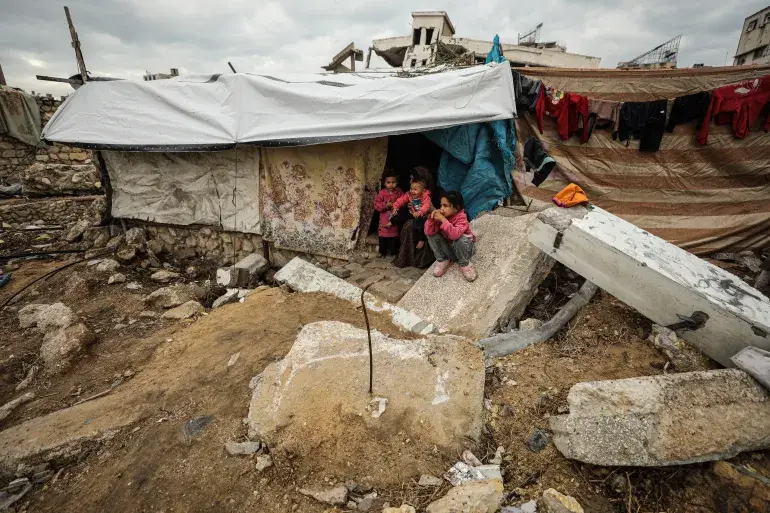
Nutrition
Response
- In November, 4,133 children were admitted for outpatient treatment of acute malnutrition, out of 75,000 screened children. Cumulatively, 33,588 children have been admitted for treatment since the beginning of 2024, representing more than two-thirds of the cluster estimate of the number of children who require treatment for acute malnutrition in 2024. Since July, the number of admissions has increased to more than 4,000 per month.
- WFP and UNICEF partners distributed different types of supplementary feeding for children in November, notwithstanding delays in the first half of the month due to logistical challenges. In total, the partners reached 146,000 children between six and 59 months of age in Rafah, Khan Younis, Deir al Balah and Gaza governorates.
- During the reporting period, UNICEF introduced a new ready-to-use complementary food programme in Gaza city, reaching 9,087 children between six and 23 months of age with fruit and vegetable-based baby food. The programme will be scaled up, especially since the findings of a new post-distribution monitoring (PDM) survey conducted by UNICEF during the reporting period showed that nearly 100 per cent of children between six and 23 months of age and pregnant and breastfeeding women (PBW) in both Gaza city and southern Gaza (Deir al Balah and Khan Younis) are not meeting minimum dietary diversity, which is defined as receiving foods from at least four out of seven food groups, with respondents in southern Gaza noting a sharp decline in the availability of goods in markets.
Challenges
- Cluster partners are not able to screen regularly enough all 346,000 children under five years of age to detect malnutrition cases that require treatment due to access challenges. So far in the fourth quarter of 2024, only 151,400 Mid-Upper Arm Circumference (MUAC) screenings of children have been conducted.
- In North Gaza, due to the escalation of hostilities, evacuation orders and tightened siege, all Nutrition Cluster partner activities remain suspended, including the treatment of acutely malnourished children and supplementary feeding for children and PBW.
- The massive displacement of people from North Gaza to Gaza city has caused delays in detecting and initiating treatment for malnutrition cases and compromised required follow ups for children already under treatment.
- The near halt to commercial trucks entering the Gaza Strip has not only driven commodity prices up and threatened market stability but also worsened the nutritional status of vulnerable children and women, who for months have faced severely limited access to adequate food, water and hygiene products.
- Shrinking humanitarian space and continued supply chain complications, including the inability to reliably pick up supplies from the Kerem Shalom Crossing due to insecurity and the risk of looting, have prevented full coverage of the needs, despite the prepositioning of adequate quantities of supplies outside the Gaza Strip.
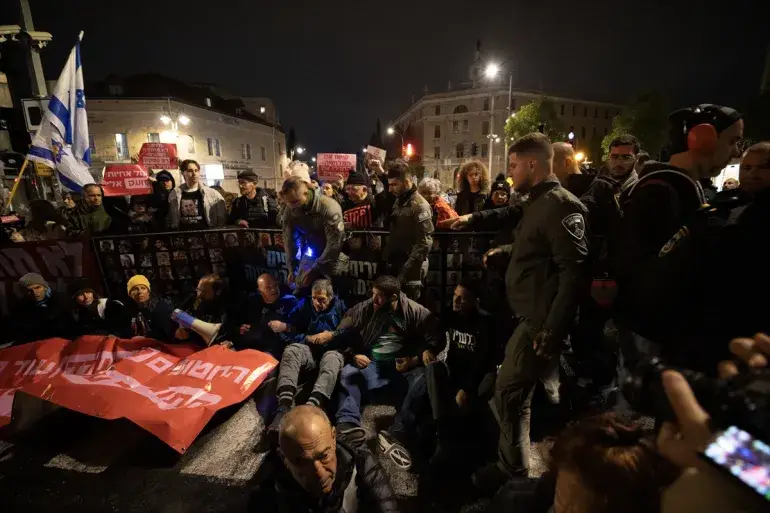
Food Security
Response
- As of late November, approximately 470,000 cooked meals prepared in 151 kitchens were distributed daily to families across the Strip. As supply shortage continues, partners have been adjusting the meal content or reducing the number of meals prepared to cope with the challenges.
- During the month of November, about 1.3 million people across the Strip received reduced rations of at least one food parcel, noting that the figure is tentative as monthly data reconciliation by partners is ongoing.
- As of 9 December, only four out of 19 bakeries supported by WFP remained operational across the Strip, all of them in the Gaza governorate. These bakeries have been operating at full capacity since 7 December and have received additional fuel from southern Gaza on 8 December, after functioning at only half capacity due to fuel shortages between 30 November and 6 December. Bread delivery to some shelters and community kitchens for distribution along with cooked meals has also resumed. In Deir al Balah and Khan Younis, all eight bakeries remain closed due to flour shortages and security concerns related to overcrowding, while partners continue prioritizing household-level flour distribution, with each family receiving at least one 25-kg bag of wheat flour as the stock becomes available gradually. Meanwhile, in North Gaza and Rafah, seven bakeries remain closed due to ongoing hostilities.
- To mitigate severe shortages of wheat flour, the latter is currently being prioritized for entry into the Strip via the Fence Road. According to anecdotal market observations, the price of one 25-kg bag of flour spiked to at least 1,000 NIS ($280) on 1 December in Deir al Balah amid severe scarcity, while it costs 875 NIS ($245) in Khan Younis. This is in contrast to 20-30 NIS ($5.6 - $8.4) in Gaza city, to which there has been a constant flow of wheat flour.
Challenges
- Most parts of the North Gaza governorate have been under a tight siege for 60 days. Access remains extremely challenging, and Food Security Sector (FSS) partners’ ongoing attempts to deliver aid into these besieged areas continue to be largely prevented despite daily requests for access.
- Security incidents in late November resulted in the killing of three FSS partner staff and the destruction of one kitchen. The safety and security of humanitarian workers, contracted drivers and related service providers remains a grave concern. Humanitarian partners must be allowed to assist people in need safely and at scale, and civilians must be protected and guaranteed unobstructed access to life-saving assistance.
- Although humanitarian assistance remains the primary food source for most households in Gaza, there has been a sharp reduction in daily truck entries, with only 92 trucks entering daily on average in November, which is only 18 per cent of the pre-conflict daily average. Nearly all incoming trucks in November carried humanitarian aid, with few commercial trucks crossing into the Strip. The convergence of financial hardship, limited market availability, and escalating food insecurity underscores the severity of the humanitarian crisis in the Gaza Strip, with vulnerable populations facing mounting obstacles to meet their basic needs.
- As of early December 2024, about 100,000 MT of food commodities, equivalent to over two months of food rations for the whole population, continue to await entry outside the Strip and must be urgently brought in to ensure continuous food dispatch and distribution.
- Resuming agricultural activities, including small-scale home, community and school gardening, is critical to increase diet diversity and reduce food gaps in Gaza. The FSS continues advocating for the safe entry of agricultural supplies, including through the private sector, following recent reports of partners’ requests being denied when attempting to bring in seed kits, nylon sheets for greenhouses and fertilizers that contain nitrogen, phosphorus, and potassium. Safe access of farmers, breeders, and fishermen to their lands, livestock and the sea is equally critical for resuming agricultural and livelihood activities and restoring the food supply chain. An estimated 50 million tons of debris are scattered across the Gaza Strip, with the removal of hazardous materials, including unexploded ordnance, being essential to ensure safe agricultural practices.
- In November, food consumption patterns across the Gaza Strip highlighted extremely poor dietary diversity, with bread and pulses dominating household diets for the second consecutive month. Vegetable consumption has plummeted from six days per week prior to the conflict to nearly zero currently, while meat and eggs have declined from three days per week to being almost non-existent at present.
- A recent market monitoring report for November 2024 highlighted that severe financial constraints and skyrocketing prices are the primary obstacles to market access, with over 70 per cent of the Gaza population citing a lack of money as the dominant barrier. Security concerns further compound the issue in northern Gaza, where two-thirds of households reported restricted access due to safety risks. These challenges have significantly deteriorated food accessibility across all governorates. More than 80 per cent of households reported reduced access to food in November, worsening an already critical situation in October.
- The energy crisis is further worsening as the winter begins, with a growing reliance on burning waste for cooking fuel in northern Gaza, where cooking gas has not been entering for more than 13 consecutive months. While cooking gas remains available in Deir al Balah and Khan Younis, it is sold at exorbitant prices on the black market, which have increased by 663 and 917 per cent respectively compared to pre-crisis levels. On the formal market, cooking gas is in extremely short supply and is sold at the price of 60 NIS ($17) per eight kilograms, though access is unstable. Persistent challenges in accessing cooking gas and the consequent reliance on firewood and on burning waste to cook continues to hinder proper food preparation and the intake of nutritious food, exacerbates health and protection risks, and causes environmental hazards.
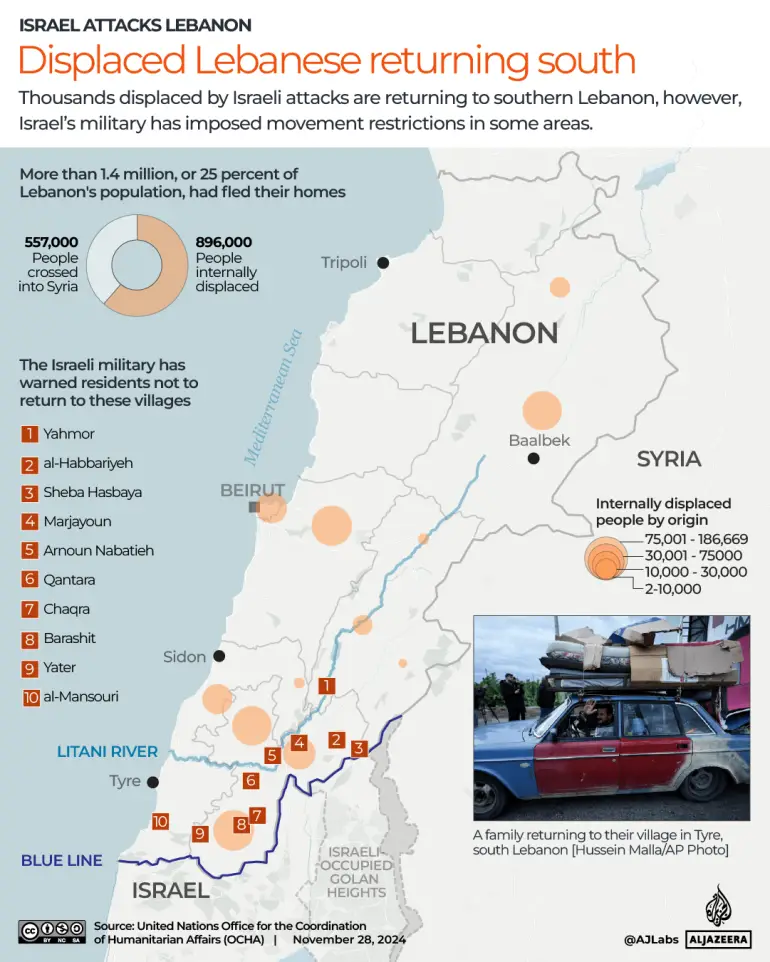
Logistics
Response
- Between 24 November and 7 December, five direct convoys comprising 134 trucks were dispatched from Amman to Erez West crossing. Of these, 67 trucks carrying 464 metric tonnes of food, WASH, shelter, and health items were facilitated by the Logistics Cluster on behalf of seven partners. As of 7 December, the Logistics Cluster facilitated a total of 91 humanitarian inter-agency convoys through the Jordan corridor, dispatching 1,175 trucks carrying 11,682 metric tonnes of aid into Gaza on behalf of 25 partners.
- Operations to collect and transport supplies from Erez West crossing are ongoing despite security incidents that have resulted in commodity losses.
- On 29 November, the Logistics Cluster successfully completed the installation of two Mobile Storage Units (MSUs) at the platform at Kissufim crossing.
- Between December 2023 and 7 December, the Logistics Cluster consolidated 24,409 metric tonnes of humanitarian cargo at the consolidation warehouse in Amman, and a total of 52,652 metric tonnes at common storage facilities in Gaza.
- As of 7 December, 1,001 trucks for UN and International NGOs (53 per cent of which are loaded with food supplies) are awaiting in Al Arish, ready to be dispatched into Gaza.
Challenges
- Severe access and security constraints as well as looting incidents continue to hamper the ability of the Logistics Cluster to safely and consistently collect and transport humanitarian aid on behalf of partners. During the reporting period, the Logistics Cluster was unable to conduct transport operations from Kerem Shalom/Karem Abu Salem crossing following a number of severe looting incidents that resulted in truck damage and substantial cargo losses.
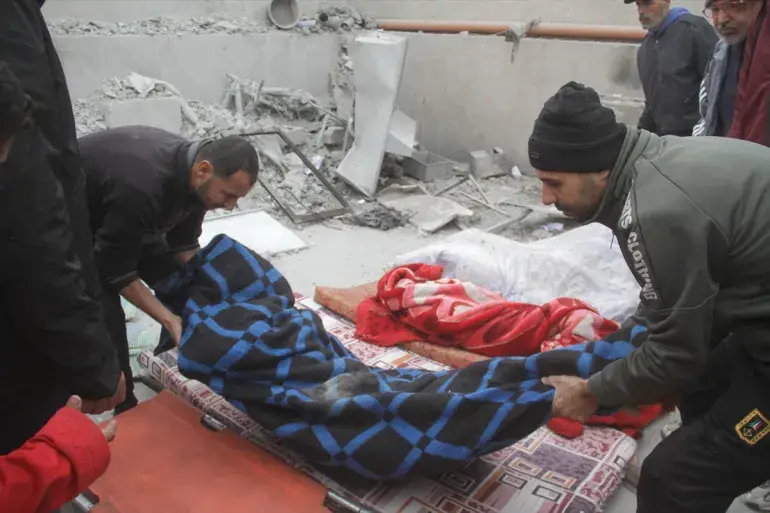
Water, Sanitation and Hygiene (WASH)
Response
- Between 24 November and 7 December, the Palestinian Water Authority (PWA) and Coastal Municipalities Water Utility (CMWU) reported that, on average, a total of 87,574 cubic metres of water was produced daily across the Gaza Strip. Of this quantity, an average of 51,900 cubic metres of drinking water was produced from the two operational seawater desalination plants and the three Mekorot supply lines. Municipal ground water wells produced an average of 35,659 cubic metres. Since 7 December, CMWU has been able to produce 20,000 cubic metres of water per day from the South Gaza Desalination Plant, which is its maximum nominal capacity.
- During the reporting period, WASH Cluster partners received only 16.7 per cent of the daily minimum requirement of 70,000 litres of fuel to meet critical WASH and public health needs, including water production and distribution, sewage management, repair works and solid waste management.
- Three ground water/ brackish water desalination plants are being installed or rehabilitated:
- A new plant has been commissioned in Khan Younis, with a capacity of 50 cubic metres per hour, which will support water supply both via trucking and network distribution.
- A brackish water plant with a capacity of 60 cubic metres per day has been rehabilitated in Ad Daraj water well No.7 and is now operational.
- A small scale, solar-powered desalination plant in Jabalya (Omari water well) is currently operational, with a production capacity of 50 cubic metres per day.
- Between 16 and 30 November, 30 WASH Cluster partners reported the distribution, by trucking, of a total of 6,950 cubic metres of water per day to 766 water collection points (3,788 cubic metres of drinking water and 3,162 cubic metres of domestic water). Persistent shortages of fuel supply, along with security concerns, continue to hinder water distribution in Gaza city.
- CMWU has initiated water transmission pipe repair works from the South Gaza desalination plant to Khan Younis (Satar Reservoir). Some parts of the works have already been completed, and water is flowing in Satar Reservoir. One of the challenges, however, is that internally displaced people (IDPs) are residing just over the route of the pipeline, which is affecting the pace of the repair works.
- Given the increased production capacity of the South Gaza Desalination Plant, a plan to install five to six filling points inside or near the plant is underway to upscale water trucking capacity by reducing truck queuing time, which would consequently increase water distribution capacity in western Deir al Balah and Khan Younis.
- Critical winterization efforts are yielding significant progress, with earthworks in Wadi al Salqa now completed, enhancing drainage capacity to mitigate flooding risks. Additionally, the transfer of 40,000 cubic metres of solid waste from the Al Aqsa dumping site to the Al Amal disposal site has commenced, while 200 cubic metres of solid waste has been removed from Wadi Saber.
Challenges
- Severe constraints on the internal transport of materials inside Gaza mean that the bulk of WASH items are not entering at a sufficient rate, with 50,000 MT of WASH supplies currently on standby in Jordan and Egypt and awaiting entry into the Strip.
- Constraints on fuel supplies for the operation of key WASH facilities continue, with both supply chain issues hampering the entry of fuel into Gaza and denials of access to re-supply water production points in the North Gaza and east Gaza city governorates. Reports indicate that the population in North Gaza is now relying on small, privately owned water points which are unable to provide adequate water quantities and distribute water effectively.
- The winterization response is severely constrained by the limited entry of required equipment and materials into Gaza, particularly dewatering pumps; challenges in moving supplies from southern to northern Gaza, which is hampering pipe works for dewatering the Sheikh Radwan pond; and access denials, which are hindering earthworks in Wadi Kishah. At the same time, the transfer of solid waste to safe locations remains a challenge in the south-western part of the Gaza Strip.
- In northern Gaza, some of the new IDPs are sheltering in buildings damaged in the hostilities, whose sanitation facilities have been destroyed, with the identification of technical sanitation solutions proving extremely challenging. Currently the IDPs are improvising latrines with limited privacy and improper disposal. Solutions require materials that are currently unavailable in northern Gaza.
- Reports indicate significant structural problems at the Sheikh Radwan lagoon pumping station, including cracks and detachment of concrete slabs, which are critically endangering the functionality of the pumps. Immediate structural repairs are urgently needed as the pumping station serves as the sole downstream outlet for the lagoon. The lagoon is already inundated with sewage and rainwater, posing an imminent risk of severe flooding and contamination and threatening the safety of thousands of IDPs sheltering in the surrounding area.
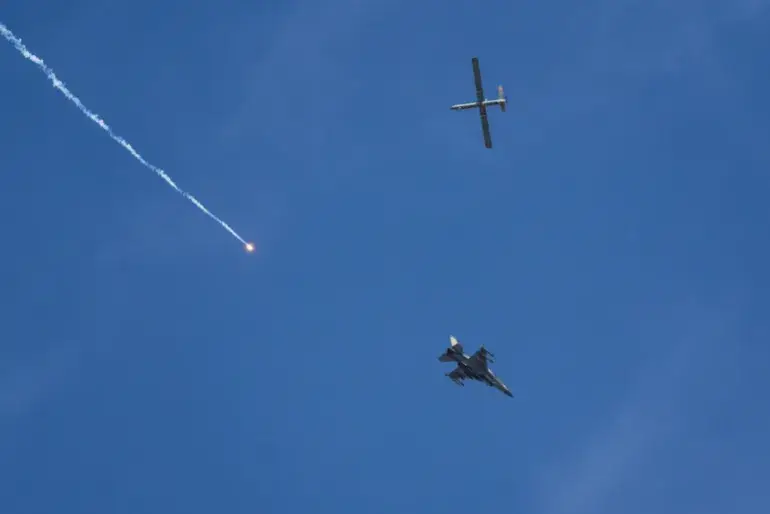
Shelter and Non-Food Items (NFI)
Response
- Shelter Cluster partners continued to track new displacement from the North Gaza governorate to Gaza city and responded with shelter NFIs, tents, winter clothes and sealing-off kits. During the reporting period, Cluster partners assisted approximately 3,800 families with shelter materials at various displacement sites in the Gaza governorate.
- In Khan Younis and Deir al Balah, over 2,400 families received Shelter NFI Kits, which included sealing-off kits and bedding kits.
Challenges
- Active hostilities, armed looting, access restrictions, damaged roads, lack of fuel, and unexploded ordnance all continue to hamper Shelter Cluster partners’ efforts to scale up shelter assistance in Gaza.
- Weather conditions are deteriorating, and displaced people do not have adequate shelter. Partners continue mobilizing resources to address emerging needs.
- There are about 43,000 sealing-off kits and over 21,000 tarpaulins that have been procured and are waiting to be brought into Gaza. These materials would serve over 55,000 families (~ 300,000 people). At the present rate of 11 trucks with shelter materials entering Gaza per week, it would take at least another seven weeks to bring these items into the Strip. Shelter partners are currently in the process of procuring hundreds of thousands more kits and tarpaulins.
Site Management Working Group (SMWG)
Response
- During the reporting period, SMWG partners continued with phase one of the baseline site assessment exercise, conducting a total of 601 assessments across 177 sites in the Khan Younis and Deir al Balah governorates. This baseline assessment aims to ensure accurate data about site location, population estimates and needs. It is anticipated that this exercise will generate a smaller, more accurate site master-list, enabling the humanitarian community to more effectively provide services in these IDP sites.
- SMWG partners continue to carry out winterization preparedness activities across 75 IDP sites in Khan Younis and Deir al Balah governorates that host approximately 75,000 people, supporting site-level committees with financial, technical, and in-kind support for maintenance and repairs.
- During the reporting period, SMWG partners identified at least 212 households (803 people) that moved from northern to southern Gaza via the checkpoint on Al Rashid Road and referred them to partners for further support.
- SMWG partners conducted various capacity strengthening activities, including training sessions for site management committees from seven displacement sites.
Challenges
- New evacuation orders in areas of Khan Younis and North Gaza have caused further displacement.
- Following the heavy rains of 24 November, flooding and shelter damage was recorded across numerous sites, particularly affecting displaced people living along the coastline.
- The skyrocketing prices of common winterization items on the local market have made assistance to communities nearly impossible. The prices of shovels and plastic rope have increased by 300 and 345 per cent, respectively, while the price of a single bag of cement has risen by 1,900 per cent. Moreover, many items are simply unavailable in local markets.
- UNRWA collective shelters continue to be impacted by ongoing hostilities, resulting in deaths, injuries, destruction, and further displacement. Partners continue to call for the protection of civilian infrastructures, including IDP shelters.
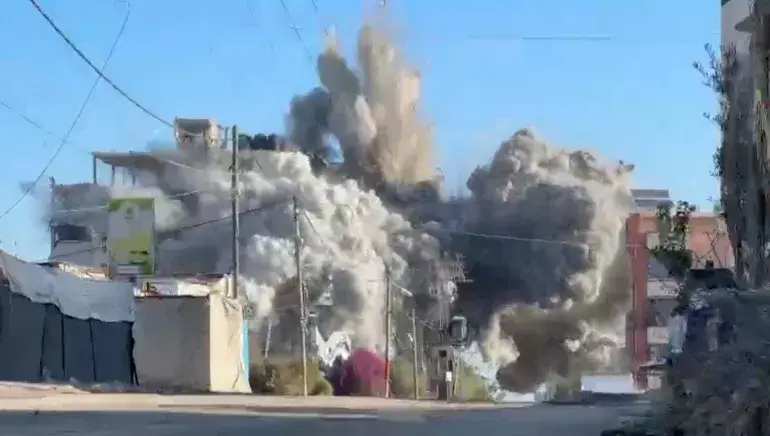
Protection
Response
- Partners continue to carry out Protection Monitoring, completing 64 key informant interviews and seven focus group discussions in 42 neighbourhoods and 14 municipalities during the reporting period. Since the roll-out of the Protection Monitoring System [PMS] in August 2024, 140 trained emergency protection responders have completed 988 key informant interviews and 55 focus group discussions, during which they monitored protection cases, disseminated information on available services, and made critical referrals for urgent cases.
- UNRWA protection teams trained 34 deputy shelter managers to serve as Protection focal points at UNRWA shelters in Gaza governorate. During the reporting period, monitoring findings show that families are struggling to meet their basic needs and the top five reported humanitarian concerns driving protection risks include: safety concerns including child safety; lack of food and/or kitchen items, particularly flour to make bread; critical shortages of water and WASH facilities; lack of or destroyed shelters due to rainfall, with families primarily using old blankets to set up makeshift shelters that compromise their safety and dignity; and lack of livelihoods. About 70 per cent of participants reported being displaced at least once within the last 60 days, and 63 per cent indicated a need for immediate intersectoral services, including food, shelter and WASH services.
- Child Protection partners provided 20,000 children and 22,000 caregivers with Mental Health and Psychosocial Support Services (MHPSS); delivered awareness raising sessions on child protection risks and explosive remnants of war (ERW) to 5,757 children and 1,811 caregivers; provided case management services for 1,627 cases, including the reunification of four cases of unaccompanied and separated children with their families; and received 8,000 winter clothing kits and procured 1,000 from the local market to distribute.
- During the reporting period, UNRWA’s protection teams conducted 29 observation missions in shelters and IDP sites across Khan Younis and Deir al Balah governorates, including Al Mawasi, carried out 18 focus group discussions and 20 key informant interviews, and continued to monitor aid distribution and follow up on vulnerable cases. The teams also delivered BBC Lifeline podcast activities to 117 children and carried out awareness raising sessions in UNRWA shelters and IDP sites on explosive ordnance (91 people reached), gender-based violence (118 people), prevention of sexual exploitation and abuse (218 people), and child protection (50 people).
- During the reporting period, 101 Palestinian detainees were released at the Kerem Shalom crossing. UNRWA provided the released detainees with accommodation in UNRWA shelters, mattresses, blankets, food parcels, and hygiene and dignity kits, and is coordinating with partners to conduct referrals to additional service providers.
Challenges
- The protection environment in North Gaza remains dire, with vulnerable people often unable to evacuate due to health conditions and mobility challenges. Critical shortages of food, water and medications persist, compounded by the acute lack of essential NFIs, like tents, tarpaulins, mattresses and cleaning materials, across UNRWA shelters and IDP sites.
- In southern Gaza, NFIs and food supplies, particularly flour, are also scarce. Limited access has made distribution points unsafe, especially for women and girls, and those with disabilities, female heads of households and elderly women. Women report being forced by men within their households to search for necessities.
- Continued evacuation orders, the ongoing siege on parts of northern Gaza, as well as poor communication networks are exacerbating child protection risks, including family separation and direct conflict-related violence.
- The difficulty in bringing supplies into Gaza is a critical concern as winter approaches. Most sites presently used for MHPSS activities in collective shelters are either tents or open spaces and will not be suitable during the winter. Looting incidents have further exacerbated the already limited resources and materials available; for example, during the reporting period, 2,000 winter clothing kits were looted during transport from Kerem Shalom crossing.
Emergency Telecommunications (ETC)
Response
- Between 24 November and 7 December, the ETC Cluster, jointly with the UN Department of Safety and Security (UNDSS), trained 106 UN personnel, including 92 in person in Deir al Balah, on the use of Very High Frequency (VHF) radios and satellite-based communication devices. To date, 14 sessions have been conducted, training 223 UN personnel from 14 UN agencies in Gaza and Jerusalem.
- A total of 73 satellite-based tracking devices have been activated and integrated into the monitoring platform, which is managed by the Gaza Security Operations Center (SOC).
- For more information on ETC activities, please visit:Palestine: Conflict | Emergency Telecommunications Cluster (ETC) (etcluster.org).
Challenges
- The safety of humanitarian aid workers in Gaza is a primary concern. The lack of safe access, recurrent evacuation orders and the cancellation of scheduled missions continue to hinder the deployment of shared ETC services and technical support to humanitarian partners.
- A significant amount of equipment has been damaged or destroyed, and the import of new equipment is lengthy and challenging. Only 20 satellite phones, 30 VHF digital radios, 83 satellite-based tracking devices, and four solar power solutions have been imported into Gaza since 7 October 2023, following coordination with the Israeli authorities. This is severely limiting the delivery of planned ETC services.
- Insufficient funding has limited the ETC Cluster’s capacity to address immediate communications needs for humanitarian responders in Gaza. The Cluster continues to appeal to potential donors for funding.
837.


11 december 2024
Today's headlines
The fall of Assad and the ‘Axis of Resistance’?

The October 7 Hamas attack unraveled truths across the region, reopening questions of the future that lay dormant for years. Now, with the fall of Assad, the power map is being redrawn, presenting new threats.
Universities are continuing to retaliate against staff for participating in Gaza campus protests

Columbia University staff are being suspended and terminated for participating in last Spring's Gaza Solidarity Encampment, even if they were off the clock at the time. Similar cases are being seen across the country.
836.


11 december 2024
Calling for initial US$4.07 billion to fund humanitarian response in the Occupied Palestinian Territory in 2025
We are writing on behalf of the Humanitarian Country Team in the Occupied Palestinian Territory to announce the release of the Flash Appeal for 2025.

The appeal reflects the needs and resources requirements identified through discussions with UN Agencies, international and national NGOs, and the Red Cross/Red Crescent Society in collaboration with line ministries of the State of Palestine.
The Humanitarian Country Team and partners estimate that at least US$6.6 billion is required to address the humanitarian needs of 3.3 million people in need across the Gaza Strip and the West Bank, including East Jerusalem, in 2025.
To be able to implement to this scale, full compliance to international humanitarian law by parties to the conflict would be required. This means lifting all impediments to the entry of aid and fully facilitating humanitarian operations, including the distribution of essential goods to Palestinians in need.
In the absence of an enabling environment, the Flash Appeal initially calls for $4.07 billion to address some of the most urgent and critical needs for 3 million people.
At the same time, we continue to call for an enabling environment where full humanitarian operations at an appropriate scale are predictably facilitated and secured.
UNRWA’s humanitarian operations across the OPT are fully embedded within the appeal. Particularly in Gaza, the agency remains the backbone of response, providing direct assistance to the most vulnerable and supporting the ability of other humanitarian actors to deliver.
Best regards,
OCHA Team
835.


10 december 2024
Over 400 days into the U.S.-backed, Israeli genocide of Palestinians, none of us pictured we’d be here.
If you’re feeling hopeless, or uncertain about how we move forward together once Trump takes office — you’re not alone.
It’s more critical than ever that we come together: to understand the shifting terrain, get clear on strategy, and get organized for the next phase of the work.
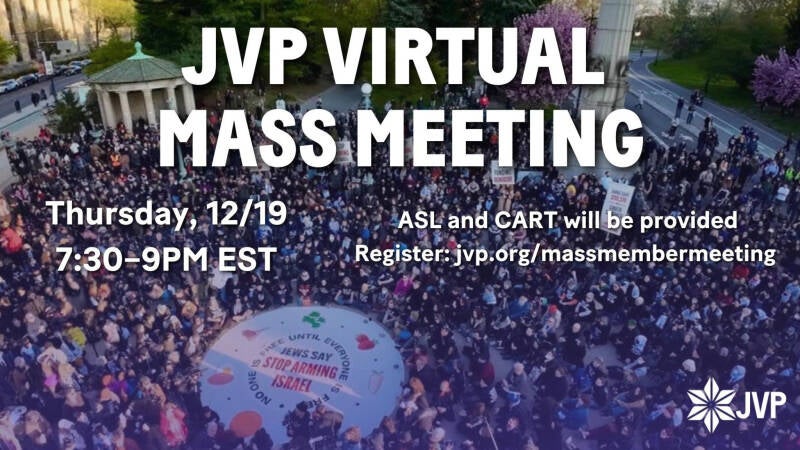
These mass meetings only happen four times a year, making them a vital space to connect deeply with one another.
This meeting will include:
- Political education: Get clarity on what’s happening in Palestine and the wider region, and the U.S.’s relationship to it
- Strategy: Hear from JVP leadership about which strategies to end the genocide will make the most sense as Trump takes office, and learn how to plug in
- Prepare for repression: Deepen our practices to withstand increasing repression, feel connected to a whole organization of people who are in this struggle with you, and refuel ourselves to keep going
- Elena Stein
Director of Organizing Strategy, JVP
834.


10 december 2024
Humanitarian Situation Update #245
Gaza Strip

A young girl sitting on the ground with a destroyed building behind her and rubble all around. Photo by UNFPA Palestine/Media Clinic
Key Highlights
- Lifesaving aid to besieged areas in North Gaza governorate has been largely blocked for the past 66 days; recently, about 5,500 people were forcibly displaced from three schools in Beit Lahiya.
- Fewer than 400 patients have been evacuated to receive lifesaving medical treatment outside of Gaza over the past seven months; about 14,000 await approval to exit.
- Only four UN-supported bakeries are currently operational across Gaza, all in Gaza city.
- Twenty-one attacks on schools, mostly serving as shelters for internally displaced people, were documented in November.
- An estimated 26,000 Palestinians have suffered lifechanging injuries over the past 14 months; persons with disabilities continue to disproportionately suffer from severe trauma, lack of rehabilitation services, and limited availability of assistive devices.
Humanitarian Developments
- Israeli bombardment from the air, land and sea continues to be reported across the Gaza Strip, resulting in further civilian casualties, displacement, and destruction of civilian infrastructure. In the North Gaza governorate, the Israeli military has been carrying out a ground offensive since 6 October 2024, with fighting reported between Israeli forces and Palestinian armed groups. Israeli forces have continued to impose a tightened siege on Beit Lahiya, Beit Hanoun and parts of Jabalya and humanitarian assistance has been largely denied for 66 days (see data below), leaving between 65,000 and 75,000 people without access to food, water, electricity or reliable health care, as mass casualty incidents continue to be reported. Large-scale forced displacement from Beit Lahiya was reported over the past week, including 5,500 people forcibly displaced on 4 December from three schools in Beit Lahiya to Gaza city.
- Between the afternoons of 3 and 10 December, according to the Ministry of Health (MoH) in Gaza, 284 Palestinians were killed and 734 were injured. Between 7 October 2023 and 10 December 2024, at least 44,786 Palestinians were killed and 106,188 were injured, according to MoH in Gaza.
- Between the afternoons of 3 and 10 December, four Israeli soldiers were killed in Gaza, according to the Israeli military. Between 7 October 2023 and 10 December 2024, according to the Israeli military and official Israeli sources cited in the media, more than 1,584 Israelis and foreign nationals were killed, the majority on 7 October 2023 and its immediate aftermath. The figure includes 384 soldiers killed in Gaza or along the border in Israel since the beginning of the ground operation. In addition, 2,485 Israeli soldiers were reported injured since the beginning of the ground operation. According to the Israeli military, on 4 December, the body of an Israeli hostage was recovered from Gaza and returned to Israel. As of 4 December, it is estimated that 100 Israelis and foreign nationals remain captive in Gaza, including hostages who have been declared dead and whose bodies are withheld in Gaza.
- On 4 December, an Israeli airstrike hit a makeshift tent encampment sheltering 21 families in the Al Mawasi area in Khan Younis. The strike, together with secondary explosions, which appear to have been caused by gas cylinders according to the UN Human Rights Office (OHCHR) in the OPT, destroyed all 21 tents and killed at least 23 Palestinians, including at least four children and two women – one of them pregnant – while seriously injuring others. A rapid assessment conducted by humanitarian actors found that the damage caused the displacement of about 110 people, who are now in need of urgent shelter, food, and water and sanitation assistance. This was the seventh attack on an IDP tent encampment in the past two weeks, OHCHR reported, altogether killing at least 34 Palestinians, including ten children and three women. Four of these attacks occurred in the area in Al Mawasi to which Israel has instructed Palestinians to go, killing at least 11 Palestinians including a woman who died with her two daughters, and four additional children. Medical Aid for Palestinians (MAP) reported that one of the burnt tents was sheltering a MAP staff member. No MAP staff were injured or killed in the incident. Commenting on the incident, MAP’s Gaza Director said that it “has proven once again that nowhere is safe in Gaza from Israeli military attacks. People there have been left in a constant state of fear and psychological distress, haunted by the fact that there is no place for them to shelter.” Moreover, SOS Children’s Villages International condemned the attack, which was adjacent to a temporary tent encampment accommodating 46 children under its care, noting that no staff or children were physically harmed.
- The following are among other deadly incidents reported between 3 and 8 December:
- On 3 December, at about 14:25, six Palestinians were reportedly killed and at least ten others injured when the third floor of an UNRWA school was hit in Az Zaytoun neighbourhood, in southeastern Gaza city. According to the latest data from the United Nations Children’s Fund (UNICEF) and its partners, 19 out of 21 attacks on schools, which mostly serve as shelters for internally displaced people (IDP), documented in November were in the North Gaza and Gaza governorates. An estimated 73 people were killed in these attacks, many of them children.
- On 4 December, at about 18:45, 25 Palestinians were reportedly killed and others injured when three houses were hit near An Nafaq Street in Gaza city. According to the Palestinian Civil Defense (PCD), the three houses were destroyed.
- On 5 December, at about 11:15, seven Palestinians were reportedly killed when a house was hit behind Kamal Adwan Hospital in Beit Lahiya in North Gaza.
- On 5 December, at about 15:15, 15 Palestinians were reportedly killed and others injured when a house was hit in Beit Lahiya, in North Gaza.
- On 6 December, at about 18:45, 34 people, including at least six children and four women, were reportedly killed when a residential building was hit in Block C of An Nuseirat Refugee Camp, in Deir al Balah.
- On 8 December, at about 15:20, at least 11 Palestinians, including children and women, were reportedly killed, with several bodies recovered in pieces, when a house was hit in Al Bureij refugee camp in Deir al Balah.
- On 8 December, at about 12:00, ten Palestinians were reportedly killed and about 15 others injured when a group of people was hit near the municipality park in central Gaza city.
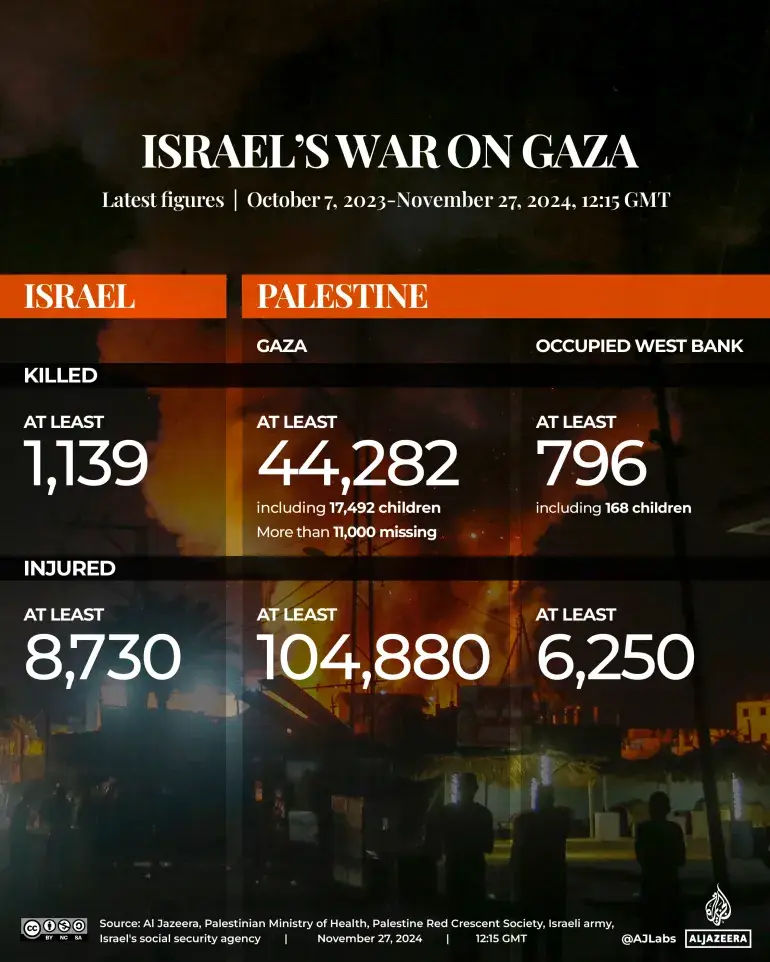
- Attacks on health facilities across the Gaza Strip continue to be reported, particularly in North Gaza governorate, where hospitals are barely functioning amid severe supply shortages and ongoing hostilities. On four occasions between 3 and 7 December, Kamal Adwan Hospital in Beit Lahiya, which currently hosts 90 patients and 66 medical staff, was reportedly attacked by fire, bombs and shells, resulting in the killing of seven people including four medics and a child, the injury of at least three medical staff as well as patients and companions, and damage to water and fuel tanks and the oxygen station. According to MoH, the 16-year-old boy who was killed at the hospital’s entrance was in a wheelchair and on his way to the radiology department. On 6 December, Israeli tanks reportedly surrounded the hospital and ordered people to evacuate. The Indonesian Emergency Medical Team (EMT), which had been deployed to the hospital by the World Health Organization (WHO) on 1 December following five access denials, was forced to evacuate as displaced people, caregivers, and many injured patients began fleeing the hospital and panic spread, according to the WHO Director-General, Tedros Adhanom Ghebreyesus. The WHO chief added that 33 people were killed just outside Kamal Adwan amid intense bombardment and hostilities near the hospital, which he described as one of the last lifelines for the people of North Gaza. Moreover, on four occasions between 2 and 8 December, the Indonesian Hospital in Beit Lahiya was attacked, resulting in the injury of three medical staff and six patients and damage to its electricity generator and water tanks. Also in North Gaza, the fifth floor and courtyard of Al Awda Hospital in Jabalya were reportedly hit on 3 December, with no casualties reported.
- In response to the dire health situation in North Gaza, on 3 December, WHO completed a three-day mission during which it delivered to Kamal Adwan Hospital 10,000 litres of fuel, 200 food parcels from the World Food Programme (WFP), blood units and medical supplies, and evacuated 23 patients to Al Shifa Hospital in Gaza city. WHO also delivered 24,000 litres of fuel and medical supplies to Al Shifa hospital for further distribution. On 6 December, ICRC delivered medical supplies to Al Awda Hospital in Beit Lahiya and evacuated 11 patients to Gaza city.
- On 3 December, 11 cancer patients, all children, along with 20 companions were evacuated by WHO from the Gaza Strip to receive specialized medical treatment in Jordan. The following day, eight patients, along with 25 companions, were evacuated outside Gaza by WHO with the support of the European Commission (ECHO) under the European Union Civil Protection Mechanism. According to ECHO, with support from 10 European countries, 59 patients from Gaza, together with 143 relatives, have been evacuated to date to European hospitals. As of 6 December, according to WHO, 378 patients including 217 children have been exceptionally evacuated from Gaza abroad since early May 2024, following the Israeli ground operation in Rafah and subsequent closure of Rafah crossing. Amid the collapse of Gaza’s health-care system and acute shortages of medical supplies and specialized care, at least 14,000 patients across Gaza are estimated to require life-saving medical evacuation.
- “The levels of hunger, devastation and destruction in Gaza … [are now] worse than ever before,” reported the WFP Palestine Country Director, Antoine Renard, on 5 December. Markets are empty, barely any food is coming in, and worsening weather conditions are forcing people into “a daily struggle for survival,” he added. Looting and attacks on humanitarian convoys continue to strain aid delivery in southern and central Gaza, while ongoing attempts by Food Security Sector (FSS) partners to deliver lifesaving aid into the besieged areas of North Gaza continue to be largely blocked after 60 days of tightened siege. As of 9 December, only four out of 19 bakeries supported by WFP remained operational across the Gaza Strip, all of them in Gaza governorate where the flow of wheat flour has been generally constant and the price of a 25-kilogramme bag of flour is about NIS 20-30 (US$5.6-8.4). This is in contrast to central and southern Gaza, where anecdotal market observations indicated that the price of a bag of flour was at least NIS 1,000 ($280) on 1 December in Deir al Balah and NIS 875 ($245) in Khan Younis.
- Combined, access impediments, ongoing hostilities, the breakdown of public order and safety, the near total lack of commercial good entries, and exorbitant prices of the few basic commodities still available on the market have all contributed to a deterioration in dietary diversity across the Strip. In November, bread and pulses have dominated household diets for the second consecutive month, with almost no consumption of vegetables, meat and eggs. Between 24 November and 6 December, UNICEF conducted a new post-distribution monitoring survey, which showed that nearly 100 per cent of children between six and 23 months of age and pregnant and breastfeeding women in Gaza city, Deir al Balah and Khan Younis are not meeting minimum dietary diversity, which is defined as receiving foods from at least four out of seven food groups.
- An analysis published by the Protection Cluster, with support from FSS, highlights that “children and women are now increasingly searching through piles of rubbish for food scraps,” often barefoot and without gloves, facing heightened risks of disease and injury from sharp edges or metal in solid waste and being extremely exposed to the threat of unexploded ordnance. Shrinking food supplies have also triggered physical violence at the still functional bakeries and distribution points, with six women and girls killed as of 2 December in violent incidents that erupted while they were waiting for bread at bakeries. Reliance on negative coping strategies is also increasing, including child labour and begging, while gender-based violence partners report that women and girls are engaging in survival sex in exchange for food, increasing their exposure to exploitation and abuse.
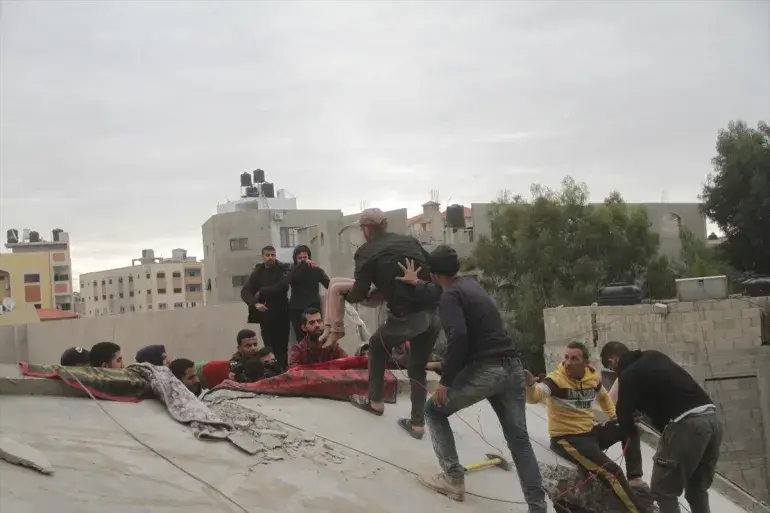
- “Women and girls across Gaza, including 50,000 pregnant women, have been left without the essentials to survive,” highlights the United Nations Population Fund (UNFPA). Maternal deaths, miscarriages and preterm births continue to rise, with conditions being particularly critical in besieged areas of the North Gaza governorate, where an estimated 1,720 pregnant women, and adolescent girls, have remained largely cut off from essential aid for over 60 days. Repeated attacks and damages to the Kamal Adwan Hospital, the last major facility providing maternal and newborn care in the governorate, have hampered pregnant women’s access to critical care, with newborns having “died due to a lack of incubators, electricity, and medical supplies.” Meanwhile, an estimated 90,000 women and girls – or about 70 per cent of the population displaced from North Gaza since the intensification of hostilities in October 2024 – have sought refuge in overcrowded shelters and damaged buildings in Gaza city, struggling to access increasingly strained services. Despite ongoing efforts to expand emergency obstetric and newborn care and sexual and reproductive health services across the Strip, aid restrictions continue to pose a challenge. UNFPA reports that 49 of its trucks, loaded with reproductive health equipment and supplies, including medicines that prevent women hemorrhaging during childbirth, tents, sanitary pads, hygiene kits, and generators, are presently stalled at the border.
- Persons with Disabilities (PwD) are among the worst affected groups by the catastrophic humanitarian conditions in the Gaza Strip. Enduring specific challenges in addition to those faced by everyone else such as limited access to basic services, repeated displacement, and severe psychological trauma. According to the Palestinian Central Bureau of Statistics (PCBS), there were 58,000 PwD in the Gaza Strip prior to the escalation in October 2023 and, based on a recent WHO analysis, about 26,000 people or 25 per cent of the total number injuries as of 24 November now have serious life-changing injuries that require continuous rehabilitation. While about 20 per cent of families surveyed before the war had at least one PwD, the war has now caused “an epidemic of traumatic injuries with no rehabilitation services available,” stated UNRWA’s Commissioner-General Philippe Lazzarini. Speaking on behalf of UN Secretary-General António Guterres at the 2 December Cairo ministerial conference on humanitarian aid for Gaza, UN deputy chief, Amina Mohammed, also highlighted that "Gaza now has the highest number of children amputees per capita anywhere in the world — many losing limbs and undergoing surgeries without even anaesthesia." Conditions have been especially grave due to the destruction of hospitals and rehabilitation centres, restrictions on medical evacuation, and the limited entry of assistive devices such as wheelchairs, crutches and hearing aids, and the severe shortage of medical supplies and basic consumables. Based on a participatory assessment conducted by the Protection Cluster between September and November 2024, the lack of access to essential assistive devices, including basic mobility aids, for PwD significantly hinders their ability to carry out daily activities and participate fully in society. Similarly, the scarcity of hearing aids and batteries exacerbates communication barriers, isolating individuals from social interactions and support networks. This absence of necessary equipment not only affects their physical mobility but also their mental health, leading to widespread feelings of frustration and helplessness.
- On 3 December, the Coastal Municipalities Water Utility (CMWU) began operating a water desalination plant in Deir al Balah that has been repaired as part of a donor-funded project to maintain and restart non-operational plants, one of the primary sources of drinking water for people across the Strip. The plant now has a capacity of 40 cubic metres per day, helping to alleviate water shortages and serving approximately 8,000 people daily. Additionally, to supply drinking water to the western neighbourhoods and the Al Mawasi area of Khan Younis, CMWU and the Khan Younis municipality have completed maintenance and repair works on the main section of the water transmission line connecting the South Gaza seawater desalination plant to the Satar/Al Israa water tank and pumping station. This work has enabled desalinated water to reach the Satar water tank for the first time since the escalation of hostilities in October 2023, providing safe drinking water to over 200,000 people. In another positive development, with UNICEF’s support, CMWU is re-constructing a water desalination plant at its main storage facility west of Khan Younis, which had been dismantled and transported from Rafah governorate under extremely dangerous conditions during the Israeli military operation in the area that began in early May 2024. Once testing and calibration are completed, the plant will have a capacity to produce 1,200 cubic metres of water per day, which would significantly improve the supply of clean and safe drinking water to about 60,000 people in various areas of Al Mawasi, in western Khan Younis.
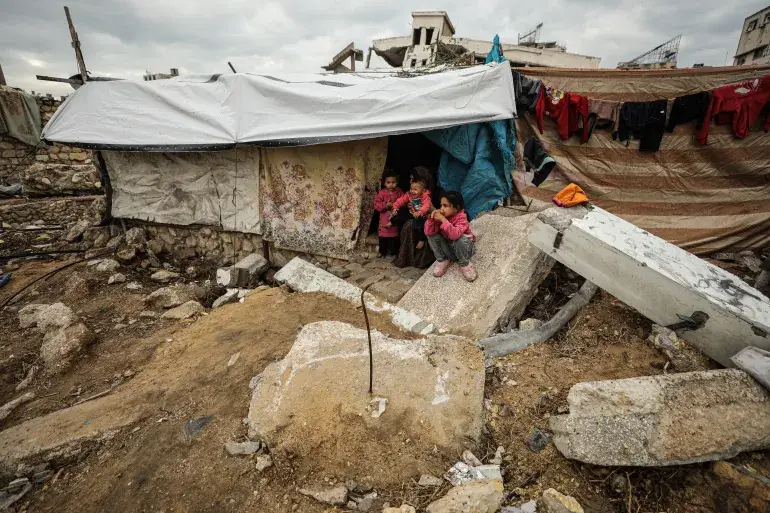
- Between 1 and 9 December, out of 197 planned aid movements across the Gaza Strip requiring coordination with Israeli authorities, 30 per cent (60) were facilitated, 43 per cent (84) were denied, 16 per cent (32) were initially approved but then impeded, and 11 per cent (21) were cancelled due to logistical and security challenges. These included 56 aid movements that needed to pass through the Israeli military-controlled checkpoints on Al Rashid or Salah ad Din roads to reach areas north of Wadi Gaza (including both North Gaza and Gaza governorates), of which only 16 per cent (nine) were facilitated by the Israeli authorities, 46 per cent (26) were denied, 23 per cent (13) were impeded, and 14 per cent (eight) were cancelled. Aid missions to the North Gaza governorate were particularly disrupted, especially those seeking to reach Jabalya, Beit Lahiya and Beit Hanoun. Between 1 and 9 December, the UN attempted to reach these besieged areas 17 times, of which 16 attempts were denied and one was impeded. The impeded mission took place on 1 December, deploying an emergency medical team to Kamal Adwan Hospital and evacuating patients following long delays. The impeded mission took place on 1 December, deploying an emergency medical team to Kamal Adwan Hospital and evacuating patients following long delays. Coordinated aid missions to areas in Rafah governorate, where there has been an ongoing Israeli military operation since early May, have faced similar challenges. All 11 coordinated requests submitted to the Israeli authorities to access Rafah governorate between 1 and 9 December were outright denied. This excludes 30 coordinated movements to Kerem Shalom crossing, of which 70 per cent (21) were facilitated, 16 per cent (five) were impeded, seven per cent (two) were denied, and seven per cent (two) were cancelled.
- Emergency responders and aid workers continue to encounter severe challenges in delivering assistance across the Gaza Strip, often facing grave risks to their own safety. On 4 December, a Palestine Red Crescent Society (PRCS) paramedic was reportedly shot and killed in the Khan Younis area while returning from a mission to transport patients to his post at the PRCS ambulance station at the field hospital in Rafah. On 7 December, a PCD staff was also reportedly killed at the entrance of Kamal Adwan hospital in Beit Lahiya in North Gaza governorate, where he stayed to help medical teams in providing lifesaving services. Based on information collected by OCHA from humanitarian partners, since October 2023, at least 356 aid workers, including 349 Palestinians and seven foreigners have been killed; this includes 255 UN staff (of whom 251 were UNRWA staff members), 34 PRCS staff and volunteers, and at least 67 other aid workers with national and international NGOs.
833.


10 december 2024
Today's headlines
Israel occupies new Syrian territory following Assad’s collapse
Qassam Muaddi
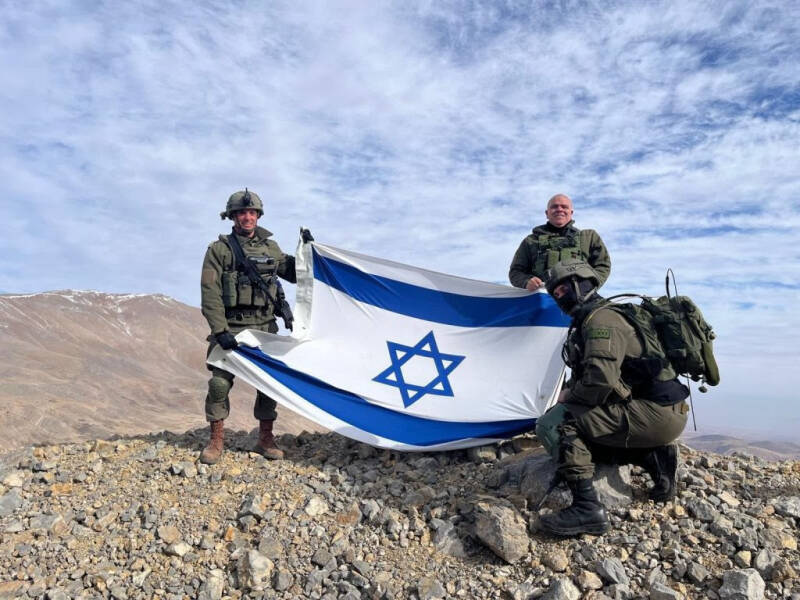
Benjamin Netanyahu announced Israel’s intention to violate its disengagement agreement with Syria, as Israeli forces invaded and occupied several positions inside Syrian sovereign territory, including the summit of Mount Al-Sheikh.
Israel’s Genocide Day 430: Progress reported in ceasefire talks as Israel continues to carry out massacres across Gaza
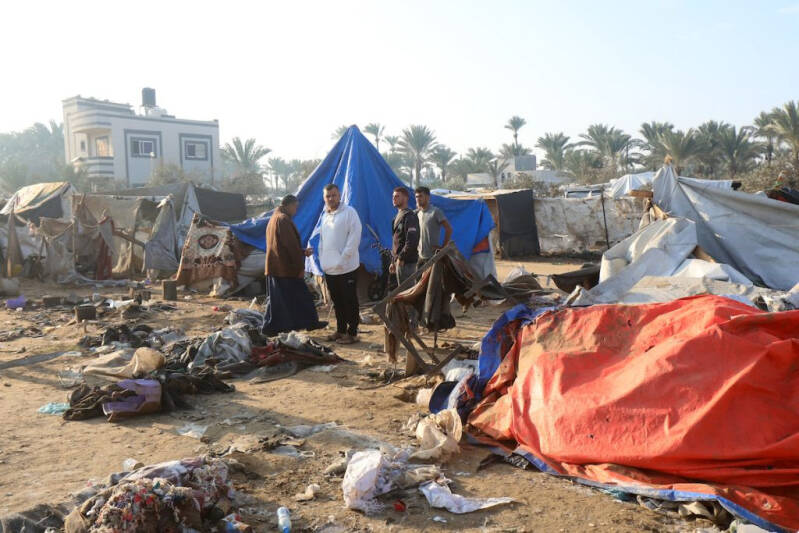
Israel continued its attacks across the Gaza Strip as a Hamas delegation returned from Egypt amid reports of progress in ceasefire talks.
832.


10 december 2024
Human Rights on the Tram
In today’s edition of the Daily Brief, I’m in the underground tram station at Parvis de Saint-Gilles (Sint-Gillisvoorplein) in Brussels, Belgium. (watch video)
The reason why is that today is Human Rights Day and the 76th anniversary of the Universal Declaration of Human Rights. Extracts of the Declaration surround us here on the walls of the station in Dutch and French, Belgium’s two main languages.
The lettered tiles are the 1992 design of Brussels-born artist Françoise Schein. They’re part of Schein’s collection of similar works related to human rights in metro stations and other public spaces around the world.
Here we can see articles of the Declaration such as:
Article One: “All human beings are born free and equal in dignity and rights.”
Article Two: “Everyone is entitled to all the rights and freedoms set forth in this Declaration, without distinction of any kind, such as race, colour, sex, language, religion, political or other opinion, national or social origin, property, birth or other status.”
Article Five: “No one shall be subjected to torture or to cruel, inhuman or degrading treatment or punishment.”
Article 14: “Everyone has the right to seek and to enjoy in other countries asylum from persecution.”
Article 18: “Everyone has the right to freedom of thought, conscience and religion…”
There are 25 others, and they all outline the fundamentals of our human rights. Drafted in 1948 in the aftermath of apocalypse in World War Two, these words represent hope for the future. To guarantee a better world tomorrow, the drafters knew, these would be words to live by.
It may seem strange at first to have the Universal Declaration of Human Rights on the walls of a public transport stration. Maybe some people passing by these letters every day don’t know what they’re all about.
Still, if you think about it, a metro station is a good metaphor for universal human rights. Public transport and human rights, in fact, have a lot in common.
Both belong to all of us. Access to your tram stop and your rights shouldn’t depend on your religion or your gender or what language you speak. These things are open to everyone.
Whatever divisions we may all show on the surface, deep down, we’re all in the same tram, trying to get along.
831.


9 december 2024
Today's headlines
My journey in Gaza as an emergency doctor: loss, displacement, and hope

Over more than a year of war, I have volunteered to help my people in Gaza, wrapping friends and family into shrouds, but also helping bring new life into the world.
Pittsburgh’s East End Food Co-op workers are pushing to boycott Israeli goods
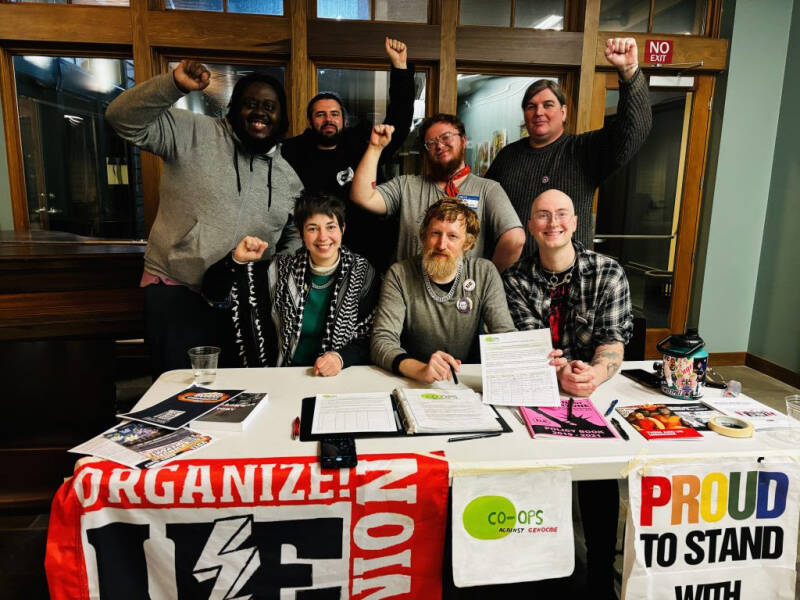
Workers and members of Pittsburgh's East End Food Co-op are calling for a referendum to boycott Israeli-sourced products in the store. They hope their campaign will become a model for co-ops across the country.
830.


8 december 2024
Today's headlines
Israel’s genocide in Gaza is fully intentional, and other takeaways from the Amnesty International report
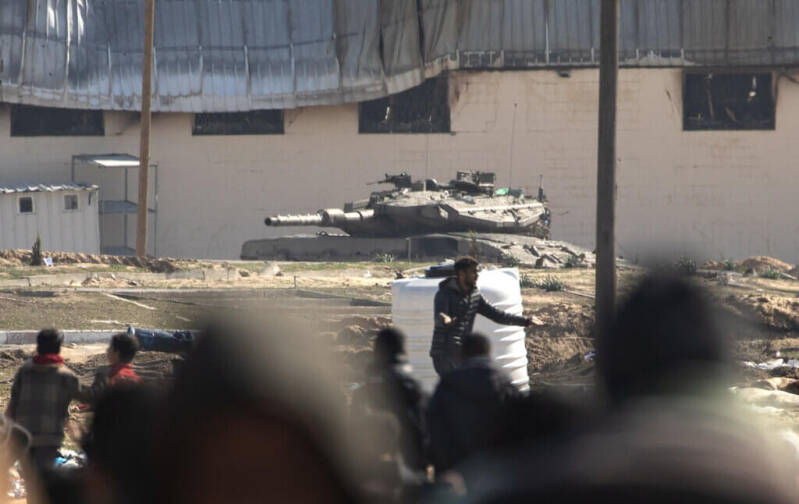
Amnesty International this week confirmed what many others have already said: Israel is committing genocide in Gaza. But the report goes to many lengths to prove one critical element in the case against Israel: that the genocide is fully intentional.
He struck me, then cried wolf: Israeli settler impunity in Masafer Yatta
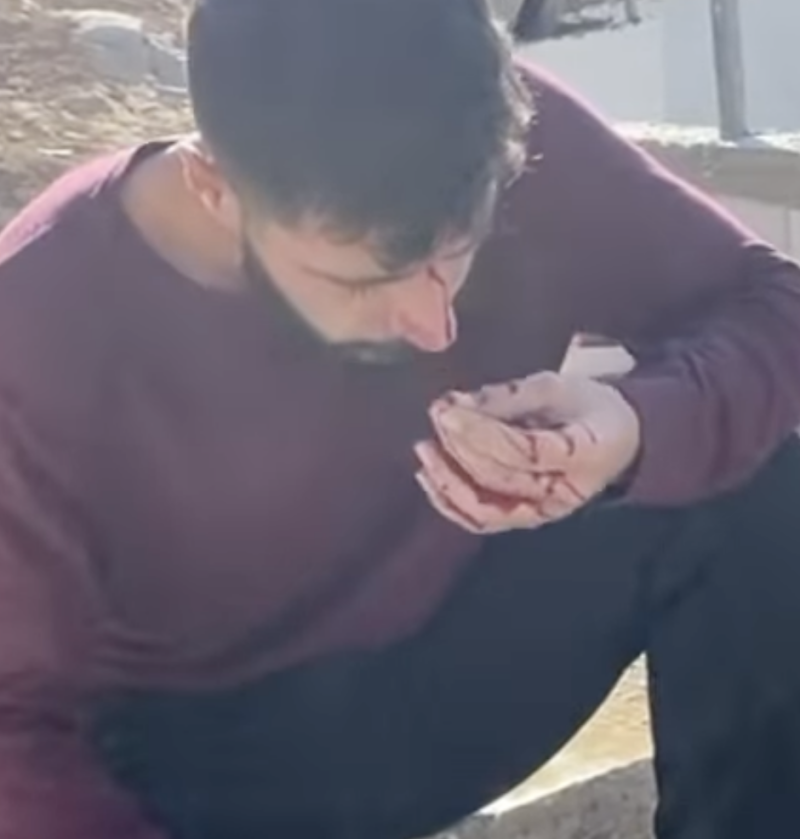
Despite being the victims of an attack on our own land, we now face the possibility of imprisonment. It’s not a normal way of life, but it has become the normalized reality under Israeli occupation.
829.


8 december 2024
Reservists are the backbone of the Israeli military: The Israeli army relies on reservists on all fronts, from ensuring its day-to-day functioning to flying the very warplanes that bomb Gaza. Israel's war of extermination cannot carry on the war without its active reserves, which is why refusal is such a powerful act of resistance.
With this in mind, we helped establish Ani Siravti (“I refused” in Hebrew), an initiative of older reserve refusers publishing video statements on social media that reaffirmed their past refusal and explained why they would do so again if called up for the assault on Gaza.

Yuval Green, one of the original 40 refusers, being interviewed by mainstream Israeli news Channel 13 on his decision to refuse.
828.


7 december 2024
Een nieuw rapport van Amnesty International maakt de conclusie dat Israël in Gaza genocide pleegt onvermijdelijk. Amnesty roept op tot direct ingrijpen en vraagt het Internationaal Gerechtshof strafrechtelijk onderzoek in te stellen.
Voor het rapport You Feel Like You Are Subhuman: Israel’s Genocide Against Palestinians in Gaza onderzocht Amnesty Israëlische acties in Gaza tussen 7 oktober 2023 en begin juli 2024. De organisatie nam daarnaast ruim tweehonderd interviews af, voerde veldwerk uit en analyseerde een uitgebreide reeks visueel en digitaal bewijs, waaronder satellietbeelden.

Palestijnen in Gaza vluchten voor het onophoudelijke Israëlische geweld. Sommigen zijn al tien keer tot ‘evacuatie’ gedwongen, maar in Gaza is het nergens veilig. © OCHA
'Dit is genocide'
Amnesty concludeert dat sprake is van genocide. Volgens het 295 pagina’s tellende rapport maakt Israël zich schuldig aan drie van de vijf criteria die in het Genocideverdrag worden benoemd: het doden van leden van de groep; het toebrengen van ernstig lichamelijk of geestelijk letsel aan leden van de groep; en het opzettelijk aan de groep opleggen van levensvoorwaarden die gericht zijn op haar gehele of gedeeltelijke vernietiging.
‘Aangezien deze daden zijn gepleegd in een al bestaande context van onteigening, apartheid en onwettige militaire bezetting, kunnen we maar één conclusie trekken: de bedoeling van Israël is de fysieke vernietiging van Palestijnen in Gaza’, zegt Agnès Callamard, secretaris-generaal van Amnesty International.

Lees hier onze toelichting op het rapport van Amnesty.
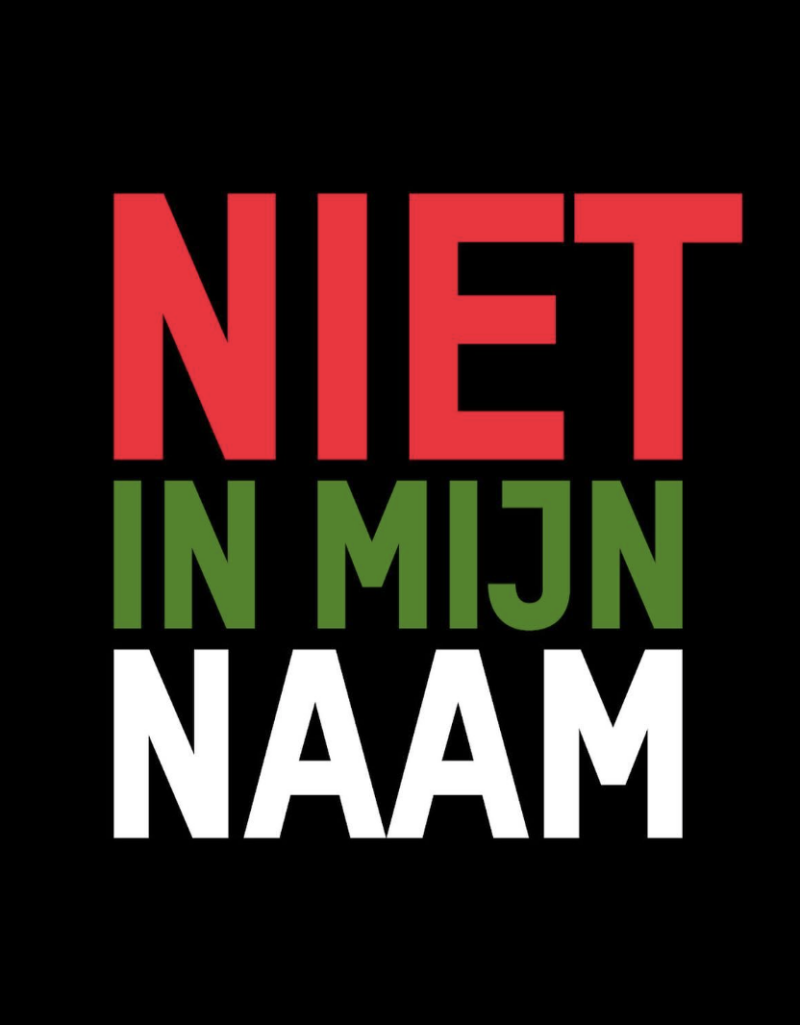
Actieweek | NIET IN MIJN NAAM
Op 12 december start Oxfam Novib een actieweek waarin van de regering een echte koerswijziging wordt geëist. Iedere dag vallen er doden door het Israëlische geweld. Ondertussen kijkt onze regering weg en weigert zich zelfs hard te maken voor een staakt-het-vuren. Niets doen is medeplichtigheid. 'Laat dit niet gebeuren in jouw naam,' luidt de oproep van Oxfam.Dit is het moment om te laten zien dat wij niet langer medeplichtig willen zijn aan het doden van tienduizenden vrouwen, mannen en kinderen, en aan het vernietigen van een volk.
De ‘stille diplomatie’ van Nederland staat voor een keiharde pro-Israëlkoers
De jaarlijkse begrotingsdebatten vormen traditioneel een moment om de koers van de Nederlandse politiek onder de loep te nemen. Wat betreft het Israël/Palestina-beleid bevestigden de debatten dit jaar vooral wat we al wisten: onder het mom van stille diplomatie en pragmatische keuzes vaart Nederland een rechtlijnige pro-Israëlkoers.

Die stille diplomatie - waarbij Israël volgens de verantwoordelijke Nederlandse ministers achter gesloten deuren stevig zou worden aangesproken op zijn acties - wordt immers zelden ondersteund door concrete actie om Israël ook daadwerkelijk op zijn daden aan te spreken.
Moties die opriepen tot onderzoek en sancties, zoals die van DENK-Kamerlid Van Baarle, werden zonder meer verworpen. ‘Overbodig’, aldus minister Reinette Klever van Buitenlandse Handel en Ontwikkelingshulp (PVV), ‘want Nederland doet al genoeg’.
Kamerleden die tijdens de debatten vervolgens om resultaten vroegen, hoorden vooral irritatie en retoriek van minister Klever en minister van Buitenlandse Zaken Caspar Veldkamp (NSC).
Terwijl de ministers zich verschuilen achter verklaringen dat de situatie hen ‘na aan het hart ligt’, zet hun beleid in werkelijkheid de bijl aan de wortel van concrete hulp.
UNRWA
Hoe dat gebeurt, wordt geïllustreerd door het debat over de Nederlandse steun aan UNRWA, de enige VN-organisatie die bij machte is de Palestijnen hulp te bieden.
Om de begroting van het ministerie van Buitenlandse Handel en Ontwikkelingshulp - waar de financiering van UNRWA onder valt - aan te nemen, moet steun van de oppositie worden gevonden in de Eerste Kamer. De regering heeft daar geen meerderheid.
SGP en JA21 gebruiken deze situatie om de Nederlandse steun aan UNRWA steeds verder af te knijpen. Zij willen de begroting alleen goedkeuren als de al jaren bestaande steun voor UNRWA radicaal wordt afgebouwd. De partijen eisen dat de Nederlandse steun voor UNRWA volgend jaar wordt teruggebracht van 19 naar 15 miljoen euro, en in de jaren daarna verder wordt afgewaardeerd naar 1 miljoen euro. Met deze radicale voorstellen behartigen de twee partijen Israëls politieke agenda.

Lees hier onze hele analyse van de begrotingsdebatten, en hier ons artikel over de aanval op UNRWA.
Openbaar Ministerie moet Israëlische inmenging Strafhof onderzoeken
Op initiatief van The Rights Forum roepen zes organisaties het Openbaar Ministerie op een strafrechtelijk onderzoek te openen. Een brief met deze oproep is deze week verzonden aan het Openbaar Ministerie en het Strafhof. De coalitie – bestaand uit de Nederlandse organisaties European Legal Support Centre, Een Ander Joods Geluid, Artsen voor Gaza, en The Rights Forum; en de Palestijnse organisaties Al-Mezan en Al-Haq – reageert op de Israëlische inmenging en bedreiging van het Internationaal Strafhof in Den Haag. Bijna tien jaar werd het onderzoek van het Hof naar Israëlische misdaden in de bezette Palestijnse gebieden ondermijnd. Deze ongekende inbreuk op de integriteit van het Hof en de veiligheid van zijn medewerkers moet gevolgen krijgen.
Lees meer over onze oproep >

Teken de petitie | Bescherm het Strafhof
Gezien de ernst van de situatie is The Rights Forum een petitie gestart om de eis tot strafrechtelijk onderzoek kracht bij te zetten. Intussen is die al bijna 6.000 keer getekend.
De boodschap: als Nederland geen veilige plek is, kan het Internationaal Strafhof zijn belangrijke werk niet doen. De petitie loopt tot eind januari en zal worden aangeboden aan het Openbaar Ministerie.
SGP promoot etnische zuivering in Europees Parlement
Europarlementariër Bert-Jan Ruissen (SGP) ontving deze week Amit Halevi, lid van het Israëlische parlement voor de Likud-partij van premier Netanyahu. In die rol pleitte Halevi onder meer voor de etnische zuivering en annexatie van Gaza, stelde hij dat Palestijnen ‘from the river to the sea’ geen rechten hebben, en bestempelde hij baby’s in Gaza als terroristen.
Halevi sprak in het Europees Parlement tijdens een conferentie over Iran, die werd georganiseerd door Israel Allies Foundation (IAF). Deze organisatie zet zich in om de steun voor Israël bij christelijke politici wereldwijd aan te wakkeren.
Protestbrief
Een brief van 36 Europarlementariërs aan de voorzitter van het Parlement Roberta Metsola om Halevi de toegang tot het parlement te weigeren, haalde niets uit. Het initiatief voor de brief kwam van GroenLinks-PvdA-Europarlementariër Tineke Strik. Haar fractiegenoten Thijs Reuten, Kim van Sparrentak en Bas Eickhout tekenden ook. Zij voerden aan dat haat en discriminatie geen plek mogen hebben in het Europees Parlement, en dat Halevi’s aanwezigheid de waardigheid en reputatie van het Parlement ondermijnt.
Opinie | Staten komen en verdwijnen. Wat zal Israëls toekomstige nalatenschap zijn?
Israël koerst af op eindeloze oorlog. Om te voorkomen dat het land een erfenis opbouwt van massamoord moet het gedwongen worden tot vrede, schrijft Nikolaos van Dam in een opiniestuk op onze website. In zijn opiniestuk gaat deze Van dam nader in op het feit dat 'Israël aanvallen op de Palestijnen veelal rechtvaardigt met het argument dat het een ‘recht op zelfverdediging’ toekomt. En zich bedreigd voelt. Maar het is niet Israël dat hier een recht op zelfverdediging heeft. Het is daarentegen juist de Palestijnse bevolking die het recht heeft op gewapend verzet. Zolang de gewapende onderdrukking van het Palestijnse volk, die nu al 75 jaar gaande is, door Israël wordt voortgezet. Deze Van Dam had dan ook in zijn geschrift allereerst moeten onderstrepen dat primair hier Palestina het recht op gewapend verzet toekomt. Zoals dit ook in uitdrukkelijk in het internationale recht wordt bepaald.
Uit onze agenda
zaterdag 7 december t/m zaterdag 14 december
Neem deel aan wakes en demonstraties
• Wake op zaterdag 07.12 in Amsterdam, Spui (12.45 uur)
• Wake op zaterdag 07.12 in Groningen, Waagplein (13.00 uur)
• Wake op zaterdag 07.12 in Maastricht, op de Markt, achter het Stadhuis (16.00 uur)
• Herdenking voor omgekomen kinderen in Gaza, bij het Geuzenmonument in Vlaardingen (16.00 uur)
827.


7 december 2024
Today's headlines
Might the new Gaza ceasefire talks succeed?

In the wake of the ceasefire deal between Israel and Lebanon, there has been speculation about a similar deal between Israel and Hamas to finally bring about an end to the genocide in Gaza. But are there reasons to think this time may be different?
U.S. mainstream media downplays Amnesty International’s finding that Israel is committing genocide

Pressure is mounting on the international community over Israel's genocide in Gaza. With the latest report from Amnesty International, the mainstream U.S. media faced an excruciating dilemma. How could it downplay the damning report this time?
826.


6 december 2024
Today's headlines
Israel is committing a genocide in Gaza, Amnesty International says
Qassam Muaddi
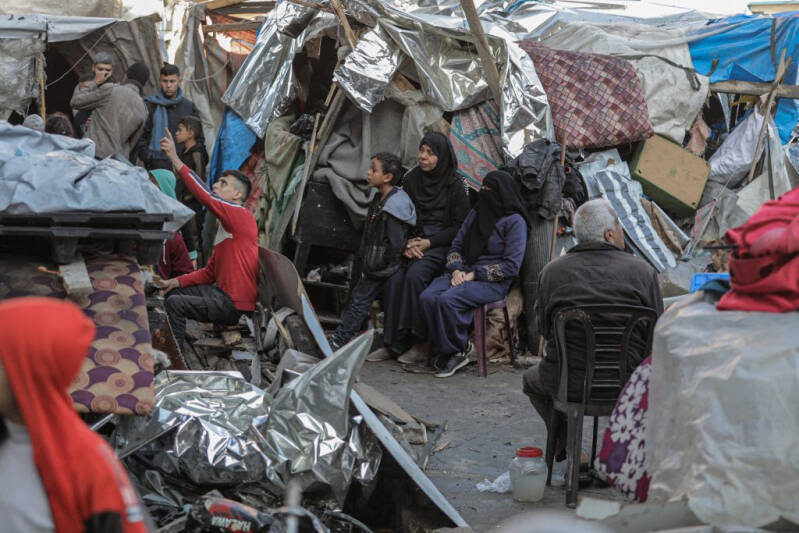
Amnesty International joined a growing chorus of human rights experts who say Israel is carrying out a genocide in Gaza. The group called on states and arms suppliers of Israel to "bring Israel’s atrocities...to an immediate end.”
Israel’s genocide Day 426: Israel bombs tents in Gaza as international condemnation grows
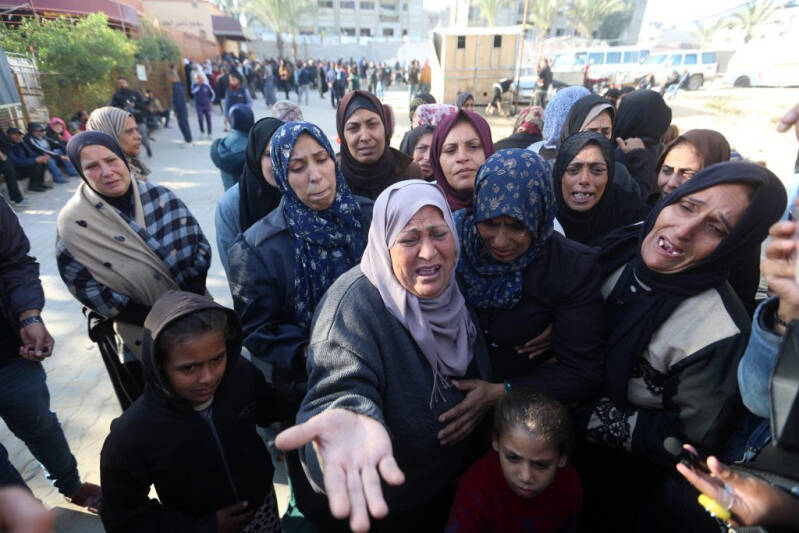
Hamas accepts Egypt’s proposal to form an independent Palestinian committee to run Gaza after the war, while Israel bombs another tent encampment for displaced Palestinians in Khan Younis. Amnesty International declares Israel is committing genocide.
825.


6 december 2024

During the constant painful horrors of the ongoing genocide against the Palestinian people, it’s absolutely crucial that we sharpen our strategies and focus our efforts on where we can make a significant impact.
That means following the flow of the money and weapons, and targeting the pressure points to disrupt it.
One of those key pressure points is Israel Bonds: direct investments in the Israeli government. Many cities and municipalities in the U.S. have purchased Israel Bonds, which bolster the apartheid economy.
Now, as the Israeli economy has declined after 14 months of actively committing genocide, it’s an opportune time to break the bonds of apartheid and genocide.
Every day, Palestinians in Gaza endure the consequences of our U.S. government’s decision to endlessly fund and arm the genocidal Israeli state. Massacres at Kamal Adwan Hospital leaving the floor covered with blood. Bombing and burning Palestinian families alive in refugee tents in the so-called “safe zone” of al-Mawasi. Forced starvation.
Amnesty International has also just released a damning report thoroughly documenting and confirming what we’ve long known: Israel is committing genocide, and the U.S. must immediately stop arming it.
Faced with this undeniable evidence, there’s absolutely no excuse for any city, county, state, or institution within the U.S. to remain complicit.
U.S. investments in Israel Bonds have funded decades of military occupation and aggression against Palestinians. These financial instruments prop up a system of genocide and apartheid—and it’s our responsibility to disrupt it.
By organizing for cities, counties, states, and institutions like unions to divest from Israel Bonds, we can strike at the heart of the financial machinery that fuels oppression.
Together, we’ll explore the power of collective resistance and strategic divestment campaigns that have the potential to shake the foundations of the apartheid economy.
Onward to liberation,
824.


5 december 2024
Today's headlines
What does Trump’s return mean for the Middle East?
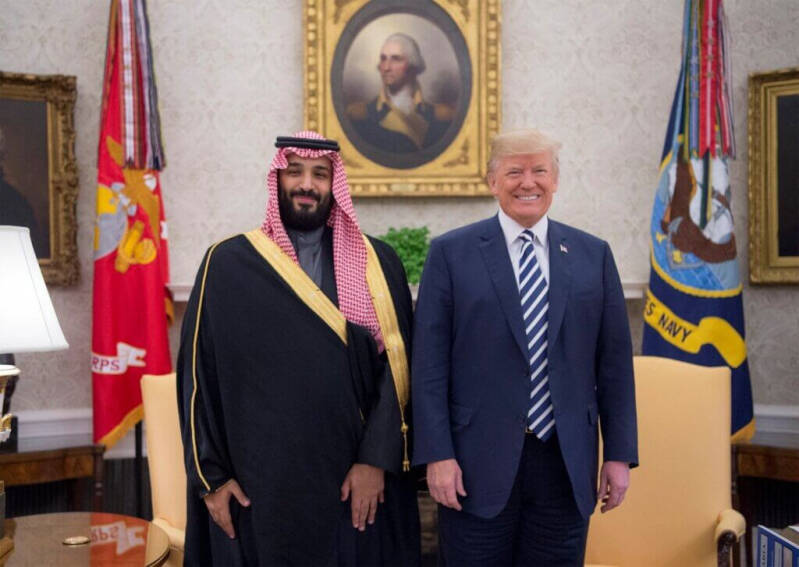
Mouin Rabbani discusses what Donald Trump's return could mean for the Lebanese ceasefire, normalization efforts in the region, and the prospect of Israeli annexation of the West Bank.
Genocide as Charity: a critical look at the Mizrachi Organization of Canada
M
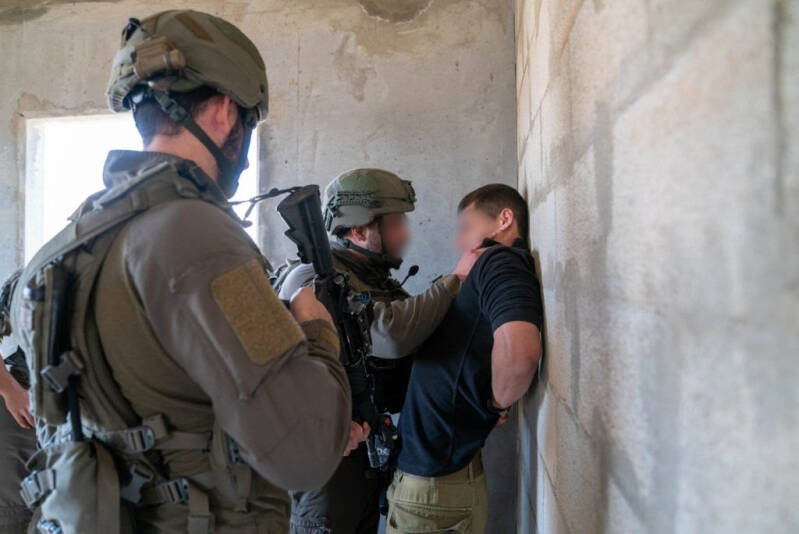
The work of the Mizrachi Organization of Canada shows how Israeli war crimes and crimes against humanity are embedded within the Canadian charitable sector.
823.


5 december 2024
In today's Daily Brief:
Quick Takes: Killer Robots
Killer Robots: A record number of countries have voted in favor of a UN General Assembly resolution on lethal autonomous weapons systems. It highlights the urgent need to open negotiations on a new treaty to ban “killer robots.”
822.


5 december 2024
Humanitarian Situation Update #244
West Bank

Two elderly Palestinian Bedouin preparing to dismantle their structures and leave with their families from the outskirts of Ni'lin in Ramallah governorate, due to threats and attacks by Israeli settlers. Photo: OCHA
Key Highlights
- Israeli settlers vandalize more than 700 Palestinian-owned trees and saplings, mostly olive, in three locations in the West Bank within three days.
- Three Palestinian Bedouin households, comprising 14 people, including eight children and two elderly, residing on the outskirts of Ni’lin village (Ramallah) were displaced, citing settler violence as the main cause.
- Since 7 October 2023, some 300 Palestinian households comprising 1,757 people, including 855 children, have been displaced in Palestinian Bedouin and other herding communities, primarily citing attacks by Israeli settlers and access restrictions.
- In 2024, the proportion of structures self-demolished in East Jerusalem by their owners following receipt of demolition orders from the Israeli authorities has sharply increased.
Latest Developments (after 2 December)
- On 3 December, initial reports indicate that an Israeli airstrike targeted a vehicle in Aqqaba (Tubas), killing two Palestinians and injuring another. Israeli forces raided the Turkish Hospital, where the three casualties were transported, sealed all its entrances and opened fire inside, including in the emergency room, causing widespread panic and damage. At least five medical staff, including doctors, were detained and interrogated for at least one hour as Israeli forces searched for the injured Palestinian, who had already been transferred to another hospital upon his arrival. Efforts by Palestinian District Coordination and Laison Office and ICRC were made to secure the release of the detained medical personnel.
- On 3 December, initial reports suggest that Israeli settlement guards shot and killed a 15-year-old Palestinian boy near his home in Silwan (Jerusalem). According to Israeli media, the boy was throwing stones at passing vehicles. According to local sources, Israeli settlements’ guards passed through the Ein al Louzeh neighbourhood and fired toward Palestinian houses, injuring the boy. Shortly after, Israeli forces arrived in the area and arrested the injured boy. Later on, the boy was pronounced dead, and his body was withheld.
- On 4 December, initial reports indicate that Israeli settlers injured a Palestinian man and members of the Israeli forces during a raid on Huwwara and Beit Furik (Nablus). During these attacks, settlers set fire to a number of homes and vehicles in these communities.
Humanitarian Developments (26 November-2 December)
- During the reporting period, Israeli forces killed five Palestinians and injured 27 others, including seven children, across the West Bank, including East Jerusalem. Eight Israelis, including four soldiers, were injured as a result of an attack perpetrated by an armed Palestinian in the West Bank. For more information on casualties and further breakdowns of data, please see the monthly West Bank snapshot. All the incidents resulting in Palestinian fatalities and other key incidents by Israeli forces are as follows:
- On 29 November, Israeli forces shot and killed a Palestinian man who perpetrated a shooting attack that injured four Israeli settlers and four Israeli soldiers at a bus stop near Ariel settlement. According to Israeli media, the Palestinian man (from Einabus village, Nablus) stopped his vehicle on the side of the road near the bus stop and opened fire at an Israeli bus. In response, Israeli forces shot him and withheld his body.
- On 30 November, Israeli forces shot and injured a Palestinian boy and physically assaulted, and injured another one in the village of ‘Asira al Qibliya, southwest of Nablus. According to the Head of the Village Council, Israeli forces raided the village, and Palestinians threw stones at the military vehicles. Israeli forces then fired tear gas canisters, sound bombs, and live ammunition at the stone-throwers. A 15-year-old boy sustained a gunshot wound to the leg and a 16-year-old boy was physically assaulted by the forces. Both injured boys were transported to the hospital by medical teams in the area.
- On 1 December, Israeli forces killed four Palestinians during an operation that involved airstrikes and exchanges of fire between armed Palestinians and Israeli forces in Sir village (Jenin). The operation lasted about seven hours, during which Israeli forces struck armed Palestinians near a cave on the outskirts of the village. The Palestinian District Coordination Office and Ministry of Health reported that Israeli forces have withheld the four Palestinian bodies. Medical teams reported that Israeli forces prevented them from reaching the targeted area. It remains uncertain whether the fatalities resulted from an Israeli drone strike or occurred during an exchange of fire.
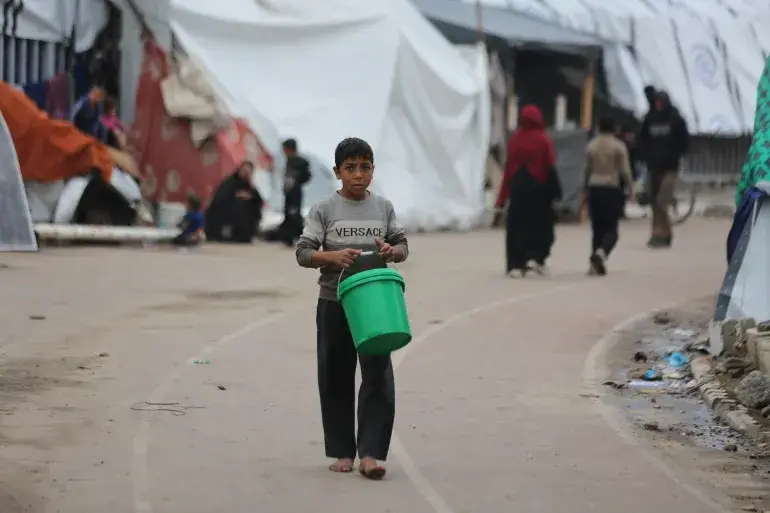
- During the reporting period, OCHA documented 45 incidents involving settlers and affecting Palestinians, including 21 attacks that resulted in casualties, property damage or both. In total, two Palestinians were injured by Israeli settlers and six others were injured by Israeli forces during these attacks. Five Israeli settlers were injured in two separate Palestinian-perpetrated attacks; four by live ammunition and one by stone throwing. About four incidents affecting Palestinians took place within the context of the olive harvest season, which resulted in the vandalism of about 700 trees and saplings, mostly olive.
- The following are some of the key settler incidents that took place during the reporting period, which entailed intimidation, harassment, physical injury, property damage or a combination thereof, and include cases where Israeli forces were present:
- Israeli settlers vandalized more than 700 Palestinian-owned trees and saplings, mostly olive, in three locations on 27 and 29 November in the Palestinian villages of Yasuf (Salfit), Turmus’ayya (Ramallah) and Zif (Hebron). The vandalism included the uprooting and cutting of trees and herding of their flocks in Palestinian-owned land which damaged crops.
- On 1 December, a group of armed and masked settlers physically assaulted and injured two Palestinians in the village of Umm Safa (Ramallah). According to local sources, the settlers raided the village and attacked Palestinian workers with metal sticks and a rifle. In addition, they vandalized one car and a bulldozer, stole their keys, and damaged some work equipment. Israeli forces arrived after the attack and fired live ammunition, tear gas and sound grenades at Palestinians who had gathered in the village after the attack.
- On 1 December, masked and armed Israeli settlers believed to be from Yitzhar settlement raided Madama village, south of Nablus city. Villagers gathered to try to repel the settlers, after which Israeli forces intervened by firing live ammunition, tear gas canisters, and sound grenades at the Palestinians. According to medical sources, six Palestinians, including two children, were treated on-site for gas inhalation.
- On 30 November, armed Israeli settlers believed to be from the Magzazi Farm settlement outpost, attacked Palestinian Bedouin families residing on the eastern outskirts of Area C in Ni'lin village (Ramallah). According to video footage, armed settlers raided the community, intimidated the families, and threatened further attacks if they do not leave the area. Later that day, the settlers returned with dogs, which attacked and injured one of the community’s cows. On 2 December, three Palestinian Bedouin households comprising 14 people, including eight children and two elderly persons, residing on the outskirts of the village began relocating to a different location. According to the families, they have been forced to leave due to recurrent threats and attacks by Israeli settlers. The settlement outpost expanded near the community in May 2024 and since then settler violence has intensified in the area. Since 7 October 2023, some 300 Palestinian households comprising 1,757 people, including 855 children, have been displaced in Bedouin and other herding communities, primarily citing attacks by Israeli settlers and access restrictions.
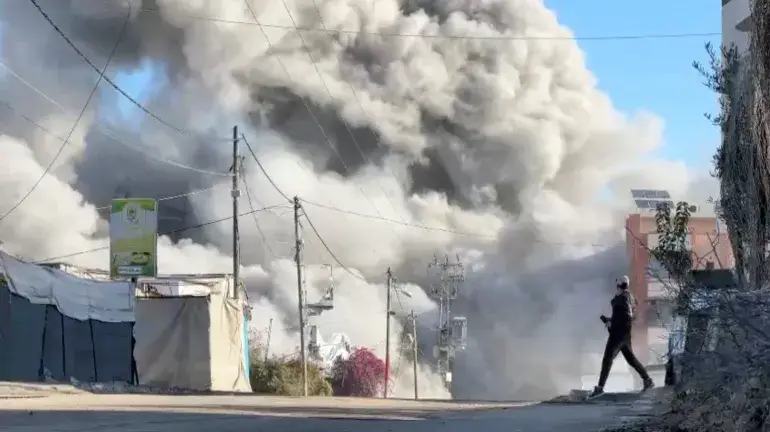
- Since the start of the olive harvest season in October, Palestinian farmers have faced a sharp increase in settler-related violence, with their livelihoods and safety severely jeopardized. Between October and November, OCHA documented about 260 settler-related incidents directly related to the season across 89 West Bank communities, the majority of which resulted in casualties, property damage or both. This is at least a three-fold increase compared to each of the preceding three years. These incidents resulted in 57 Palestinians injured by settlers, 11 injured by Israeli forces, over 3,100 trees and saplings, mostly olive, burned, sawed-off, or vandalized, and significant theft of crops and harvesting tools. Nearly 60 per cent of these incidents occurred in the northern West Bank, with Nablus governorate alone accounting for over a quarter. The central West Bank, mainly Ramallah governorate, witnessed around a fifth of the incidents, while 18 per cent took place in Bethlehem and Hebron governorates in the south. This geographic distribution aligns with previous years' trends; however, the volume of incidents has significantly increased.
- The Israeli authorities demolished, forced people to demolish, or seized 27 Palestinian-owned structures across the West Bank, including East Jerusalem. This resulted in the displacement of 11 people, including seven children, and otherwise affected the livelihoods, or access to services, of over 200 others. All but four of targeted structures were demolished due to a lack of Israeli-issue building permits, which are nearly impossible for Palestinians to obtain. Twenty of the targeted structures were in Area C of the West Bank, five were in East Jerusalem, and two were in Area B of the West Bank.
- On 27 November, Israeli forces raided Idhna village (Hebron) in Area B of the West Bank and demolished a two-storey house and a water cistern, on punitive grounds. The house belonged to the Palestinian man who committed a shooting attack near Tarqumiya (Hebron) killing three Israeli police officers on 1 September 2024; he was killed on the same day in Hebron city in an exchange of fire with Israeli forces. Since the beginning of 2024, 33 structures have been demolished on punitive grounds, compared with 37 structures in all of 2023 and 14 in 2022. Punitive demolitions are a form of collective punishment and are illegal under international law.
- From 1 January to 30 November 2024, 64 per cent of structures demolished in East Jerusalem (121 out of 189 structures) for lacking Israeli-issued building permits were destroyed by their owners following the issuance of demolition orders by the Israeli authorities. These demolitions accounted for around 60 per cent of people displaced in East Jerusalem within this context until end of November 2024 (289 out of 481 people). The rate of demolitions by owners of structures served with demolition orders has increased and stood at about 53 per cent in each of 2022 and 2023. More than half of homes and other structures demolished by their owners (63 out of 121) during this period took place in Jabal Mukabbir (23), Al Isawiya (22), and Silwan (18). Jabal Al Mukabbir alone accounts for 28 per cent of people displaced after being forced to demolish their own homes for lacking building permits. These demolitions are supported by Israeli legislation, which limits the authority of Israeli courts to intervene, exerting additional pressure on families to demolish their properties themselves. In one such incident documented by OCHA in August 2024 in Silwan, the affected family had been paying over 100,000 NIS ($27,700) in fines since 2014 for adding a new section to their home, built before the year 2000 without a permit. In August 2024, they received a final demolition order, after which Jerusalem Municipality officials reportedly stormed their house regularly, pressuring the family to demolish the property within 21 days. This incident displaced two households, comprising nine people, including four children.
- In February 2024, Israeli authorities issued military orders to requisition approximately 30 dunums of Palestinian-owned land from the towns of Sinjil (with an estimated population of 6,500, PCBS 2024 population projections) and Turmus’ayya (with an estimated population of 2,800, PCBS 2024 population projections), both north of Ramallah along Road 60. According to local sources, the Israeli Civil Administration informed the towns’ residents months earlier that the seized land would be used to construct a fence to protect Israeli settlers passing along Road 60 from stone-throwing. Reportedly, the planned fence wall, approximately 1,500 metres long and four metres high, would close off lands overlooking Road 60—which is the main road connecting the northern, central, and southern West Bank—from both the Sinjil and Turmus’ayya sides, severely restricting access to agricultural land and homes. Additionally, according to the Sinjil Municipality, 13 houses lie in the path of the fence wall, and 8,000 dunums of agricultural land near settlements in northeastern Sinjil are at risk of being isolated. In August 2024, Israeli authorities issued an additional order to requisition 15 more dunums of land for the fence construction. By late September, Israeli forces had begun levelling privately-owned Palestinian land in Sinjil, demolishing one uninhabited residential house, uprooting over 200 trees (including 135 olive trees), destroying retaining walls, and bulldozing fields cultivated with vegetables. These actions affected approximately 162 people, including 94 children. The Sinjil Municipality petitioned the Israeli Civil Administration against the fence construction plans, but their objections were dismissed. Field observations by the municipality suggest that bulldozing activities have extended beyond the areas specified in the original plans. Furthermore, on 22 November 2024, Israeli settlers believed to be from nearby settlements attacked the requisitioned areas, cutting down and stealing two ancient olive trees before fleeing the scene.
821.

MONDOWEISS
4 december 2024
"From The River, To The Sea" T-Shirts
Our iconic "From The River, To The Sea" t-shirts are a must-have for advocates of justice and truth. Available in both short-sleeve and long-sleeve styles, these shirts let you wear your values proudly while staying comfortable and stylish.

From The River, To The Sea
Long-Sleeve T-Shirt
820.


4 december 2024
New Map of the West Bank
Today, we are releasing an updated poster-size map of the West Bank, focusing on movement and access.
The new West Bank map is a revision to the May 2023 poster-size map, providing updated information on movement obstacles where a policy of physical barriers, permit requirements and other administrative restrictions are used to control Palestinian pedestrian and vehicular movement across the West Bank. Key figures include:
- 3.3 million Palestinians live in the West Bank, including East Jerusalem
- 614 obstacles continue to impact access and movement
- Ramallah, Hebron and Nablus governorates have the highest number of obstacles (142, 129, 128).
- 700,000 Israeli settlers live in 350 settlements established in the West Bank, including East Jerusalem, in contravention of international law.
- Palestinian access to land located behind the Barrier continues to be subject to Israeli requirements, including special permits.
- In the prohibited areas of H2 Hebron, only Palestinians registered as residents of this area are allowed to enter. In the restricted areas, where Palestinian houses are located immediately adjacent to one of the settlement compounds, Palestinian access is controlled by a checkpoint.

The updated map includes detailed information on the movement obstacles by governorate and by type. These vary between checkpoints, road gates, earth mounds and earth walls, partial checkpoints, trenches among other categories, restricting movement and access. The map also features the West Bank Barrier, civil infrastructure, closed and restricted areas, Israeli settlements, and the built-up areas of the Palestinian communities. Additionally, inset maps and infographics provide an overview of East Jerusalem, Hebron H2 areas, and the West Bank Barrier construction status.
As the situation remains highly dynamic and volatile, the map reflects the situation as of November 2024 and may thus not reflect changes that have occurred after this period.
We are happy to offer poster-size printouts to those able to visit any of our offices across the Occupied Palestinian Territory. For partners unable to visit our offices, we encourage them to use the linked digital version.
We hope you find this product useful.
Best regards,
The OCHA OPT Team
819.


4 december 2024

On November 19, 2024, Yesh Din published a new report addressing Israel’s policy of roadblocks in the West Bank, focusing on the case study of the Abu Awwad family from Turmusaya in the West Bank. For over a year, the sole access road to the family’s homes, located on the outskirts of the town, has been obstructed by an earth mound of stones and dirt placed by soldiers and settlers. Under the cover of Israel’s war in the Gaza Strip, soldiers imposed even harsher restrictions on the family’s freedom of movement. These include prohibiting cultivating the agricultural lands surrounding their homes, which serve as a central source of income, banning them from leaving the compound after dark, and forbidding guests from visiting.
In January 2024, settlers attacked the family compound and caused substantial damage to property while soldiers stood idly by. Shortly thereafter, settlers threatened the family, demanding they leave the area.
After Yesh Din filed a petition to the Israeli High Court of Justice on the family’s behalf, some restrictions were lifted. However, to this day, the blockade remains in place, and a military order prevents the family from accessing their agricultural lands even for the purpose of harvesting their olives during the peak harvest season.
The family’s story, with its dramatic transformation of daily life, serves as a case study illustrating the destructive impact of Israel’s blockade policy, which has intensified since October 2023, on the lives of many Palestinians. It also highlights the collaboration - whether overt or covert - between the State of Israel and settlers, employing various means to forcibly displace Palestinians from their lands.
New Petition to the High Court of Justice Demanding Public Tenders for Land Allocations in the West Bank
On November 28, 2024, Yesh Din submitted a petition through Attorneys Shlomy Zachary and Lior Tzur against the Military Commander of the West Bank and the Civil Administration addressing the order regarding the obligation to publish public tenders for allocation of West Bank land. This order, issued by the Military Commander of the West Bank in August 2020, established a mechanism stipulating that there is no binding obligation for allocations of lands in the West Bank to be equitable, transparent, or impartial until appropriate regulations are enacted by the Head of the Civil Administration. Sadly, according to the order, the authorities in the West Bank wish to continue the ongoing policy of blatant discrimination in the allocation of lands in the West Bank, so that lands are allocated, without public tenders, only to Israeli settlements and to serve Israeli interests alone.
As we have demonstrated in the past, findings reinforced by the Supreme Court ruling in the Regularization Law case and, to a significant extent by the ICJ's advisory opinion - during 57 years of occupation only a negligible portion of land has been allocated to Palestinians. In contrast, approximately 99.3% of the lands allocated by the Civil Administration were designated for the benefit of Israeli settlements.
The ICJ's advisory opinion aligns with our position in many areas, particularly regarding the core issue of this petition: the obligation of the Head of the Civil Administration to enact regulations to meet the standards that the Military Commander himself proclaimed. The petition additionally demands that, until such regulations are enacted, no allocations or transactions involving land should take place.
This is a principled petition addressing systemic inequality, which is characteristic of the crime of apartheid, and therefore carries significant public importance.
After months of collaborative work with the SITU studio, Bimkom, Adam Maloof and Ryan Manzuk of Princeton University Department of Geoscience, Yesh Din is proud to present its innovative project in the Pinakothek Der Moderne Museum in Munich, Germany. Presented publicly for the first time as part of the exhibition, this ongoing investigation aims to document and analyze changes in land possession and land use in the West Bank. Since the Israeli occupation is carried out in the form of land dispossession (among others), this work examines the spatial representation of systematic discrimination, and whether remote sensing tools show patterns of dispossession over time and space concerning areas in the West Bank which Yesh Din has been monitoring for years.
Several dynamic teams, including architects, filmmakers, and computational engineers, used spatial analysis and 3D modeling to uncover and visualize human rights abuses, thus creating a reliable basis for independent assessment and legal prosecution. The project is part of a wider exhibition using the emergent field of Visual Investigations to create a series of case studies and research to show how the role of architecture operates between advocacy, journalism, and law in the pursuit of justice and accountability.
The exhibition is called In Plain Sight: Remote Sensing and Land Dispossession in the West Bank.

818.


4 december 2024
Eyewitness Palestine's monthly newsletter is here, highlighting Palestinian cities, towns, and villages, as well as upcoming events, recommended reads, and documentaries.
December's newsletter focuses on Nazareth.
Nazareth lies in the rolling hills of Galilee and resonates with both spiritual and historical significance. It is a place where Christianity’s most sacred narrative intertwines with the rich, often compelling, history of Palestine. As Christmas approaches, Nazareth stands not just as a destination for pilgrims and tourists, but as a symbol of resilience, faith, and the enduring spirit of a people shaped by centuries of struggle and hope.
Since the occupation of Palestine in 1948, Palestinian cities across the occupied territories have faced significant pressure, with increasing restrictions on religious practices and expressions of identity from Nazareth to Bethlehem, Nablus to Jerusalem, and from Ramallah to Gaza, the challenges are immense: daily harassment by settlers, bans on public Christmas trees, spitting on priests, bombing of churches, and attacks on Christian clergy. Despite these efforts to erase Palestinian presence, the people of Nazareth stand firm. The city is not only a symbol of Christian heritage but also of the broader Palestinian struggle for freedom and dignity.
MORE ABOUT NAZARETH
If you want to learn more about Nazareth, check out the following resources and initiatives highlighted by Eyewitness Palestine staff.
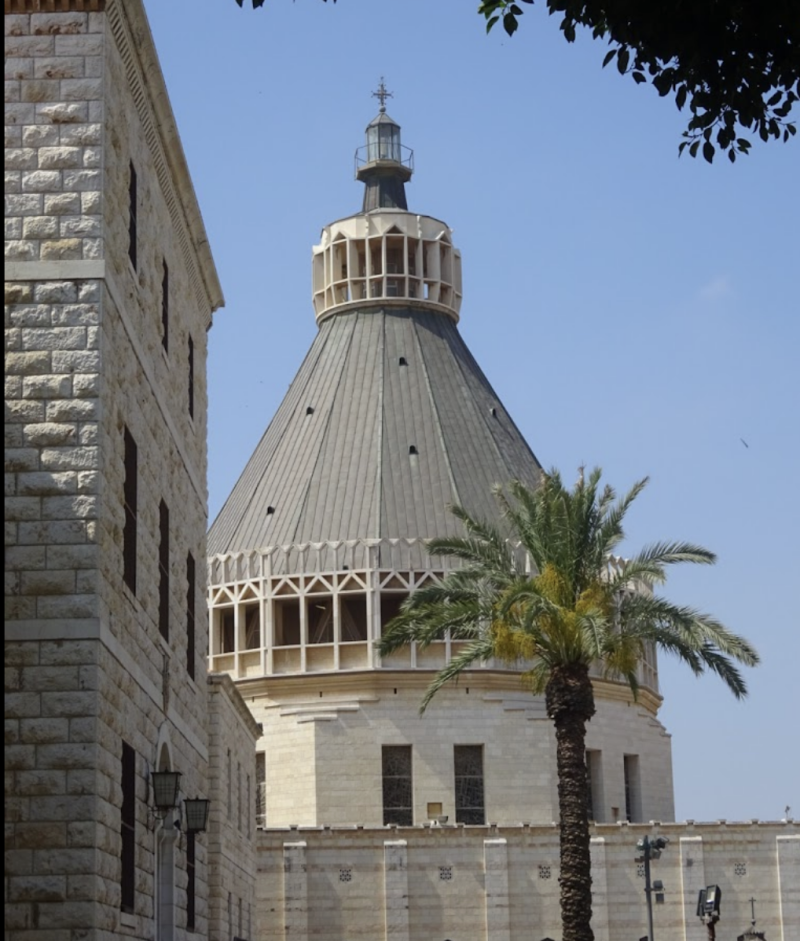



The Stones Cry Out: The Story of Palestinian Christians is a 2013 documentary that tells the story of Palestinian Christians from the Nakba of 1948 to the present day: The documentary highlights the history of Christianity in Palestine, which is considered the birthplace of Christianity.
It also explores the experiences of Palestinian Christians, who have lived in the region for almost 2,000 years.
The documentary highlights how the history of Palestine has been shaped by displacement, wars, occupation, and oppression.
817.


4 december 2024
Quick Take: Belgium Good News! DutchCourts of Appeal should take the same way!
Belgium: Good news. The Brussels Court of Appeal has found the Belgian government guilty of crimes against humanity in Congo during Belgian colonial rule and ordered it to pay compensation as a form of reparation. It’s a landmark win for the reparations movement, achieved thanks to a tireless struggle for justice.
816.


4 december 2024
Today's headlines
Cautious optimism as Gaza ceasefire talks resume in Cairo
Qassam Muaddi
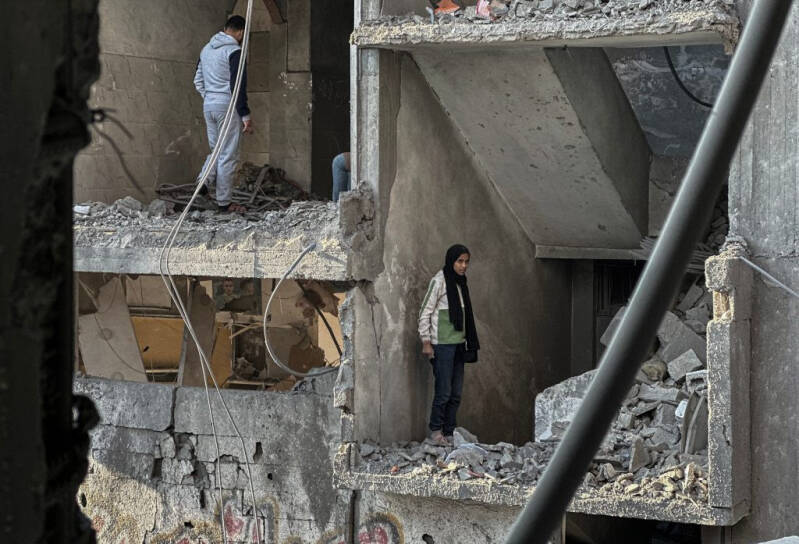
Ceasefire negotiations have resumed in Egypt between Hamas and Israel. A new push for unity between rival Palestinian factions could offer a new path forward, but internal Israeli political strife could once again prevent a deal from taking shape.
Targeted aid killings: How Israel starved a population and sowed chaos in northern Gaza
Riley Sparks, Hajar Harb, Omar Nabil Abdel Hamid and Eric Reidy
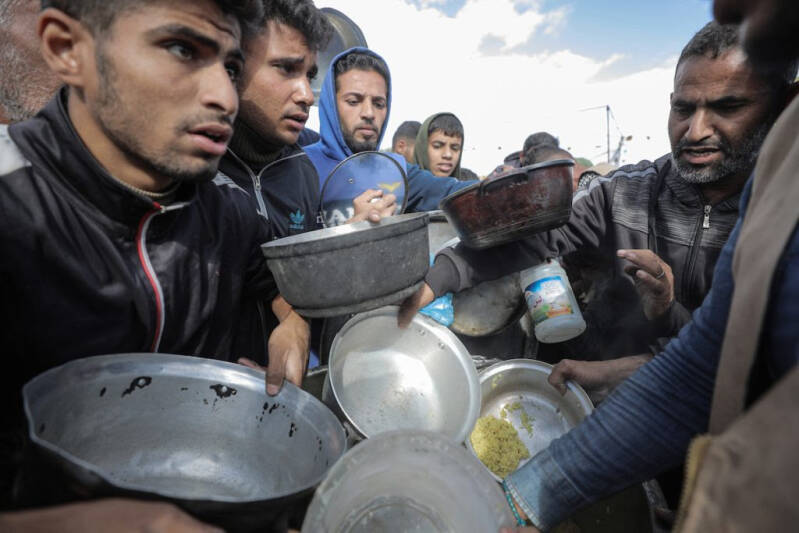
A new investigation reveals the chilling military strategy behind Israel’s attempts to starve northern Gaza. Experts say Israeli attacks, which used targeted killings to promote social disintegration, show “a pattern of apparent war crimes."
815.


4 december 2024
Ceasefire Consequences and Annexation Plans
Leaked documents revealed a disturbing partnership between UK Lawyers for Israel and the Israeli government, aimed at undermining human rights organizations like Human Rights Watch and Amnesty International.
This collaboration is part of a larger effort to stifle accountability for Israel’s violations of international law. Finance Minister Bezalel Smotrich announced plans to annex the West Bank by 2025. With the possibility of a Trump administration returning to power in the U.S., this timeline underscores Israel’s long-term strategy to entrench its control over occupied Palestinian territories.
The recently brokered ceasefire between Israel and Hezbollah has temporarily eased fears of a regional war, but its implications are deeply troubling for Palestinians:
= The agreement furthers Israel’s goal of isolating Gaza from Lebanon and decoupling the Axis of Resistance. Meanwhile, in Gaza, families fleeing Israeli evacuation orders were targeted in an airstrike on a school, killing 18 people. As Tareq Hajjaj writes, “there is no safe choice” for Palestinians forced to leave their homes amid relentless violence.
= Tech giants like Google and Amazon are facing growing scrutiny for their role in Israel’s genocidal war on Gaza. Tauriq Jenkins highlights their complicity in violations of international law through advanced technologies used in Israel’s assaults.
= White House condemns the ICC’s arrest warrants for Netanyahu and Yoav Gallant, U.S. complicity in shielding Israel from accountability remains perhaps the key obstacle to ending the bloodshed in Gaza.
Diaries from North Gaza: One Woman’s Story of Survival
Since October 7, 2023, Sondos Sabra has kept a diary of the genocide. These entries serve as a window into her life and the universal Gazan story of what it means to survive. “I remember that I remember, and I will not have that memory erased.”

Palestinians inspect the damage in the Nuseirat refugee camp in the central Gaza Strip after Israeli shelling of the camp stopped on November 29, 2024. (Photo: Omar Ashtawy/APA Images)
Catch up:
= Leaked documents show the extent of collaboration between the pro-Israel legal advocacy group UK Lawyers for Israel and the Israeli government, in their attempt to “counter” the work of human rights organizations such as Human Rights Watch and Amnesty International.
= Finance Minister Bezalel Smotrich has announced that 2025 will be the year Israel annexes the West Bank. With the Trump administration entering the White House, the stage is set for Israel to finally take total control over the occupied territory.
= The media’s censorship of the facts of the Amsterdam soccer hooligan violence was more than just bad reporting. It was yet another example of the ideological fiction that Jewish actions can never be blamed for the violence they cause.
= Georgia Senator Jon Ossoff is getting attacked for his support of a resolution to block future U.S. arms sales to Israel, but we will likely be hearing more Democrats sounding like him as the party shifts on the issue of U.S. aid to Israel.
= Unpacking the ceasefire deal reached between Israel and Hezbollah and what it means for a potential regional war and the ongoing genocide in Gaza.
= The ceasefire agreement between Hezbollah and Israel has accomplished Israel’s goal of decoupling Gaza from Lebanon. But while the future of the Axis of Resistance remains unclear, so does Israel’s own strategic path forward.
= This week, families in Gaza City followed orders to evacuate to a nearby school, and then Israel bombed it, killing 18 people. There is no safe choice for Palestinians when they are forced to decide whether to leave their homes.
= The role of tech giants like Google and Amazon Web Services in perpetrating the plausible genocide in Gaza is coming under increasing scrutiny. Their involvement in advanced military operations implicates them in violations of International Humanitarian Law and International Human Rights Law.
= The White House joined lawmakers across both parties in condemning the ICC’s arrest warrants for Benjamin Netanyahu and Yoav Gallant. Senator Tom Cotton even suggested that the U.S. should take military action against the court over the warrants.
= I am an obstetrician and gynecologist who has worked in Gaza throughout the Israeli genocide. I have seen the destruction of Gaza’s medical sector firsthand. My patients’ stories tell the story of the genocide.“
814.


3 december 2024
Humanitarian Situation Update #243
Gaza Strip

Destruction in Gaza city. Photo credit: Olga Cherevko, OHCHR.
Key Highlights
- An Emergency Medical Team was successfully deployed to Kamal Adwan hospital, in North Gaza, for the first time in 60 days.
- A severe shortage of medical supplies and consumables is hindering the provision of essential healthcare across the Gaza Strip, and UNRWA warns that at least 60 medications will be depleted at its health facilities by the end of the year.
- Water production decreased by nine per cent in November, mainly due to critical fuel shortages that have resulted in a 43-per-cent drop in production by groundwater wells across Gaza.
- Humanitarian access continued to be partly denied or impeded during November, and UNRWA had to suspend the collection of aid supplies from Kerem Shalom crossing due to insecurity and looting of humanitarian cargo.
Humanitarian Developments
- Israeli bombardment from the air, land and sea continues to be reported across the Gaza Strip, resulting in further civilian casualties, displacement, and destruction of civilian infrastructure. In the North Gaza governorate, the Israeli military has been carrying out a ground offensive since 6 October 2024, with fighting reported between Israeli forces and Palestinian armed groups. Israeli forces have continued to impose a tightened siege on Beit Lahiya, Beit Hanoun and parts of Jabalya and humanitarian assistance has been largely denied for about 60 days (see data below), leaving between 65,000 and 75,000 people without access to food, water, electricity or reliable health care, as mass casualty incidents continue.
- Between the afternoons of 26 November and 3 December, according to the Ministry of Health (MoH) in Gaza, 253 Palestinians were killed and 708 were injured. Between 7 October 2023 and 3 December 2024, at least 44,502 Palestinians were killed and 105,454 were injured, according to MoH in Gaza.
- Between the afternoons of 26 November and 3 December, two Israeli soldiers were killed in Gaza, according to the Israeli military. Between 7 October 2023 and 3 December 2024, according to the Israeli military and official Israeli sources cited in the media, more than 1,580 Israelis and foreign nationals were killed, the majority on 7 October 2023 and its immediate aftermath. The figure includes 380 soldiers killed in Gaza or along the border in Israel since the beginning of the ground operation. In addition, 2,463 Israeli soldiers were reported injured since the beginning of the ground operation.
- Representing the last lifeline for over two million Palestinians in Gaza, humanitarian workers continue to operate under challenging conditions that undermine their ability to meet humanitarian needs while facing risks to their personal safety. On 30 November, three World Central Kitchen (WCK) staff members were killed by an Israeli airstrike on their vehicle near an aid distribution site in Khan Younis, forcing the organization to pause its operations. On the same day, a Save the Children staff member, who is deaf, was killed in a separate Israeli airstrike in Khan Younis while returning home from a mosque. Save the Children condemned the attack in the strongest possible terms and demanded an investigation. On 27 November, UNRWA reported that two additional agency staff had been killed in Gaza, bringing the total fatality toll among UNRWA staff to 249. Overall, since 7 October 2023, at least 343 humanitarian workers have been killed in the Gaza Strip, including 253 UN staff. Calling for accountability and an immediate ceasefire to end the suffering, the Humanitarian Coordinator for the OPT, Muhannad Hadi, emphasized: “Humanitarians must be granted safe, sustained, and unimpeded access to all those in need. The continued killing of humanitarian workers is an unacceptable violation of international law and further intensifies the catastrophic humanitarian situation.”
- On 28 November, over 75 Palestinians including children and women were reportedly killed in two strikes on two residential buildings in Beit Lahiya, in North Gaza, according to the Palestinian Civil Defense (PCD) that remains blocked by the Israeli authorities from operating in the governorate. PCD further stated that the houses near one of the targeted buildings are inhabited and their residents may have also been killed or injured but their destiny remains unknown. On 29 November, PCD spokesperson described conditions in North Gaza governorate as a “total catastrophe” whereby many people are trapped under rubble for days until they die of their injuries or due to the lack of food and water. According to PCD, more than 2,700 people are estimated to have been killed in North Gaza since 6 October, half of whom have not been retrieved, and more than 10,000 have been injured.
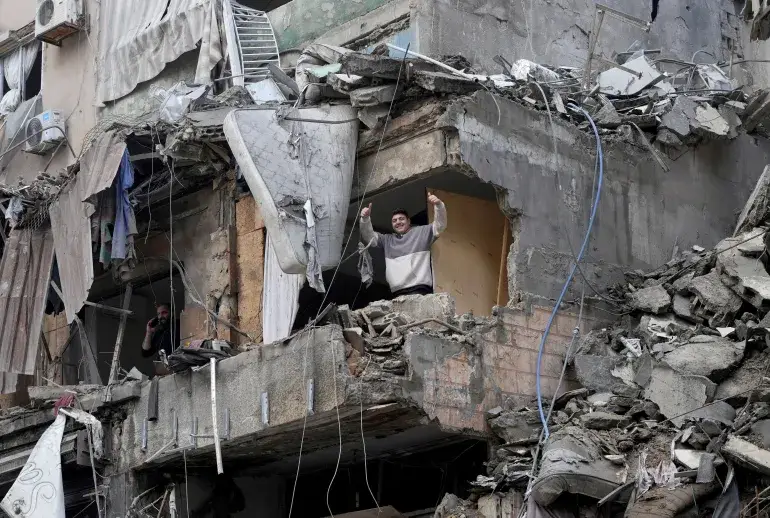
- The following are some of the other deadly incidents reported between 26 November and 1 December:
- On 26 November, at about 14:50, 15 Palestinians were reportedly killed and others injured when Al Hurriya School, sheltering Internally Displaced Persons (IDPs), was hit in Az Zeitoun neighbourhood in southeastern Gaza city.
- On 27 November, at about 02:00, at least nine Palestinians including six females were reportedly killed and 20 others were injured when two floors of a building of Al Tab’aeen School, sheltering IDPs, was hit in central Gaza city.
- On 28 November, at about 08:40, nine Palestinians including at least one woman were reportedly killed and several others injured when a group of Palestinians sitting outside a house was hit in the New Camp, north of An Nuseirat refugee camp in Deir al Balah.
- On 29 November, at about 23:05, at least ten Palestinians, including two women and two children, were reportedly killed when an apartment was hit in a building in Ash Sheikh Radwan neighbourhood in northern Gaza city.
- On 29 November, the head of the Intensive Care Unit (ICU) at Kamal Adwan Hospital, in North Gaza, was reportedly killed in an Israeli airstrike in North Gaza.
- On 30 November, at about 11:35, at least eight Palestinians were reportedly killed when a five-story residential building was hit in Ash Shuja’iyeh neighbourhood, in eastern Gaza city.
- On 30 November, at about 13:00, at least 12 Palestinians were reportedly killed and others injured when an area near an aid distribution point was hit in Qizan an-Najjar Village in southern Khan Younis.
- On 30 November, at about 16:25, over 40 Palestinians were reportedly killed or injured, according to PCD, when a house sheltering tens of IDPs was hit in Tal Az-Za'atar in North Gaza. Many people are still trapped under the rubble due to very limited resources for retrieval and rescue.
- On 1 December, at about 19:00, 25 Palestinians, including women and children, were reportedly killed when a house was hit in Beit Lahiya Project in North Gaza.
- On 1 December, following the denial of several requests to deploy Emergency Medical Teams (EMTs) at Kamal Adwan Hospital, an EMT made up of six staff from Medical Emergency Rescue Committee (MER-C) Indonesia was deployed to the hospital as part of a medical mission from the World Health Organization (WHO) that delivered a fuel tank and medical supplies. The hospital, which now hosts 63 patients including nine in the ICU, has been functioning with extremely limited resources and has been under attack several times. Also in North Gaza, on 26 November, the International Committee of the Red Cross (ICRC) and the Palestine Red Crescent Society (PRCS) facilitated the medical transfer of patients from Al-Awda hospital in Beit Lahiya, which also suffers from an acute shortage of supplies, to Al-Shifa hospital in Gaza city.
- A severe shortage of medical supplies and the lack of food and water for patients continue to hinder the provision of much needed healthcare across the Gaza Strip. Coupled with soaring medical needs due to the onset of winter and hunger, these conditions have forced health workers to turn people away at some facilities and could “push people over the edge,” warned Médecins Sans Frontières (MSF) on 29 November. At Nasser Hospital in Khan Younis, basic supplies like gauze and bandages are running out, forcing MSF teams to extend dressing change intervals and heightening infection risks. Also at Nasser, MSF teams have not been able to set up a clinical bacteriology laboratory because the cold chain to operate it has been constantly “opened and damaged by Israeli officers at the crossing point," according to MSF. In Deir al Balah, the MSF field hospital is struggling due to a lack of painkillers and antibiotics, hindering pain management and the treatment of low respiratory infections among children. Medications for hypertension, or high blood pressure, are similarly in short supply, leaving many people untreated and at risk of acute complications. According to WHO, of the estimated 350,000 people who live with chronic diseases in the Gaza Strip, about 225,000 have hypertension. Likewise, UNRWA recently reported that its health facilities, including seven health centres and 54 medical points that remain operational, have limited stocks of medicine and shortages of laboratory supplies have rendered only three tests available for patients compared with 35 tests prior to 7 October 2023. According to UNRWA, under current conditions, at least 60 medications, including inter alia 19 mental health and non-communicable disease medications, 17 antimicrobials and antiparasitic medicines, eight anti-inflammatory and gastrointestinal drugs, will run out at its health facilities by the end of December 2024. In addition, MSF teams have been relying on expensive water trucking due to the lack of authorization from the Israeli authorities to import desalination units or generators. However, last week they were forced to reduce water trucking activities by half due to the high cost and limited availability of fuel.
- Attacks on health facilities across the Gaza Strip continue to take place, further hindering the provision of services and placing additional strain on an already overwhelmed healthcare system. On 28 November, Al Awda Health and Community Association reported that one of its ambulances had been hit while evacuating injured people in An Nuseirat refugee camp, in Deir al Balah, resulting in the injury of one paramedic. On the same day, quadcopters reportedly dropped small diameter bombs outside the reception and emergency ward of Al Awda Hospital in An Nuseirat, injuring four people, including two staff. In addition, on two occasions on 30 November, Israeli forces reportedly opened fire and fired shells towards the Indonesian Hospital, in North Gaza governorate, resulting in the injury of one doctor, the destruction of three electricity generators, and damage to the hospital's third floor and water tanks. Moreover, Oxfam’s partner, Juzoor, which continues to operate in North Gaza, reported that it had its homeless shelter, food and medical storage facility and one of its 15 health points hit by recent Israeli bombardments, “destroying equipment and burning medicines” at the health point.
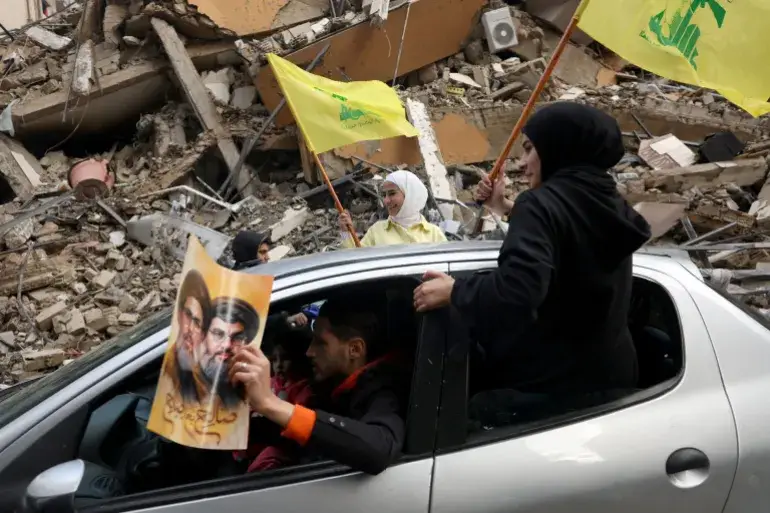
- On 27 November, six cancer patients and 11 trauma patients, along with 17 companions, were evacuated by WHO from Gaza to receive specialized medical treatment in the United States and Jordan. As of 27 November, 352 patients have been exceptionally evacuated from Gaza abroad since early May, following the Israeli ground operation in Rafah and subsequent closure of Rafah crossing. With the decimation of Gaza’s health care system and a severe shortage of supplies and specialized care, thousands of patients remain on the waiting list. According to the UN Children’s Fund (UNICEF), “at the current rate of medical evacuations, it would take seven years to rescue 2,500 children in urgent need of medical evacuation,” and some children have died while waiting for approvals. One such case took place recently when an 11-year-old boy died of Leukaemia, after six requests for his medical evacuation from Gaza were denied, UNICEF reported.
- Water supply in the Gaza Strip continues to be limited and dependent on fuel supplies since the shut-off of the main electricity supply lines by Israel and the forced shut-down of the Gaza power plant in October 2023. Overall, gross water production reported by the Palestinian Water Authority (PWA) and the Coastal Municipalities Water Utility (CMWU) has dropped by nine per cent in November, from an average of 96,394 to 87,358 cubic metres per day, and there is a high percentage of losses through the network due to damaged networks. On 14 November, the Southern Gaza Desalination Plant was reconnected by the Israeli authorities to an electric feeder line from Israel -- which marked the first time the Israeli authorities have allowed any electricity connection to Gaza since October 2023 – allowing it to operate at a maximum capacity. At present, the plant is producing an average of 15,000 cubic metres of water per day, three-fold the production level when it was connected to a back-up diesel generator, according to the Water, Sanitation and Hygiene (WASH) cluster. Concurrently, drinking water supplied to southern Gaza from Israel through the two Mekorot pipelines has dropped from an average of 21,000 cubic metres per day to 14,000 cubic metres per day for unclear reasons whereas the third pipeline to northern Gaza continued to operate at near full capacity, supplying an average of 20,000 cubic metres per day. Finally, over the course of November, critical fuel shortages have resulted in a 43-per-cent decrease in water production by groundwater wells, from 61,000 to about 35,000 cubic metres per day, while fuel deliveries to operate water and sanitation facilities in North Gaza governorate have remained blocked since 1 October 2024.
- On 3 December, PWA stated that damage to Gaza's water sector has exceeded 80 per cent, affecting wells, pumping stations, desalination plants, distribution networks, and sewage treatment plants. Only 19 per cent of water wells are considered functional at present while two-thirds (208 out of 306) have become fully non-operational and 39 only partially operational. Small desalination plants, which are at present a primary source of potable water, have incurred similar damage; 80 out of 103 plants have been destroyed and 15 plants have been partially damaged. Meanwhile, only two of the three major desalination plants are operational and the third one (the North Desalination Plant) has been damaged and out of service since the escalation of hostilities in October 2023. In addition, nearly all the sewage pumping stations except two (76 out of 78) have been either destroyed (58) or partially damaged (18).
- On 29 November, two young girls and one woman suffocated to death while queuing among large crowds to get bread at a bakery supported by the World Food Programme (WFP) in Deir al Balah, amid severe flour shortages and reduced food distributions due to access constraints and insecurity. Mourning this tragic loss, WFP stressed that “the lack of food aid and the absence of the commercial sector are driving people into hunger,” urging authorities to provide the secure conditions necessary to ensure that humanitarian aid can reach people in need. As of 3 December, five out of 19 WFP-supported bakeries are operational across the Gaza Strip, including four in Gaza city and one in Khan Younis. The four bakeries in Gaza city have been functioning since 30 November at half capacity due to fuel shortages. In Khan Younis, one WFP-supported bakery re-opened on 3 December after two days of closure due to overcrowding. Seven WFP-supported bakeries in Deir al Balah have remained closed since the 29 November incident due to flour shortages and overcrowding, of which six were operating at full capacity on 27 and 28 November, while seven remained closed in North Gaza and Rafah due to ongoing hostilities
- Between 1 and 30 November, out of 578 planned aid movements across the Gaza Strip requiring coordination with Israeli authorities, 41 per cent (237) were facilitated, 35 per cent (204) were denied, 16 per cent (93) were impeded, and eight per cent (44) were cancelled due to logistical and security challenges. These included 132 aid movements needed to pass through the Israeli military-controlled checkpoints on Al Rashid or Salah ad Din roads to reach areas north of Wadi Gaza (including both North Gaza and Gaza governorates), of which only 26 per cent (34) were facilitated by the Israeli authorities, 24 per cent (32) were impeded, 42 per cent (56) were denied, and eight percent (10) were cancelled. Aid missions to the North Gaza governorate were particularly disrupted, especially those seeking to reach Jabalya, Beit Lahiya and Beit Hanoun. Between 1 and 30 November, the UN attempted to reach these besieged areas 53 times, of which 48 attempts (90 per cent) were denied, five were initially approved but then severely impeded on the ground, and none were facilitated.
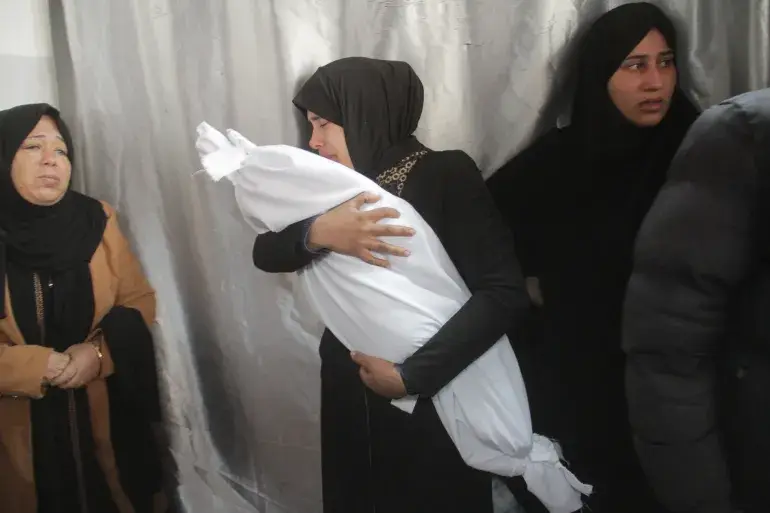
- Coordinated aid missions to areas in Rafah governorate, where there has been an ongoing Israeli military operation since early May, have faced similar challenges. Thirty out of 36 coordinated requests submitted to the Israeli authorities to access Rafah governorate were outright denied, one was cancelled, one was impeded and four were facilitated. This excludes 81 coordinated movements to Kerem Shalom crossing, of which 65 per cent (53) were facilitated, 17 per cent (14) were impeded, three per cent (two) were denied and 15 per cent (12) were cancelled.
- On 1 December, UNRWA announced that it has paused aid delivery through Kerem Shalom, the main crossing point for the passage of humanitarian aid into Gaza due to a breakdown in public order and safety that has rendered humanitarian operations unnecessarily impossible. UNRWA attributes these conditions to the “ongoing siege, hurdles from Israeli authorities, political decisions to restrict the amounts of aid, lack of safety on aid routes and [the] targeting of local police.” According to UNRWA, the road out of Kerem Shalom crossing has not been safe for months and aid supplies have been stolen by armed gangs on multiple occasions, including most recently on 30 November. UNRWA chief, Philippe Lazzarini, stressed that this difficult decision comes at a time when hunger is rapidly deepening, calling on the State of Israel as the occupying power to ensure that aid flows into Gaza safely and to refrain from attacks on humanitarian workers.
- On 2 December, the Israeli military issued an evacuation order affecting about three square kilometres in northern Khan Younis governorate and parts of Deir al Balah, which were previously placed under evacuation on four occasions between December 2023 and August 2024. The area includes about two square kilometres for which an evacuation order had been rescinded in October 2024. The next morning, according to humanitarian partners, about 400 families or 2,000 people are estimated to have moved from largely destroyed buildings in this area to Al Mawasi, noting that the majority previously had tents in Al Mawasi and regularly moved between the two areas. The area to which they moved includes Al Qarara seaport, where high tides had displaced many families in recent days. Since October 2023, about 80 per cent of the Gaza Strip’s territory has been placed under evacuation orders that remain active, excluding orders that were subsequently rescinded.
- The Cairo Ministerial Conference, titled "A Year Since the Humanitarian Catastrophe in Gaza: Urgent Needs, Lasting Solutions," was held on 2 December 2024 under the auspices of President Abdel Fattah El-Sisi of Egypt and UN Secretary-General António Guterres. Co-convened by Egypt's Ministry of Foreign Affairs, UNRWA and OCHA, the conference brought together foreign ministers and high-ranking representatives to discuss urgent humanitarian needs, early recovery, and long-term reconstruction efforts for Gaza. Deputy Secretary-General, Amina J. Mohammed presented the SG’s remarks at the conference, calling for compliance with international law, strong defense of the humanitarian aid system, especially UNRWA, and intensified efforts for a political solution to end the crisis.
812.


3 december 2024
The struggle to free Palestine is inseparable from our broader fight for justice. And right now, our movement needs you more than ever.
As we approach a dark chapter in U.S. politics under the incoming Trump administration, we’re facing increased threats to our non-profit status, institutional funding, and—ultimately—our ability to organize for justice.
Right now, the situation in Gaza is dire. Families are trapped, with no aid getting in, no food reaching the North or South, and no relief in sight. The need for a ceasefire and arms embargo has never been more urgent. But we know that change doesn’t happen without serious pressure and people power. This is the offense we need to keep up, alongside our defense against the political forces that want to silence us.
We can’t afford to wait. Every moment counts.
In solidarity,
Sandra Tamari
812.


3 december 2024
Today's headlines
UNRWA suspends aid delivery through main Gaza crossing after ‘looting’ goes unfettered under Israeli watch
Qassam Muaddi

UNRWA announced Monday that it is halting aid shipments through the Karam Abu Salem crossing into Gaza citing “hurdles from Israeli authorities” as a reason for a “breakdown in law and order.”
Israel’s Genocide Day 423: Israeli siege of north Gaza intensifies as it enters 60th day
Qassam Muaddi
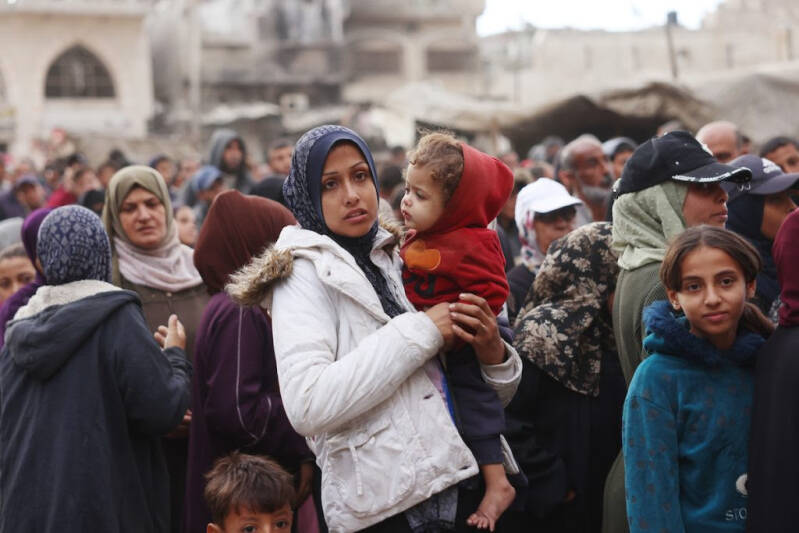
Gaza ceasefire talks resume in Cairo as Israel continues to besiege the north of Gaza for the 60th day, and UNRWA announces that it will be halting aid shipments due to dangerous conditions and the continued looting of aid trucks.
Former Israeli minister says army is carrying our ‘ethnic cleansing’ in north Gaza
Qassam Muaddi
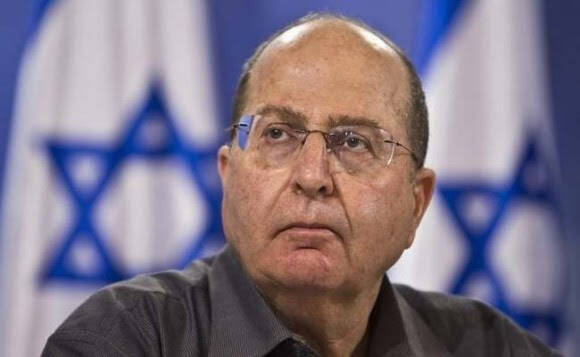
Former Israeli minister Moshe Ya'alon said in a TV interview that Israel was committing ethnic cleansing in Gaza. Meanwhile, Israel’s siege on the north continues, further crippling the remaining hospitals and healthcare systems.
811.

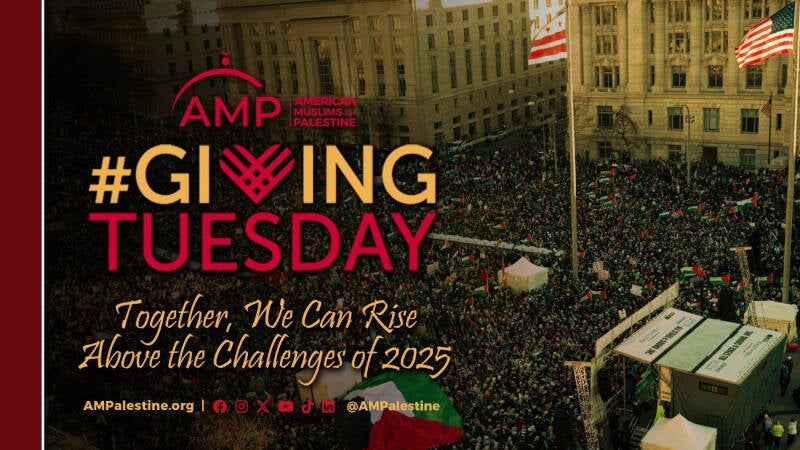
3 december 2024
This Giving Tuesday, as we reflect on the strides we’ve made for Palestinian justice, we also prepare for the hurdles ahead. The political climate in 2025 will demand more from all of us—more advocacy, more organizing, and more education to push back against a system complicit in Palestinian oppression.
The stakes have never been higher. From new legislation attempting to silence Palestinian voices to increased misinformation campaigns targeting our work, AMP is your frontline organization, steadfastly advocating for Palestinian rights and amplifying the call for justice.
Mohamad Habehh
Development Director
810.


3 december 2024
In today's Daily Brief:
- Videos: The ICC; Israel/US
809.


3 december 2024
Dina* is 19 years old and grew up right next to extremist Israeli settlers. Her family is a target because they live in a house that Israeli extremists want for settlement expansion. She was harassed on the way to school as a child and has had machine guns pointed at her many times. A fanatic Israeli settler once held down her brother and tried to crush his teeth with a rock. When Dina's uncle died from illness, the neighbor settlers celebrated his death. She now fears for her family's safety more than ever.

*Names have been changed for anonymity.
What Does Protection Look Like?
With the new U.S. administration coming into power, we fear that Israeli settlers will attack families in their homes to drive them out. There is a high risk of violent break-ins, assault, vandalism, and armed settlers shooting toward Palestinian houses. We will protect families by securing their homes with fortified doors and windows, fences, CCTV cameras, and alarm systems. All the money raised on Giving Tuesday will go toward this security equipment. Our team on the ground will access the homes in the restricted area and install the security measures.

Last year we fundraised to provide aid to families in Hebron who were struggling under the severe restrictions in the city economic repercussions of the war on Gaza. Families reach out to us and told us that were going hungry, and our team mobilized to raise the funds to help families in need. Our volunteers on the ground distributed the aid through the restrictions.

Our Executive Director Issa Amro is meeting with Swedish parliament members today to tell them about the situation in Hebron and the West Bank and call for them to help end the system of apartheid. Tomorrow Wednesday he will formally receive the the Right Livelihood Award, the "alternative Nobel Prize" for human rights. Sign up to join the live broadcast!
Issa has just lived through a year filled with beatings, detention, torture, assassination attempts, death threats and oppression. Your presence will mean a lot to him to support him as he represents Palestine.
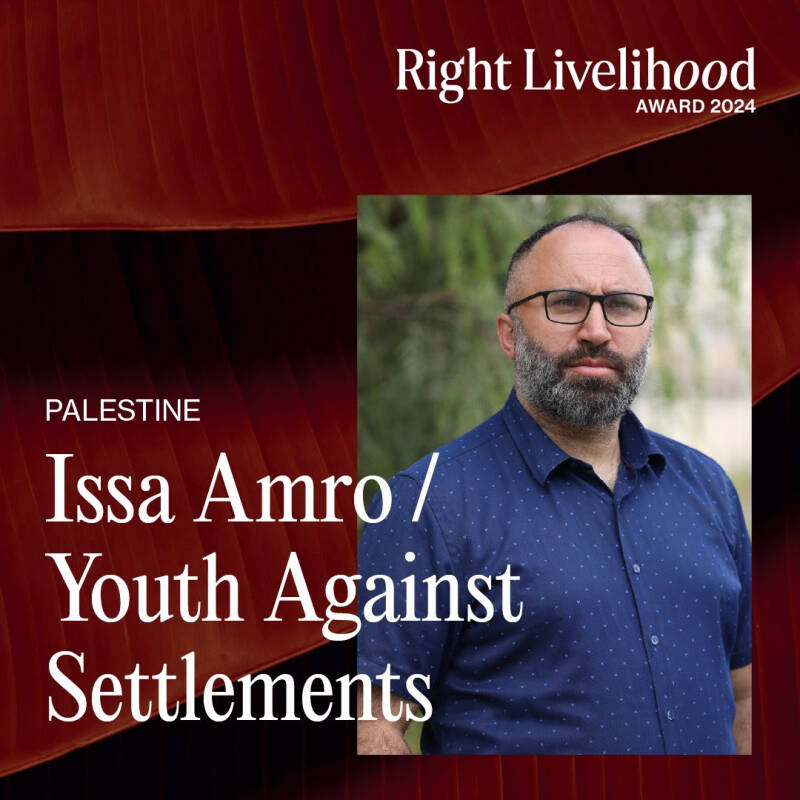
In Memorial
Yesterday marked one year since the passing of our beloved friend and brother Ahmad Amro who died after a long battle with illness on December 2nd, 2023.
Ahmad was a brave and humble volunteer who worked tirelessly for the rights of his people. His steadfastness, humor and kindness stay with us as we keep his memory in our hearts.
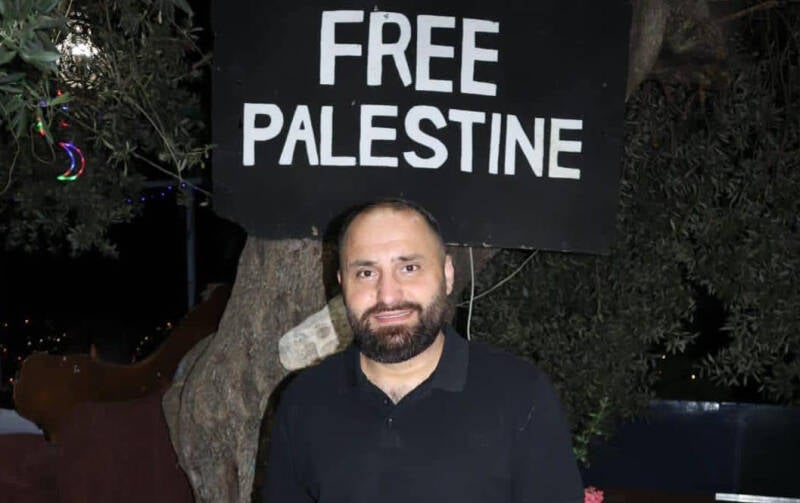
Until next time
We wish you all the best and happy holidays from our team on the ground in Hebron and our team internationally. We are in this together for the struggle for freedom, justice and equality for all.
With peace,
Friends of Hebron
www.hebronfriends.org/
808.


3 december 2024
Our website has been under unprecedented massive attacks, please be patient as every page will take longer to open, due to our heightened security measures to protect the website.
No, the ICC will “not end Israel’s genocide,” let alone “liberate Palestine.” Nor can the ICJ or even the UN, and I do not know any sane adult who has claimed otherwise. This does not mean, however, to dismiss the piling, unprecedented, far-reaching legal and diplomatic blows to Israel as “nothing” or as “merely symbolic.” Doing so would reflect a serious misreading of history or utter ignorance.
Justice is always won, not gifted. In all liberation struggles, human agency and revolutionary movements are the driving force. Only with seemingly endless organizing, planning, mobilizing, resisting, disrupting, coalescing, connecting struggles, and always learning can the oppressed ultimately prevail.
All these massive legal wins against apartheid Israel are making the ground so much more fertile than ever, finally allowing our long-planted seeds of liberation to grow into fruitful trees of freedom, justice, equality and comprehensive emancipation.
But first we must stop the US-Israeli genocide against 2.3 million Palestinians in Gaza. No one act, battle, campaign, demonstration, disruptive action, book, or song alone can end the genocide or significantly weaken Israel’s 76-year-old regime of settler-colonialism and apartheid. But each one of them, if strategic, principled and persistent, invigorates and contributes to the vibrant stream that can eventually breach the daunting, overbearing walls of Israeli oppression.
When the BDS movement first called for a comprehensive military embargo on Israel, for instance, States were too terrified of US wrath to consider it.
Now the global majority at the UN General Assembly supports it!!
Multiple ports across continents have been blocked for Israel-bound military supplies, and more port workers are refusing to handle such illegal supplies. Major European and Latin American universities are cutting ties with complicit Israel universities, and thousands of writers and artists have joined those supporting the cultural boycott of apartheid Israel. Major funds have divested from Israel Bonds, and massive US tech and energy projects have been canceled in apartheid Israel. The tide is turning. Israel is fast becoming an isolated, rogue state, and BDS is showing what our collective power can do and has indeed done.
The tide is turning ! Israel is fast becoming an isolated, rogue state. Collective action is showing what our collective power can do and has indeed done already!
807.


2 december 2024
For fourteen months, we have witnessed the most horrific crimes against humanity as the U.S. continues to fuel Israel’s genocide against the Palestinian people.
Since last October, the world has watched Israel wipe out entire bloodlines, destroy hospitals, universities, mosques, and churches, and systematically target journalists, healthcare workers, and aid workers.
Now more than ever, we owe Palestinians in Gaza and beyond our steadfastness, our resistance, and our solidarity.
As we keep fighting for justice and Palestinian liberation here in the U.S., it’s critical that we also directly support Palestinian families in Gaza. With GivingTuesday coming up tomorrow, we wanted to share two opportunities with you below:
Operation Olive Branch
Operation Olive Branch (OOB) is a volunteer-powered grassroots effort committed to the collective liberation of all peoples. OOB connects with and amplifies families' mutual aid pages in an effort to support their critical needs, which include but are not limited to their mutual aid requests.
OOB has collected the information of over 800 families and mutual aid initiatives on a detailed spreadsheet with hopes of enhancing their accessibility and reach to potential donors and advocates. These pre-existing campaigns are created and managed by the families and mutual aid founders themselves.
Middle East Children’s Alliance
The Middle East Children’s Alliance (MECA) is a nonprofit organization working for the rights and the well-being of children in the Middle East. For over a year, MECA has been responding to and meeting the needs of Palestinian children and their families in Gaza.
Among the vital work it carries out on the ground daily, MECA leads in provision of local produce, food parcels, and hot meals to hundreds of thousands of Palestinians in the displacement camps. Hygiene kits, supplies, and portable bathroom construction and maintenance have filled a critical gap needed to prevent the spread of communicable diseases. And purification systems and water tank re-installation are allowing for Palestinians in Gaza to still have access to potable water, despite Israel’s siege and relentless bombardment.
806.


2 december 2024
Today's headlines
Leak reveals UK lawyers, Israeli government planned ‘special unit’ to counter human rights reporting. Here’s what we know.
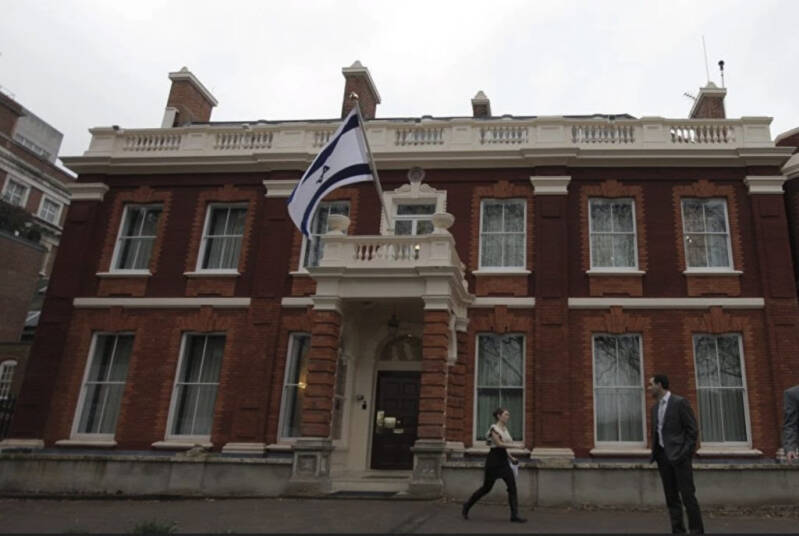
Leaked documents show the extent of collaboration between the pro-Israel legal advocacy group and the Israeli government, in their attempt to “counter” the work of human rights organizations such as Human Rights Watch and Amnesty International.
Leak reveals UK lawyers, Israeli government planned ‘special unit’ to counter human rights reporting. Here’s what we know.
Leaked documents show the extent of collaboration between the pro-Israel legal advocacy group and the Israeli government, in their attempt to “counter” the work of human rights organizations such as Human Rights Watch and Amnesty International.
Blocking humanitarian medical aid in Gaza is a death sentence
Bilal Irfan, Abdullah Ghali, Sarah Siddiqui, Abeerah Muhammad and Shraddha Shah

As healthcare workers who have recently participated in medical missions to Gaza, the West Bank, and Lebanon, we are greatly alarmed by Israel's decision to bar at least eight medical organizations to Gaza. The medical community must speak out.
Read more
805.


2 december 2024
Support the Court
The International Criminal Court (ICC) has been in the news in recent weeks like never before. And, as its big yearly meeting kicks off today, the institution is under unprecedented pressure.
The annual session of the ICC’s Assembly of States Parties (ASP) takes place in The Hague this week. This is the gathering of the court’s 124 member countries – those that have signed up to the Rome Statute, the founding treaty of the ICC. They’ll discuss various issues concerning the court, its direction, and difficulties, as well as its all-important budget for next year.
Looming over all the deliberations, no doubt, will be the extreme pressure the ICC has been facing after judges issued arrest warrants last month for senior Israeli leaders as well as a Hamas official in the Palestine investigation.
The court is currently operating in 16 countries around the globe, but this is the investigation that gets most attention internationally – the arrest warrant for Israeli Prime Minister Benjamin Netanyahu, in particular.
In the wake of the arrest warrant decision last month, disturbing threats have come from lawmakers in the US, which is not an ICC member. US Senator Lindsey Graham called for the US Senate and President Joe Biden to enact a bill passed by the House of Representatives on June 4, aimed at imposing sanctions against the ICC, its officials, and those supporting its work.
The bill is modeled on a sanctions program put in place by then-US President Donald Trump in 2020.
We’ve also seen some wobbling of support for the court and its mission from ICC member state France.
If there’s an ICC arrest warrant outstanding on someone, all ICC member states are obligated to arrest them. Last week, however, the French government apparently claimed Netanyahu has immunity from arrest as the head of state of a country that is not a member of the ICC.
ICC judges have rejected this view before, most recently in relation to an ICC member country, which had an obligation to arrest Putin, but didn’t.
Of course, when it comes to the ICC arrest warrant for Putin , in relation to Russia’s mass abduction of children in Ukraine, countries like the US and France have been rightly supportive of the court. The West’s double standard is obvious to the entire world. As we’ve said many times before:
If you only care about war crimes when your enemies commit them, then you don't really care about war crimes.
As the Assembly of States Parties kicks off today, all these many pressures will be weighing on the minds of those taking part. ICC members need to take this opportunity to redouble their support for the court.
This means demonstrating the ICC has the political backing and resources it needs. It also means all member countries should reiterate their obligation to execute the court’s arrest warrants, regardless of whom they target.
The ICC has an ambitious global mandate to deliver justice for the most serious atrocity crimes. Victims of those atrocities need ICC member countries to support the court in all its work everywhere.
804.

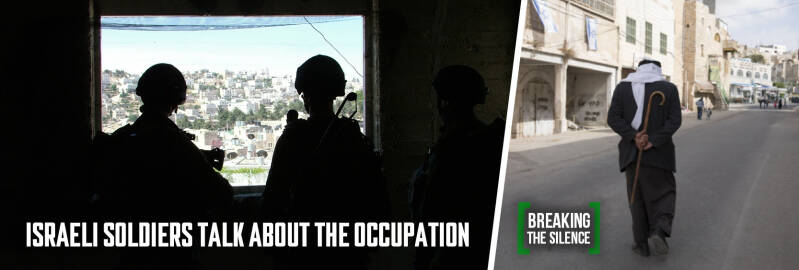
2 december 2024
Within minutes of the International Criminal Court issuing arrest warrants against Israeli Prime Minister Netanyahu and former Security Minister Gallant last month, came a flood of condemnations, an array of whataboutisms and countless allegations of antisemitism and “blindness.” But the true blindness is our society’s insistence, even now, to not see what we are doing in Gaza.
Starvation as a weapon, high-rise buildings bombed to take down an alleged “lookout,” lax rules of engagement and disproportionate use of firepower. We got to this point as a society by closing our eyes, covering our ears and shutting down any and every opposing voice.
This disastrous reality of endless bloodshed should’ve ended with a ceasefire and hostage deal long ago. Not because of the International Criminal Court’s decision, but because the reality is immoral and unbearable.

“WE ARE NOW BEING DRAGGED TO OCCUPY, ANNEX, ETHNICALLY CLEANSE – LOOK AT THE NORTH OF THE GAZA STRIP – TRANSFER, CALL IT WHATEVER YOU WANT, AND TO SETTLE IN JEWISH SETTLEMENS. THAT IS THE MATTER.
The former soldier who made the statement above is not one of our testifiers. Far from it. These are the words of Moshe Ya’alon, the former IDF chief of staff and Israel’s former defense minister. And he didn’t misspeak, either.
When pressed, he only reiterated and reaffirmed his statements. "I stand behind the phrase 'ethnic cleansing.' I must warn you about what is happening here and is being hidden from us. War crimes are being committed here," he said, adding that he was speaking "on behalf of commanders who operate in the northern Gaza Strip and have been approaching me with dread."
His comments were quickly pounced on by many in Israel’s right. A former defense minister and chief of staff accusing the IDF of ethnic cleansing? This is a man who, during the Second Intifada, spoke of "searing the consciousness" of Palestinians. While he’s an opponent of the current government, he’s about as far from a Palestinian rights advocate as one can be.
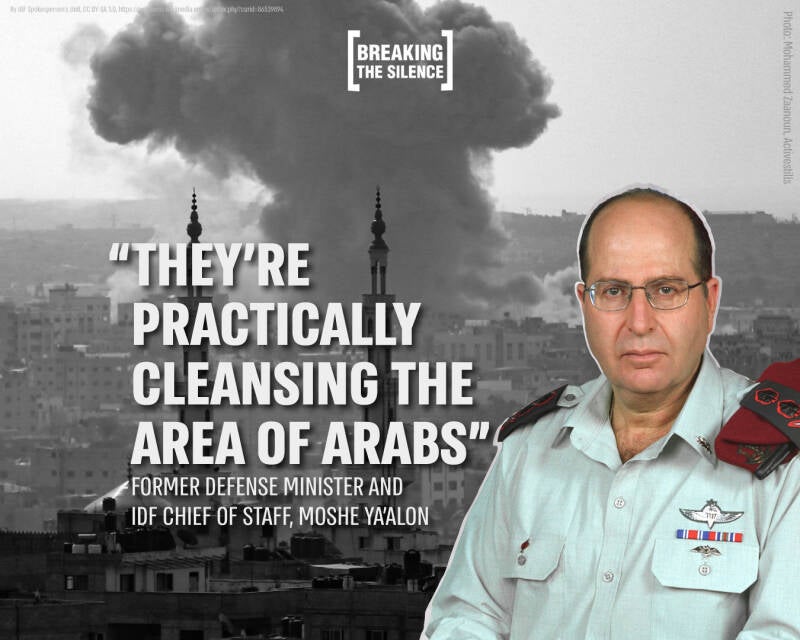
A cynical word of advice for Ya'alon: if you want to say the IDF is ethnically cleansing northern Gaza without drawing the ire of the Israeli right, all you have to do is endorse what you're describing. Minister Bezalel Smotrich did exactly that last week, telling the heads of local councils in the West Bank that “We can occupy Gaza and decrease the population by half within two years.”
No one in the room called Smotrich delusional. No one there called him a traitor or a disgrace to the state of Israel. When Minister Avi Dichter called for a second Nakba, the only consequence he saw was Prime Minister Netanyahu telling him to "be sensitive."
But even had Netanyahu punished him for saying that, he would only still be shooting the messenger. The double standard around criticizing the IDF's actions exposes that all sides are seeing the same calamitous picture, but any who call on the calamity to stop are publicly berated in order to intimidate anyone else from further dissent.
The reality is that we are starving the residents of northern Gaza. Entire neighborhoods have been wiped out. Buildings that weren't bombed or shelled were torched by soldiers. The rest were scraped away by bulldozers. The fact that even someone like Ya’alon understands this only emphasizes what we all already know - stopping this is a moral imperative.


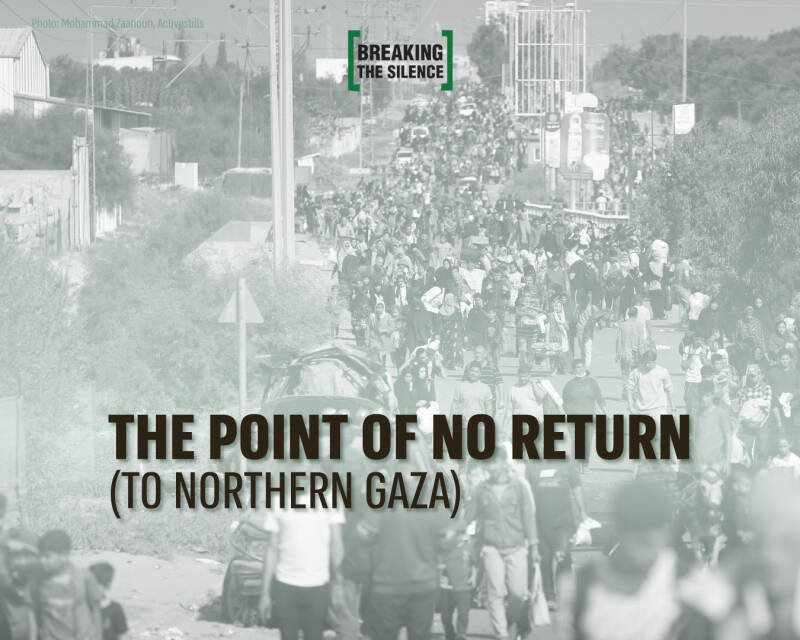

How we fought in Gaza
Many soldiers have given us their testimonies on previous Israeli military campaigns they took part in, in the Gaza Strip. Looking back can help understand the reality we see unfolding and the choices we face today.
803.


1 december 2024
Today's headlines
Vietnam, Algeria, Palestine: Passing on the torch of the anti-colonial struggle
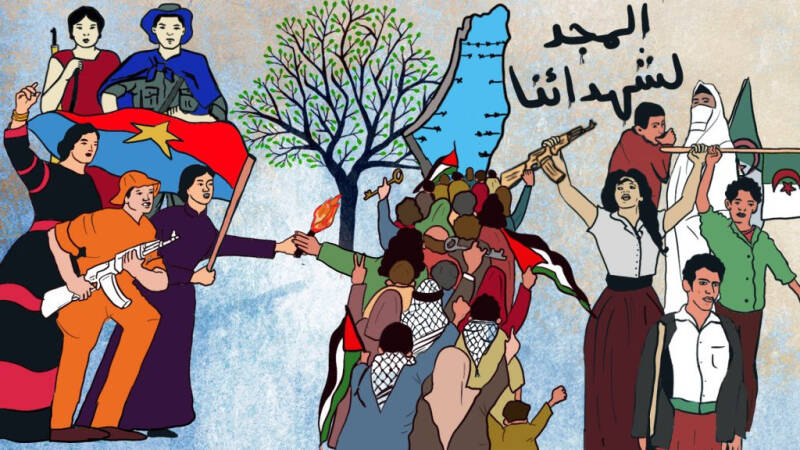
No discussion of decolonization can be complete without understanding the importance of Vietnam and Algeria, and how their liberation struggles inspire oppressed people all over the world, including the Palestinians.
How coverage of the Amsterdam soccer violence exposed the media’s ‘antisemitism’ fiction

The media’s censorship of the facts of the Amsterdam soccer hooligan violence was more than just bad reporting. It was yet another example of the ideological fiction that Jewish actions can never be blamed for the violence they cause.
802.

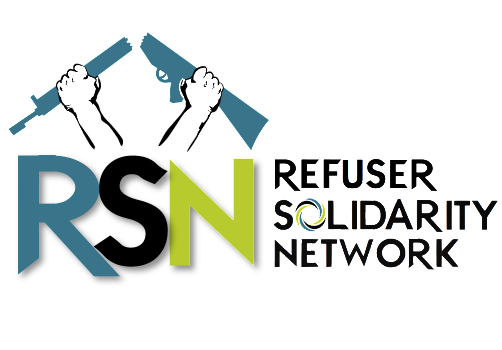
1 december 2024
My name is Atalya, I am a refuser who served jail time in 2018 for refusing to participate in the Israeli military’s crimes. I am also behind our growing online community Voices Against War, one of the only platforms where people the world over can hear the voice of internal Israeli dissent and resistance to the genocide in Gaza and the occupation. From protest actions to civil disobedience against the war, Voices Against War covers what the mainstream media will not. As the Israeli government is now preparing to permanently occupy the Gaza Strip, resistance to the war is growing. Refuser Solidarity Network (RSN) is stepping up our grassroots coverage to bring this wave of activism to our supporters around the world.


From left to right: Demonstrators outside of an Israeli airforce; Protesters march in Tel Aviv against Israel's assault on Gaza and Lebanon.
That is why we created Voices Against War, to give the Israeli resistance a voice, amplify it and provide international support. Thanks to Voices Against War, the voice of the Israeli resistance reached people around the world over the last year, with thousands joining our network in support of the antiwar movement. We documented protest actions and provided a stage for activists to share their message, building a crucial link between international support and the antiwar movement in Israel in dire need of backing.
With more and more atrocities being committed in Gaza, we’re seeing a growing wave of resistance and war refusal that could bring this war to an end. This is the voice we at RSN want to bring to the globe: That another reality is possible, and that there are more and more people working tirelessly to make it happen.
In solidarity,
Atalya Ben Abba,
Refuser Solidarity Network
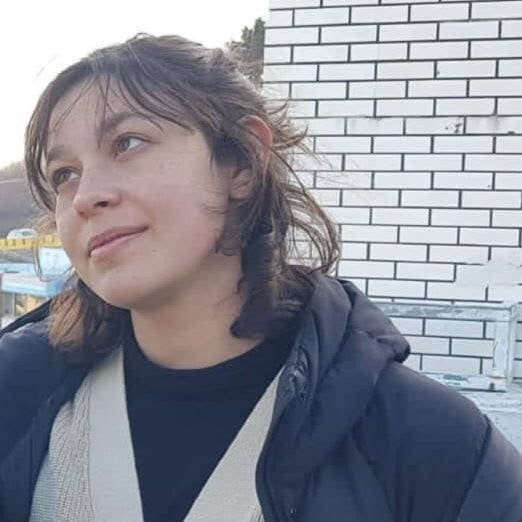
801.
